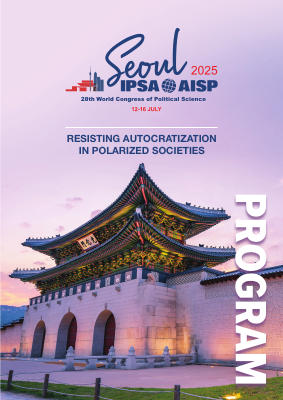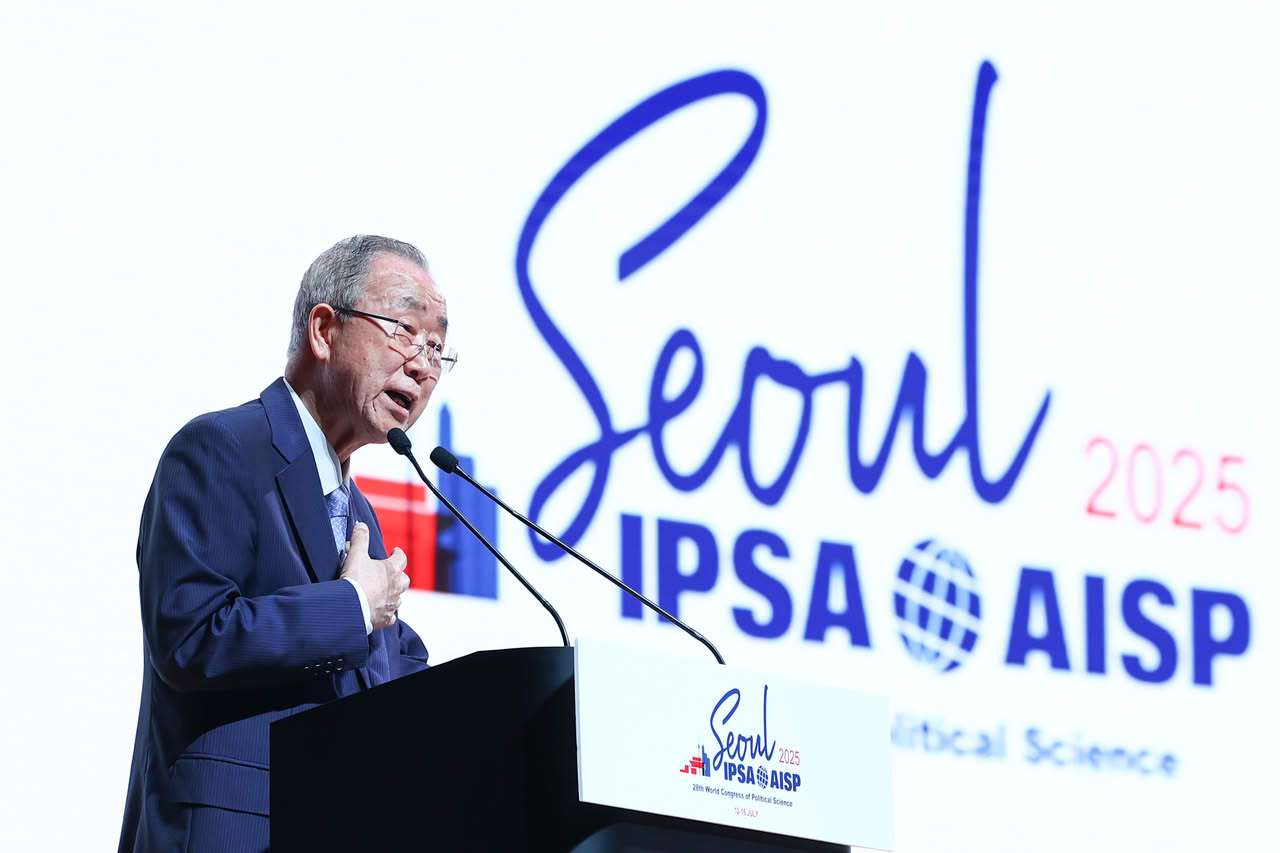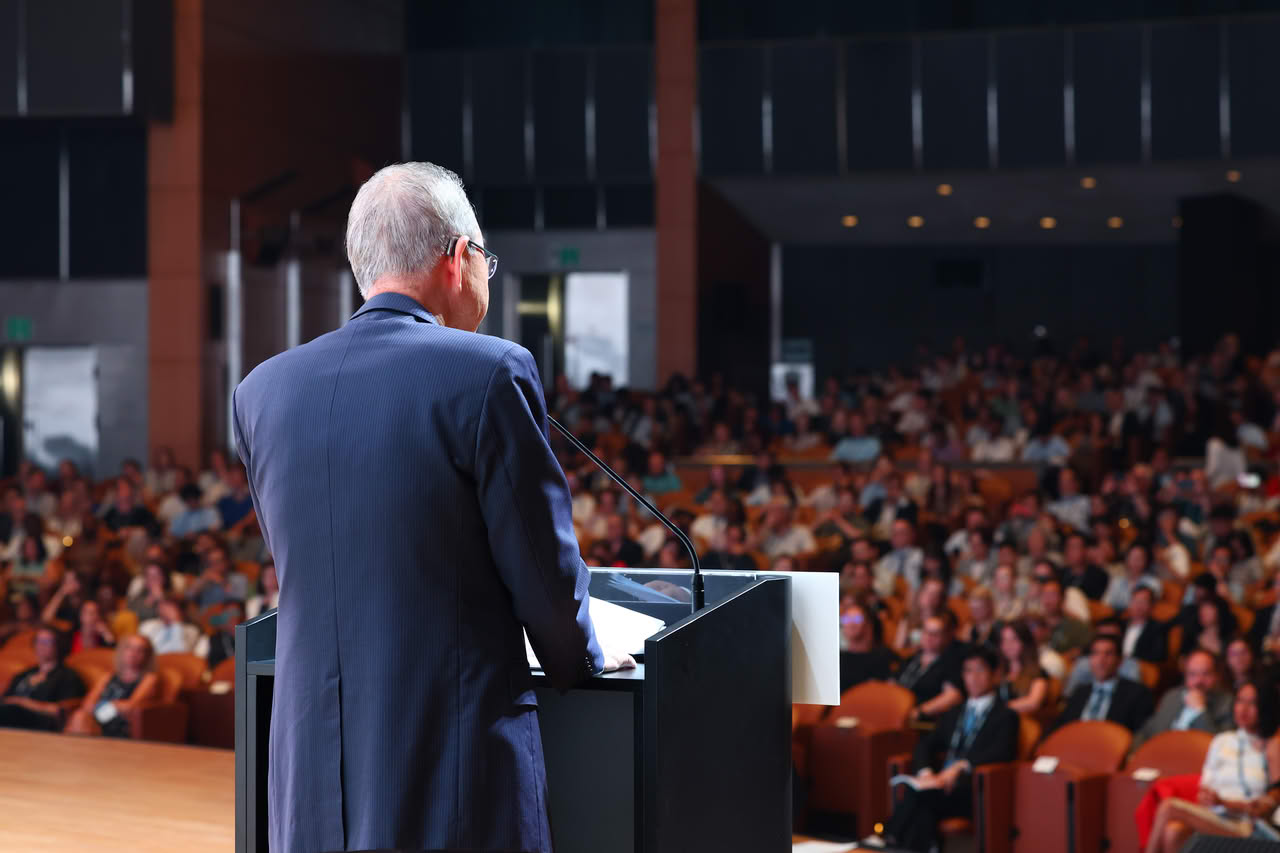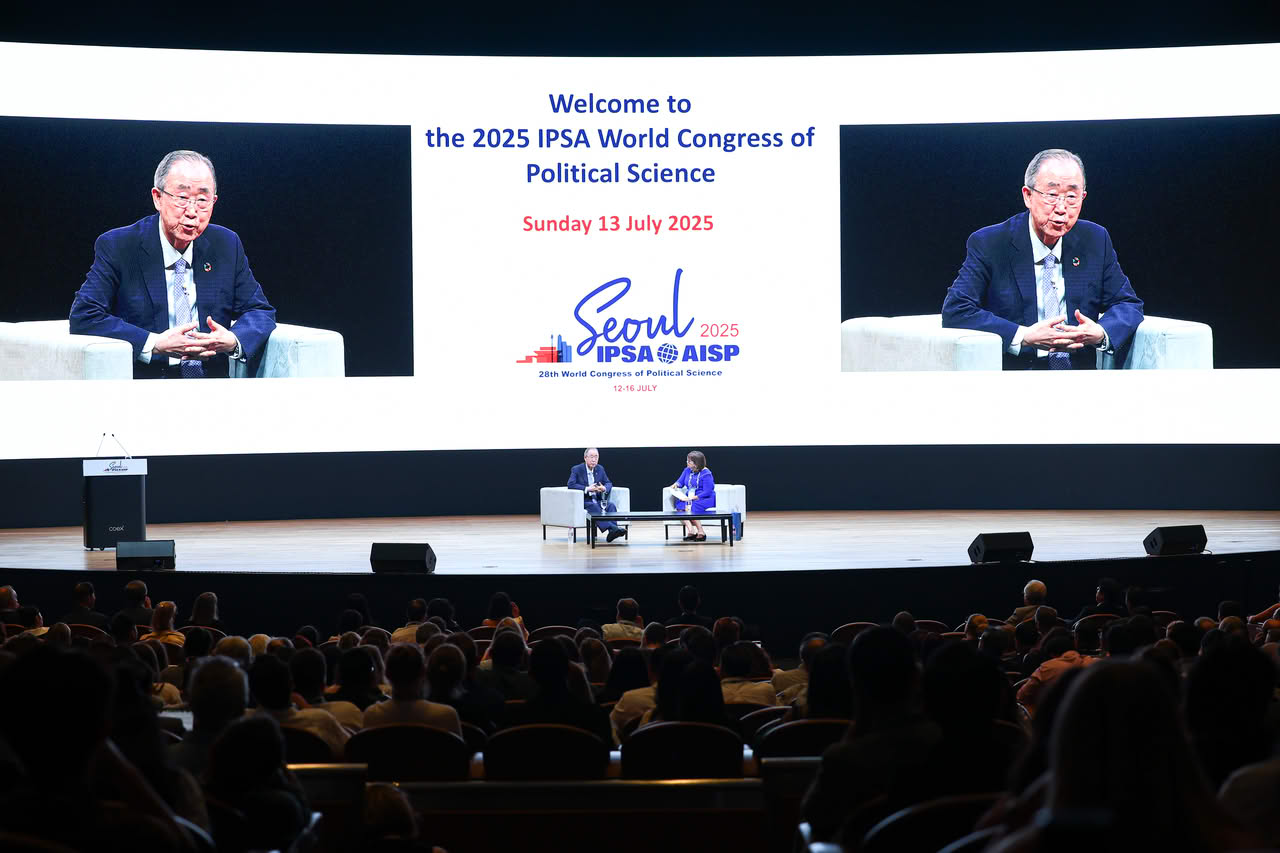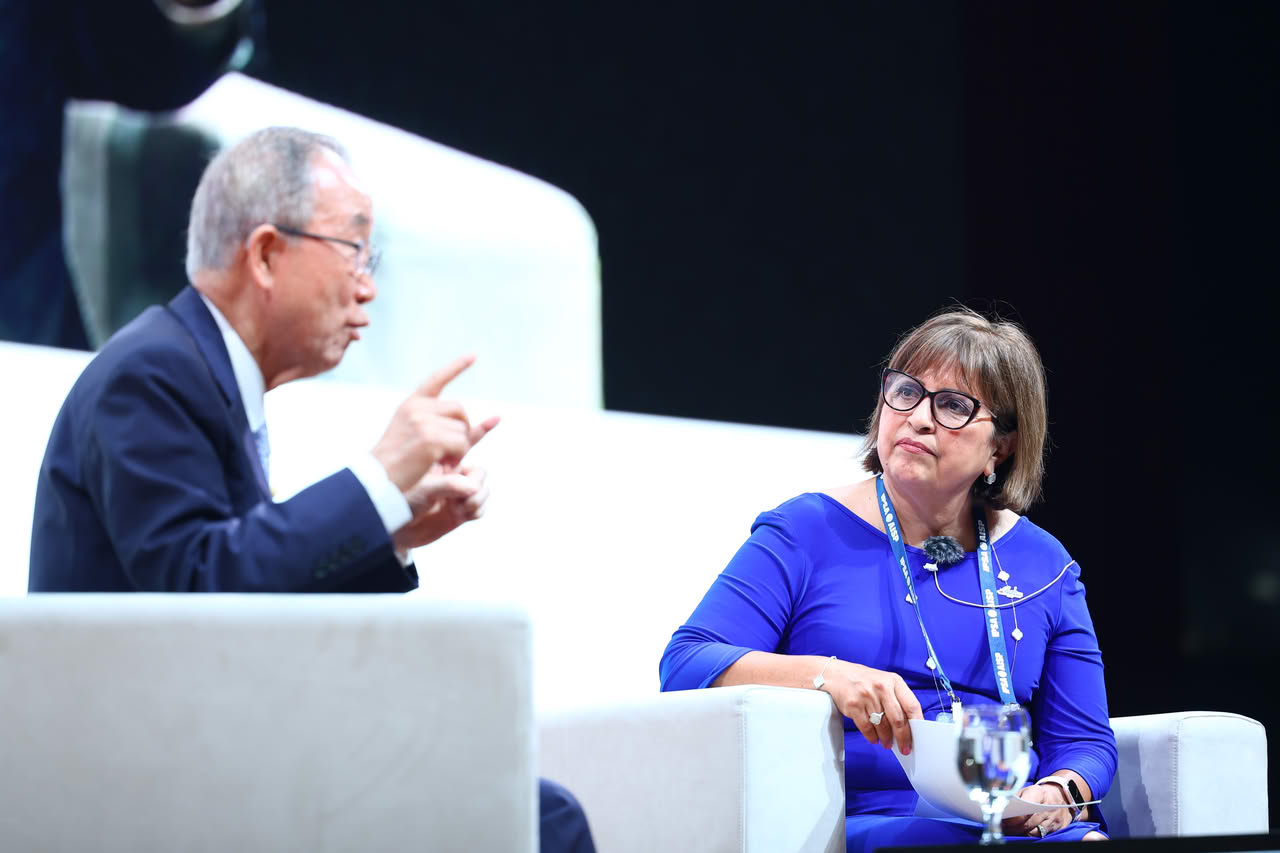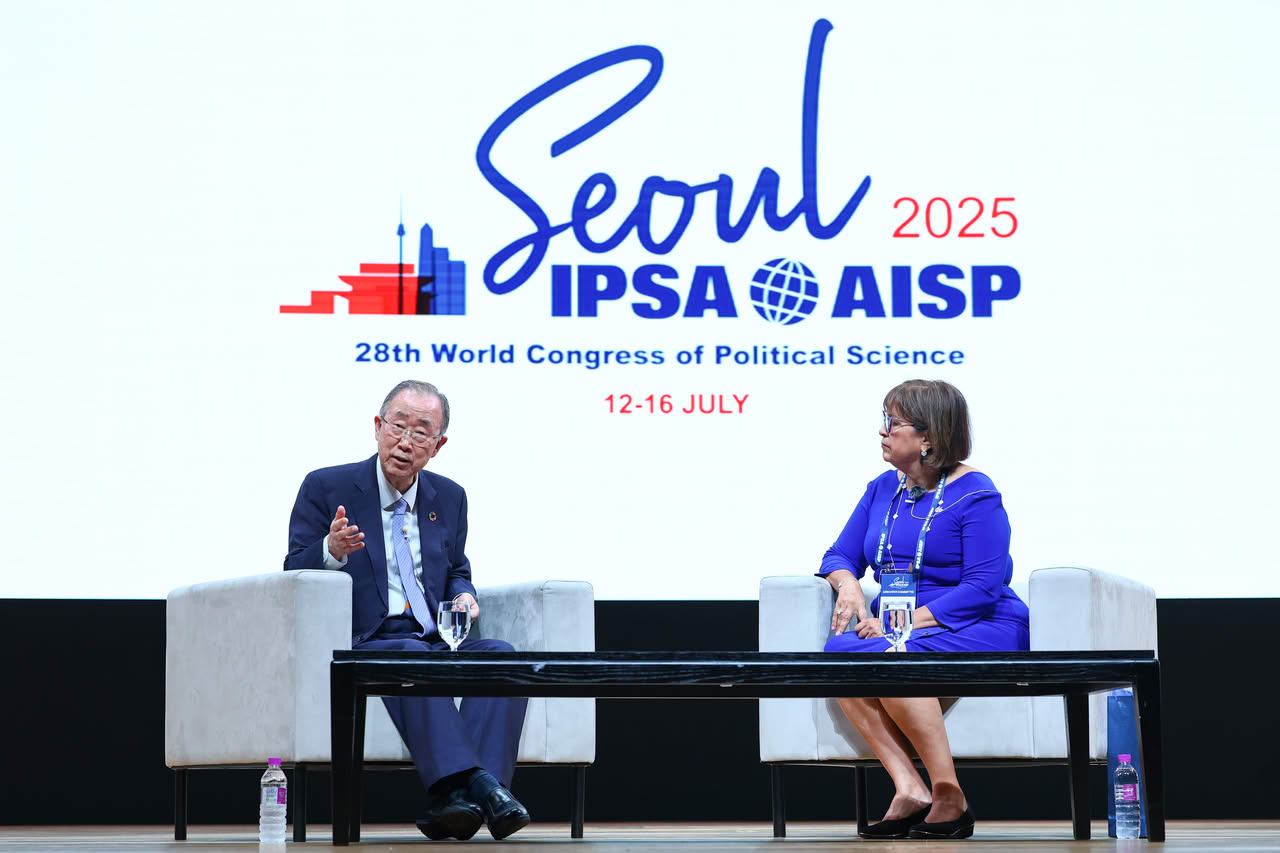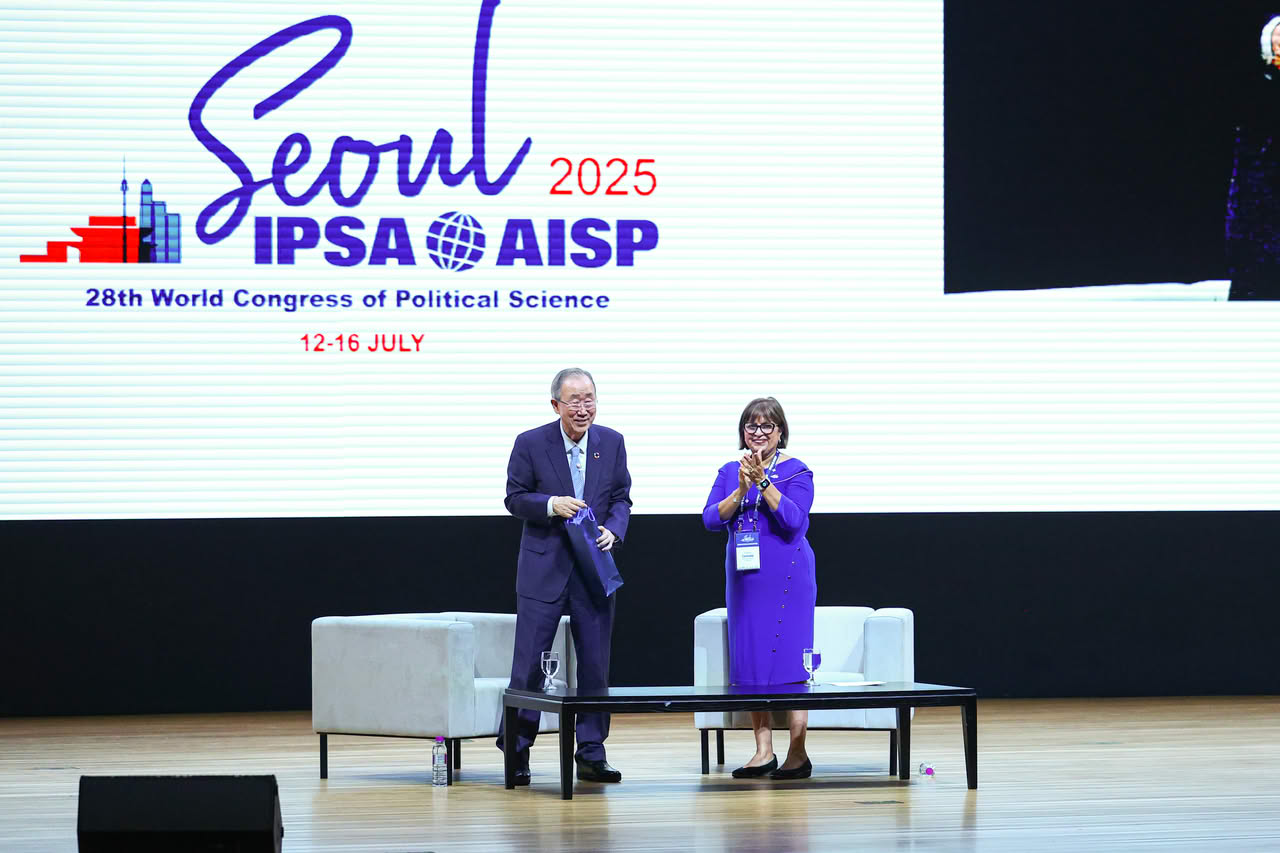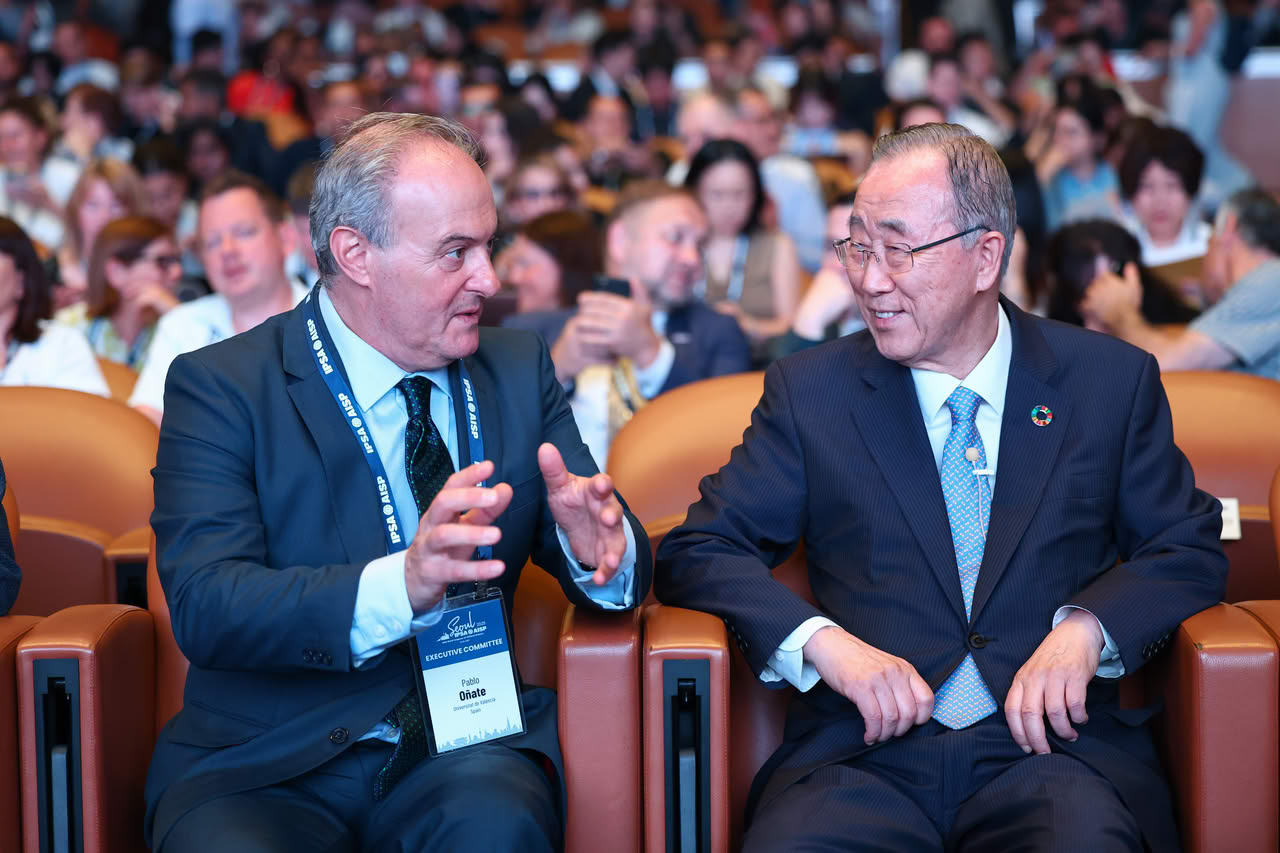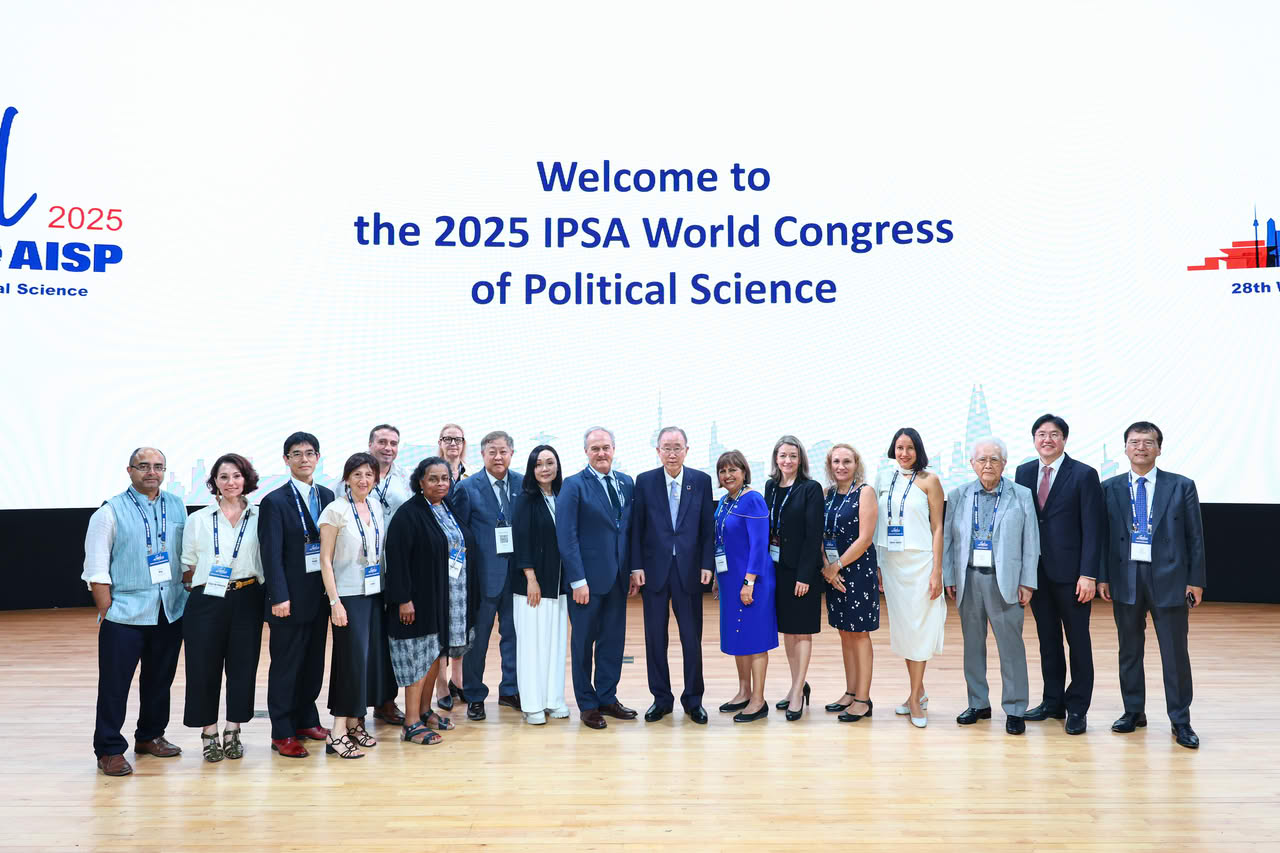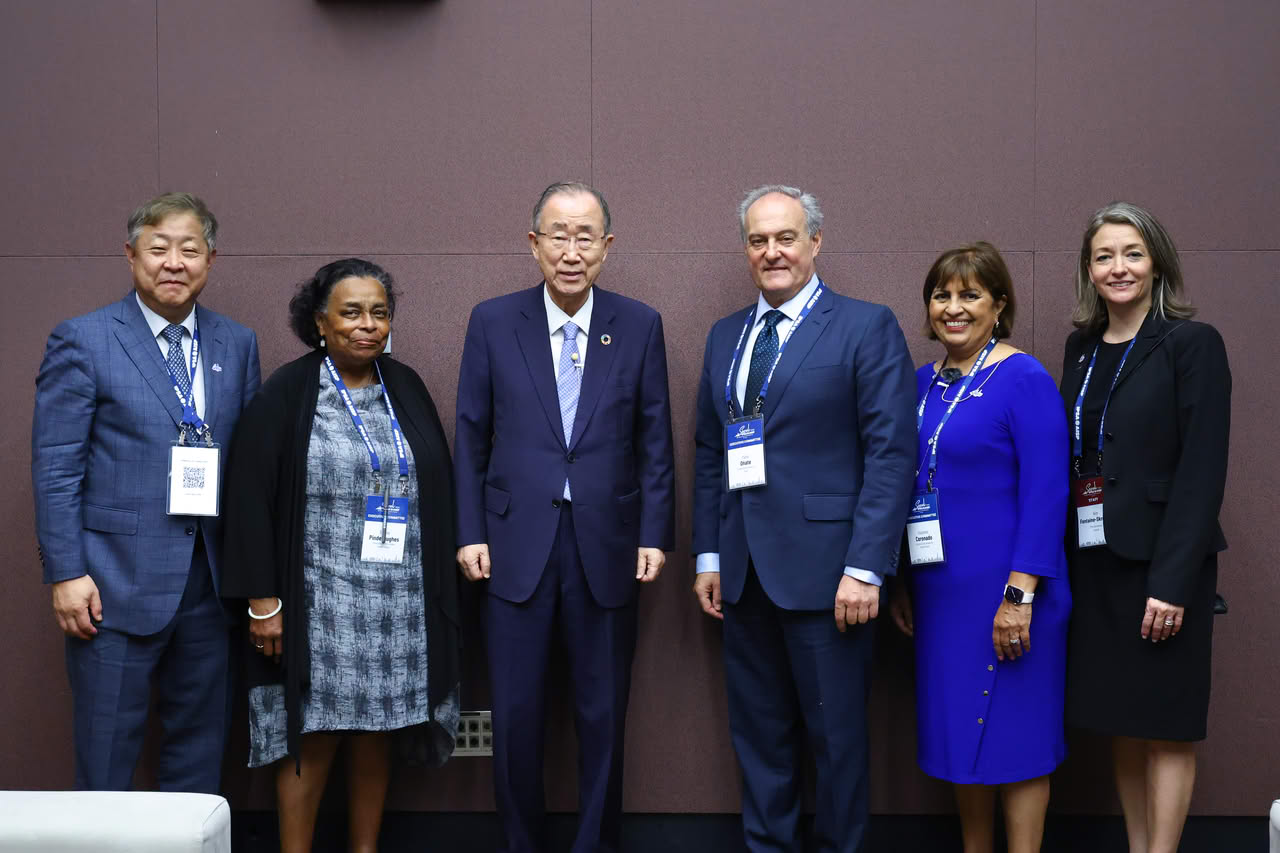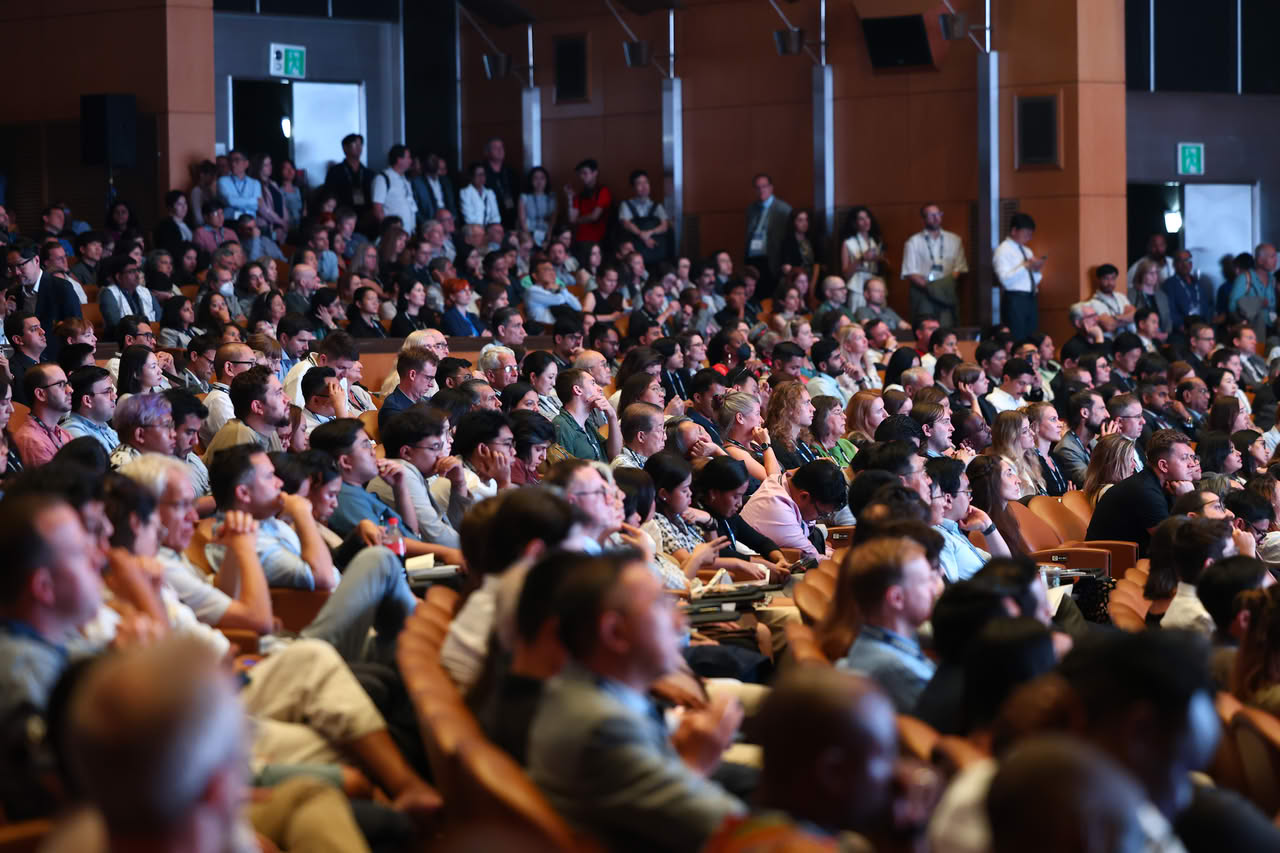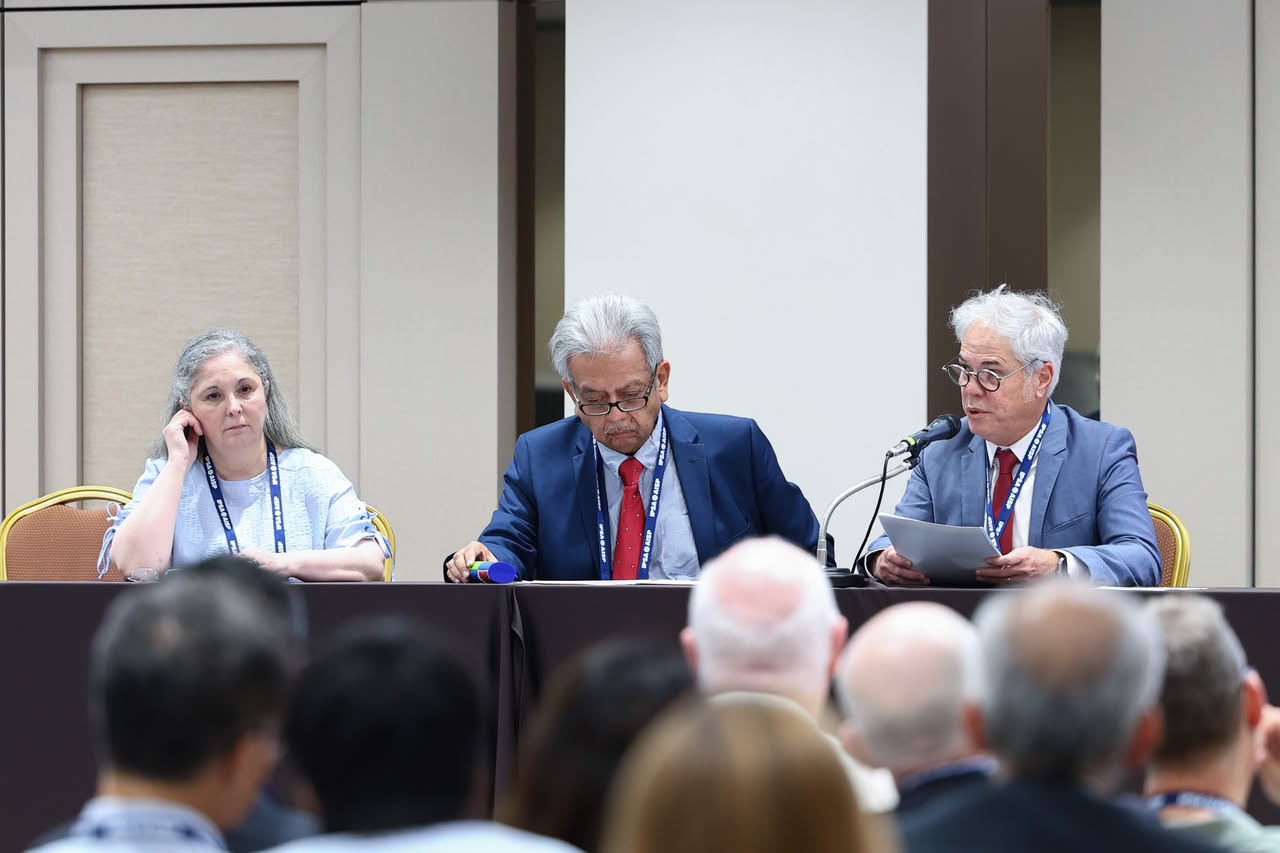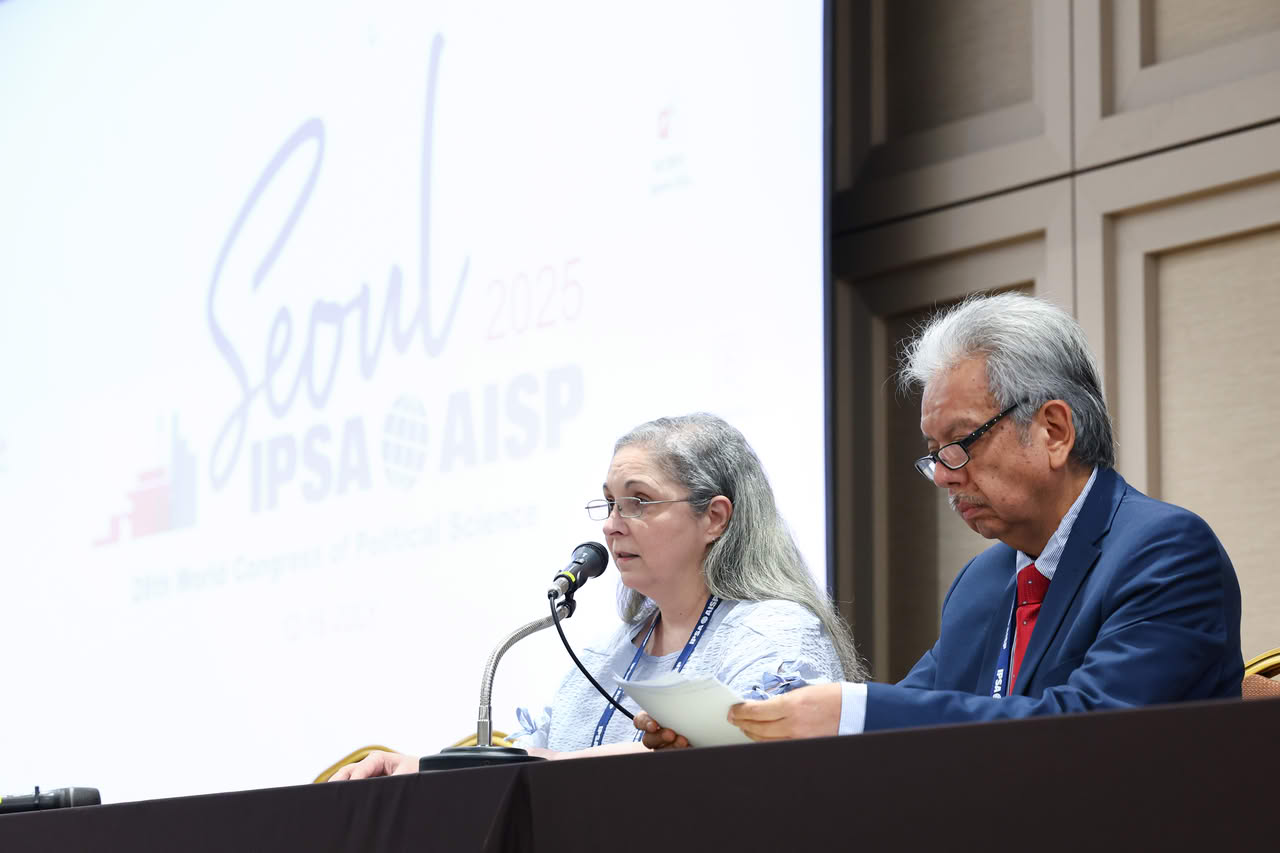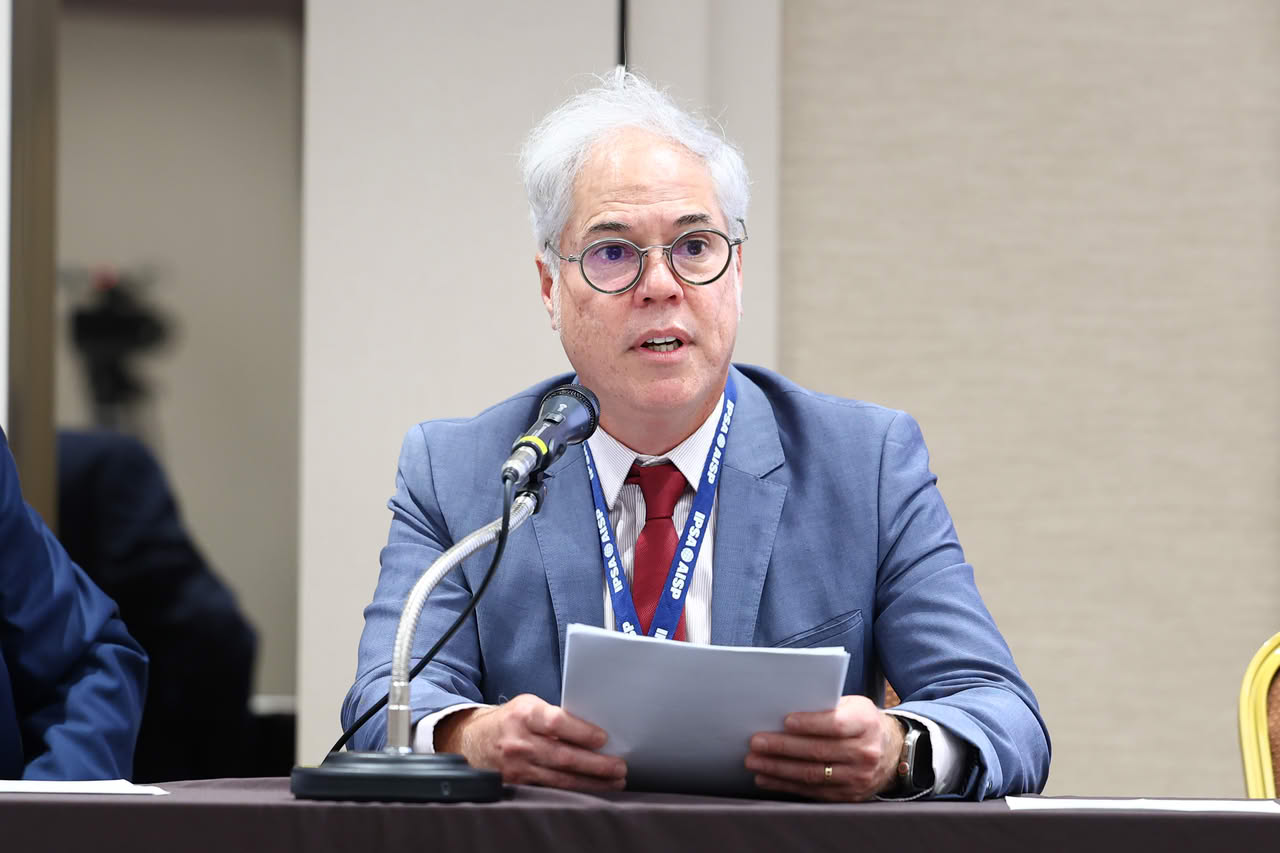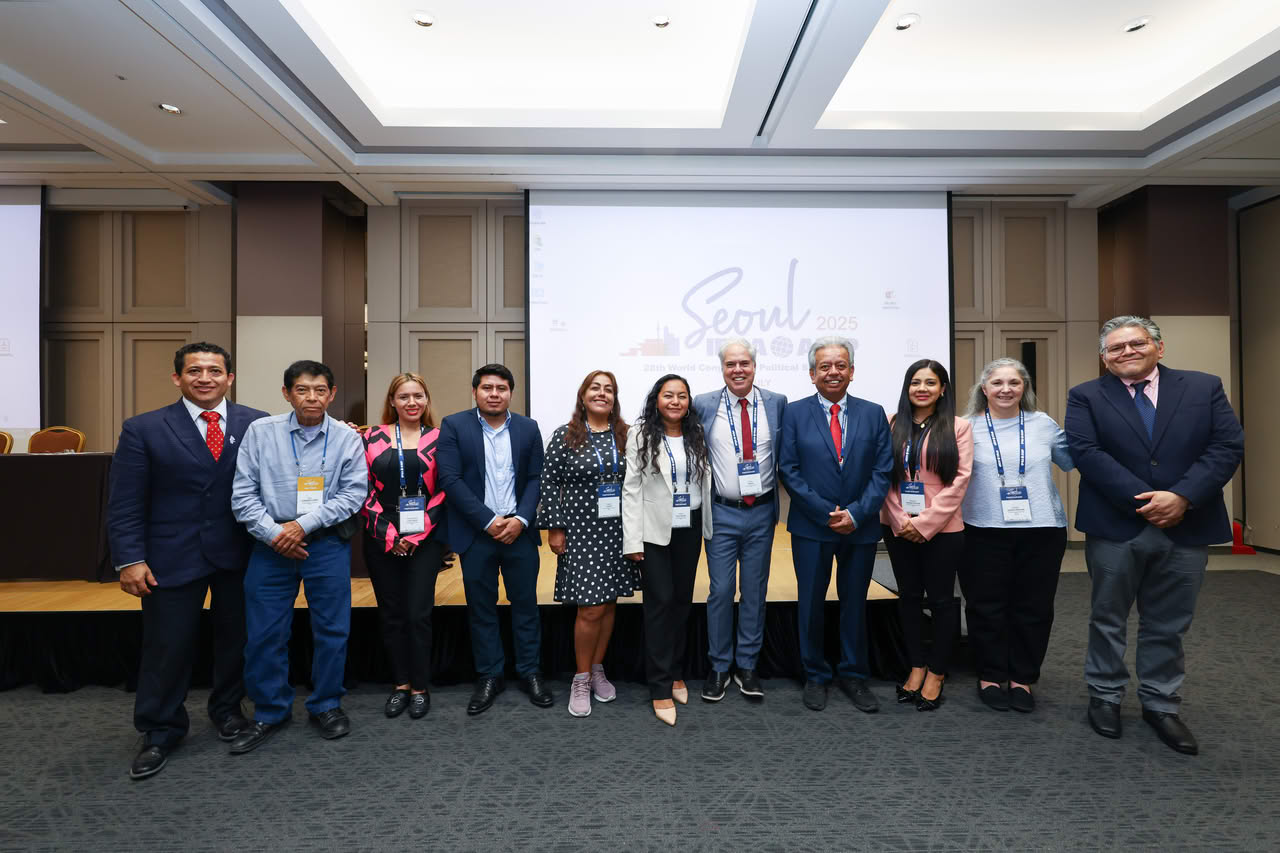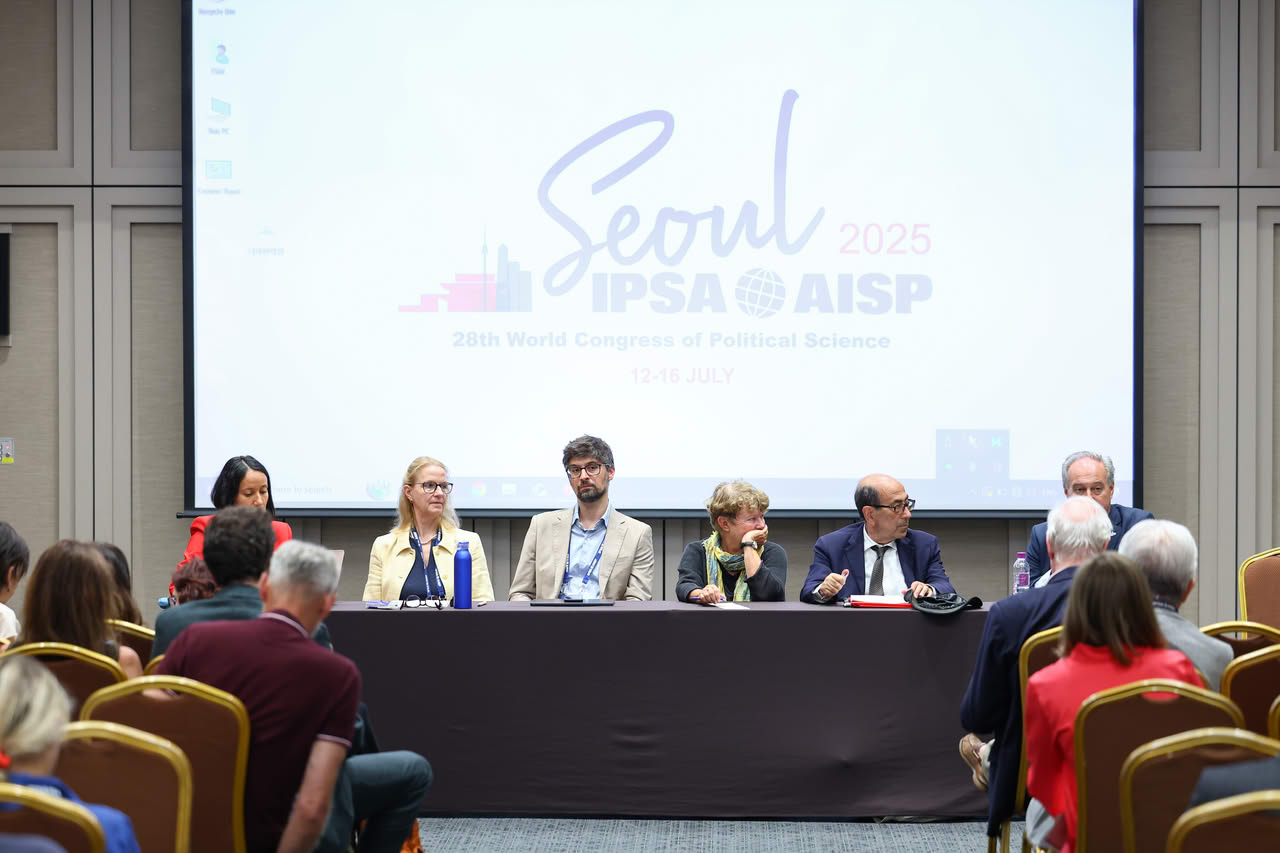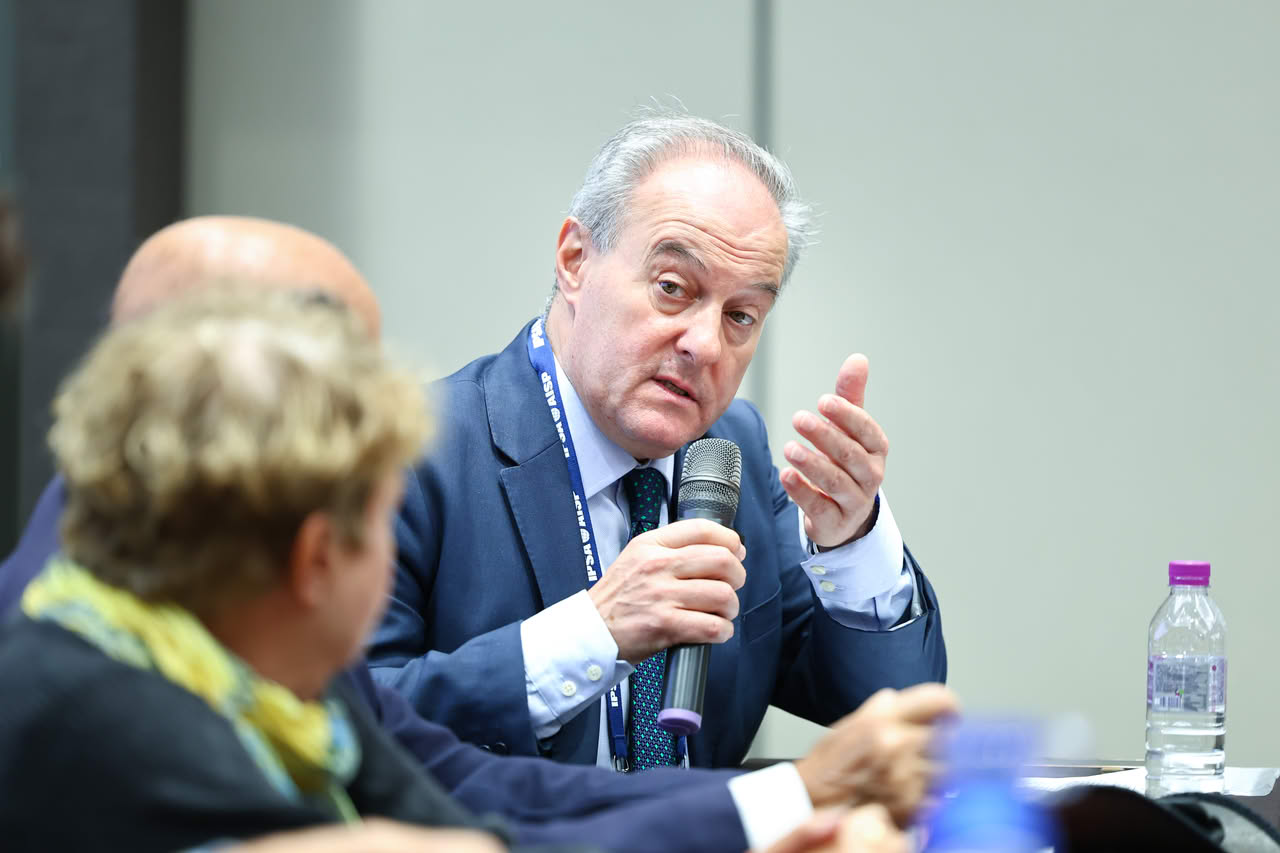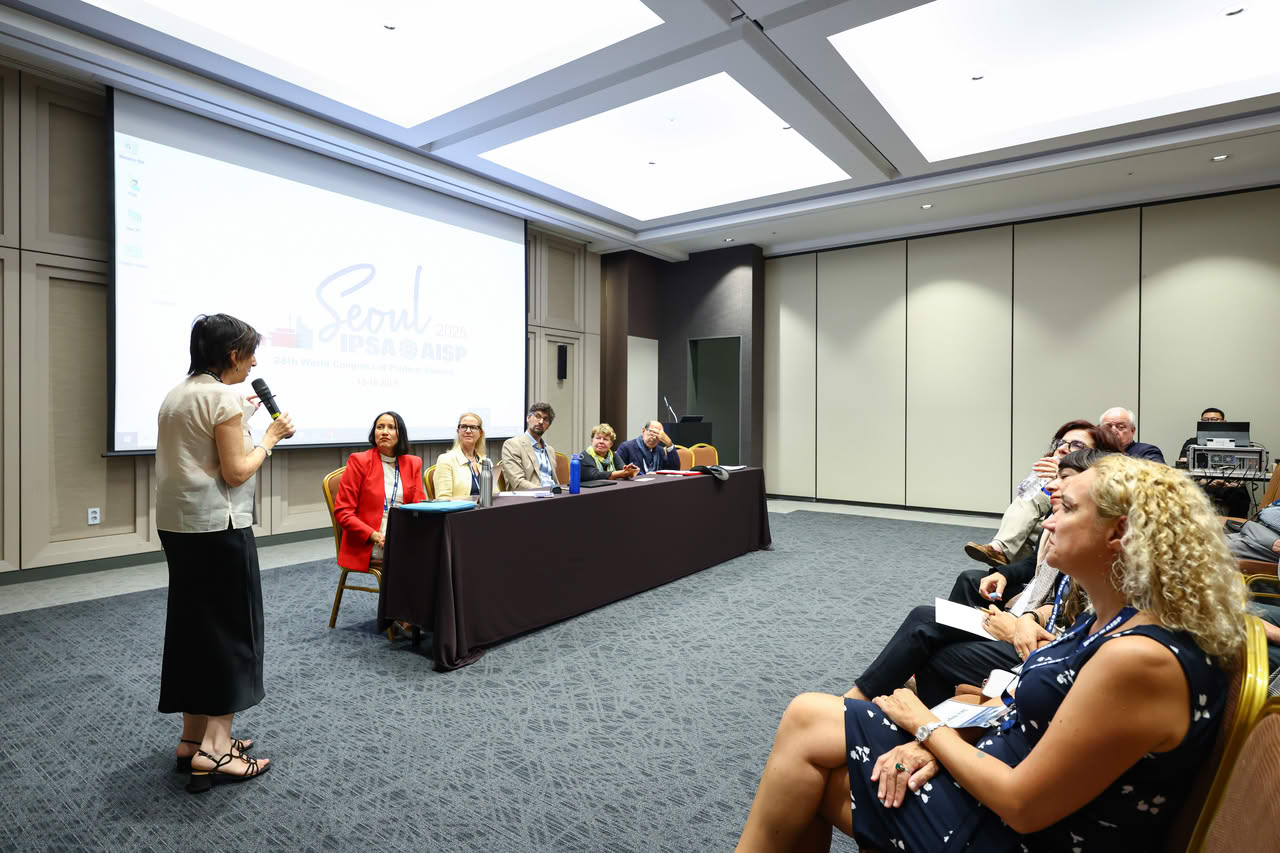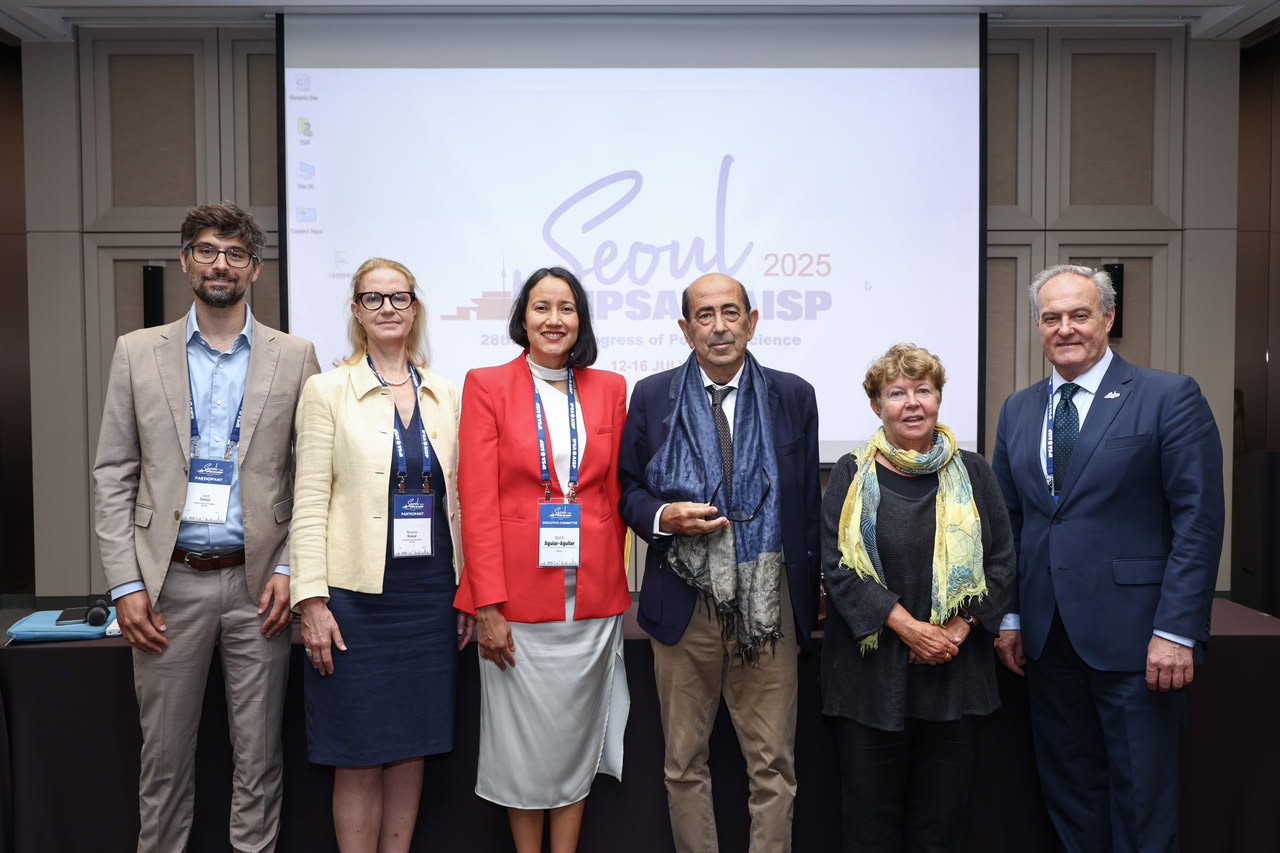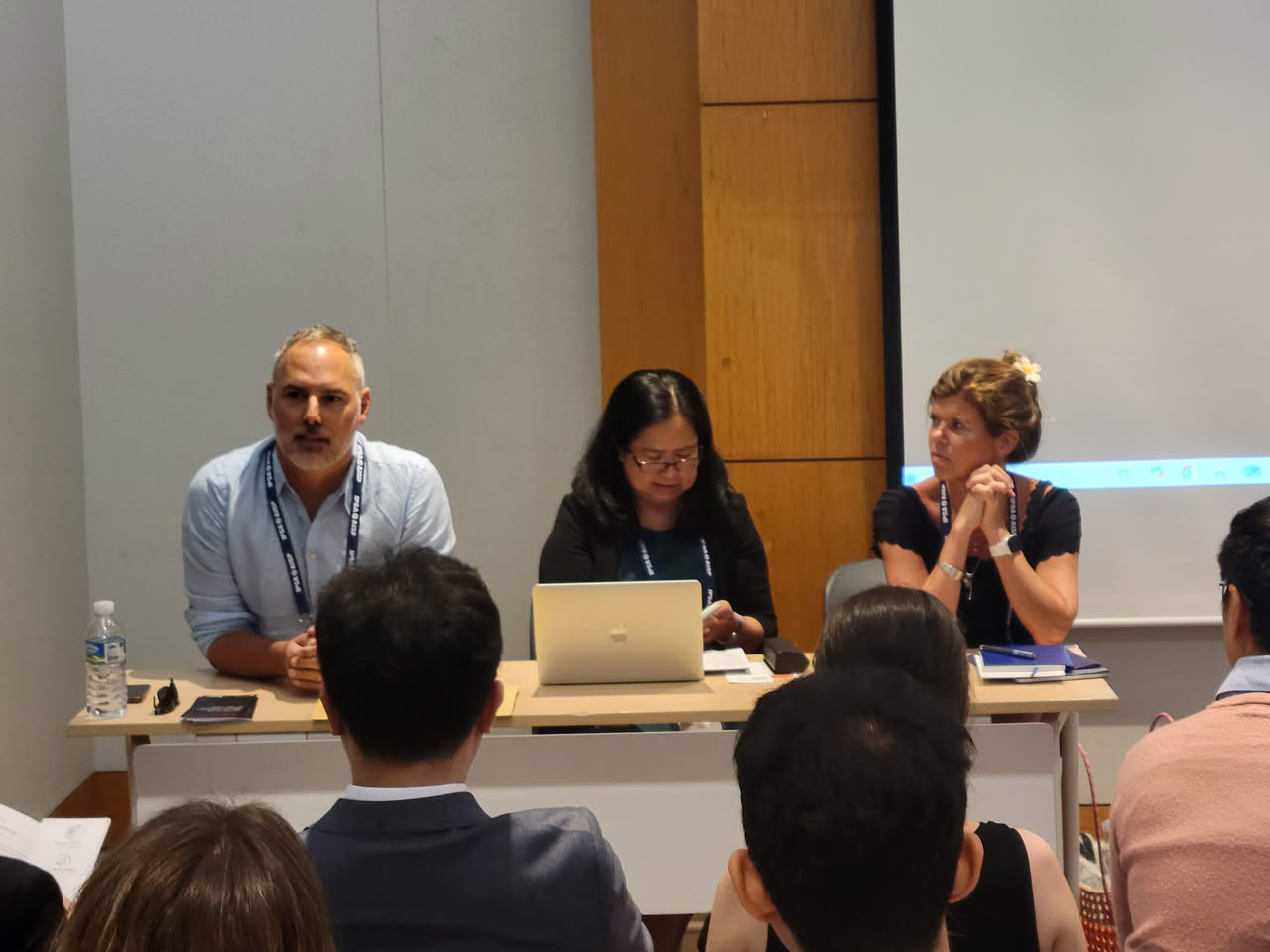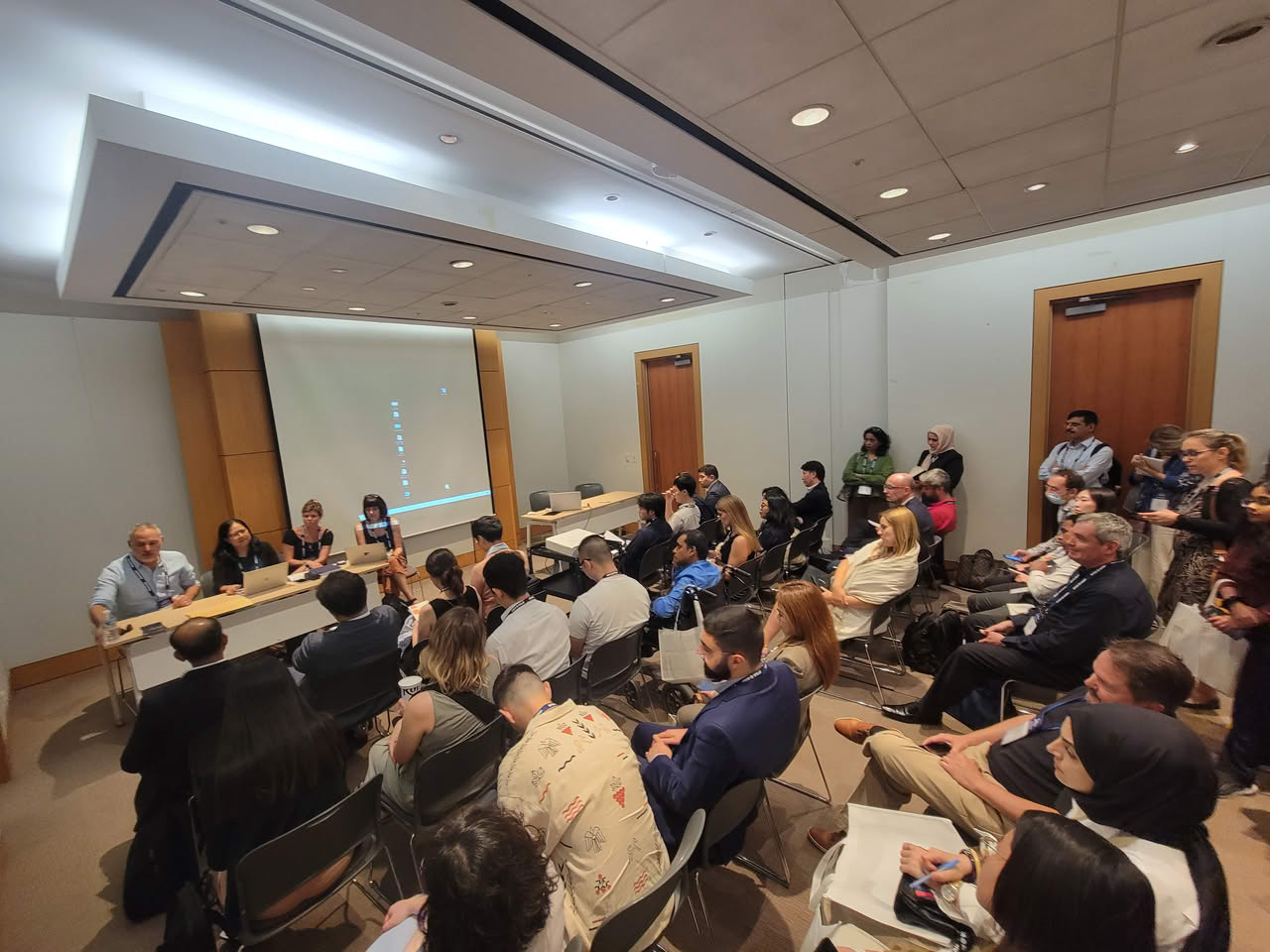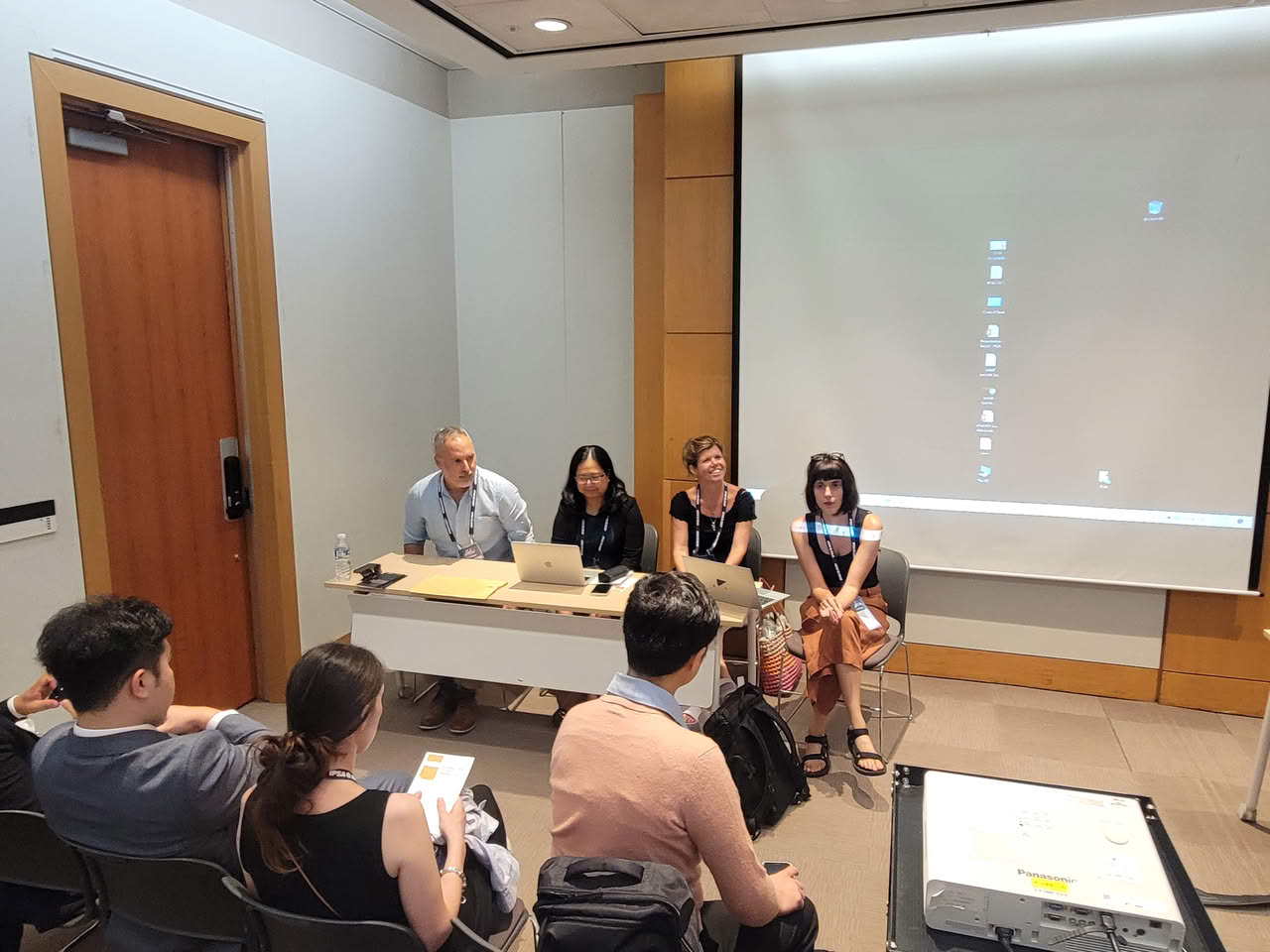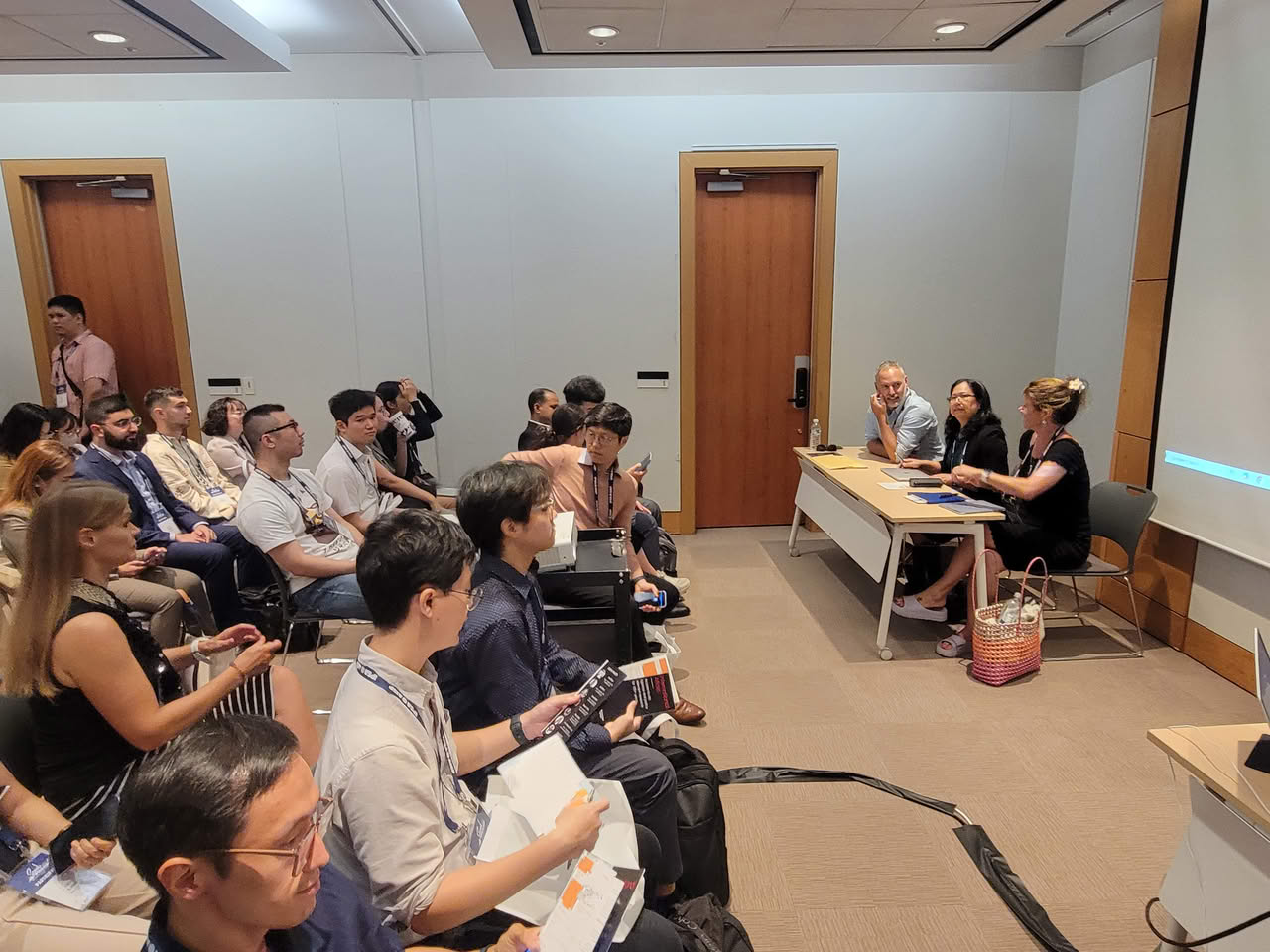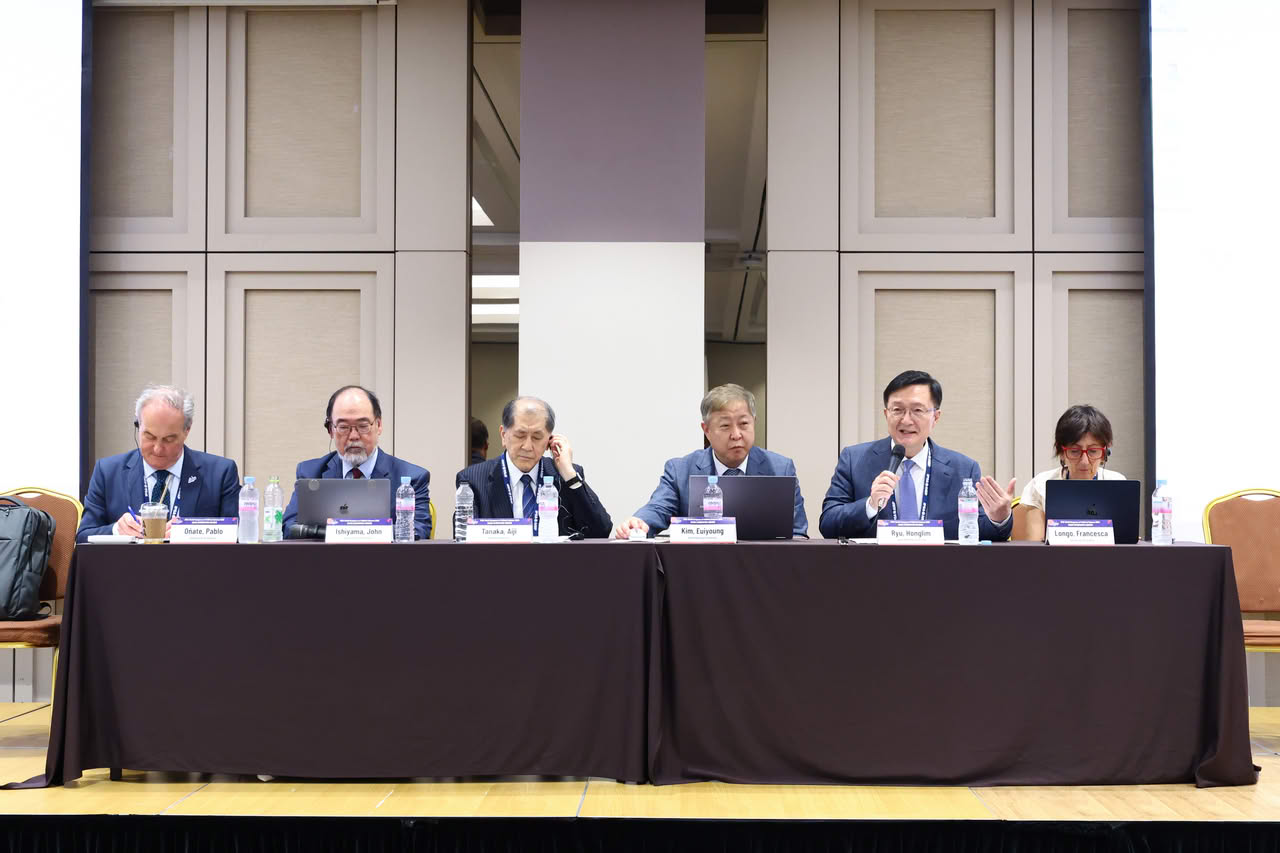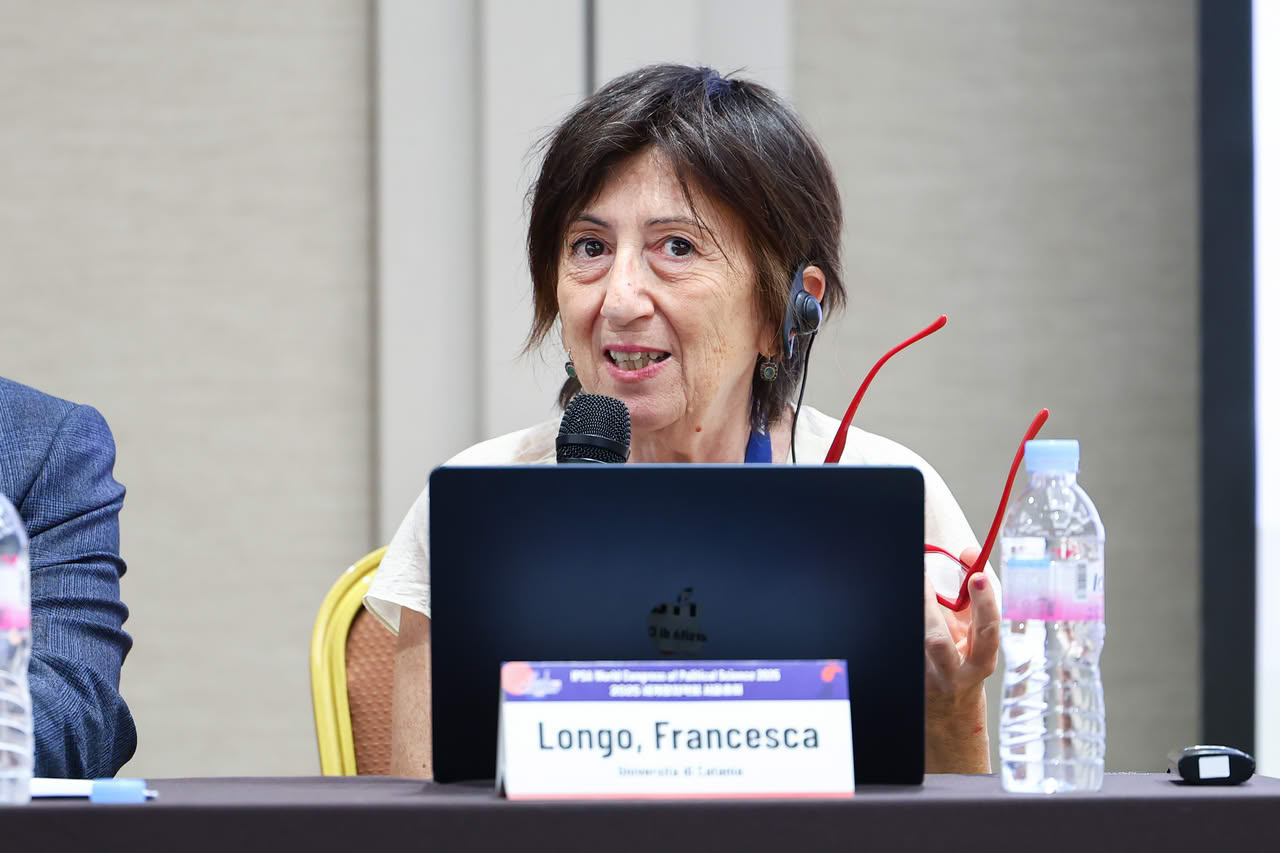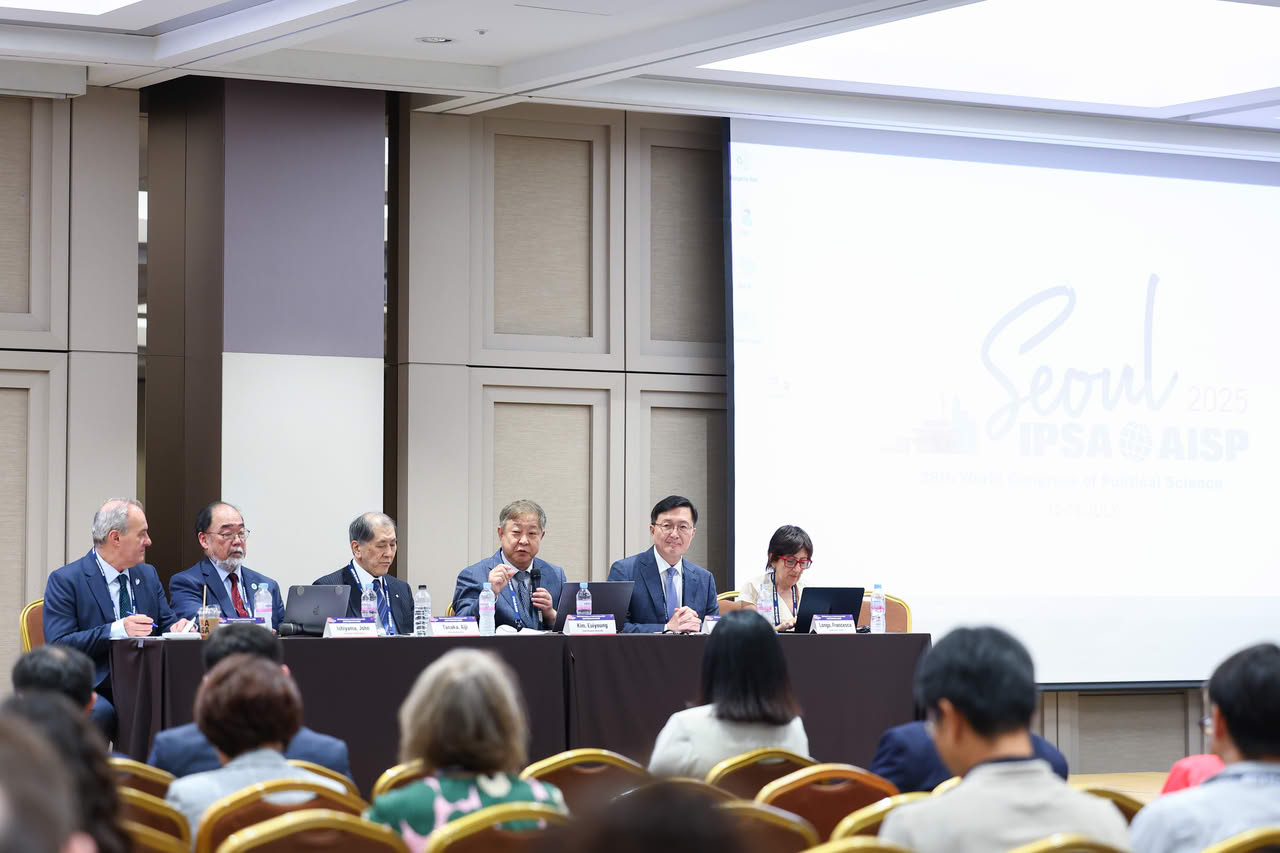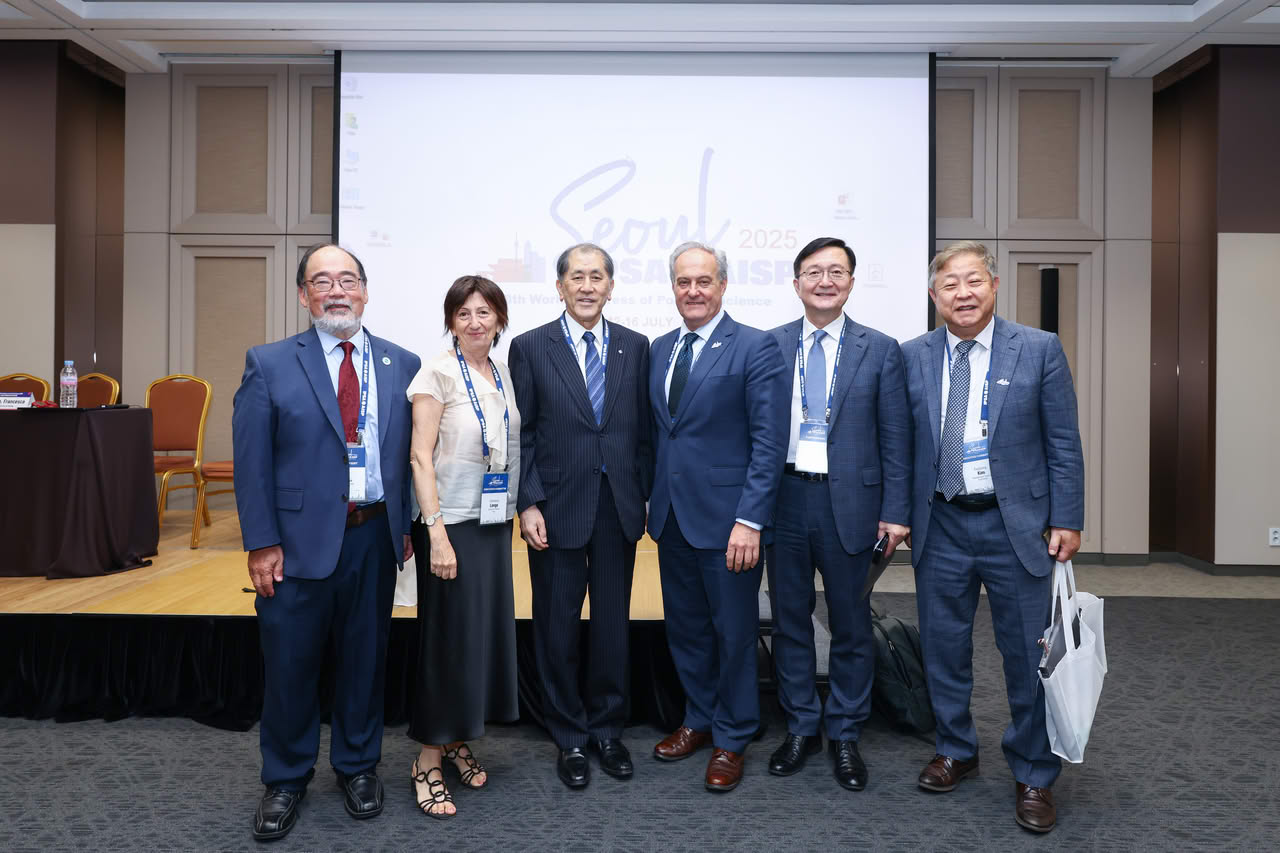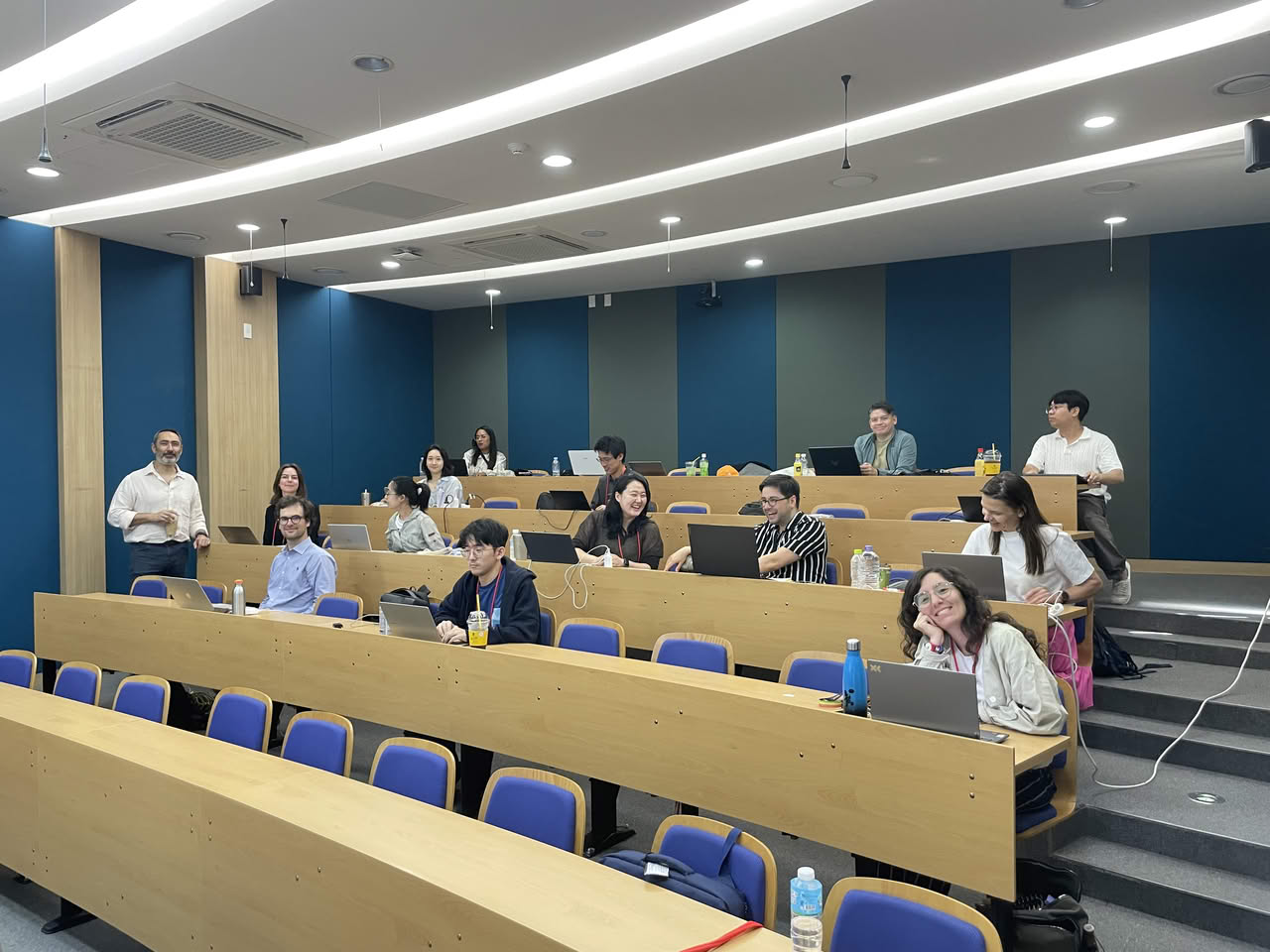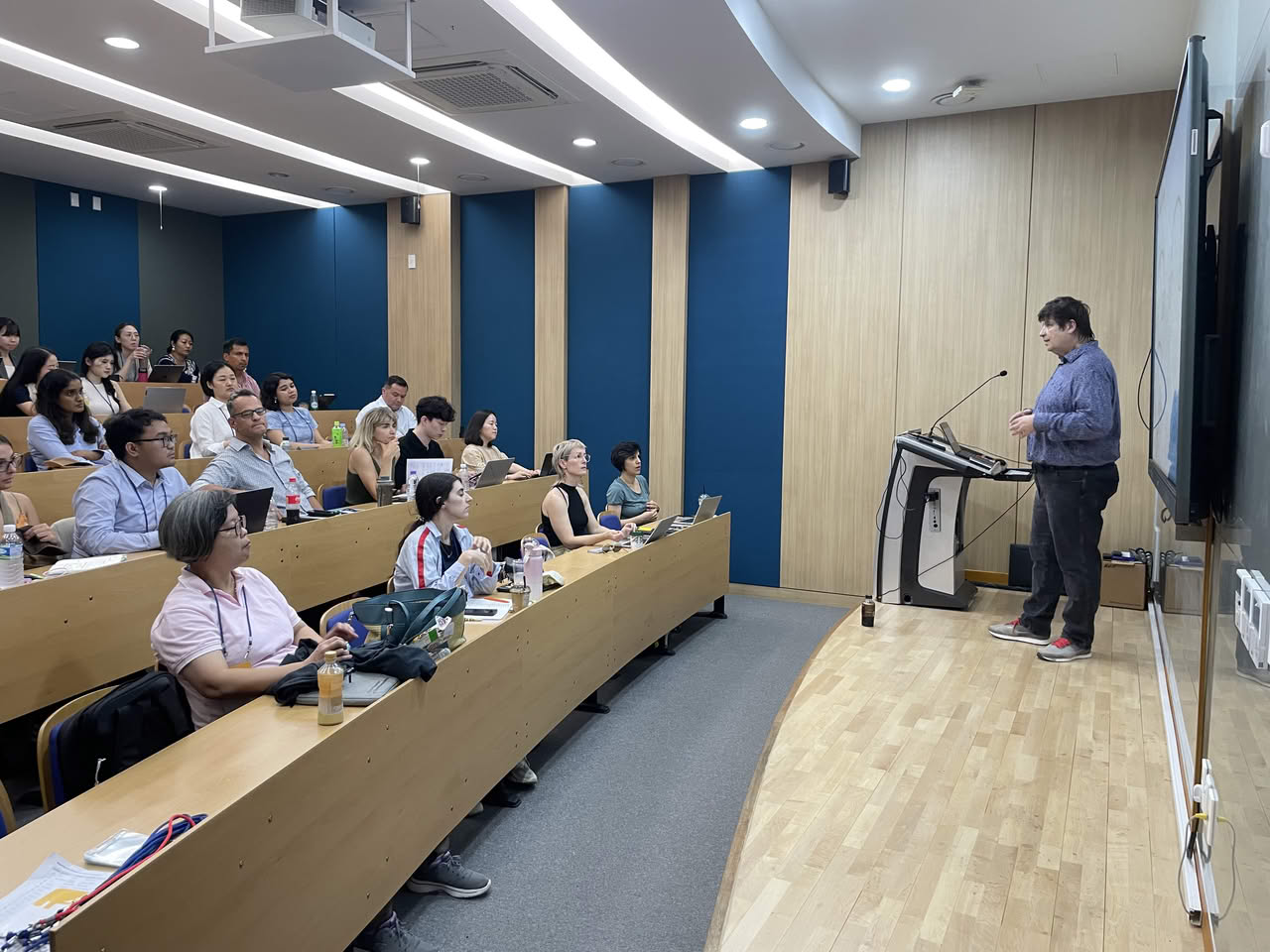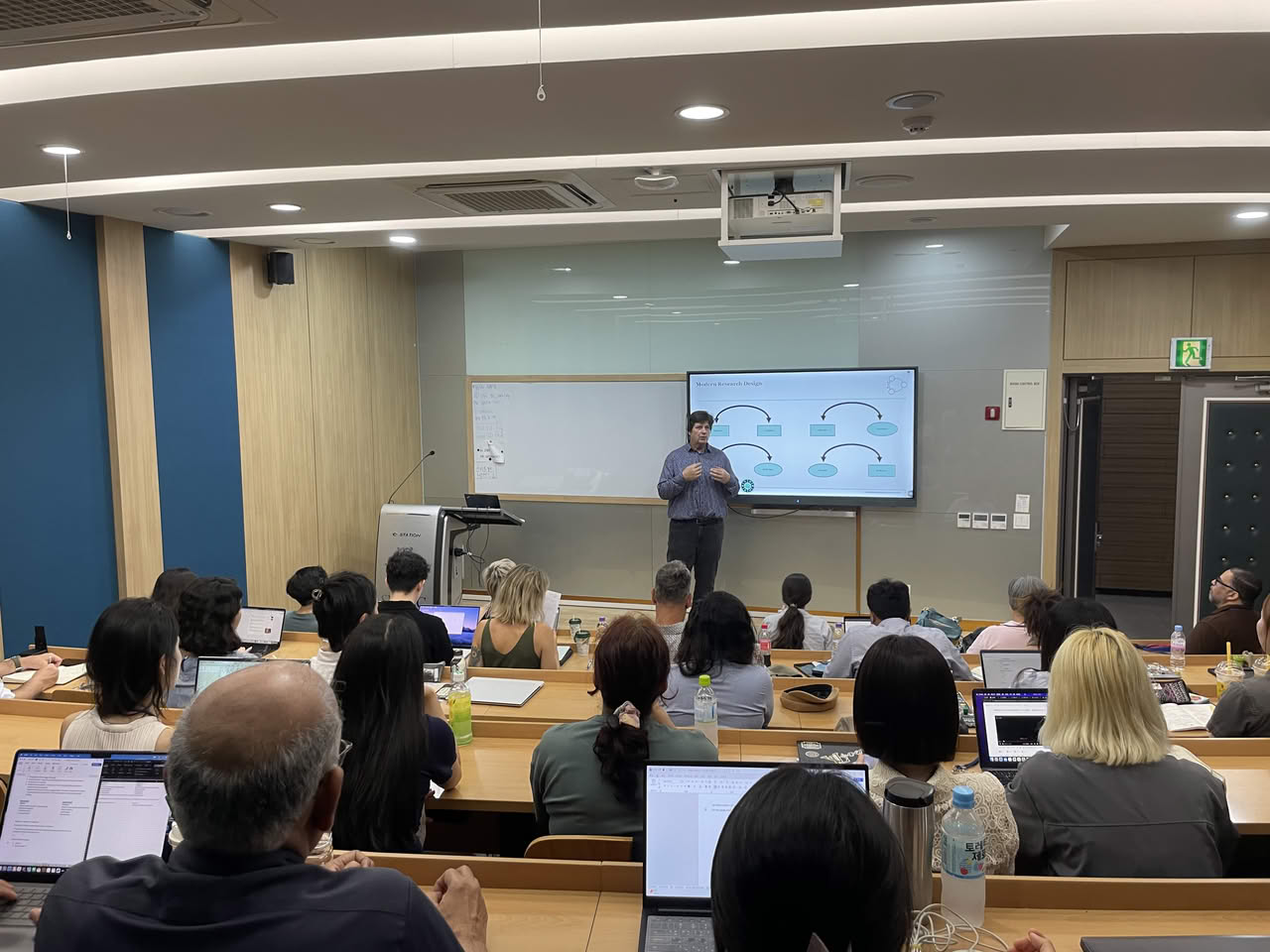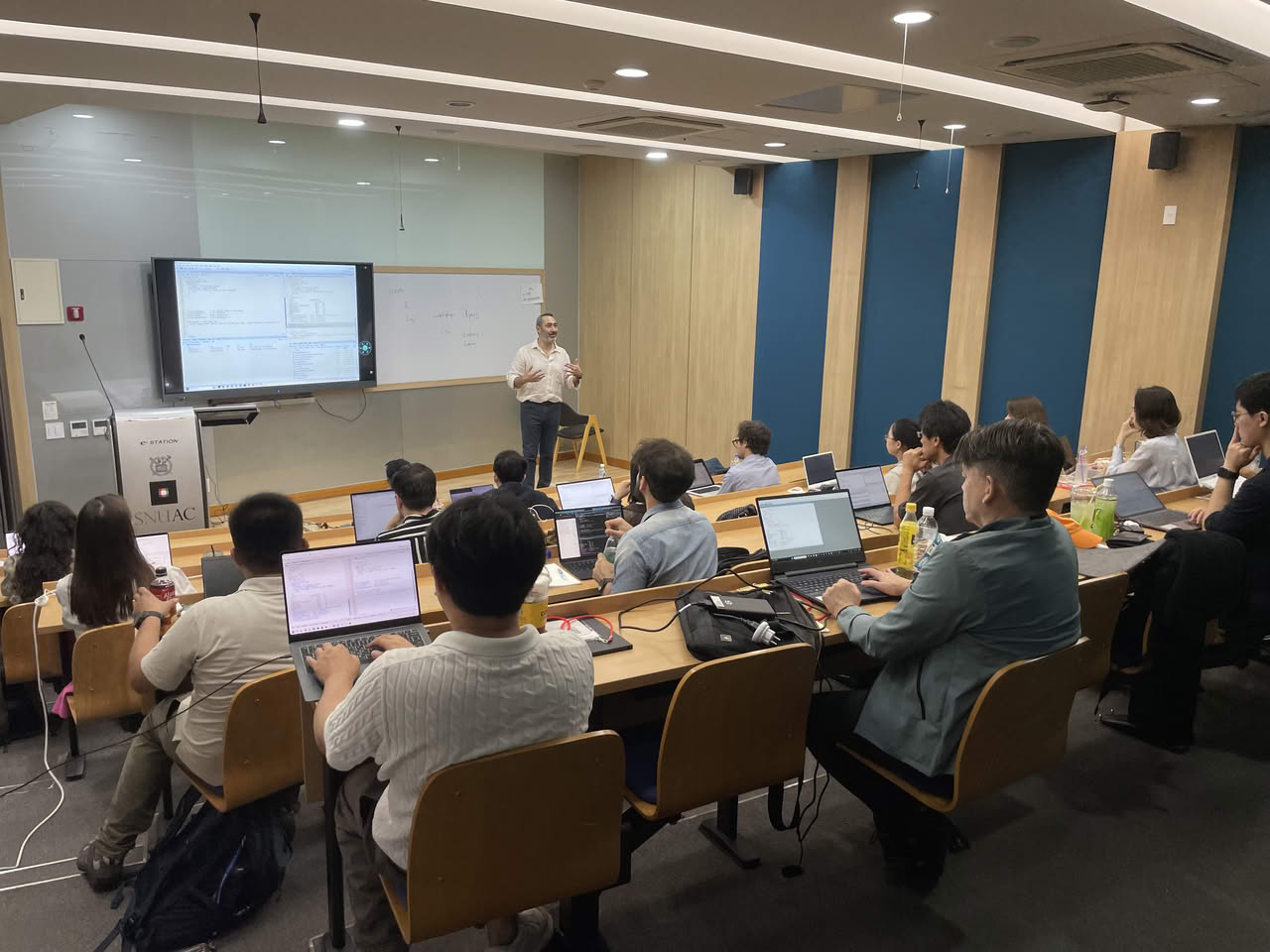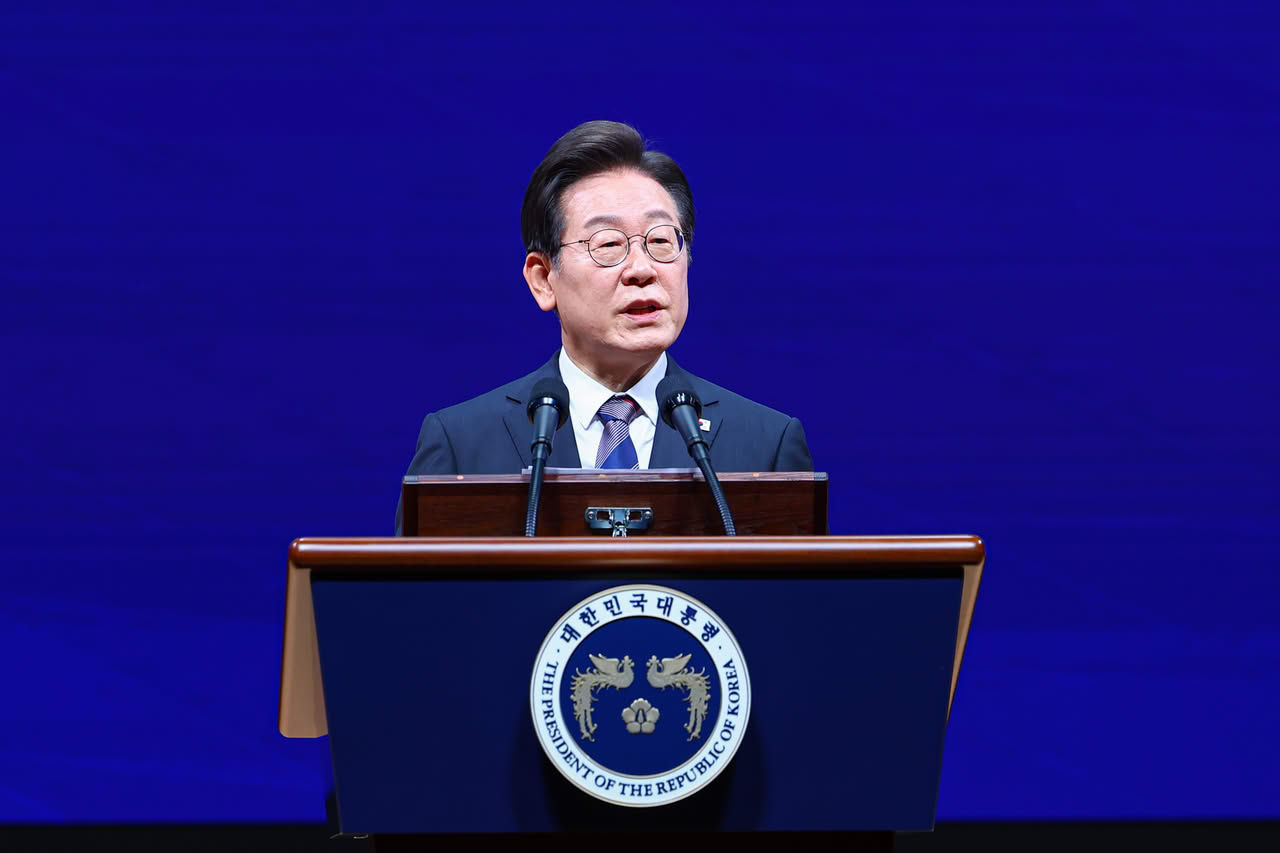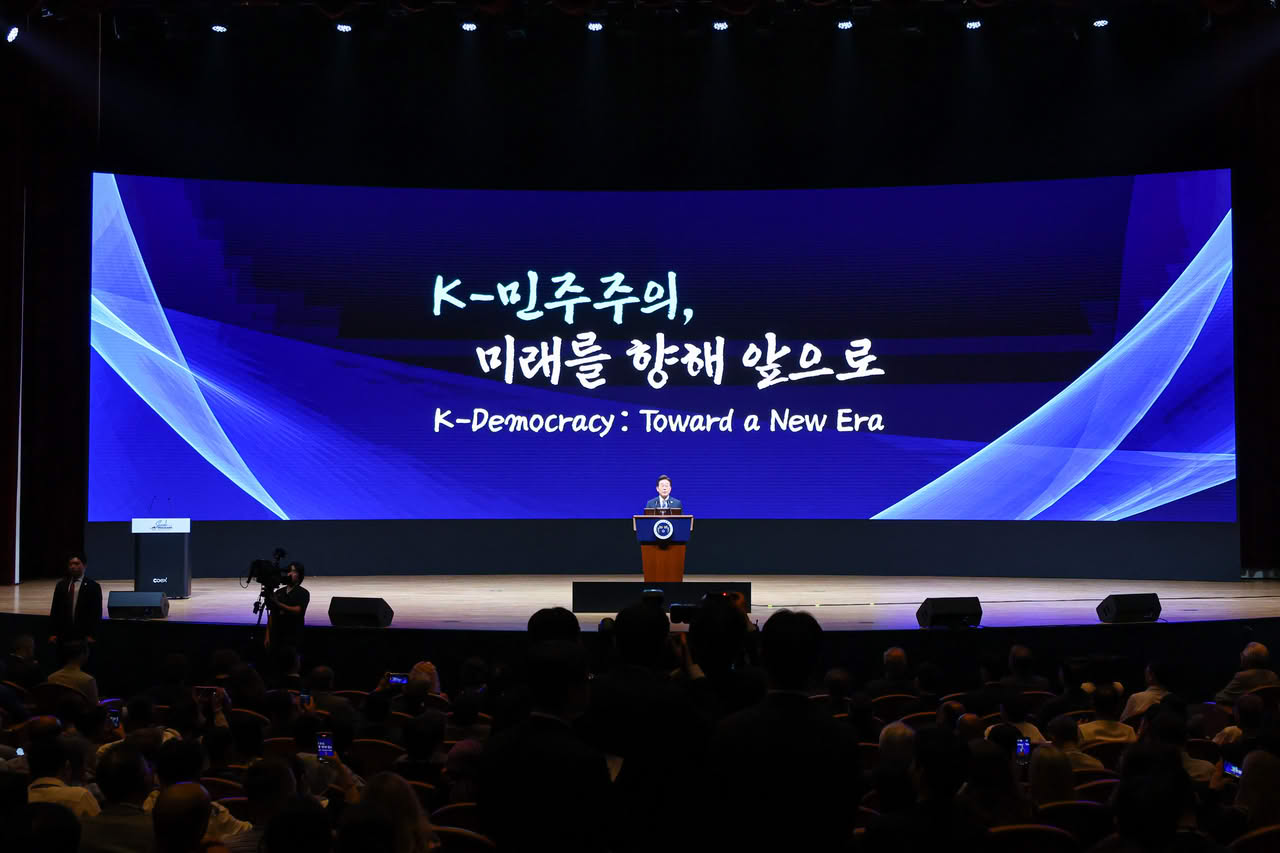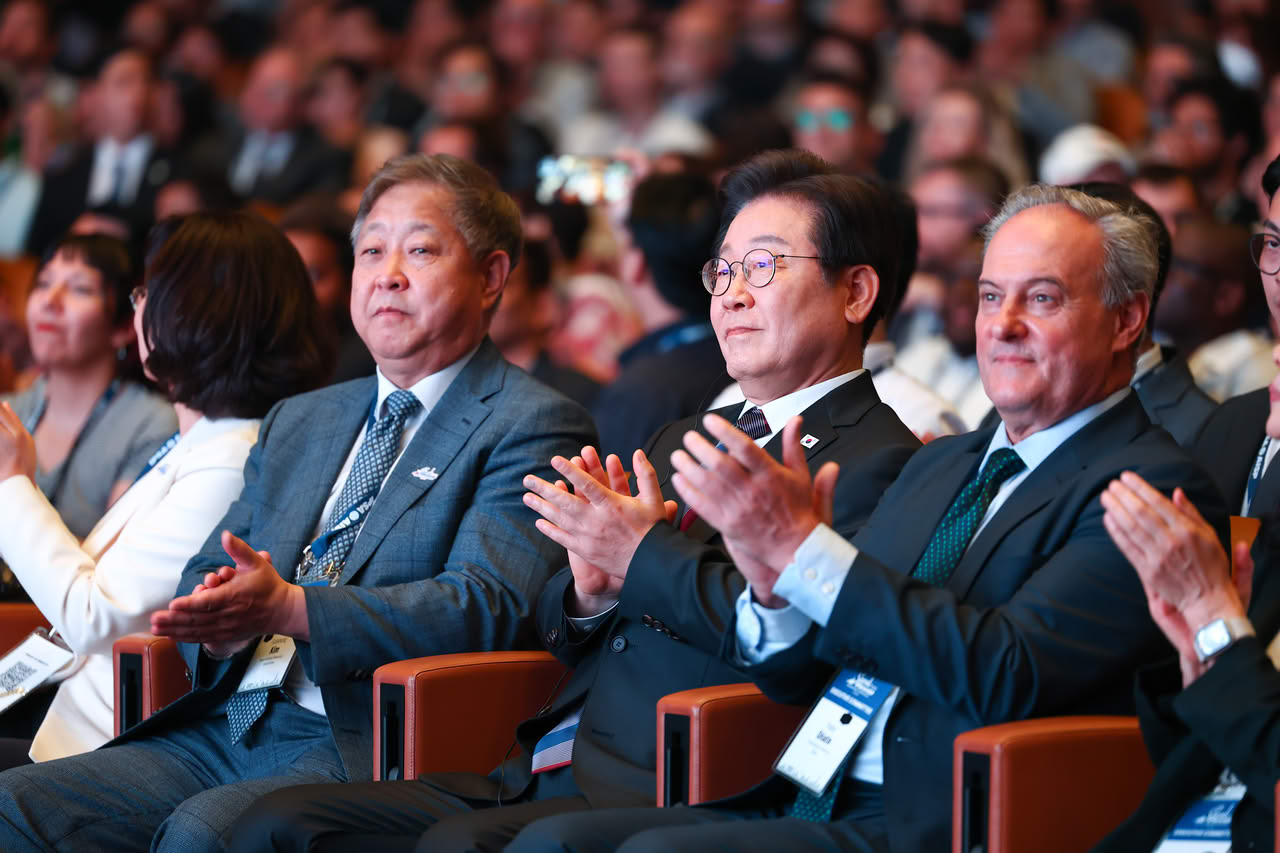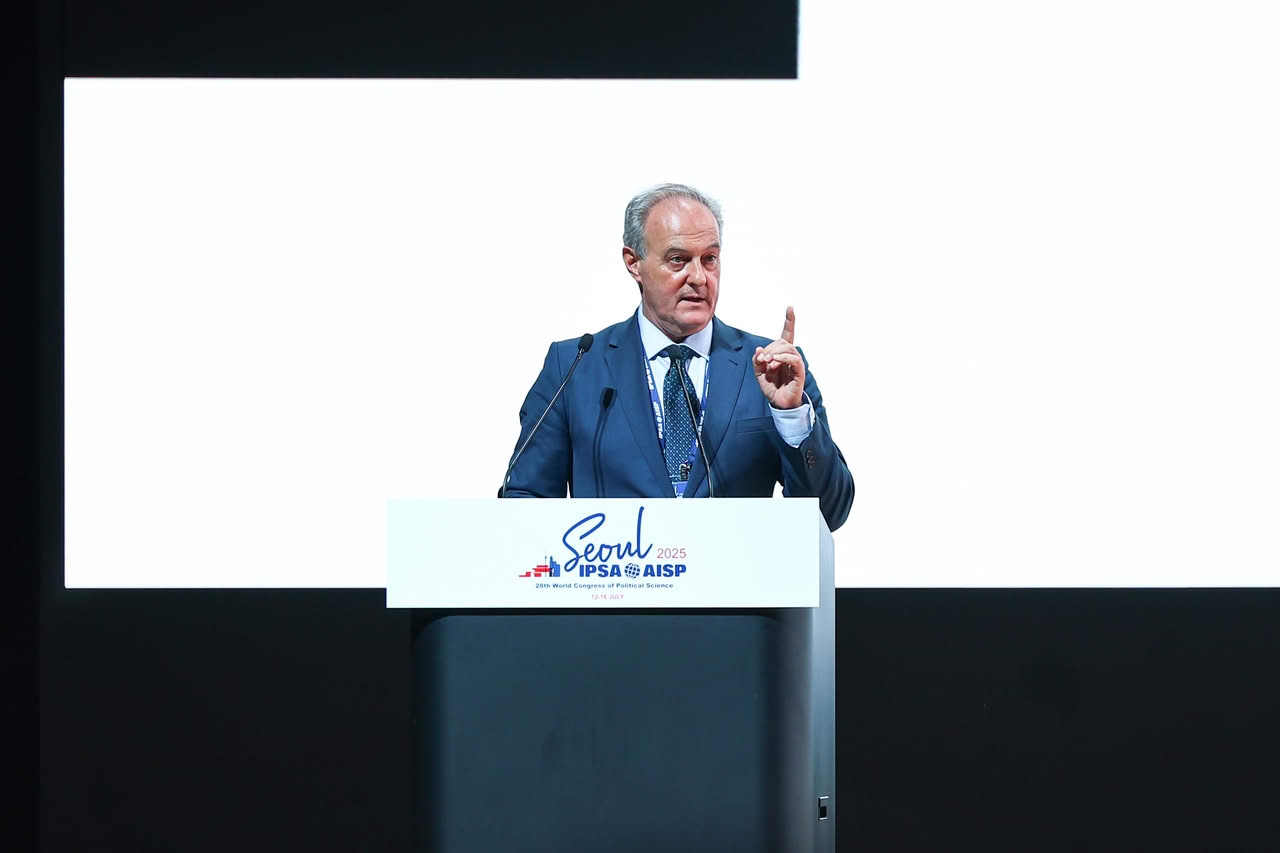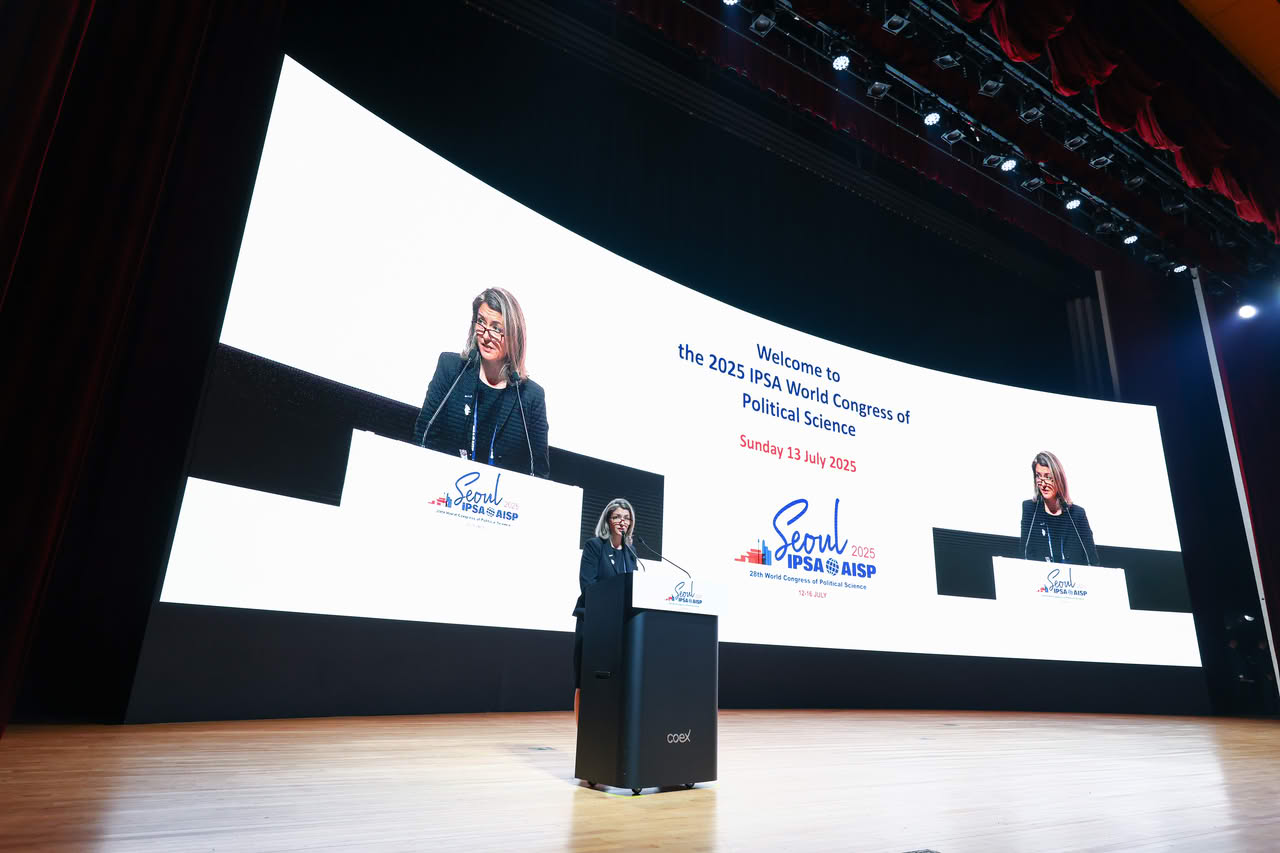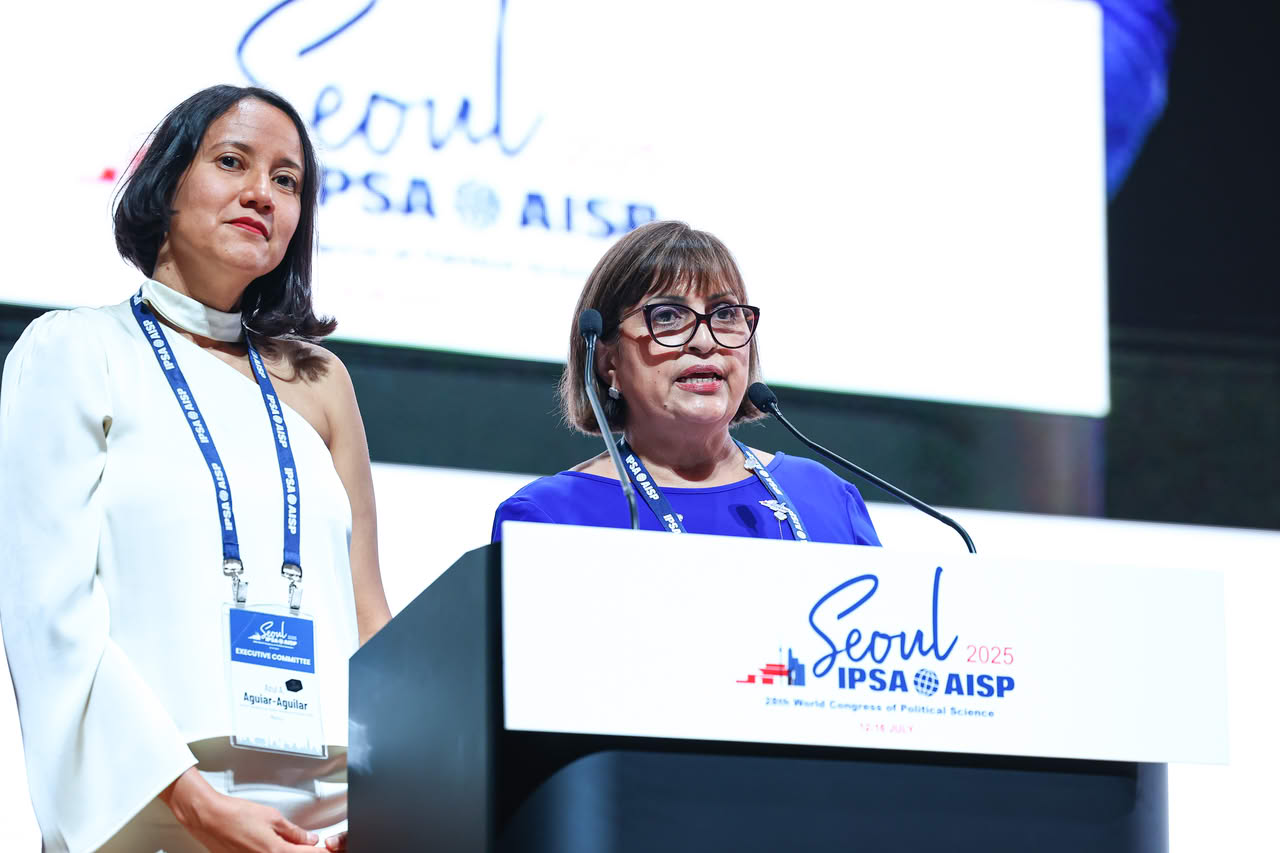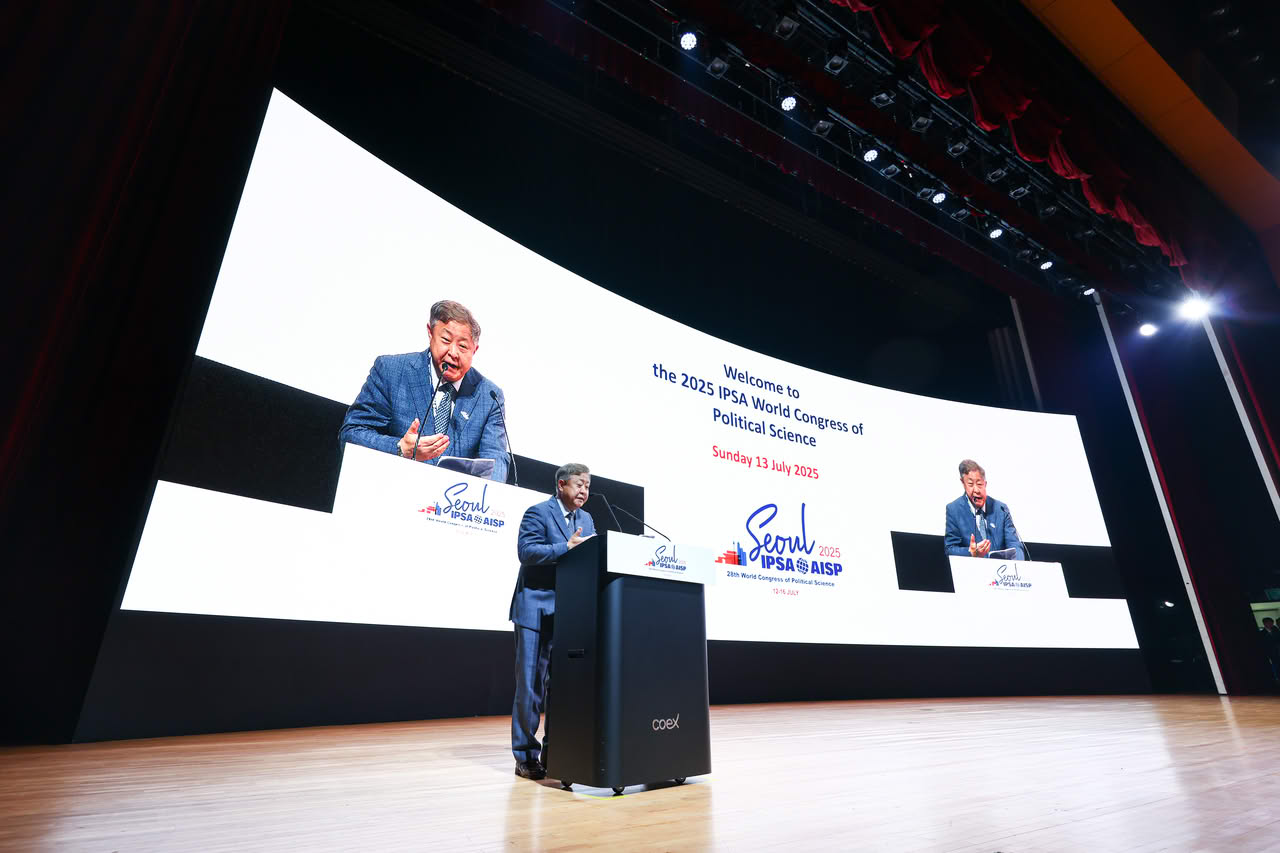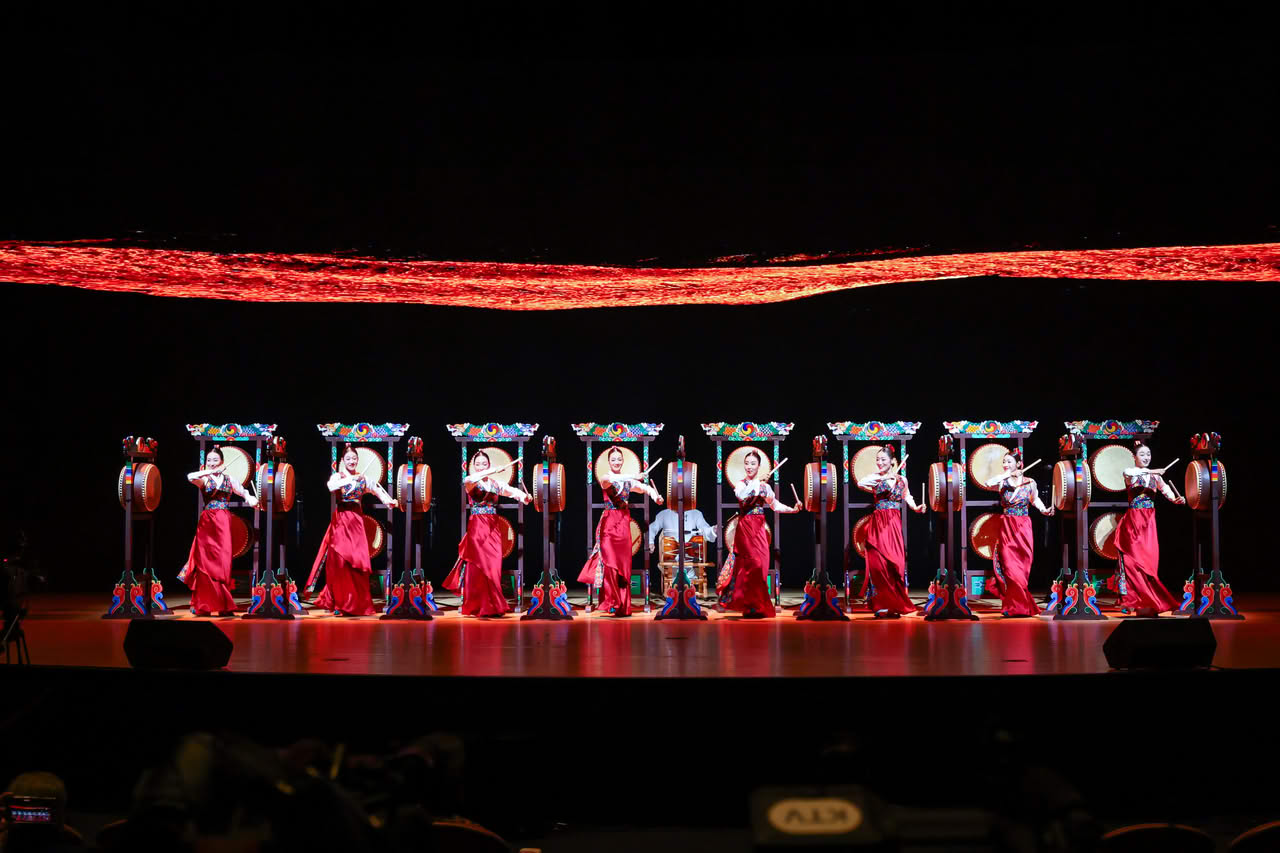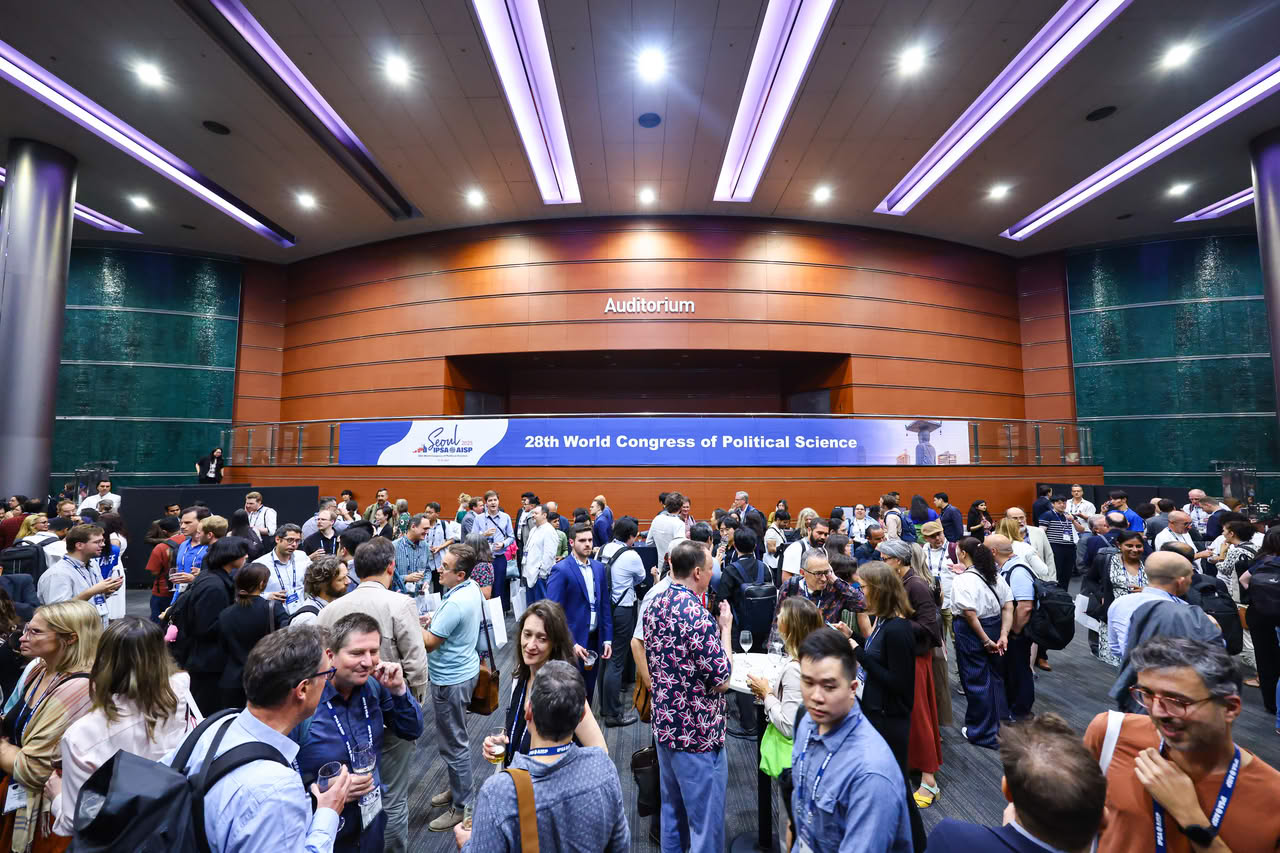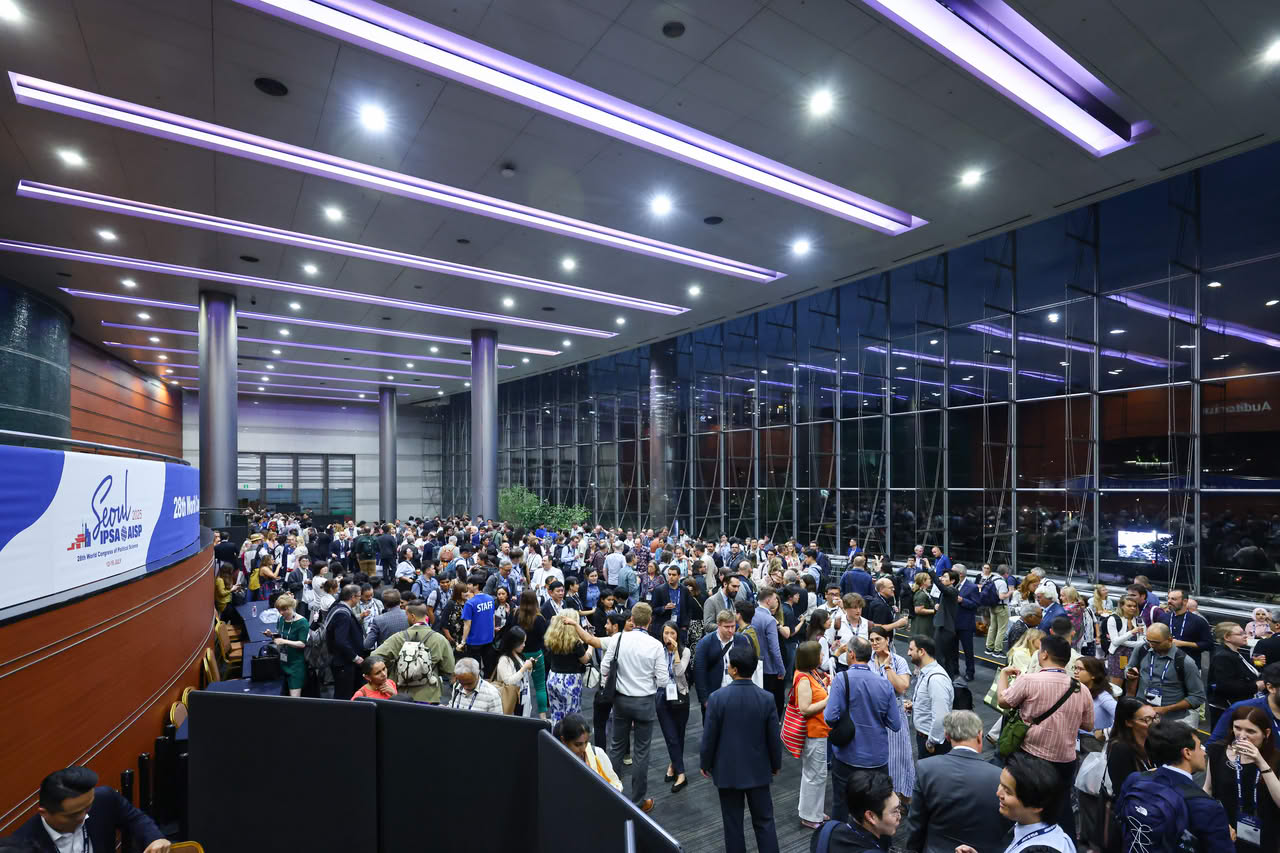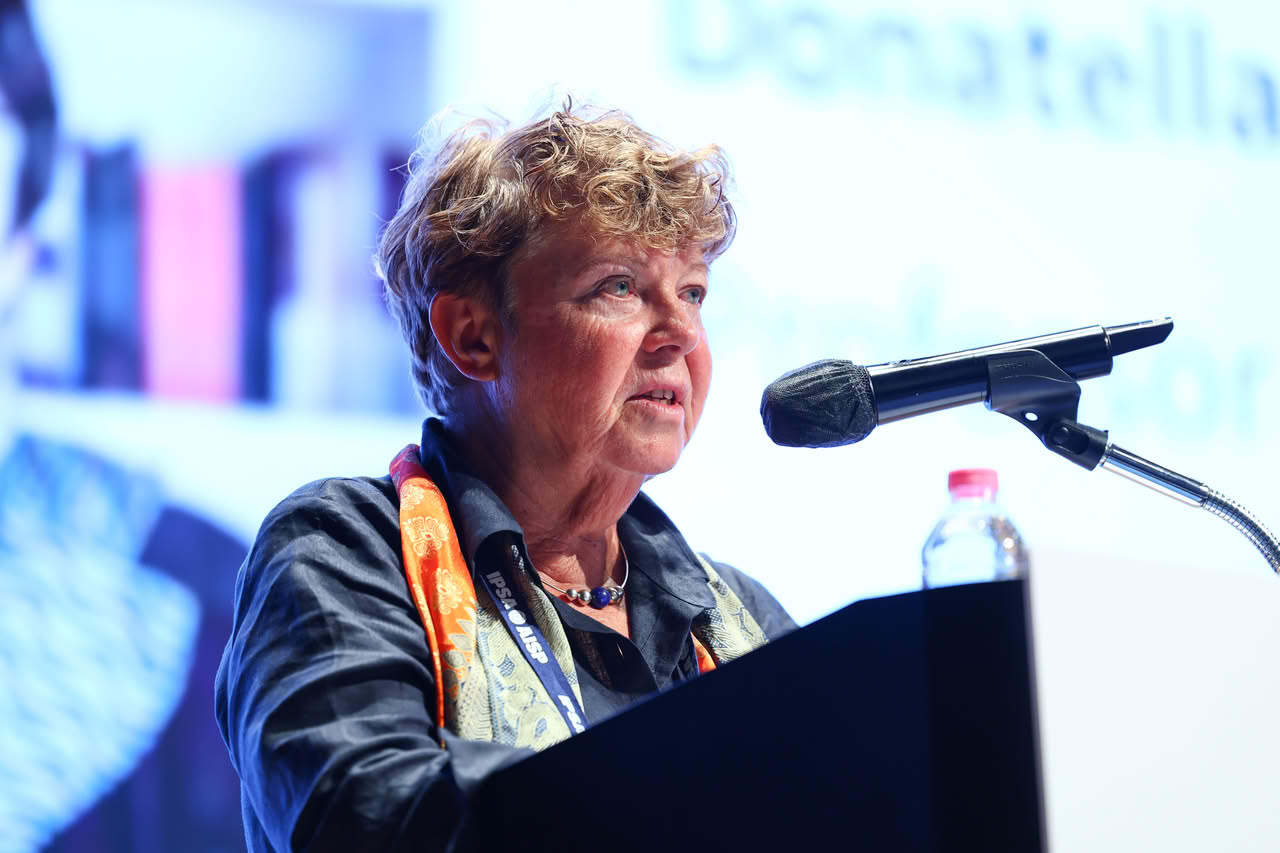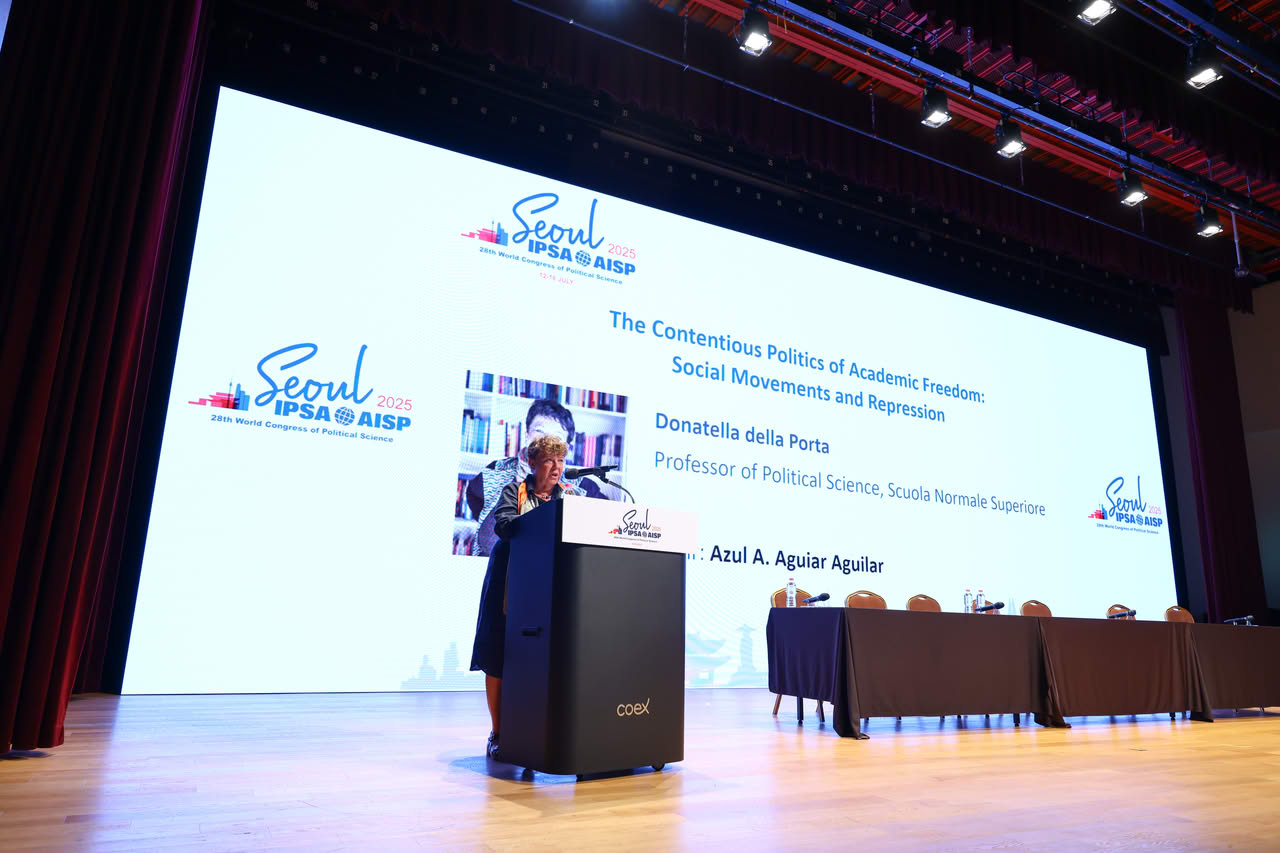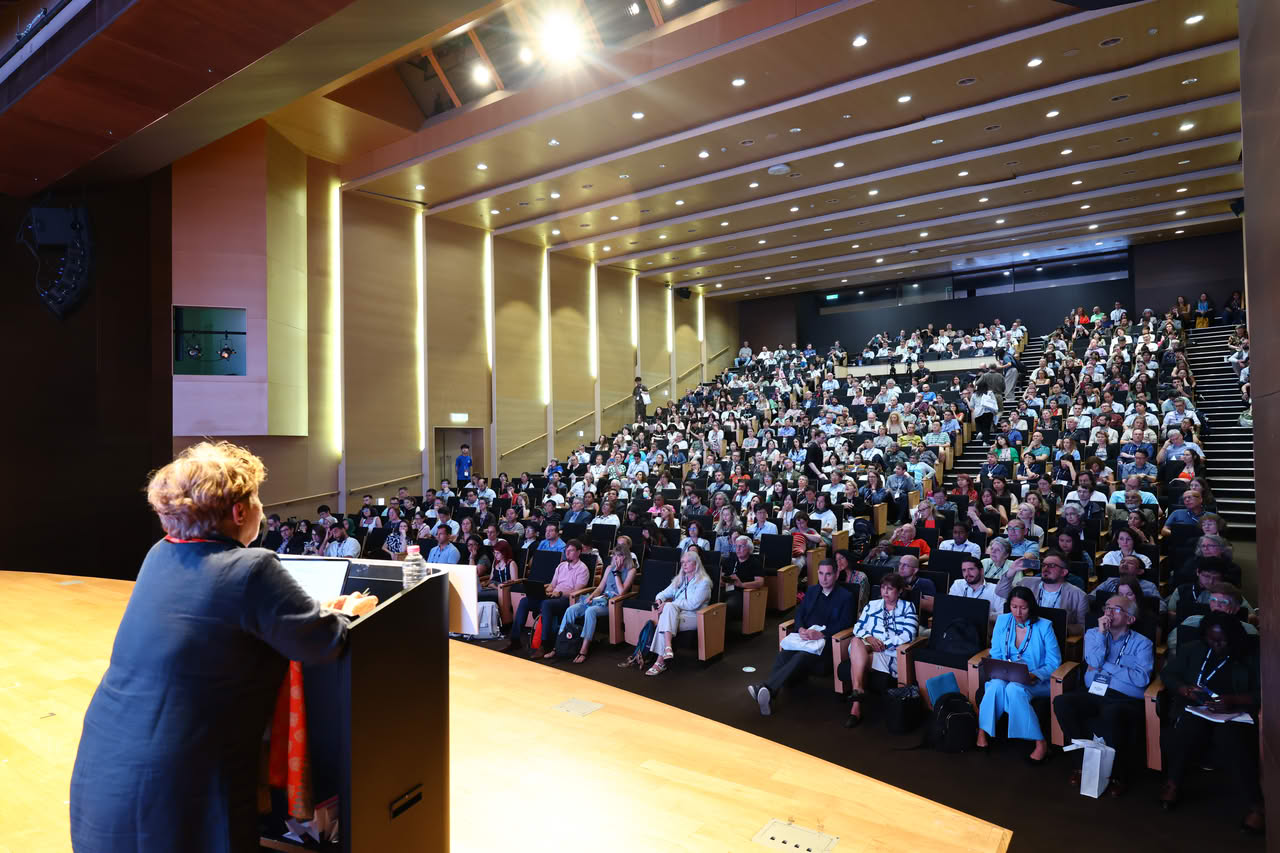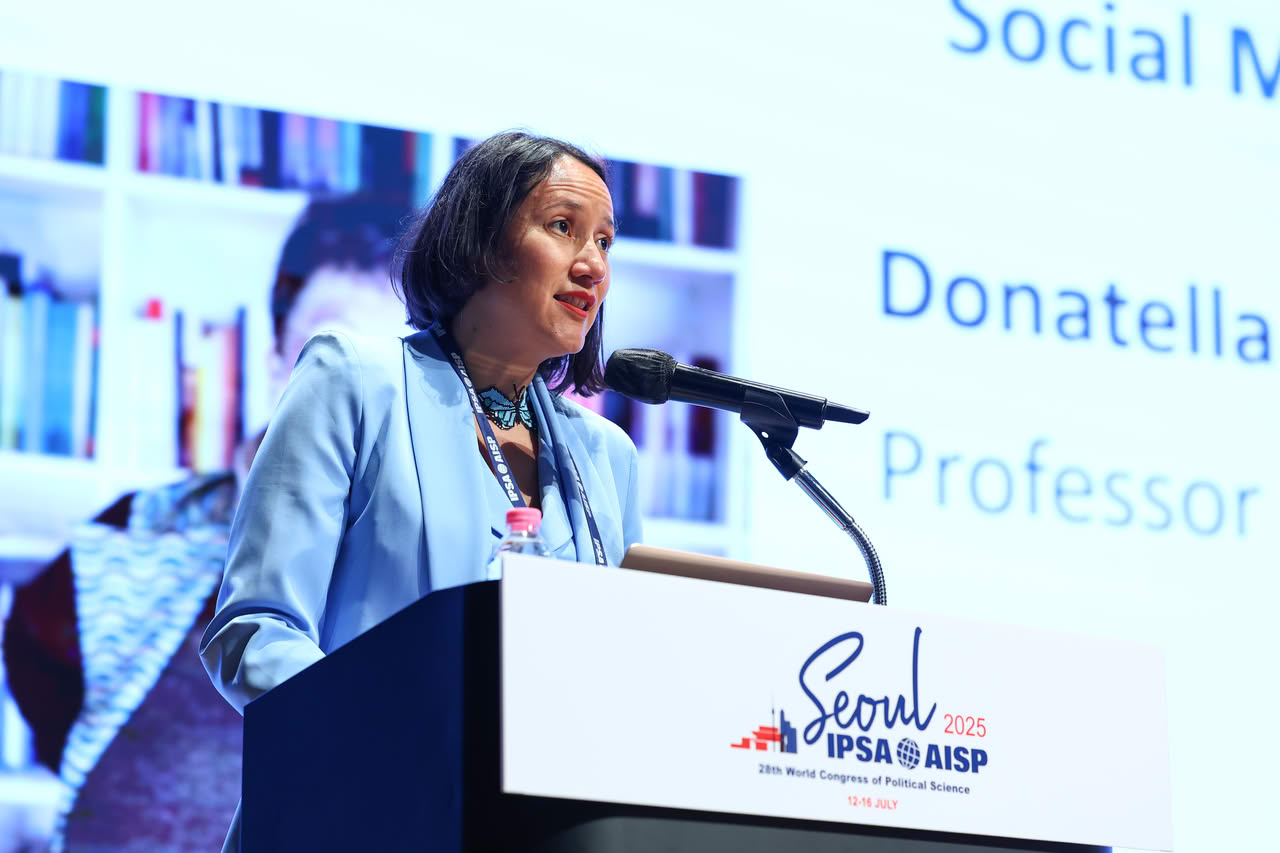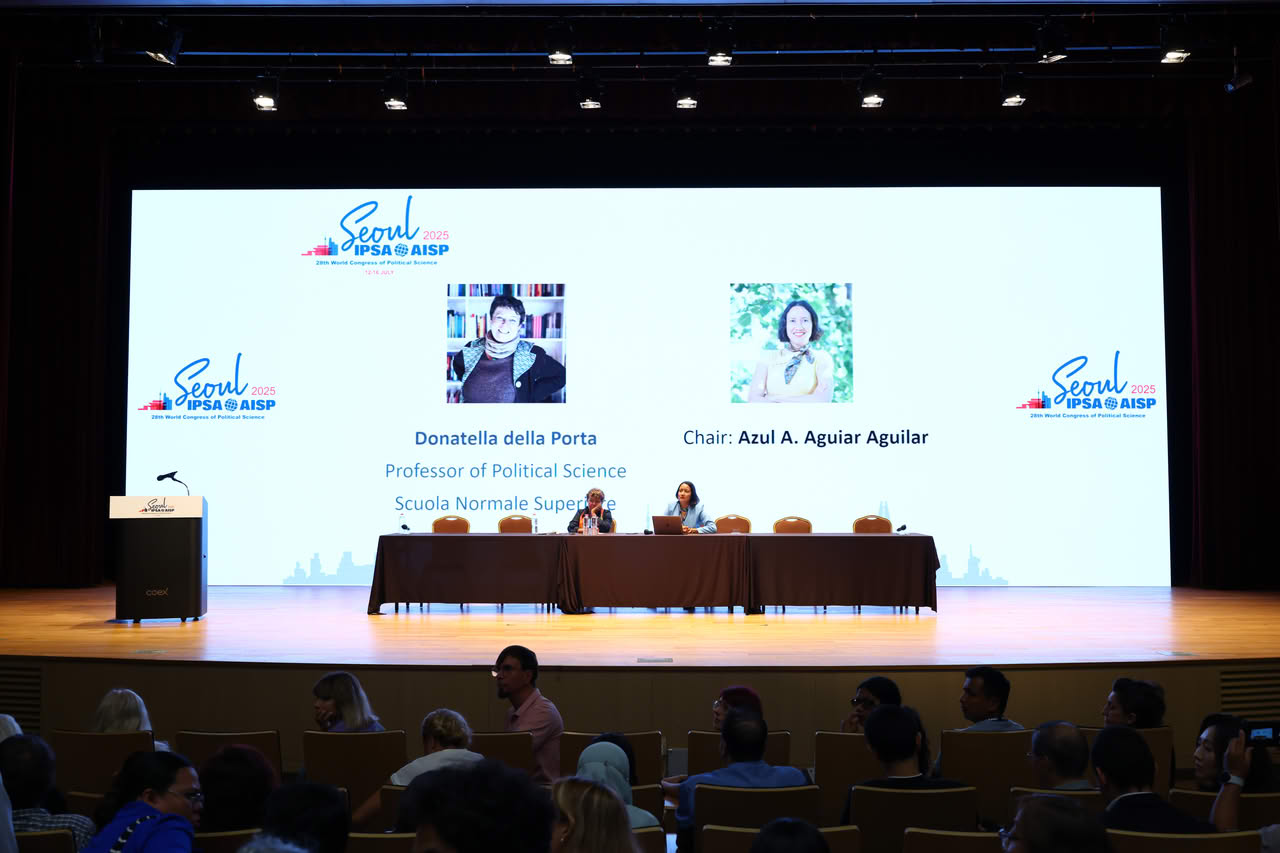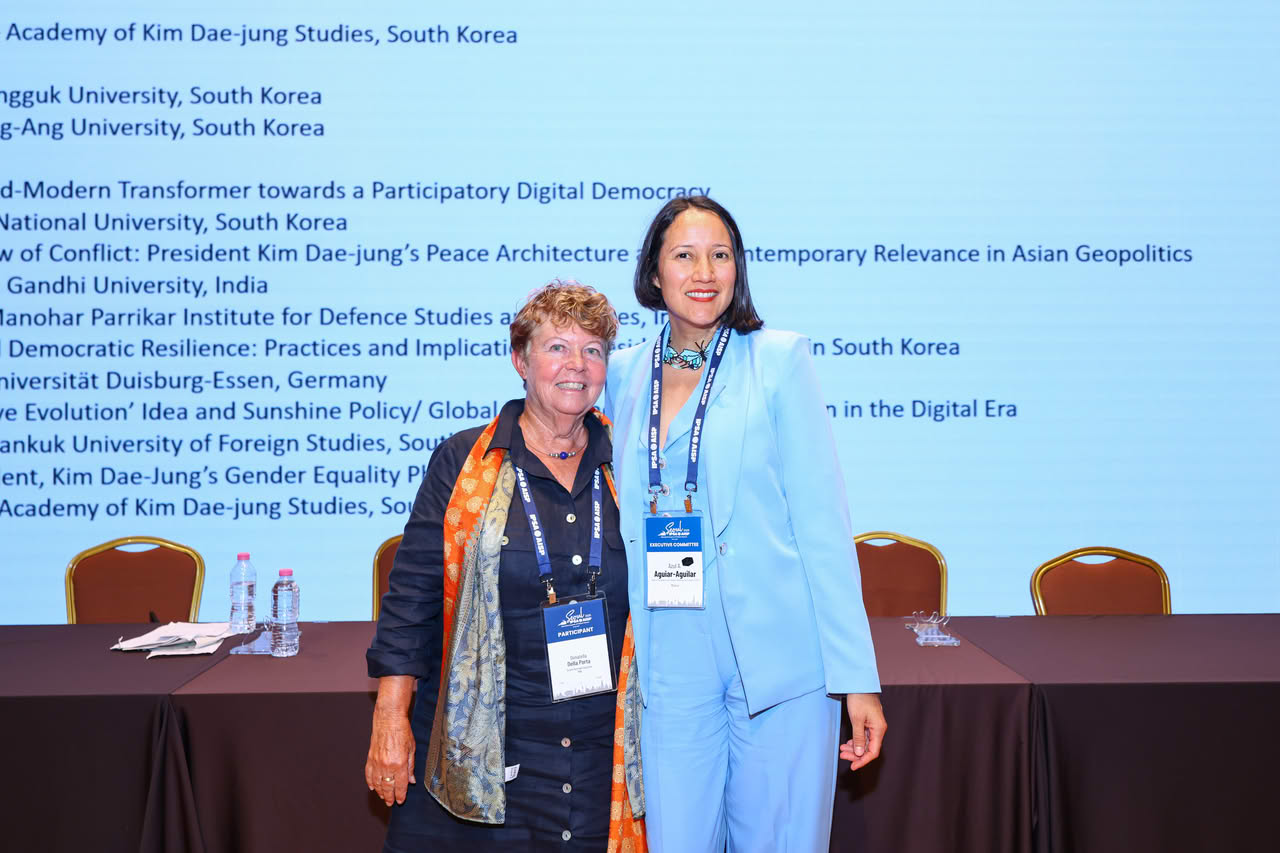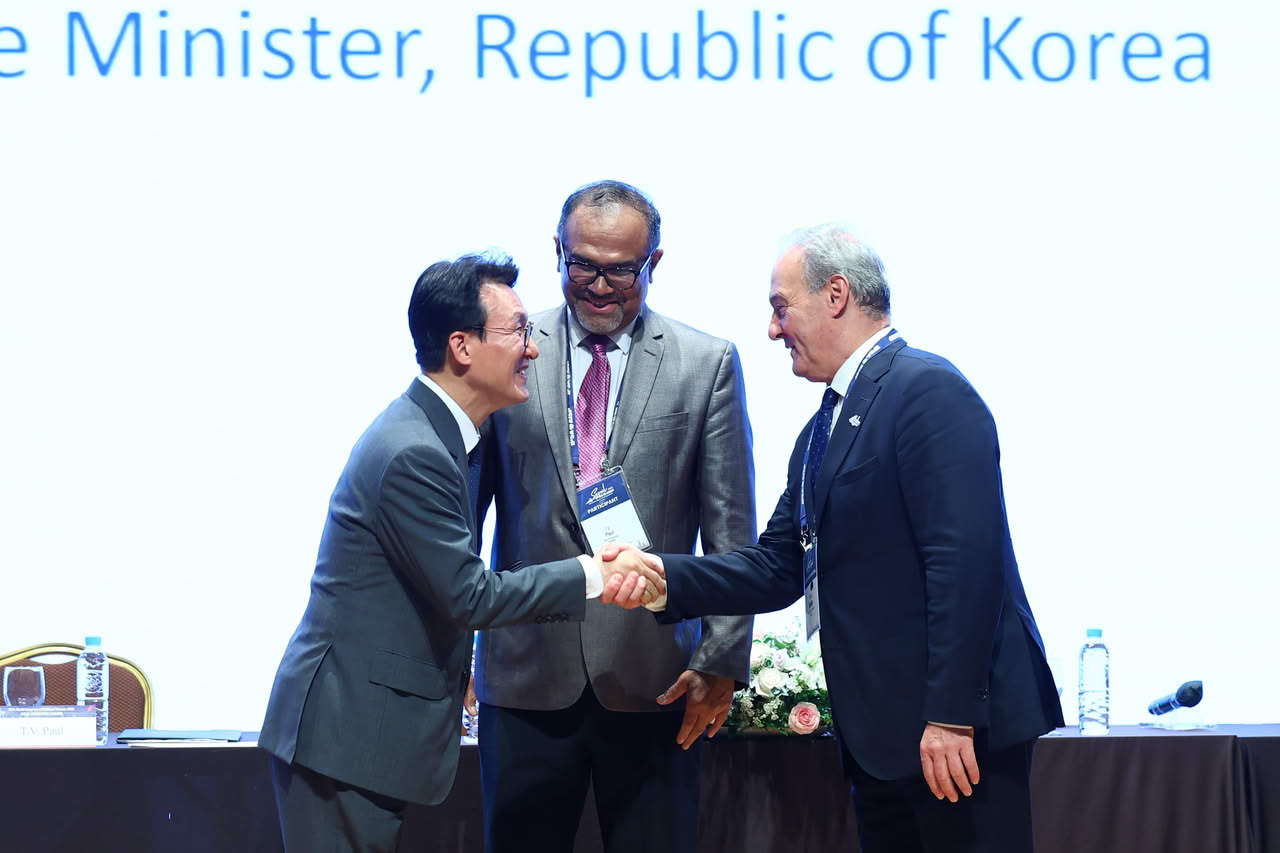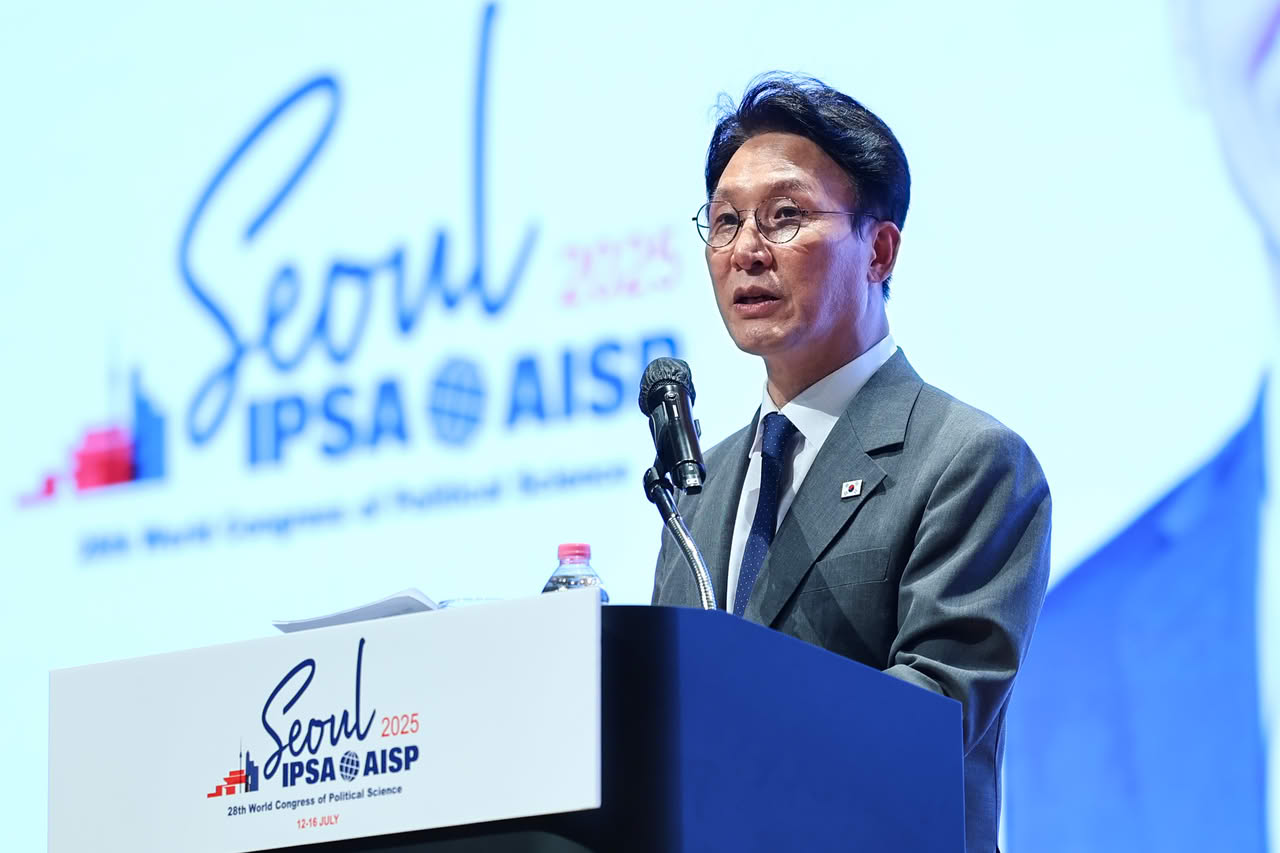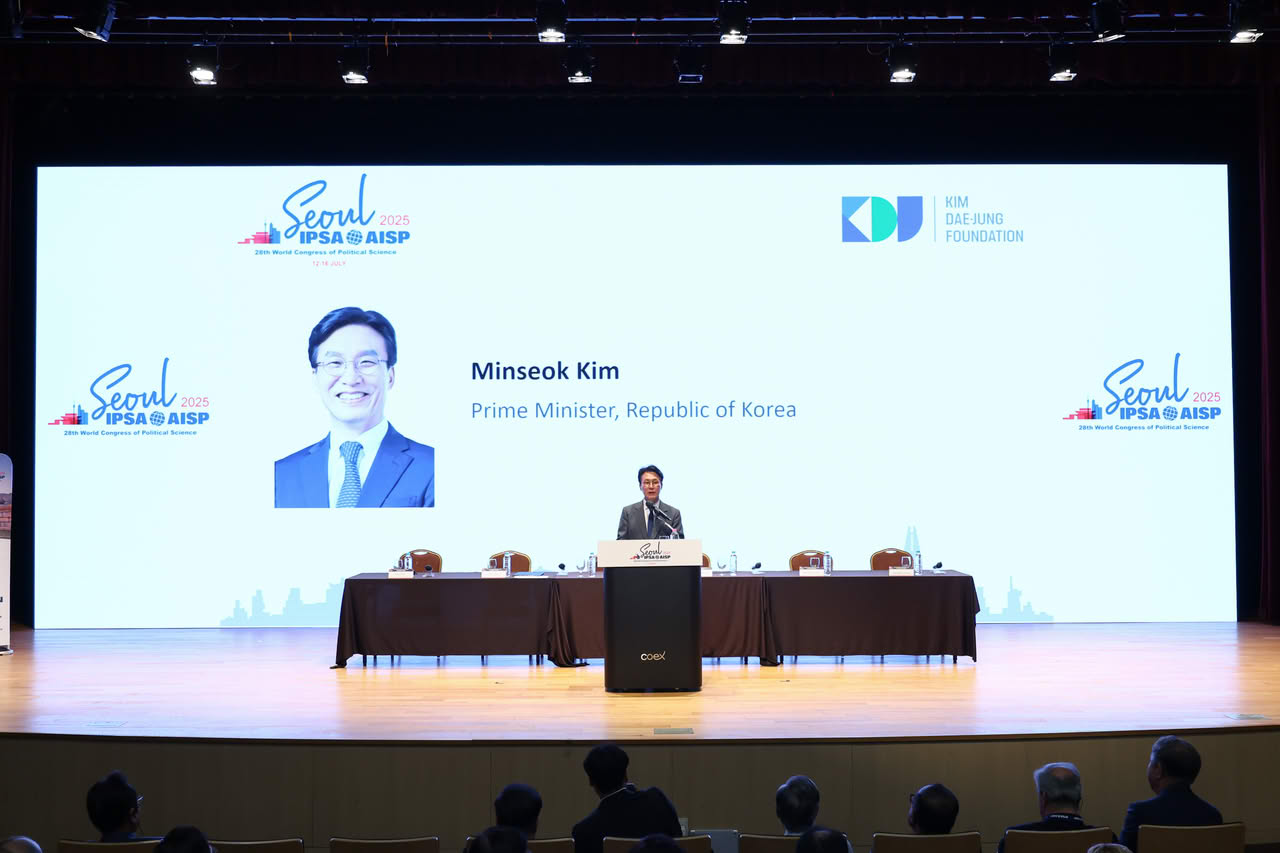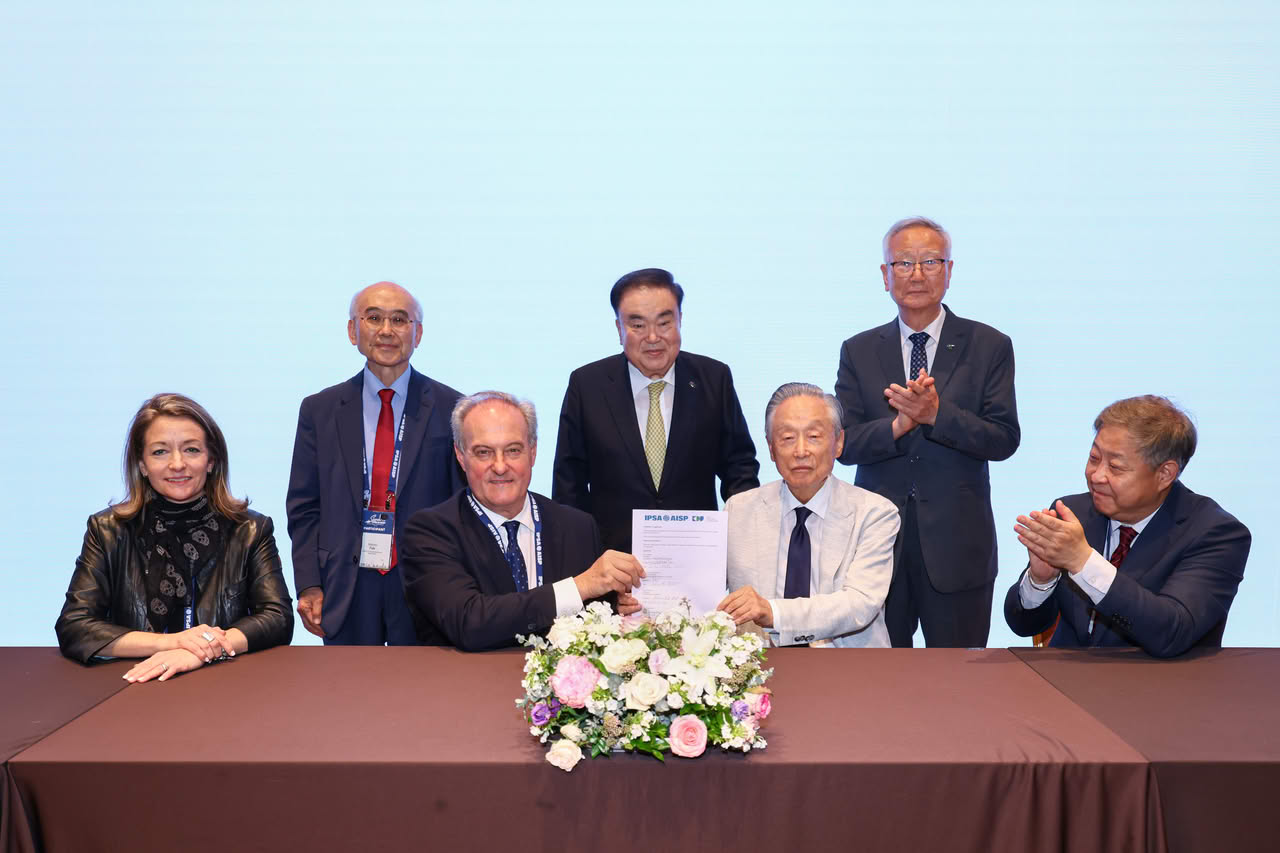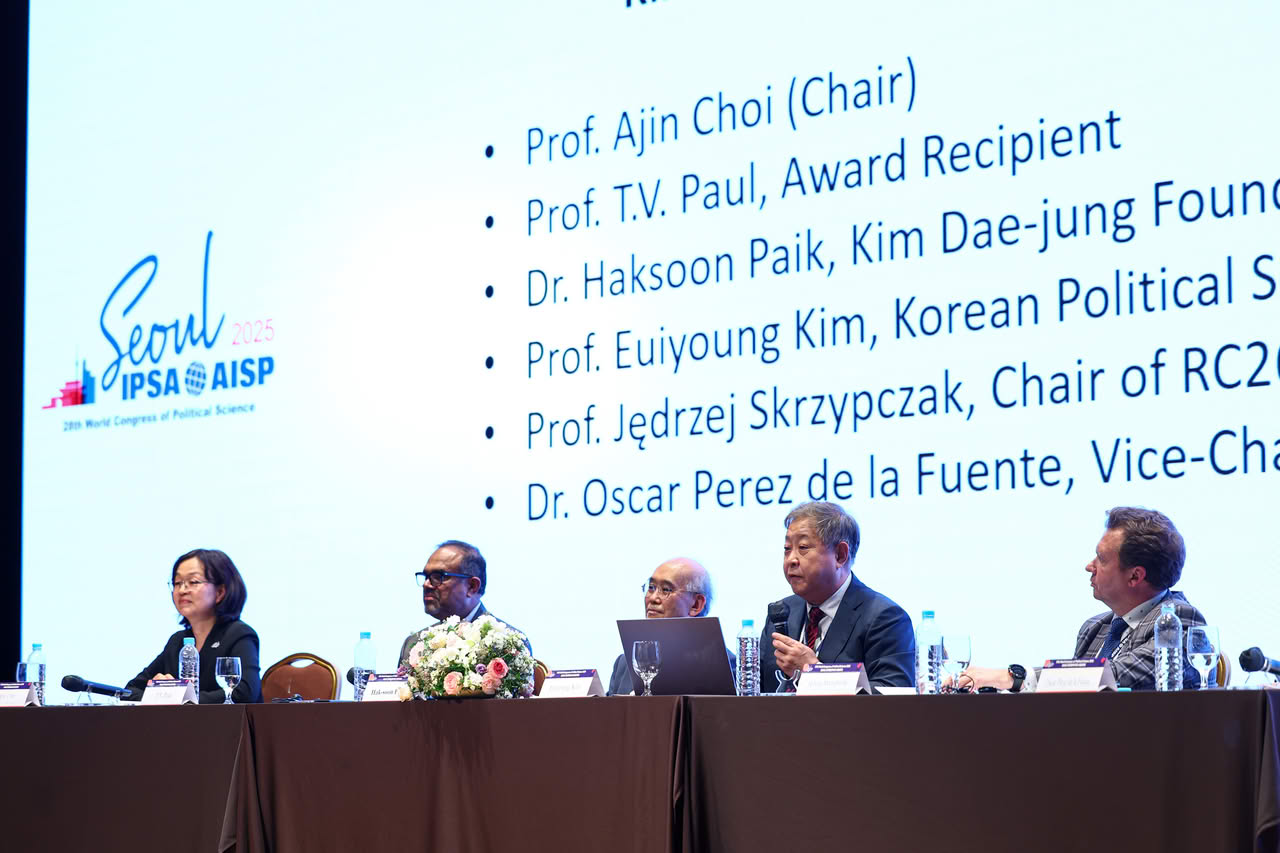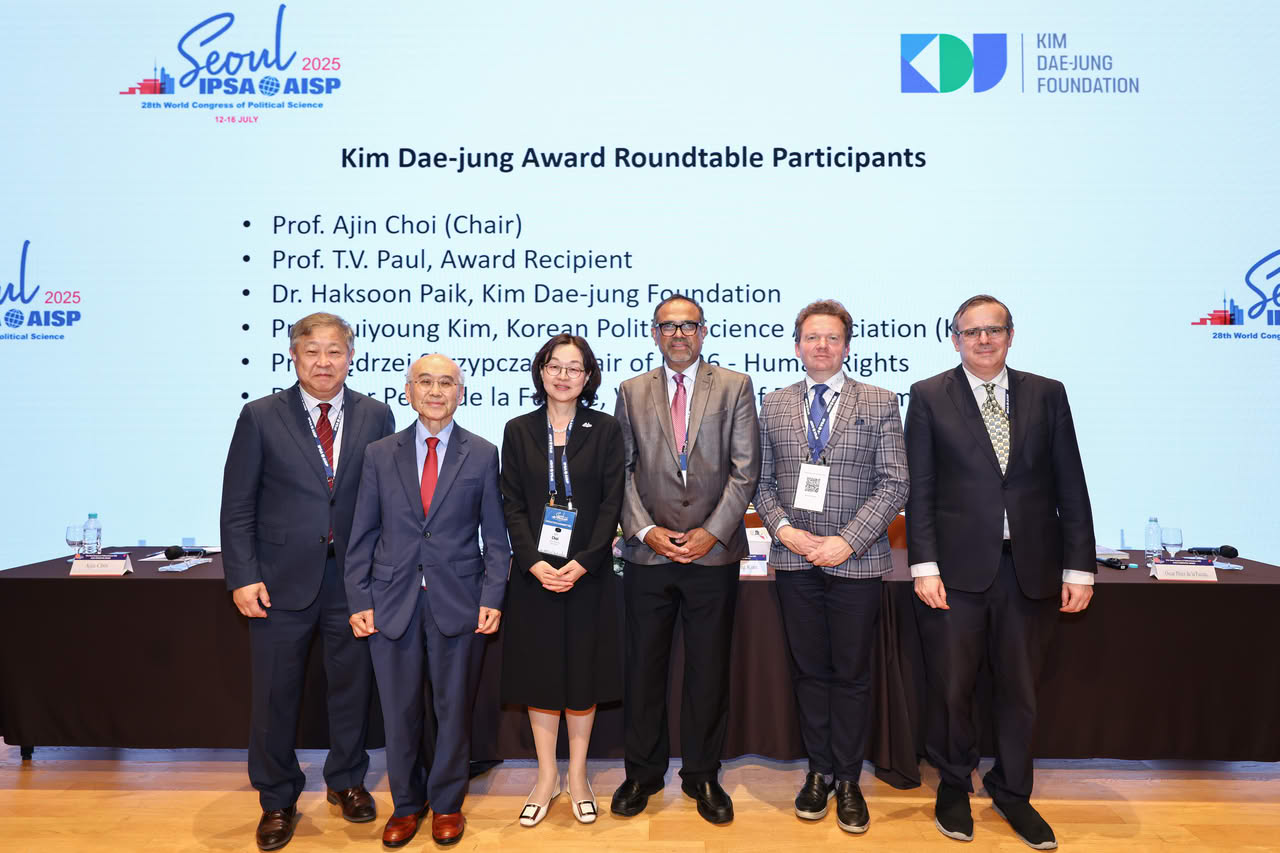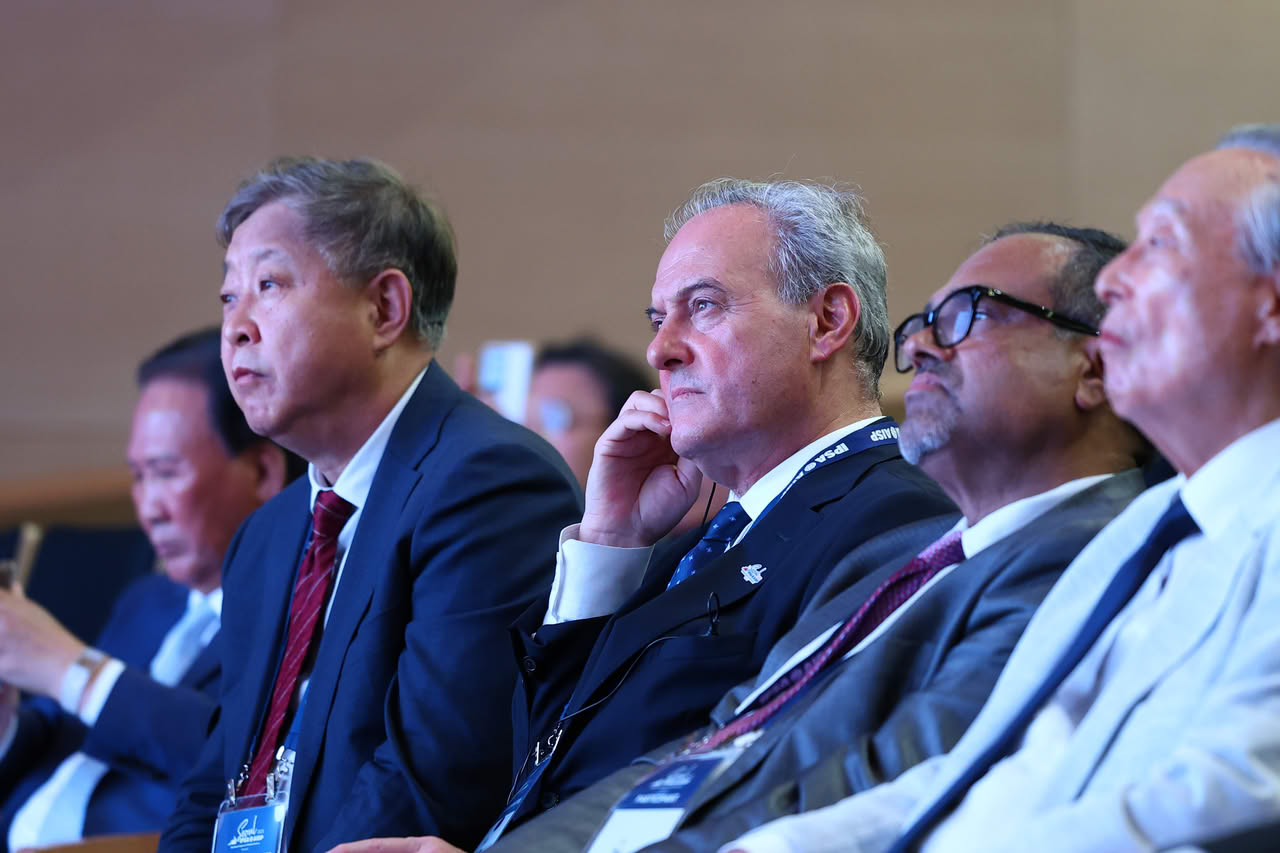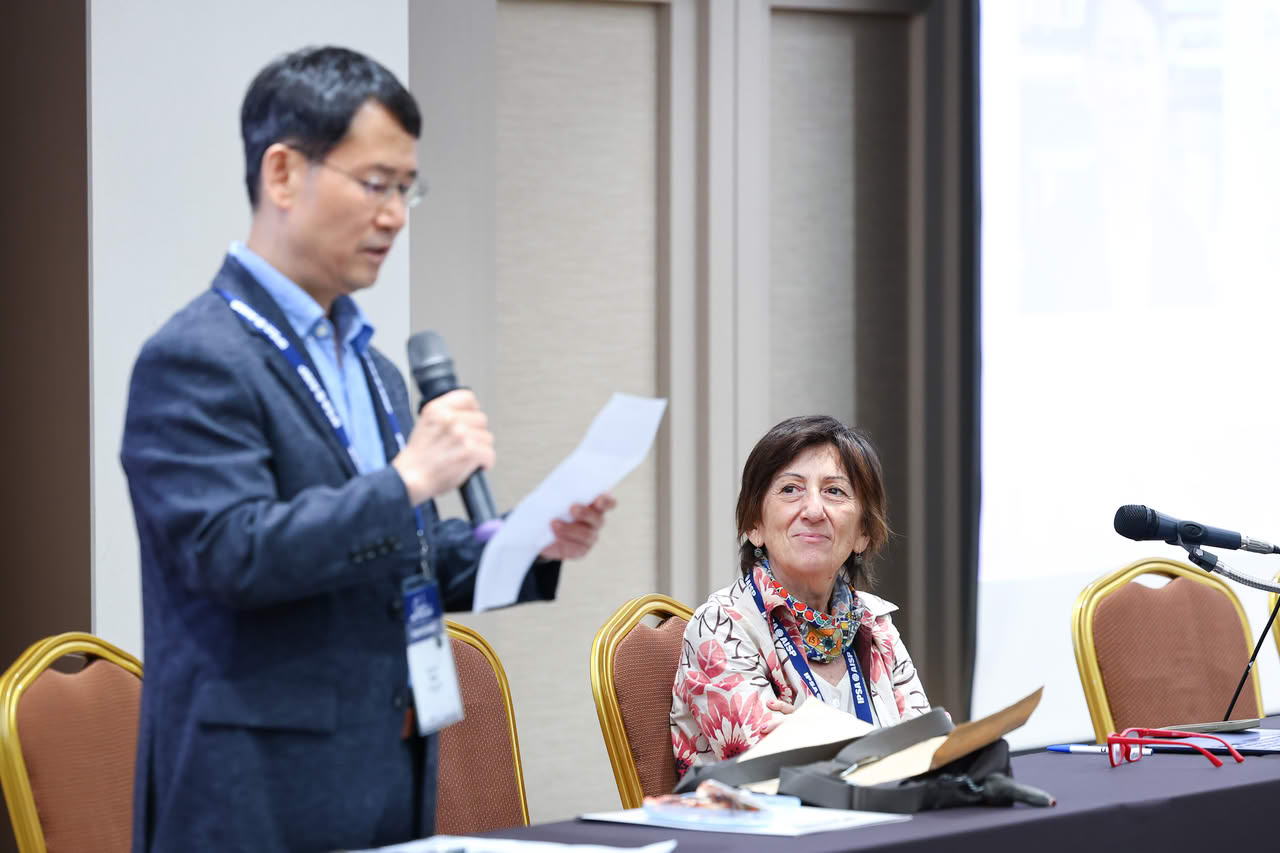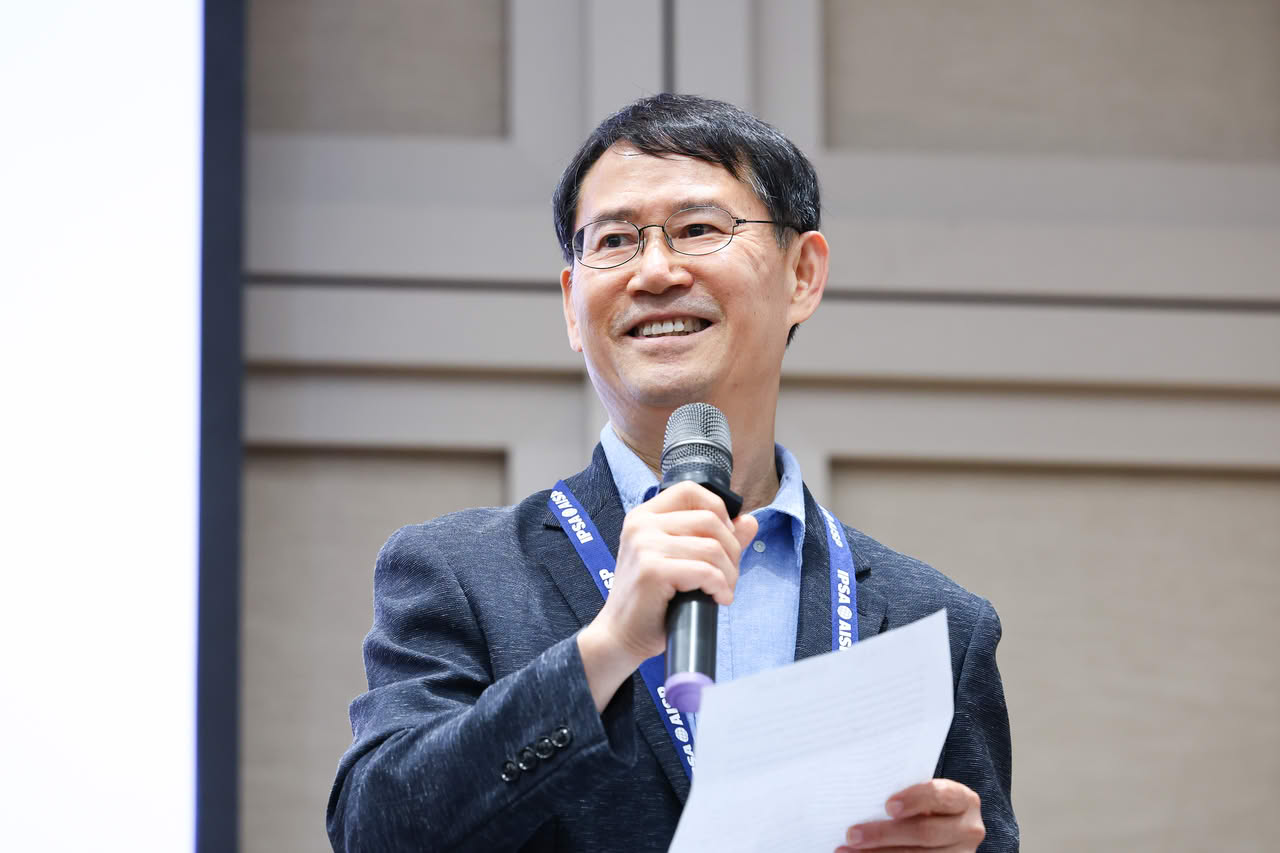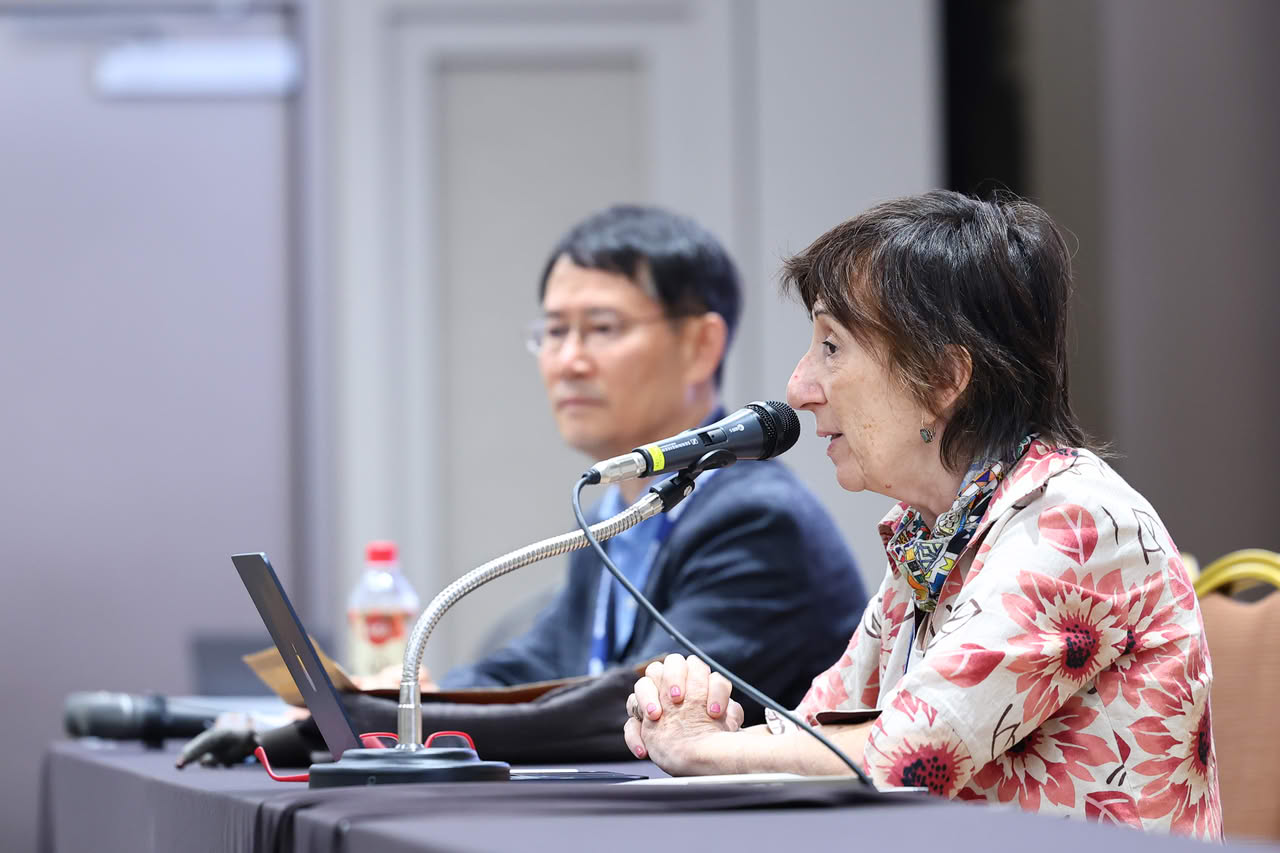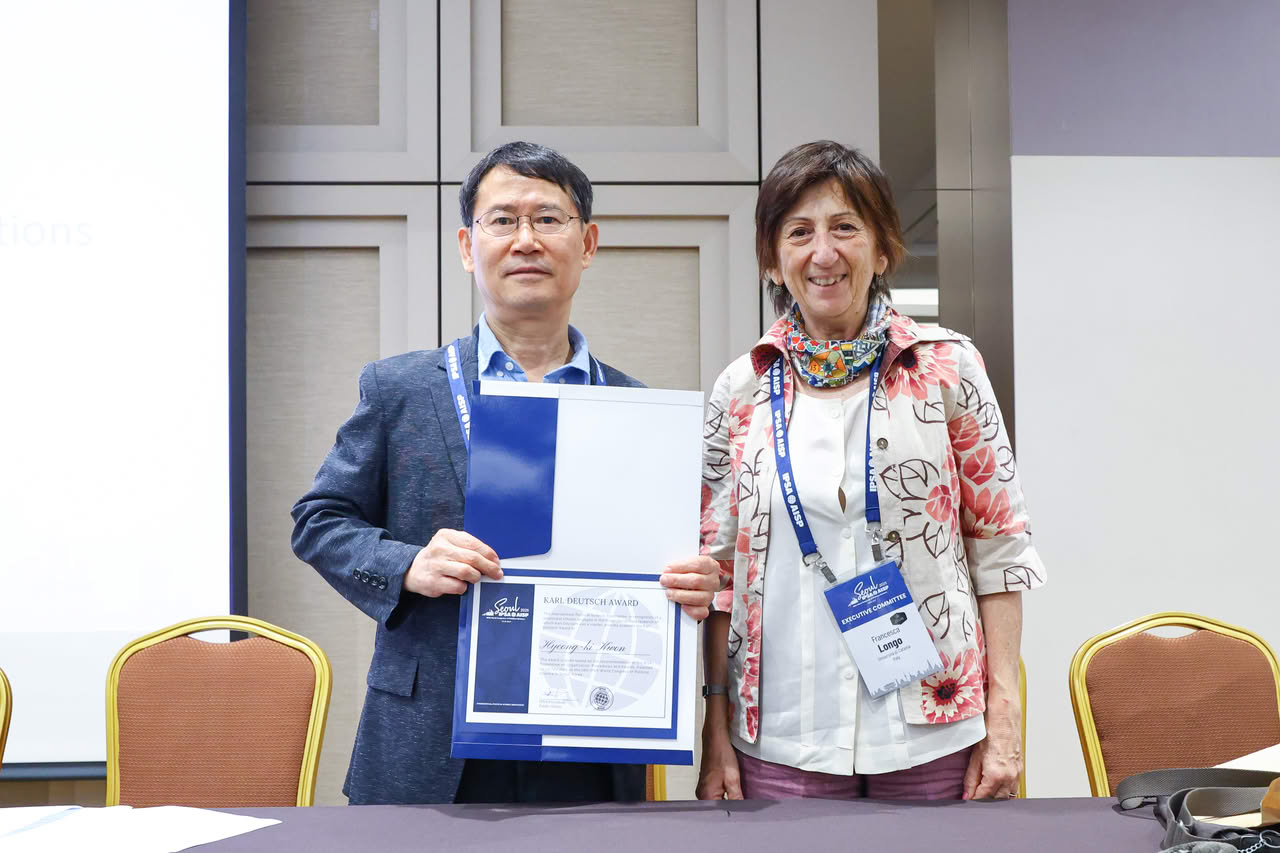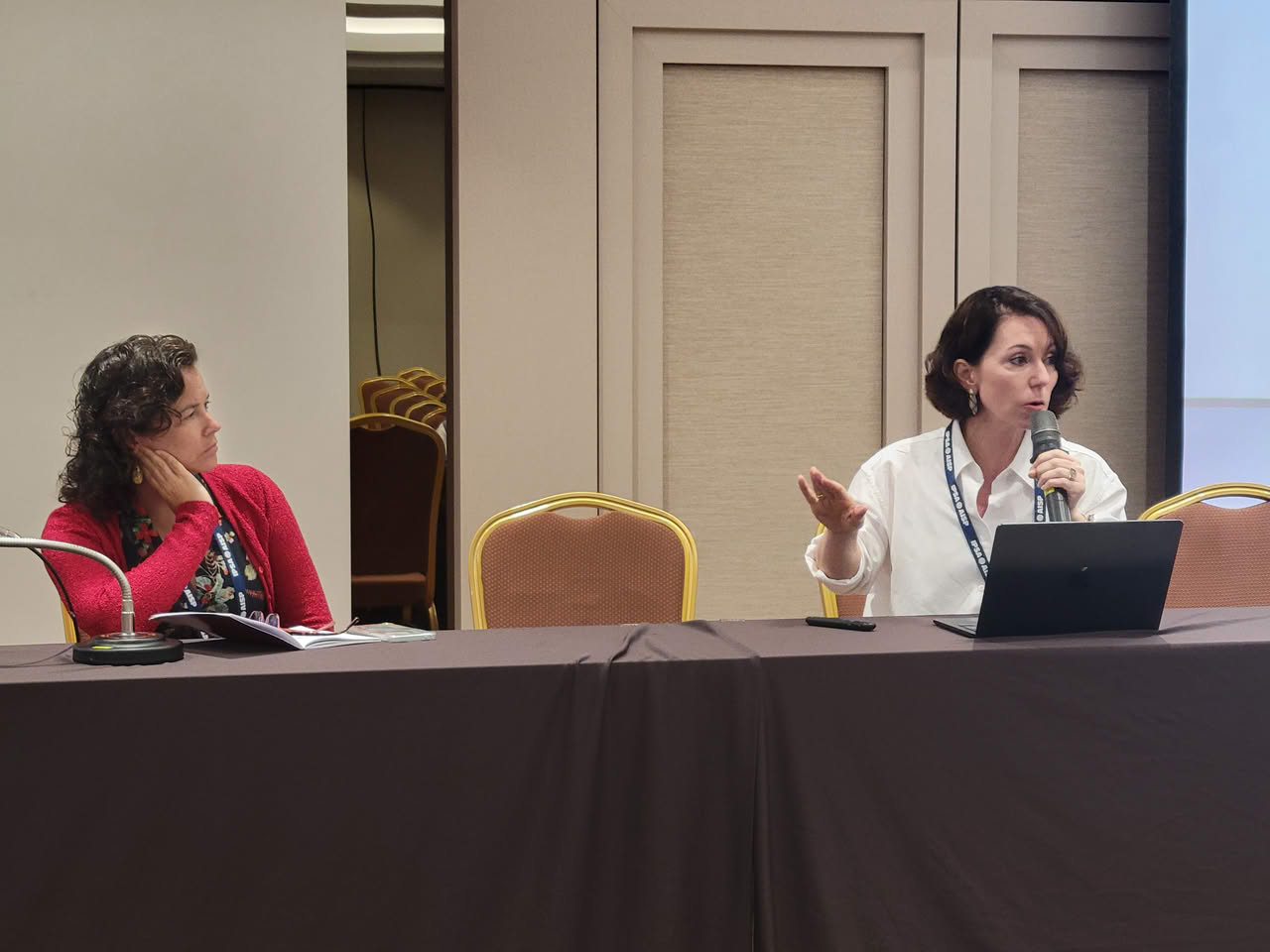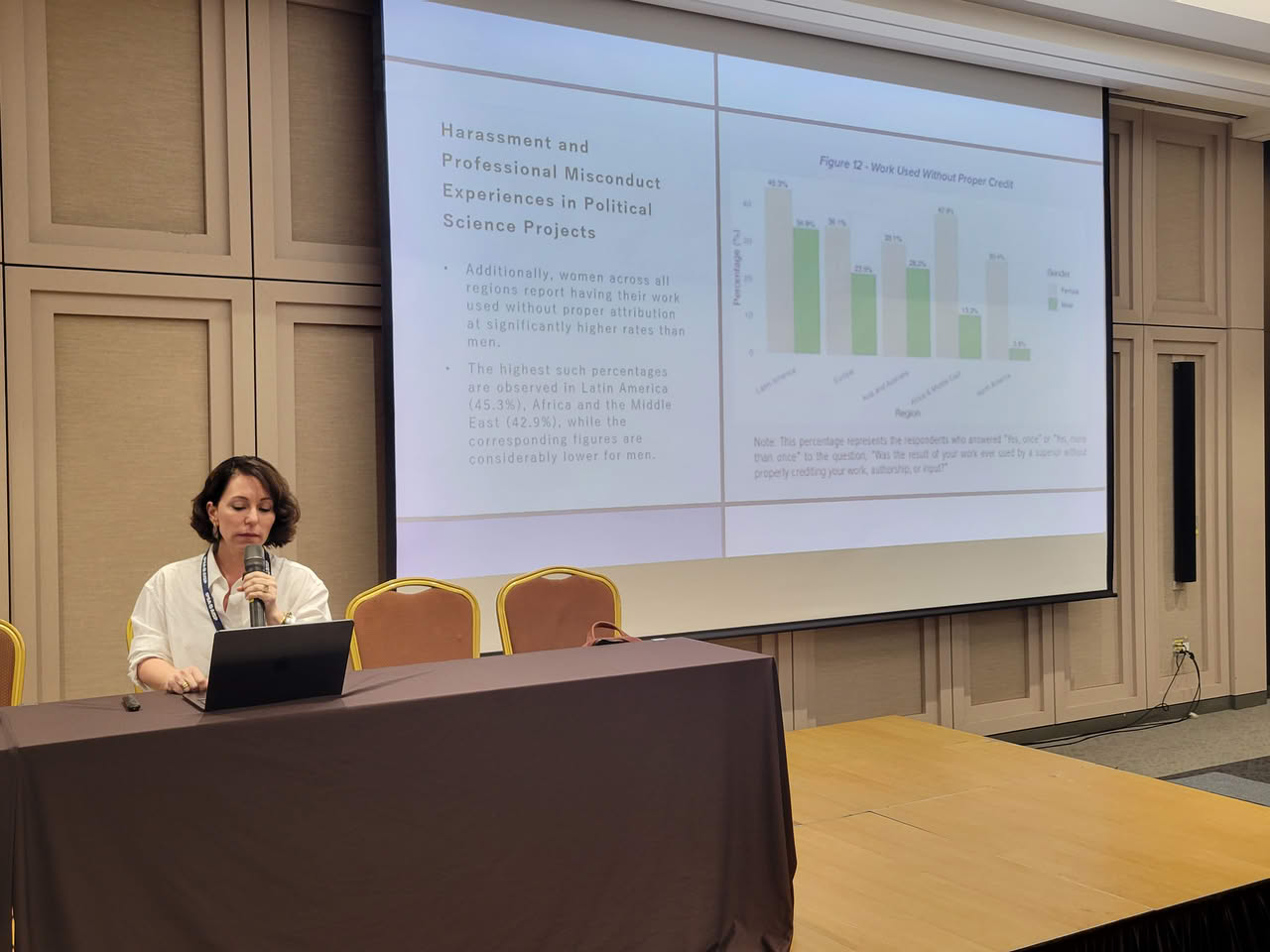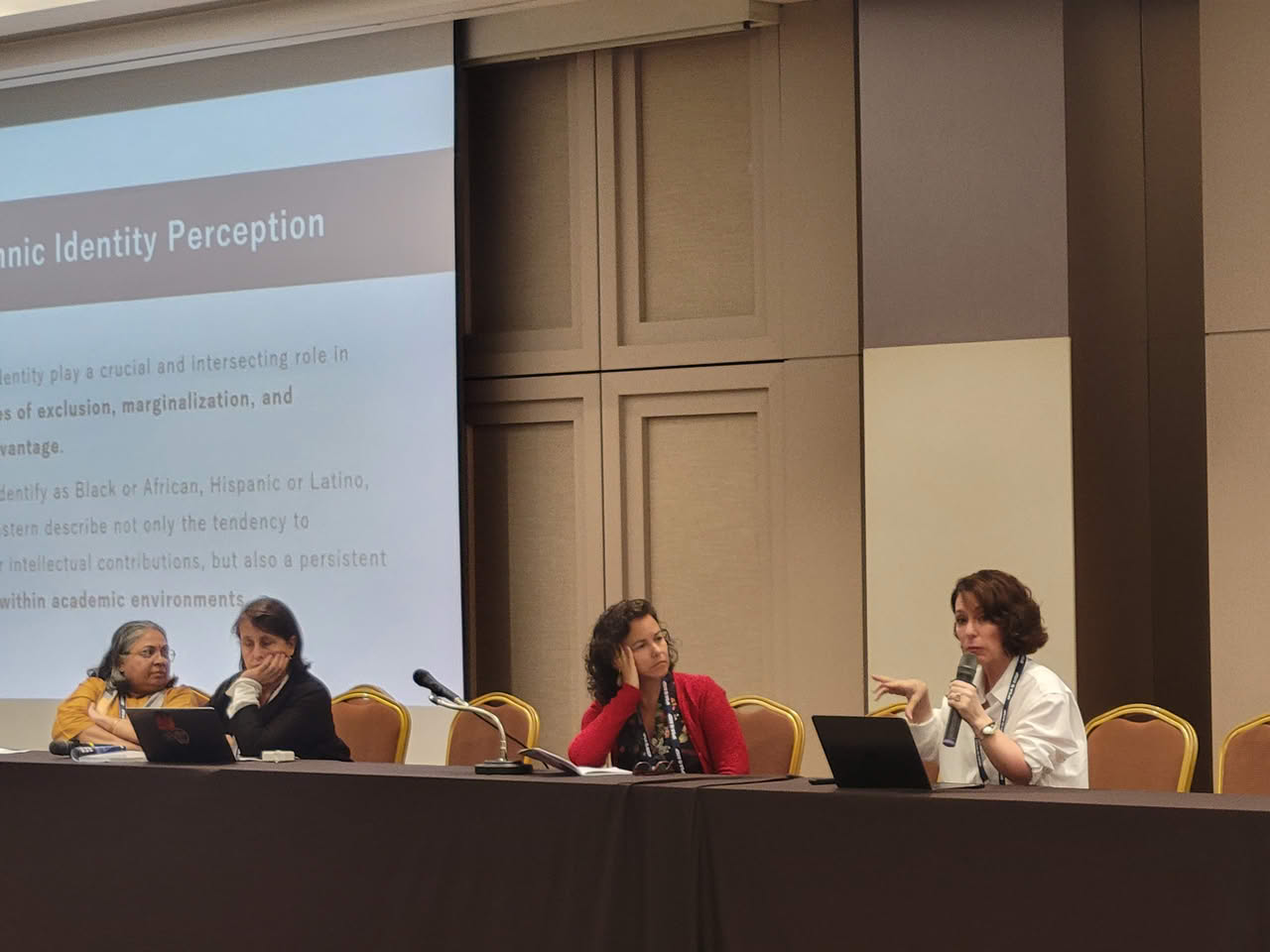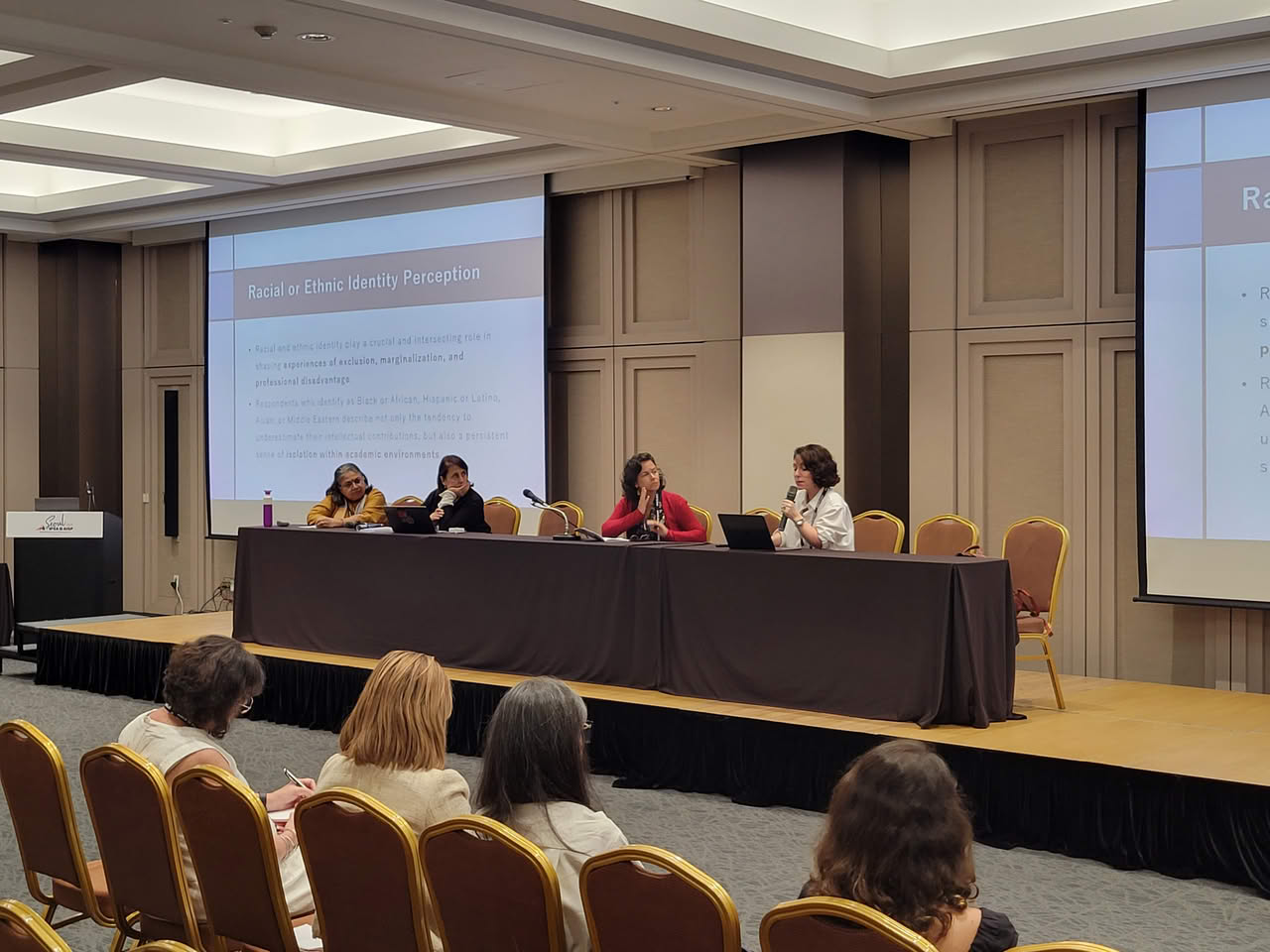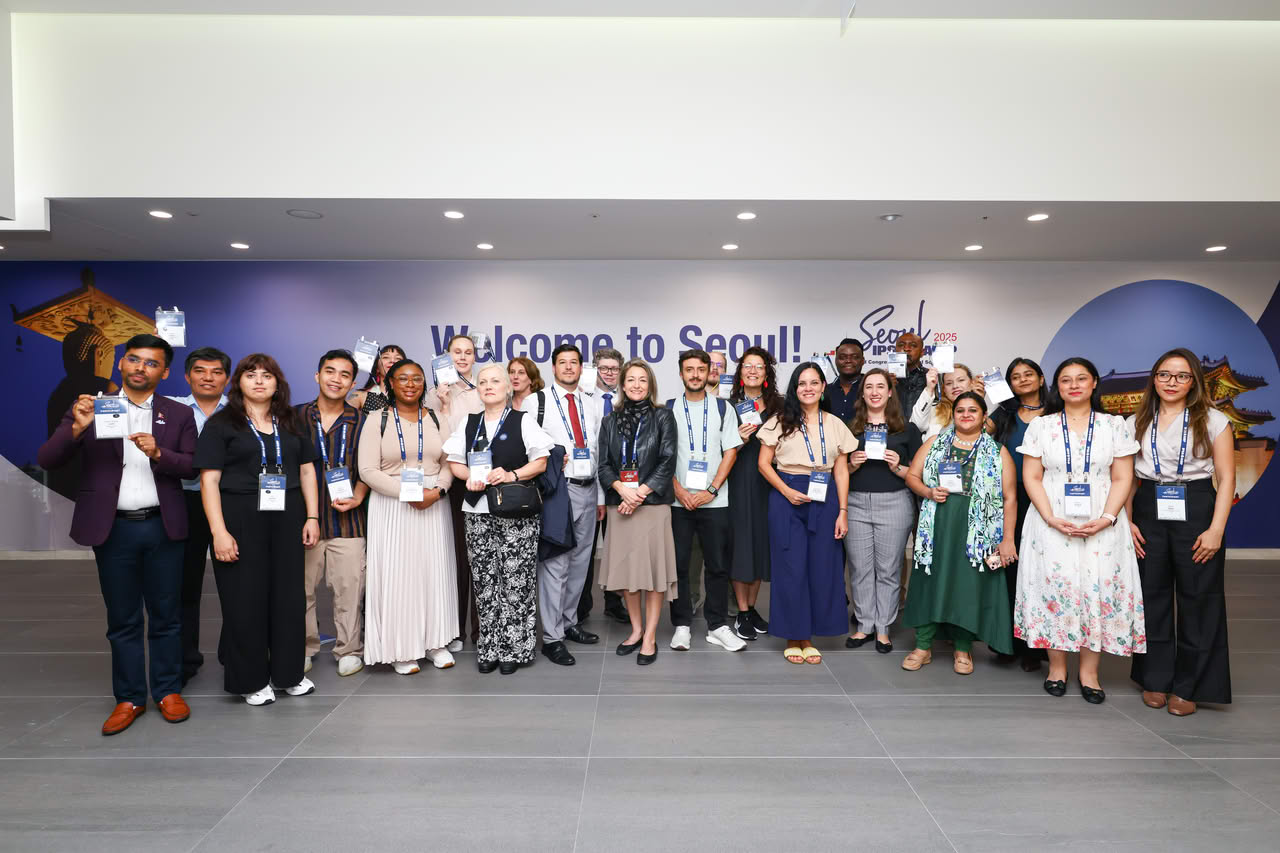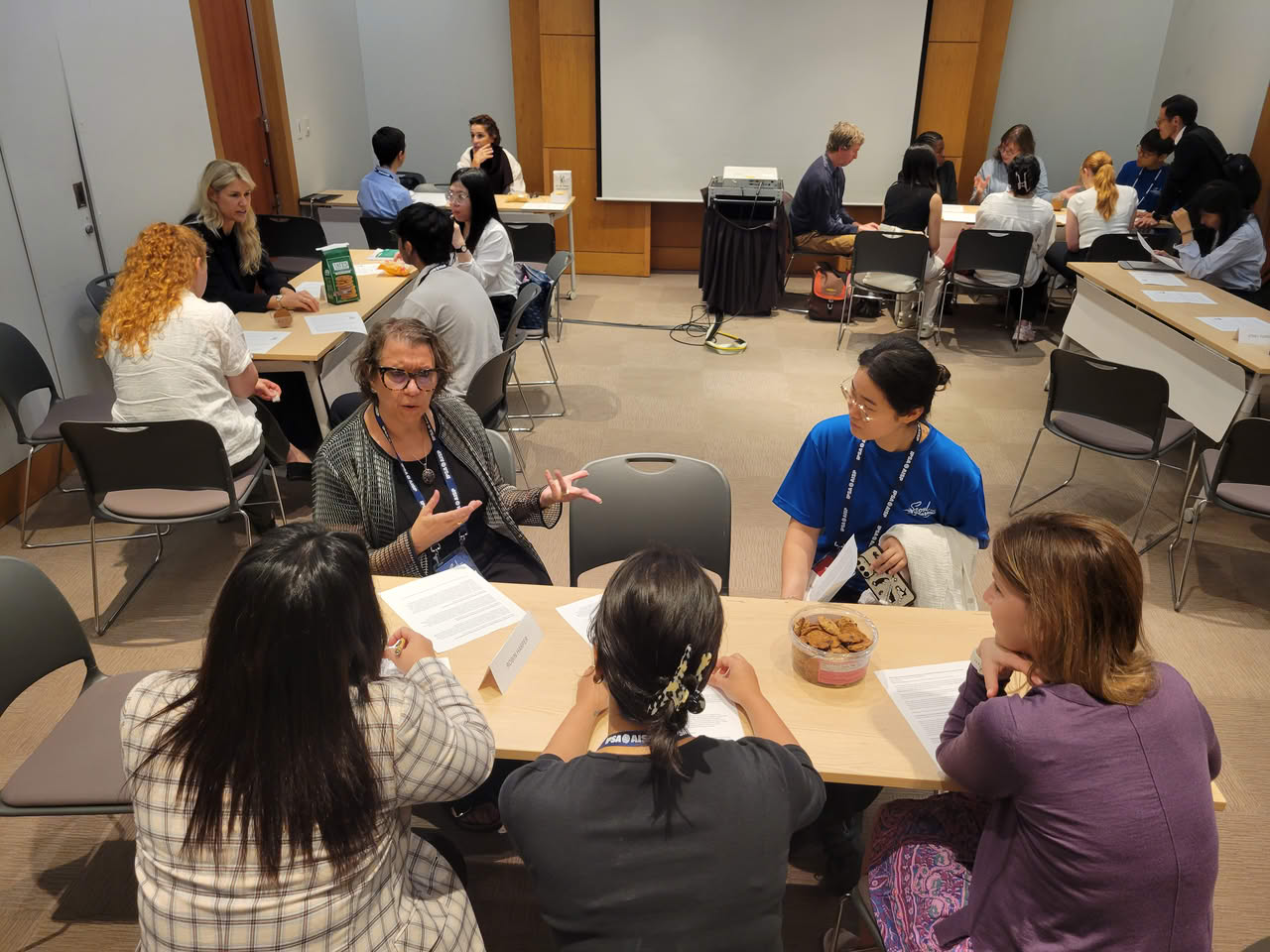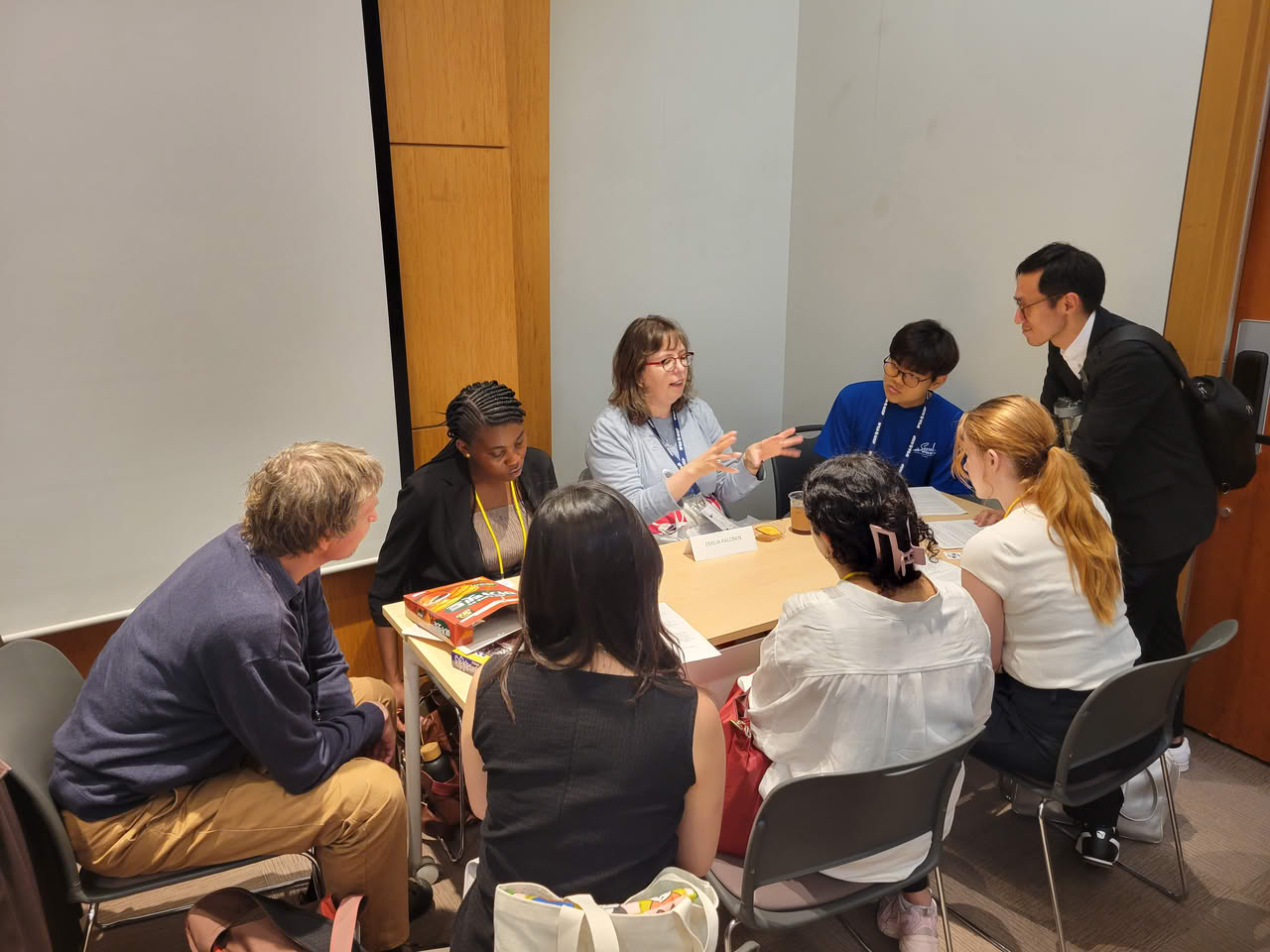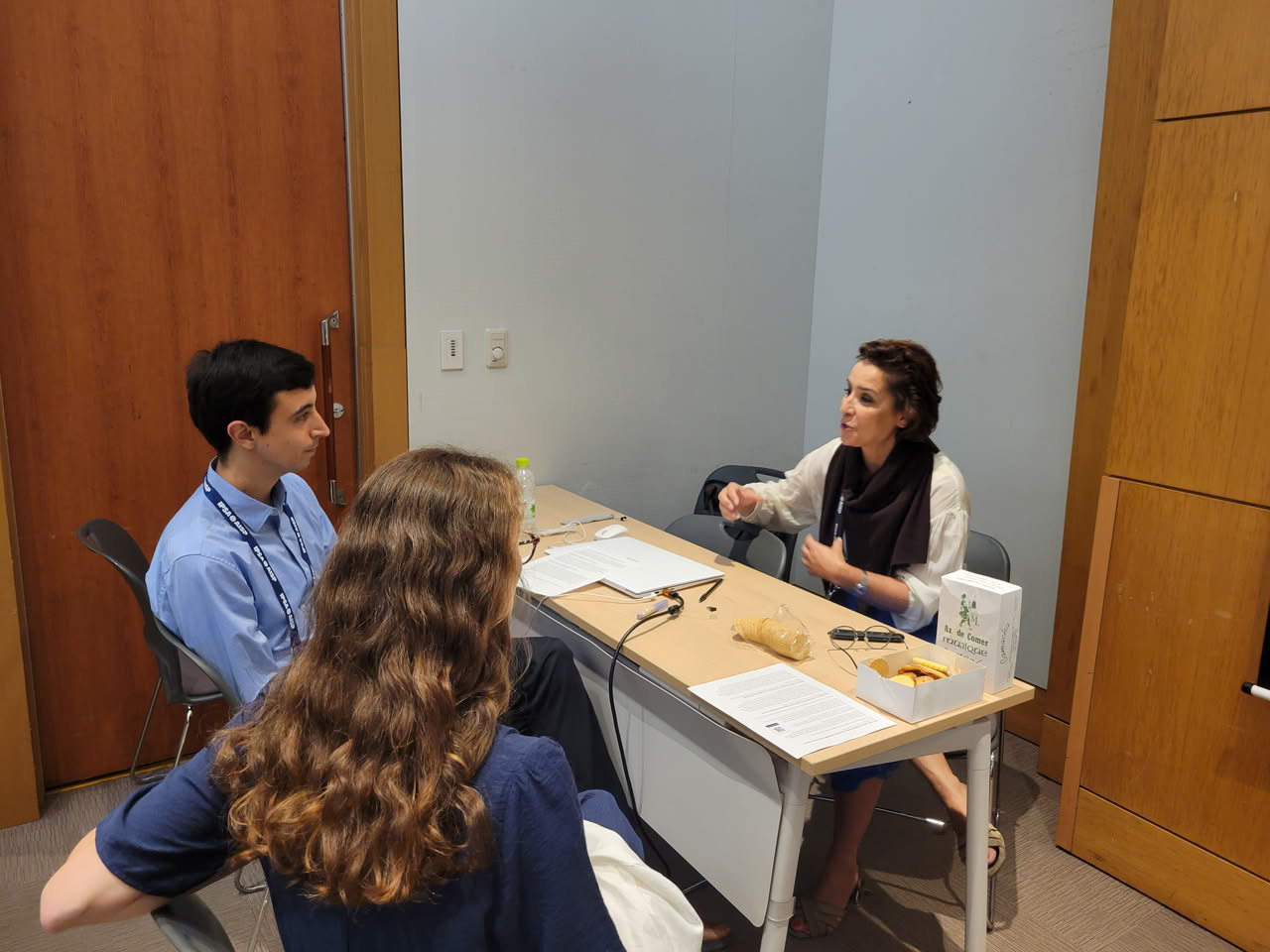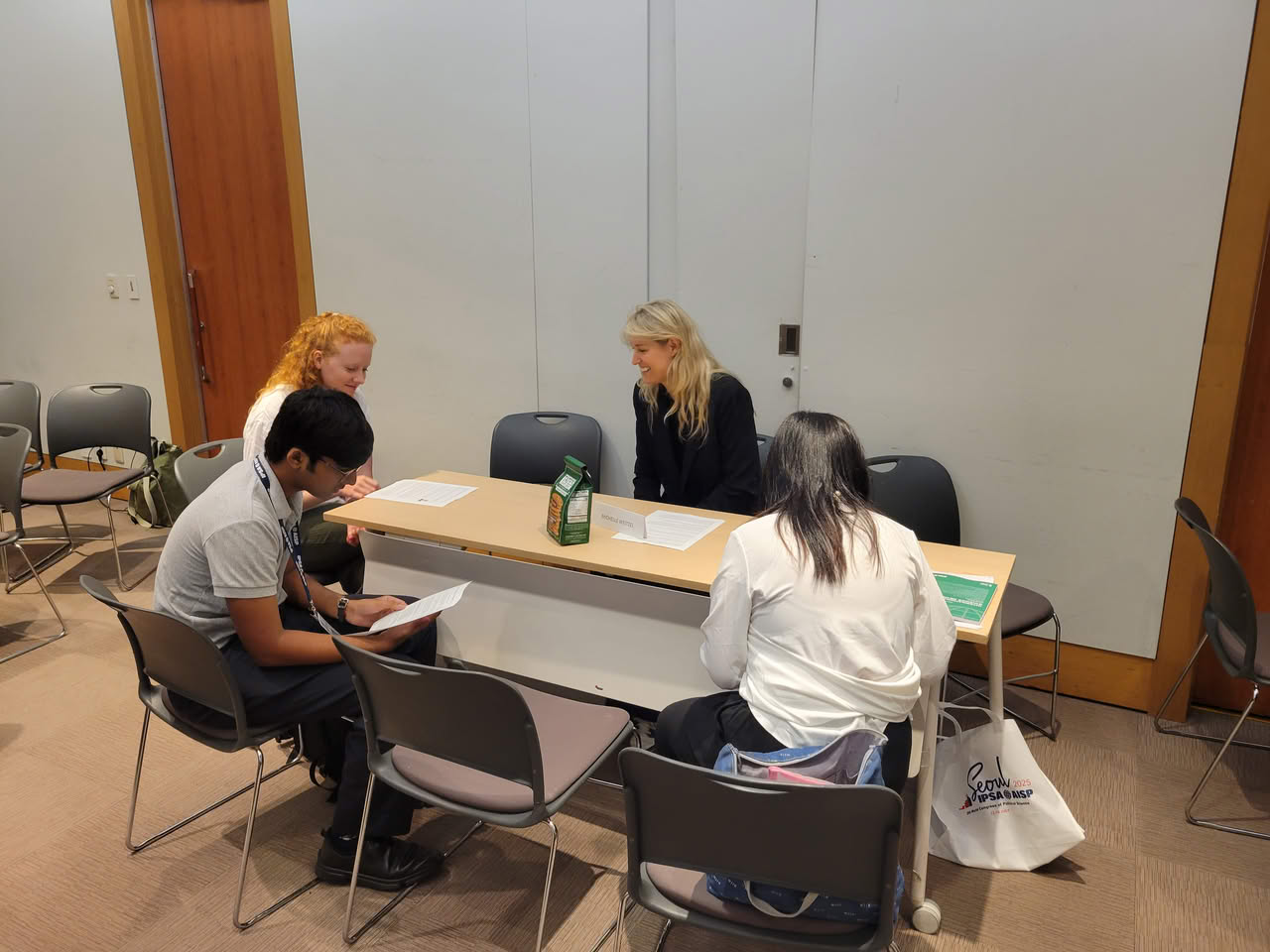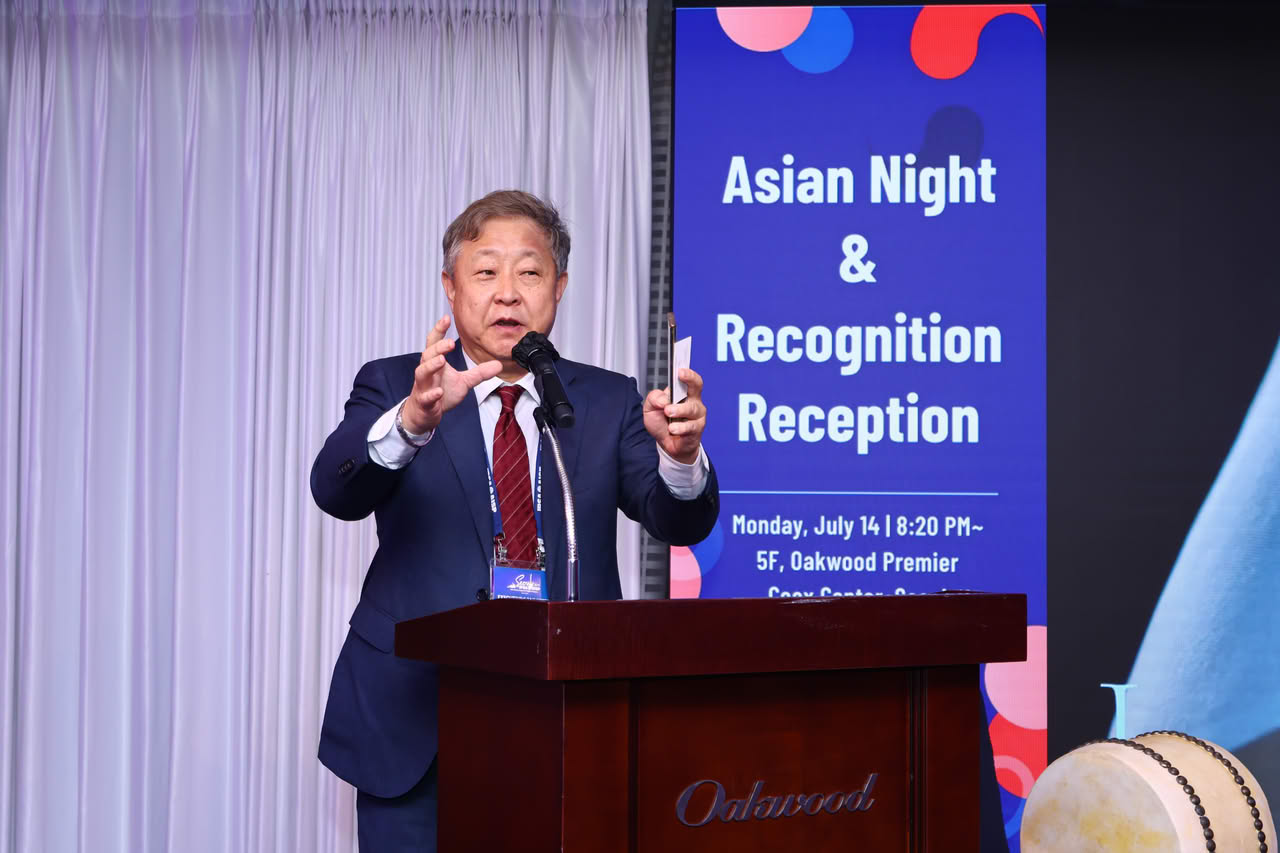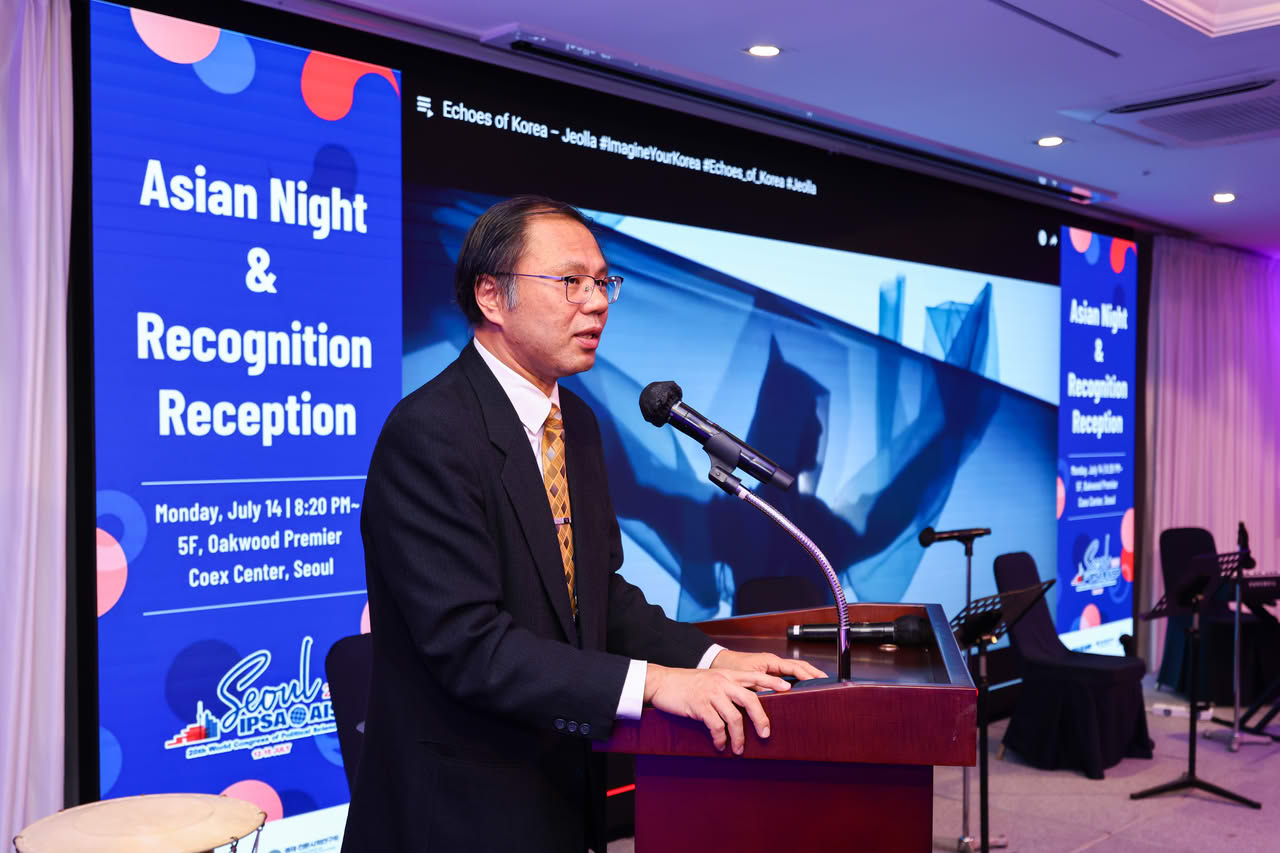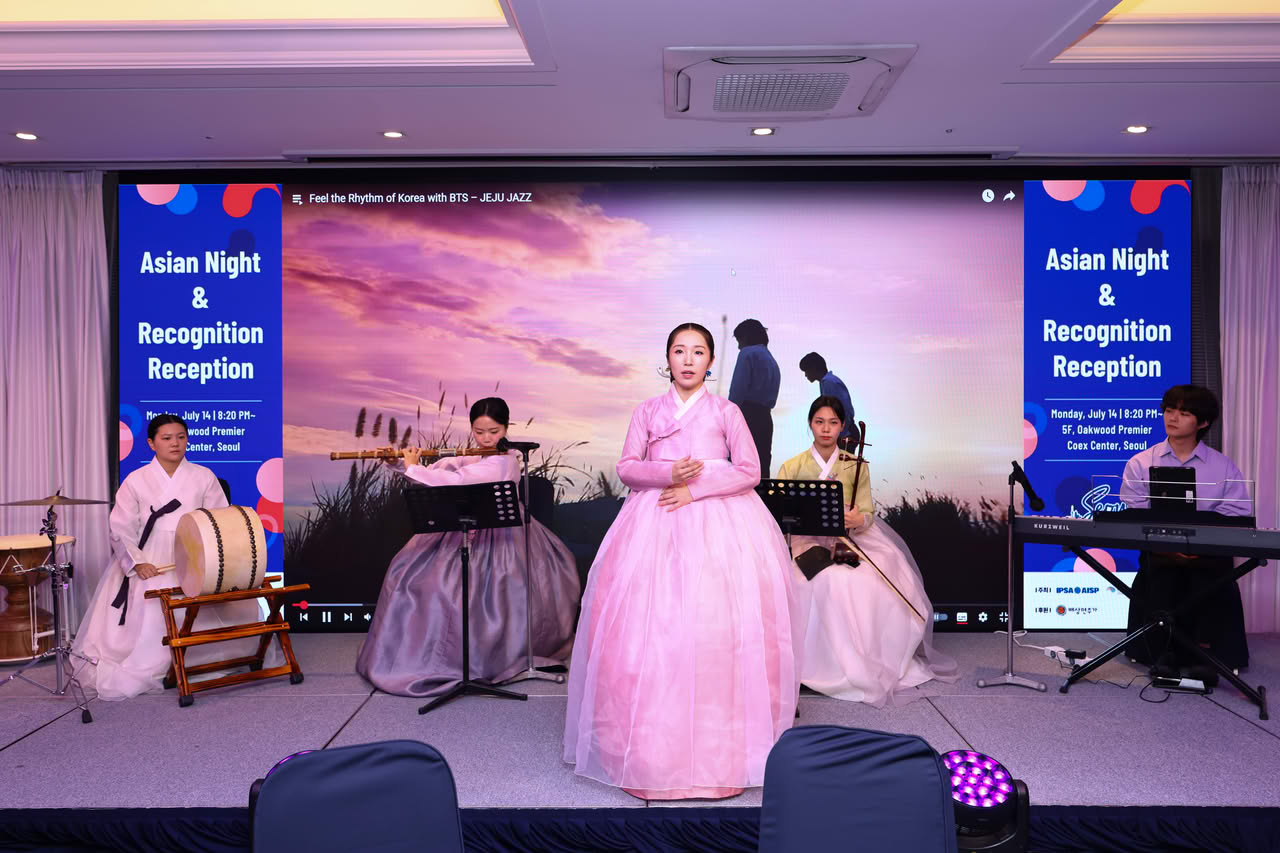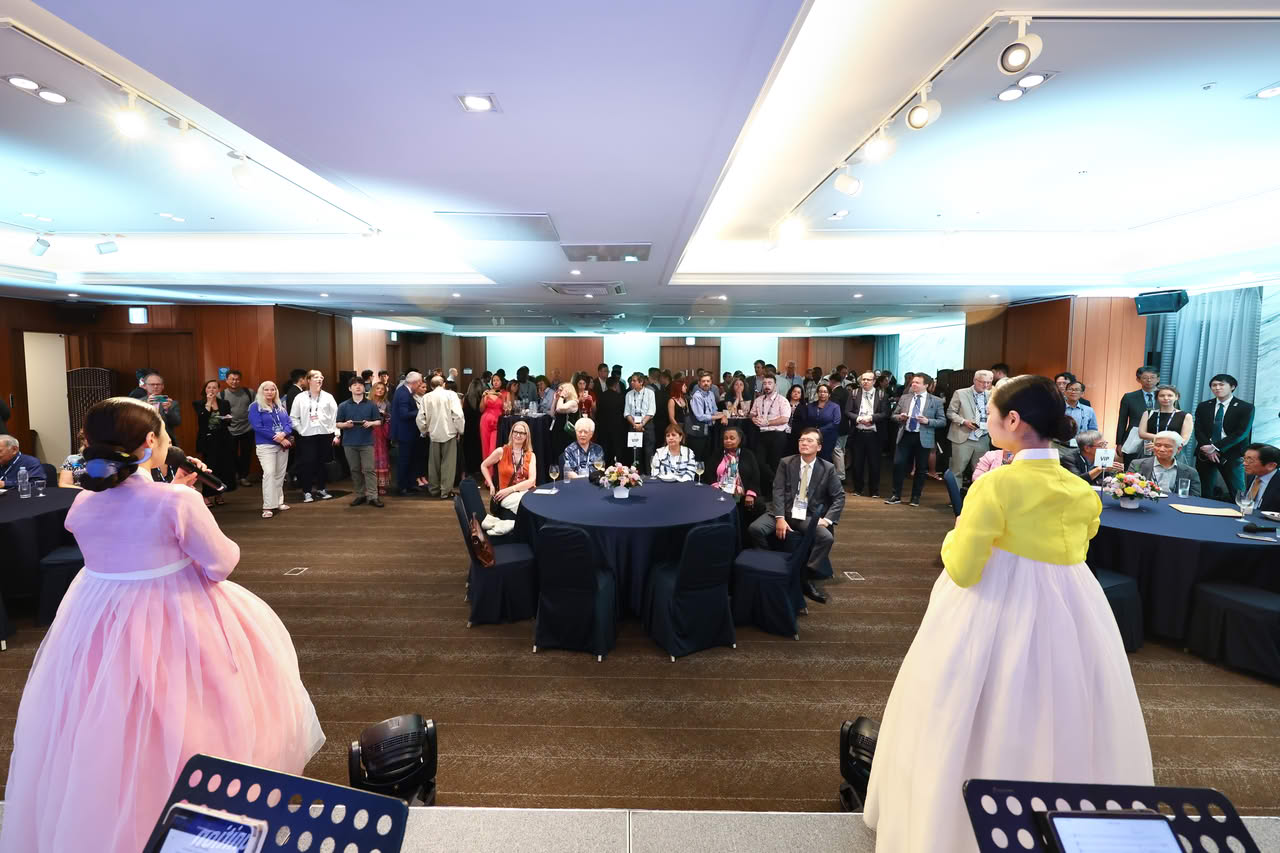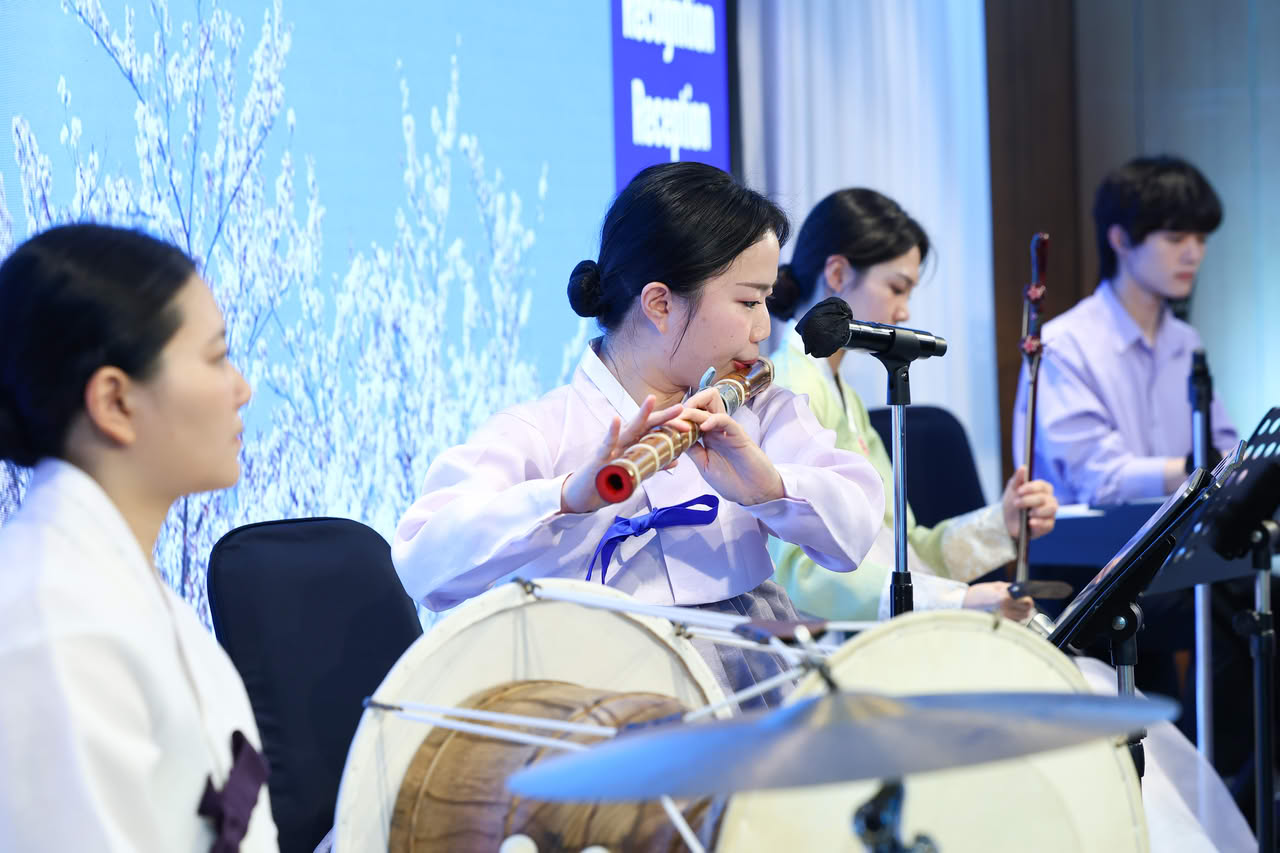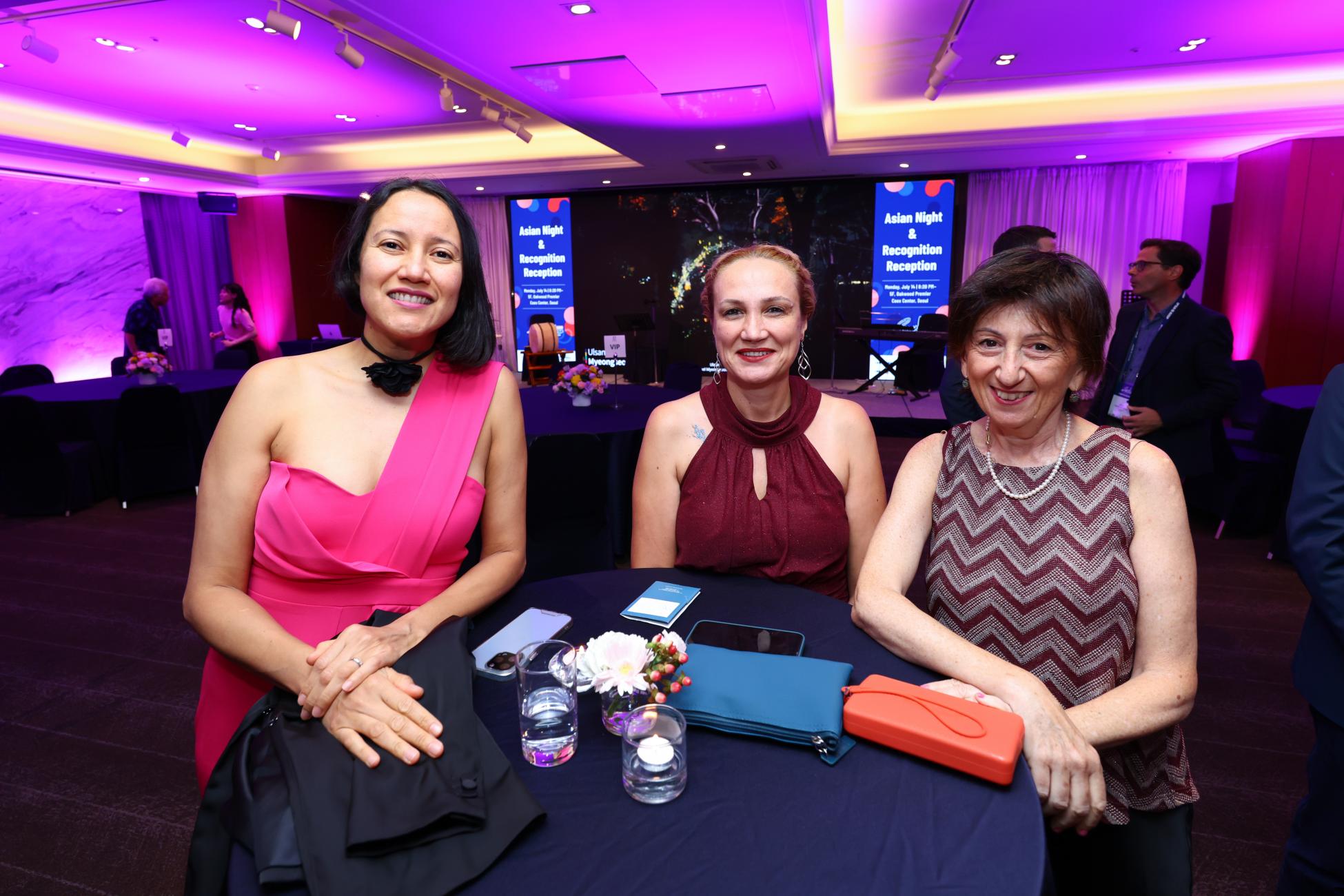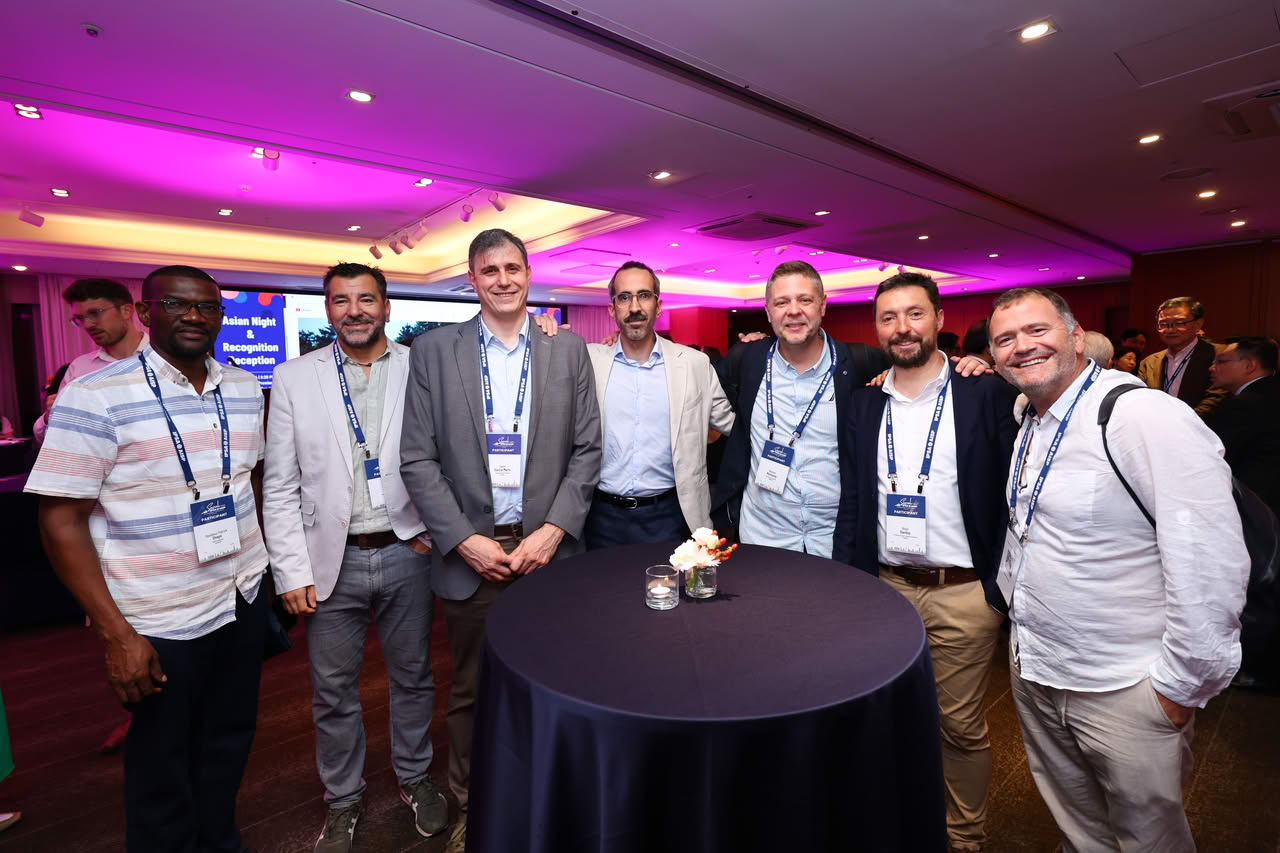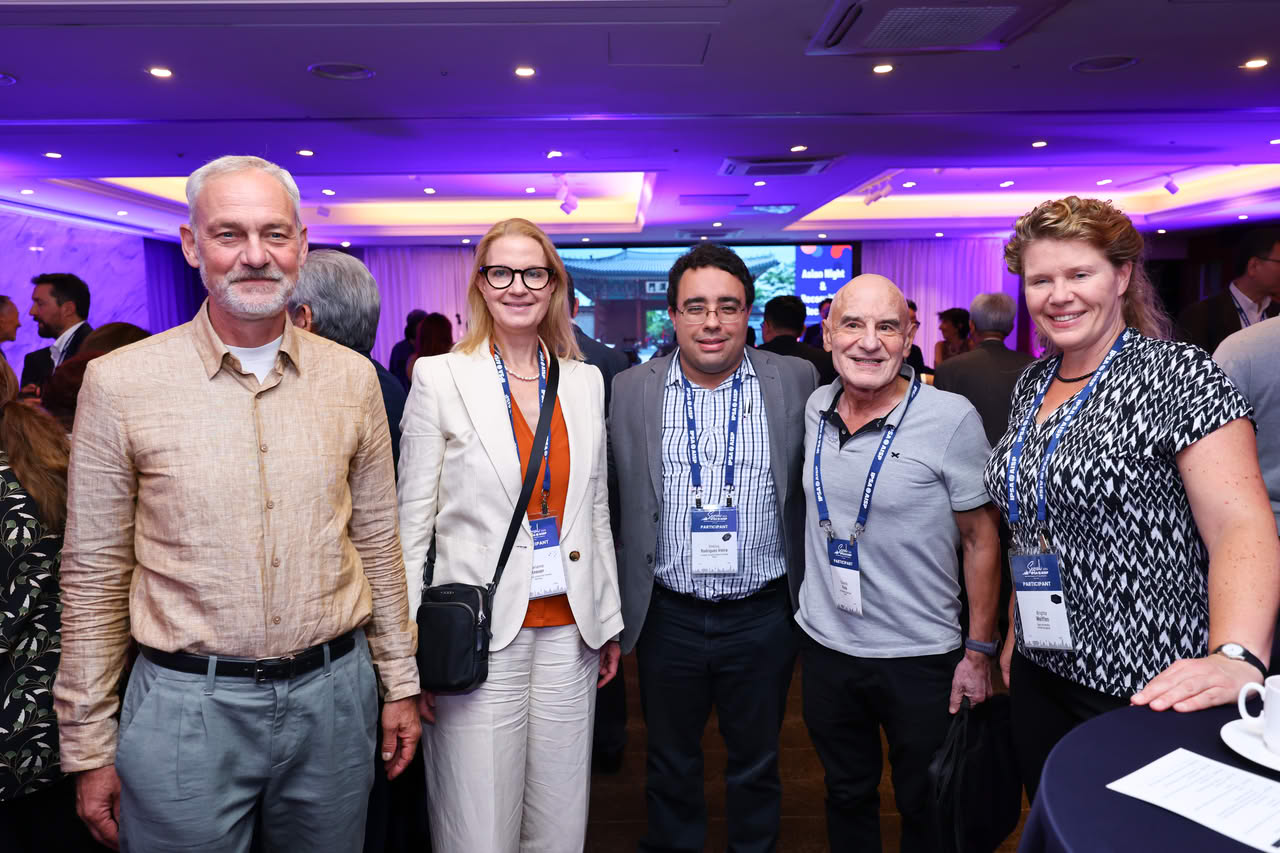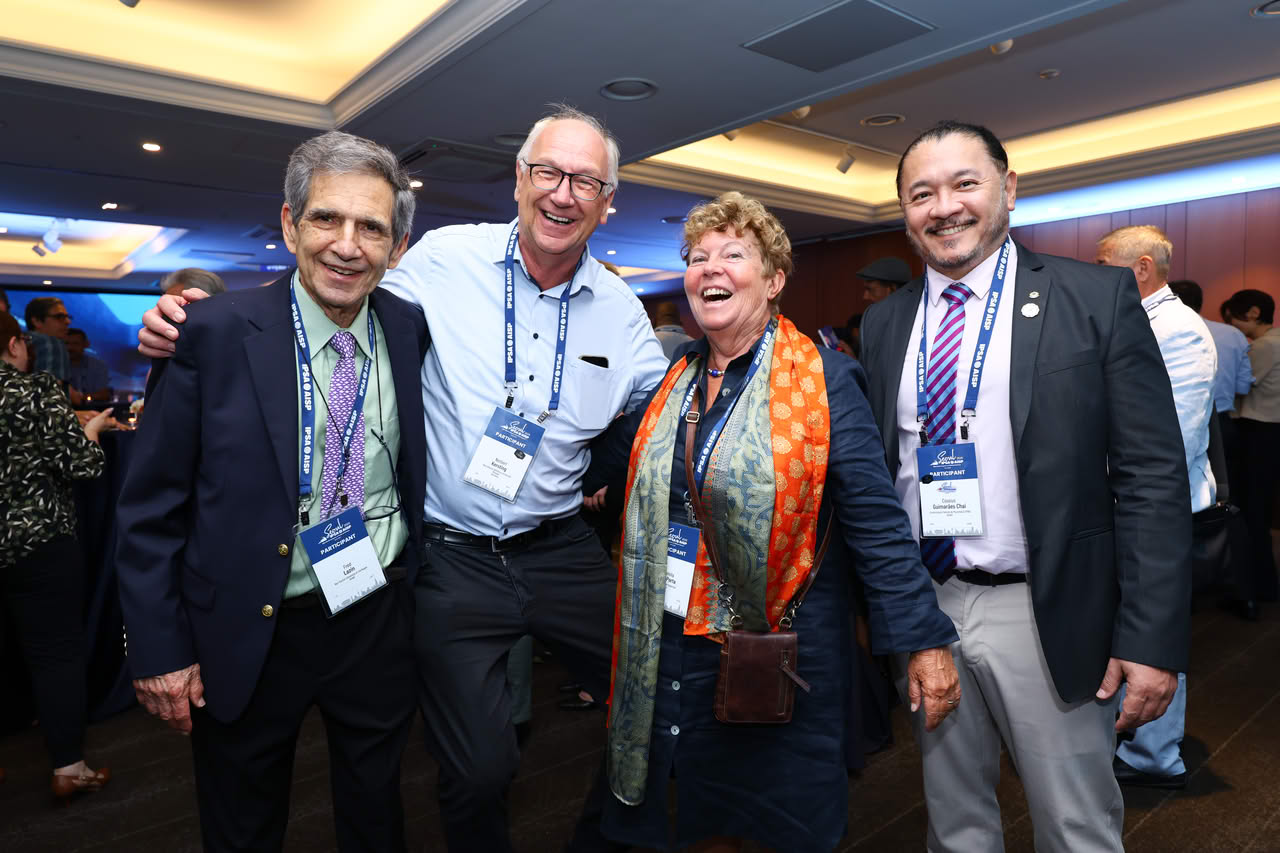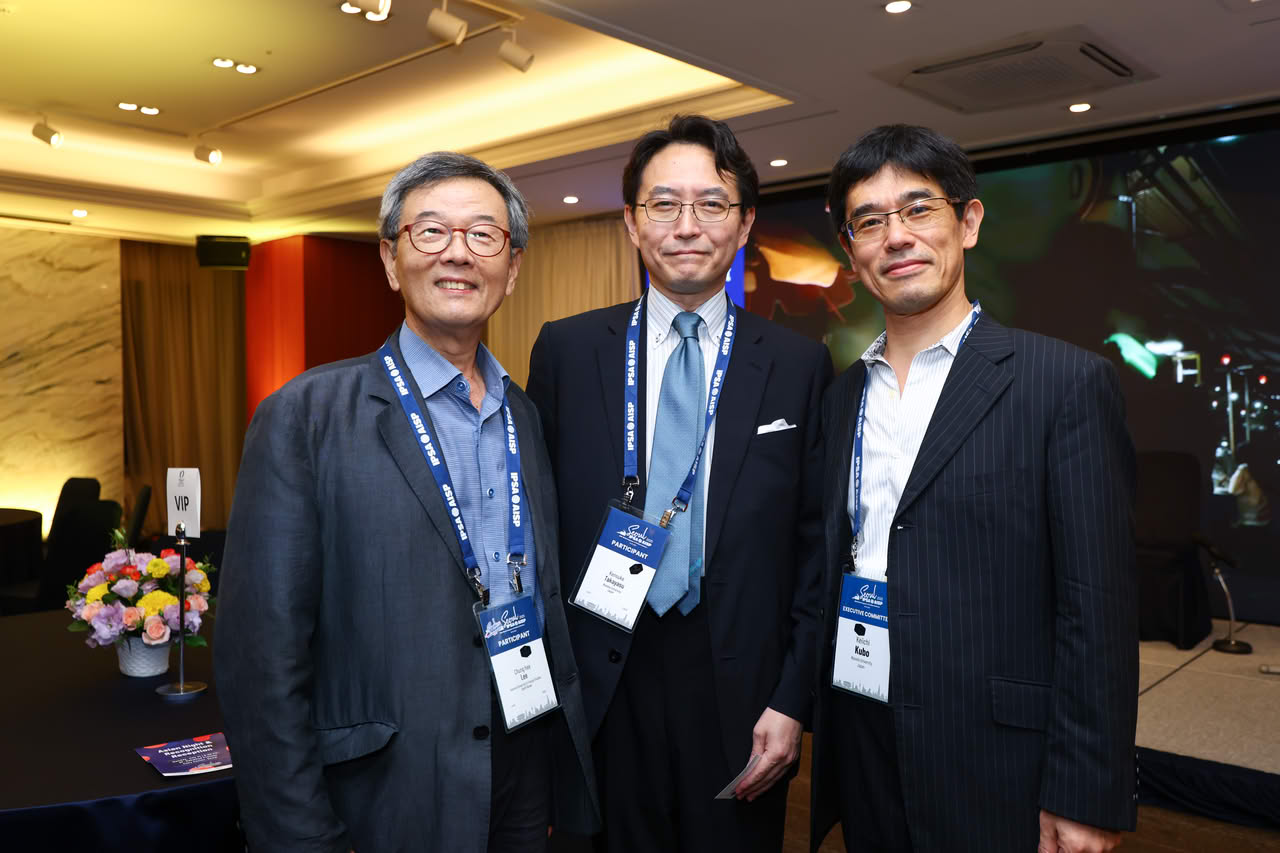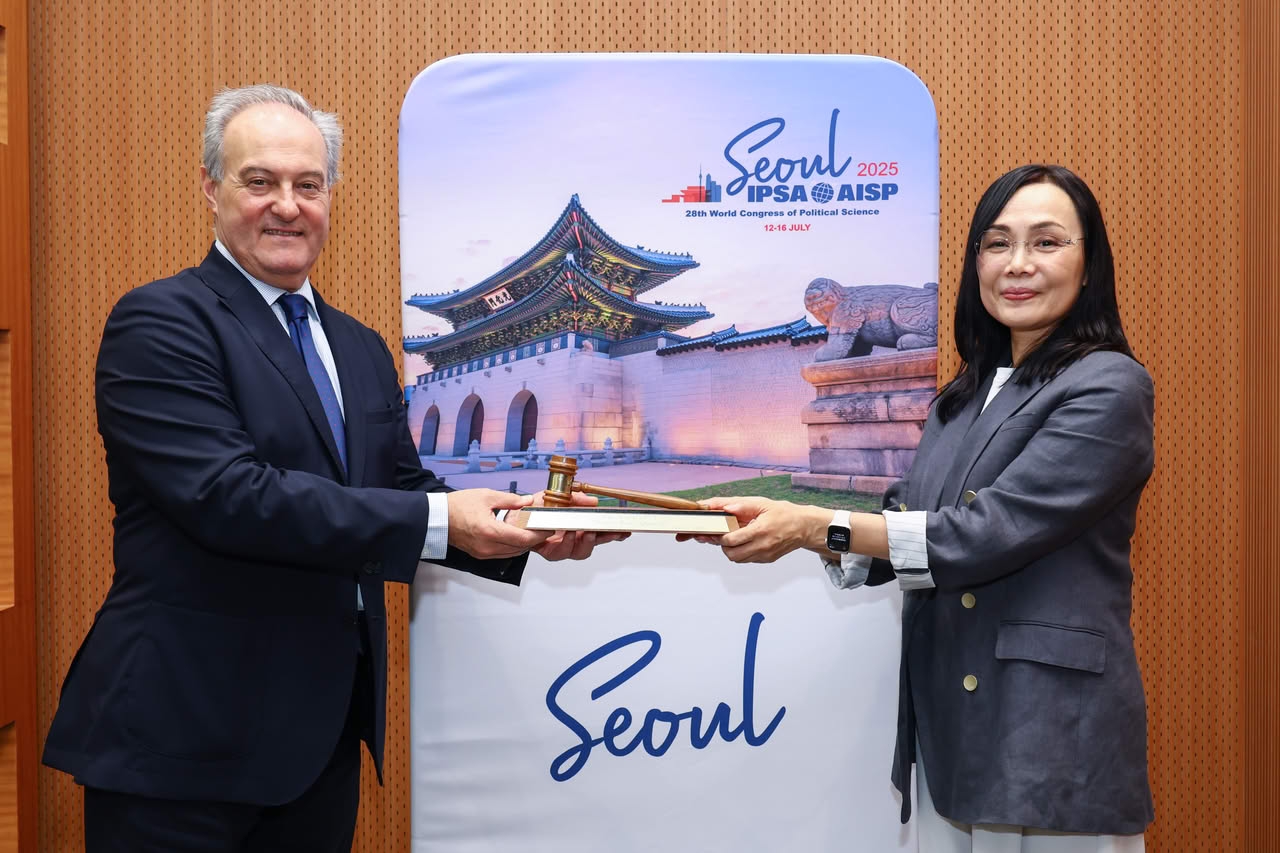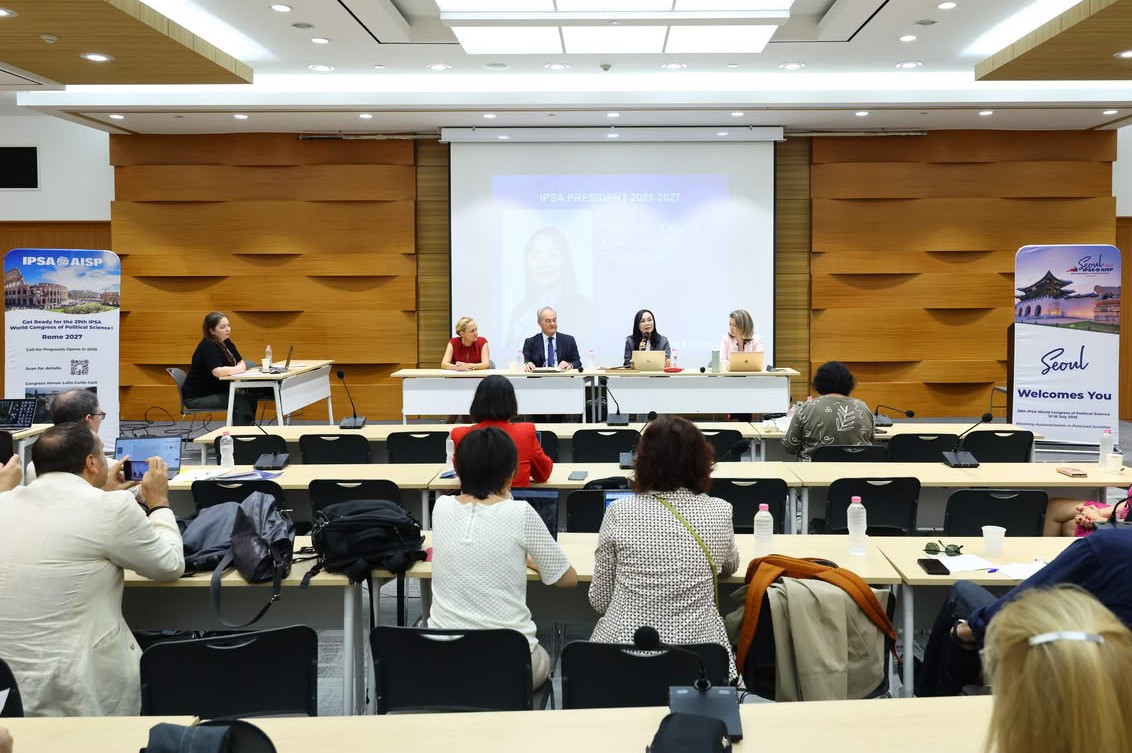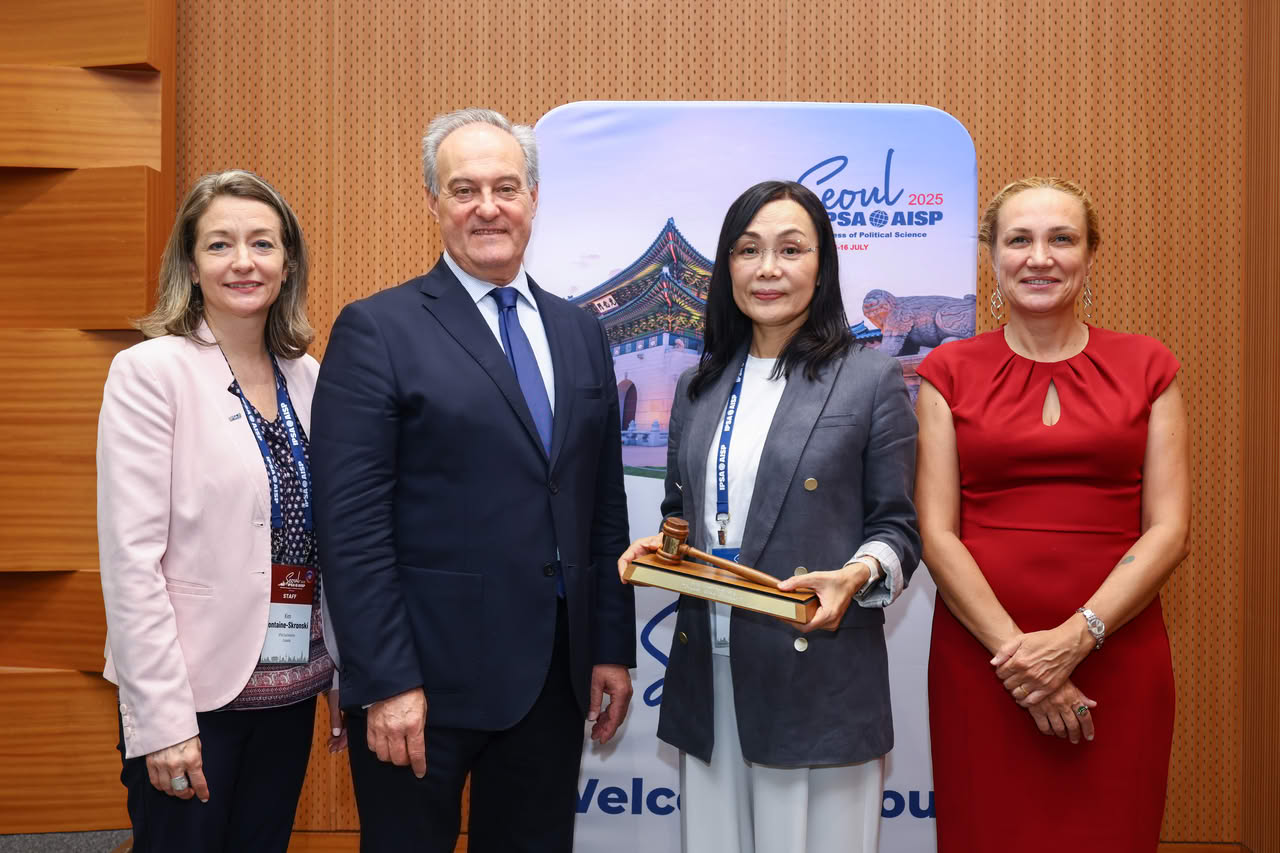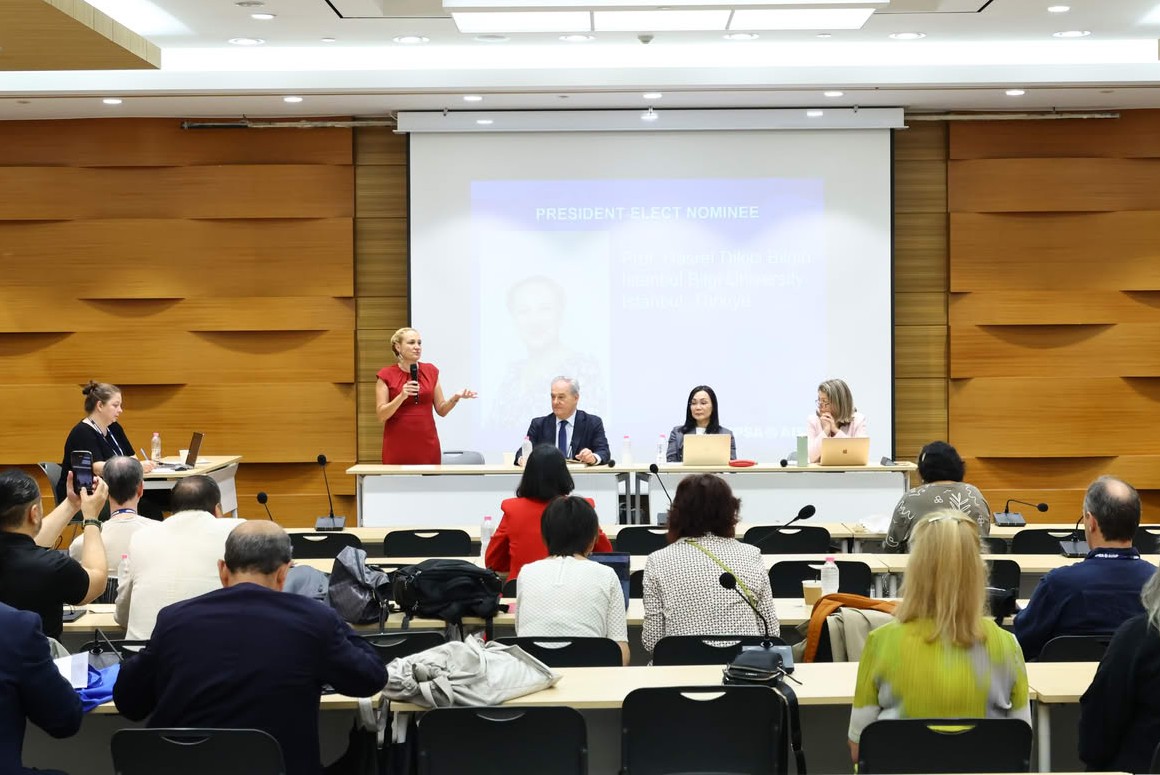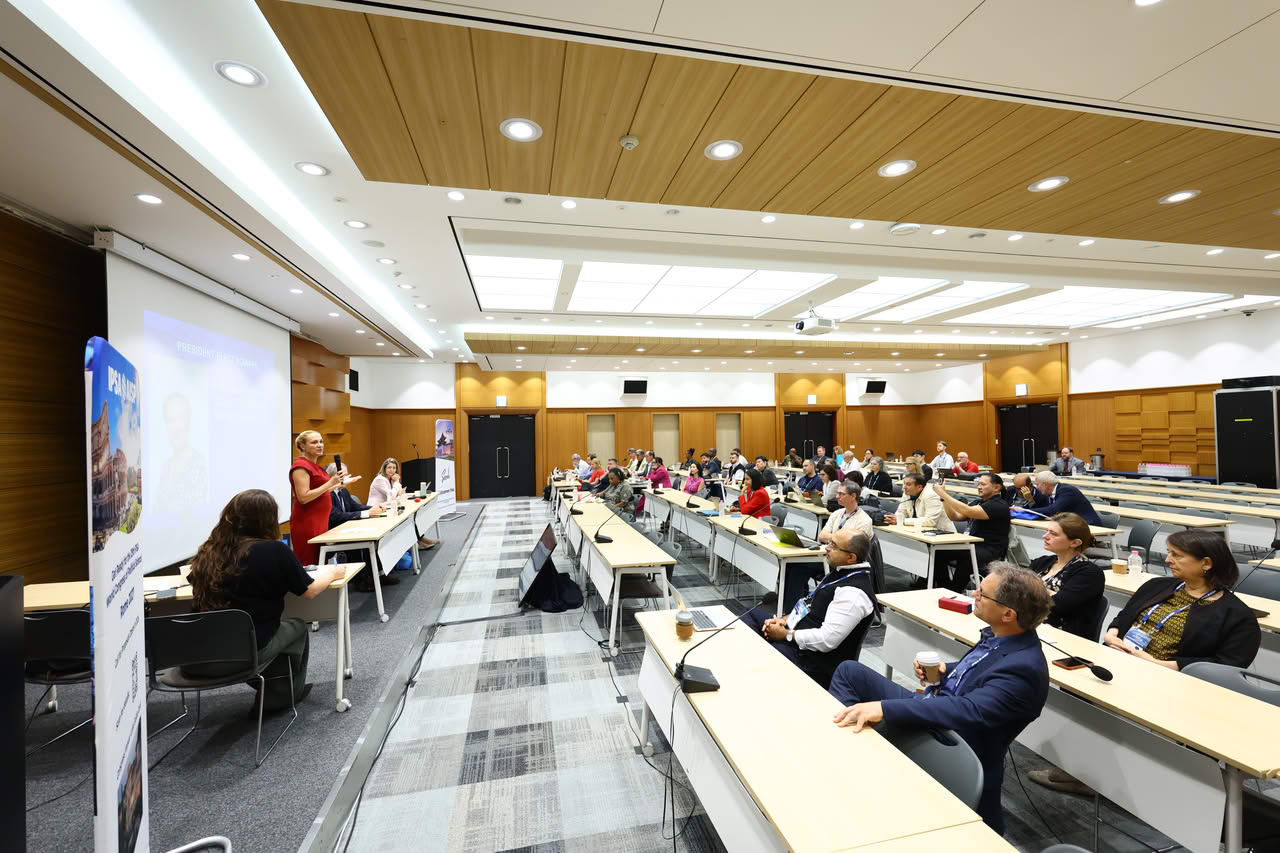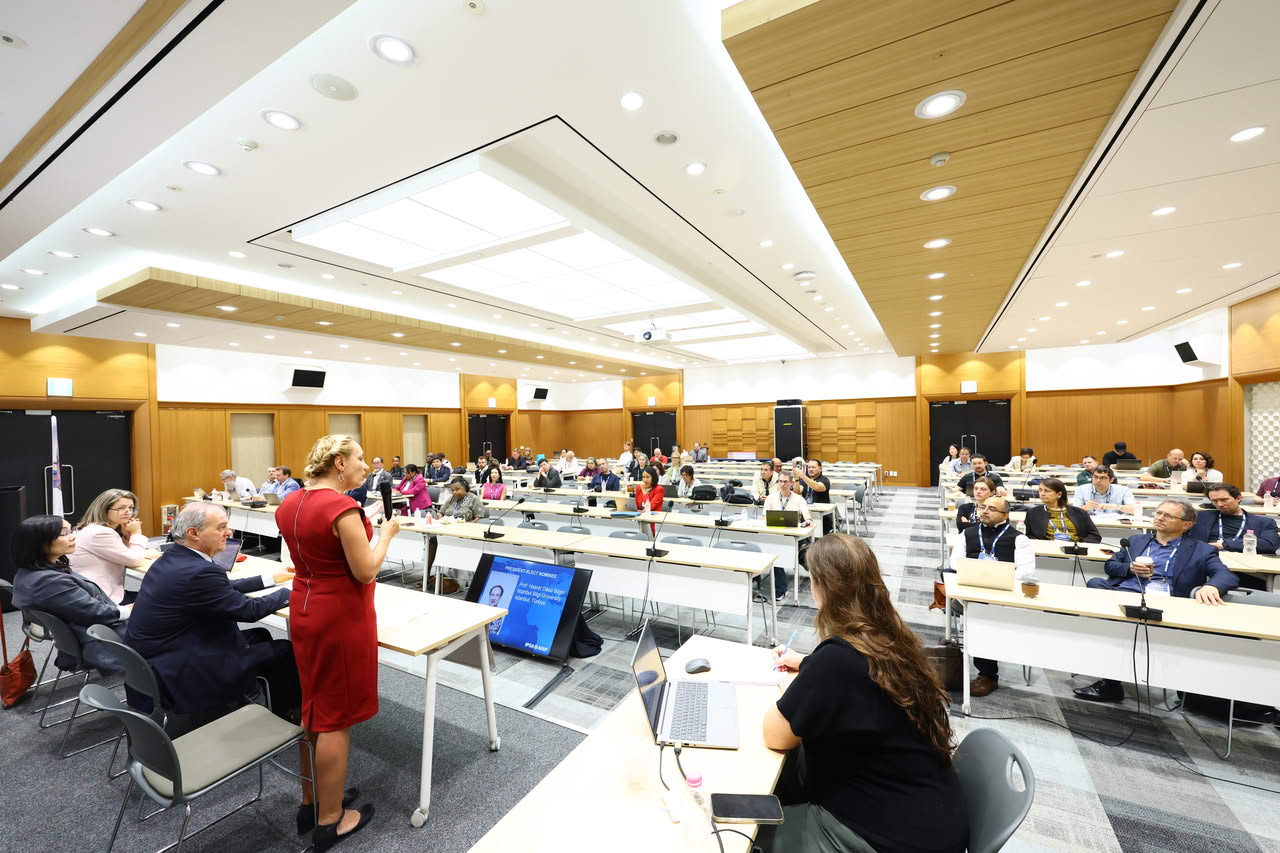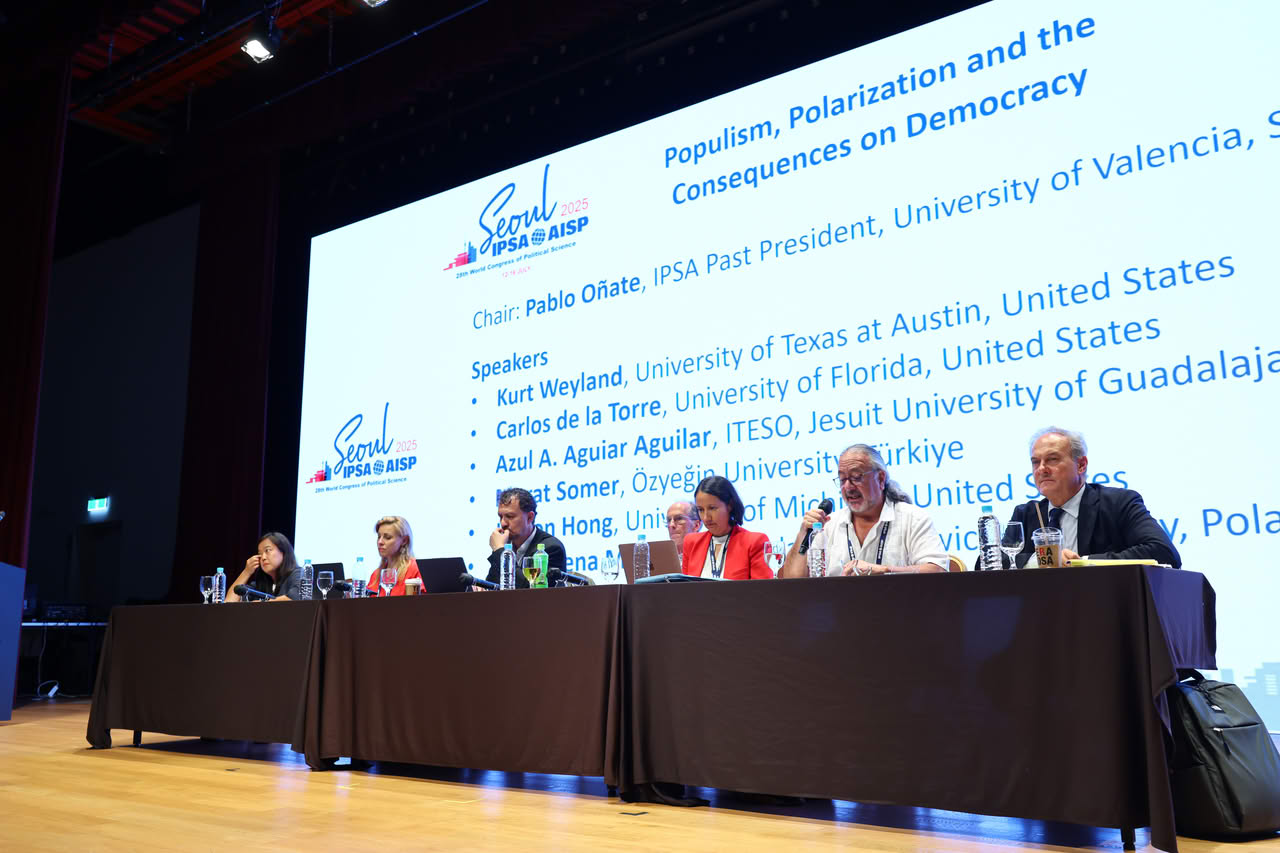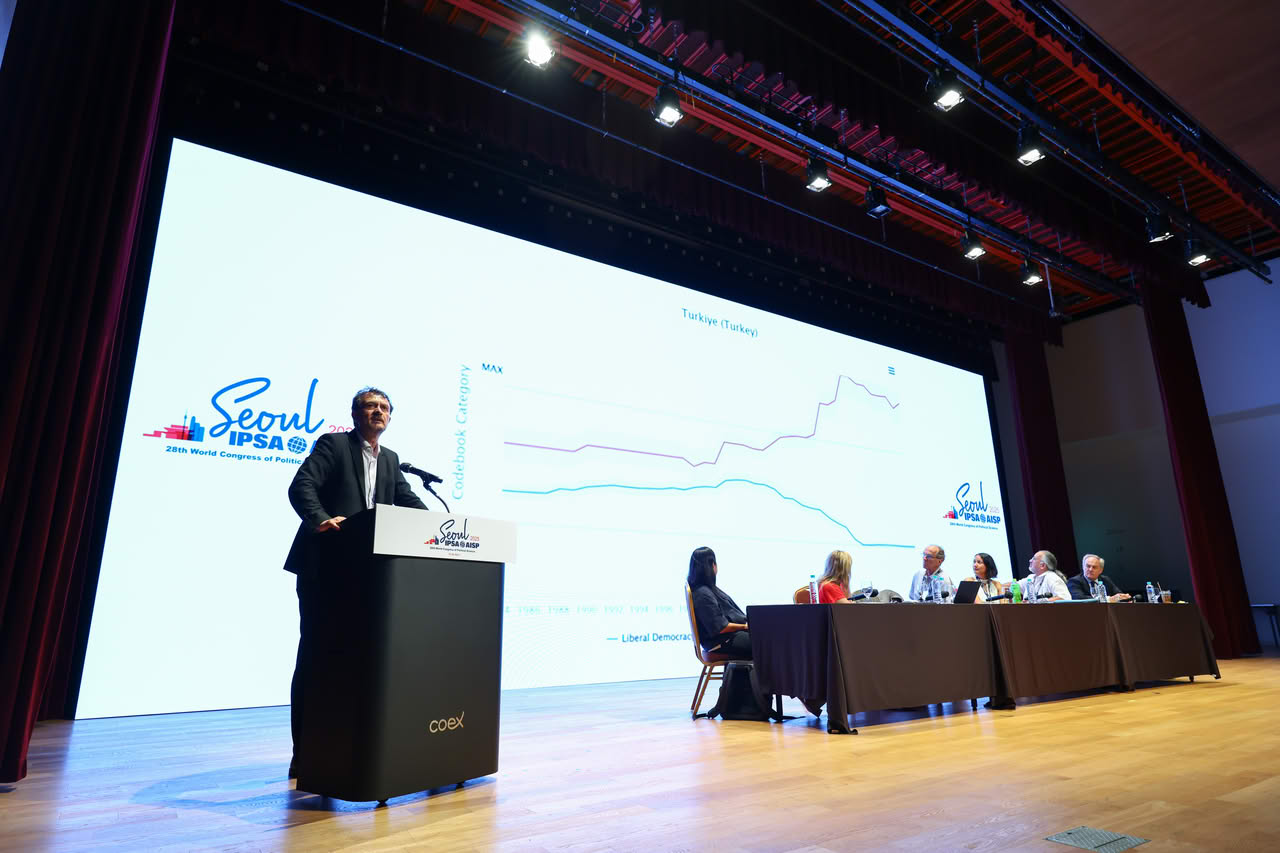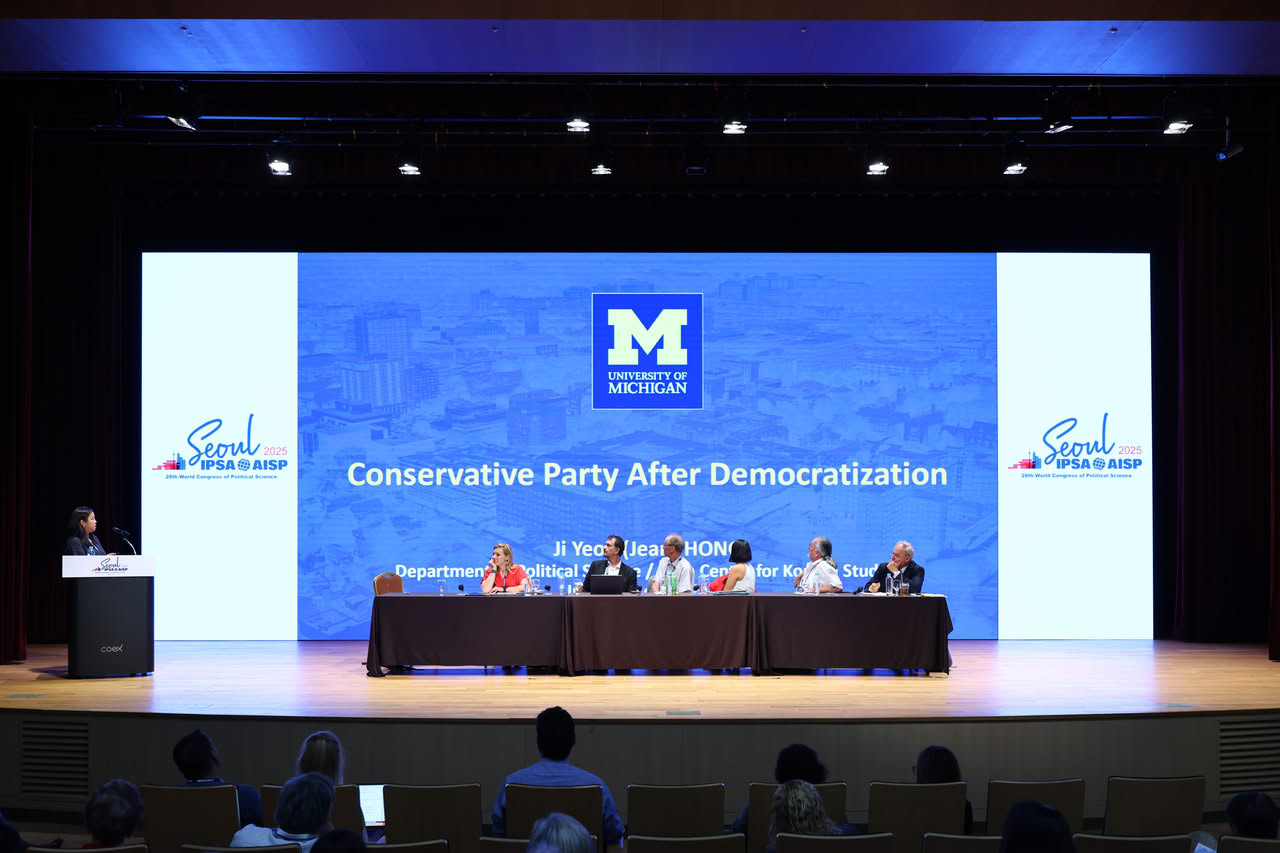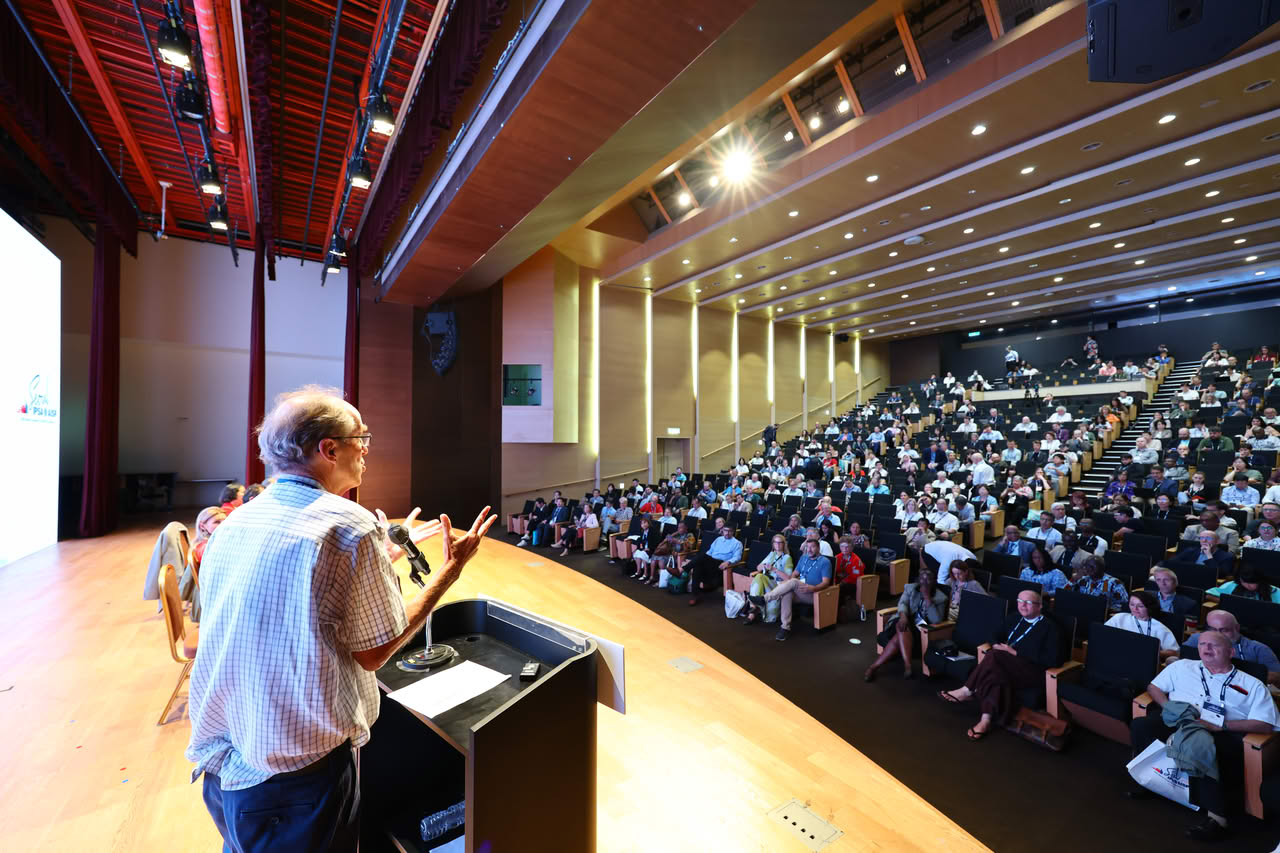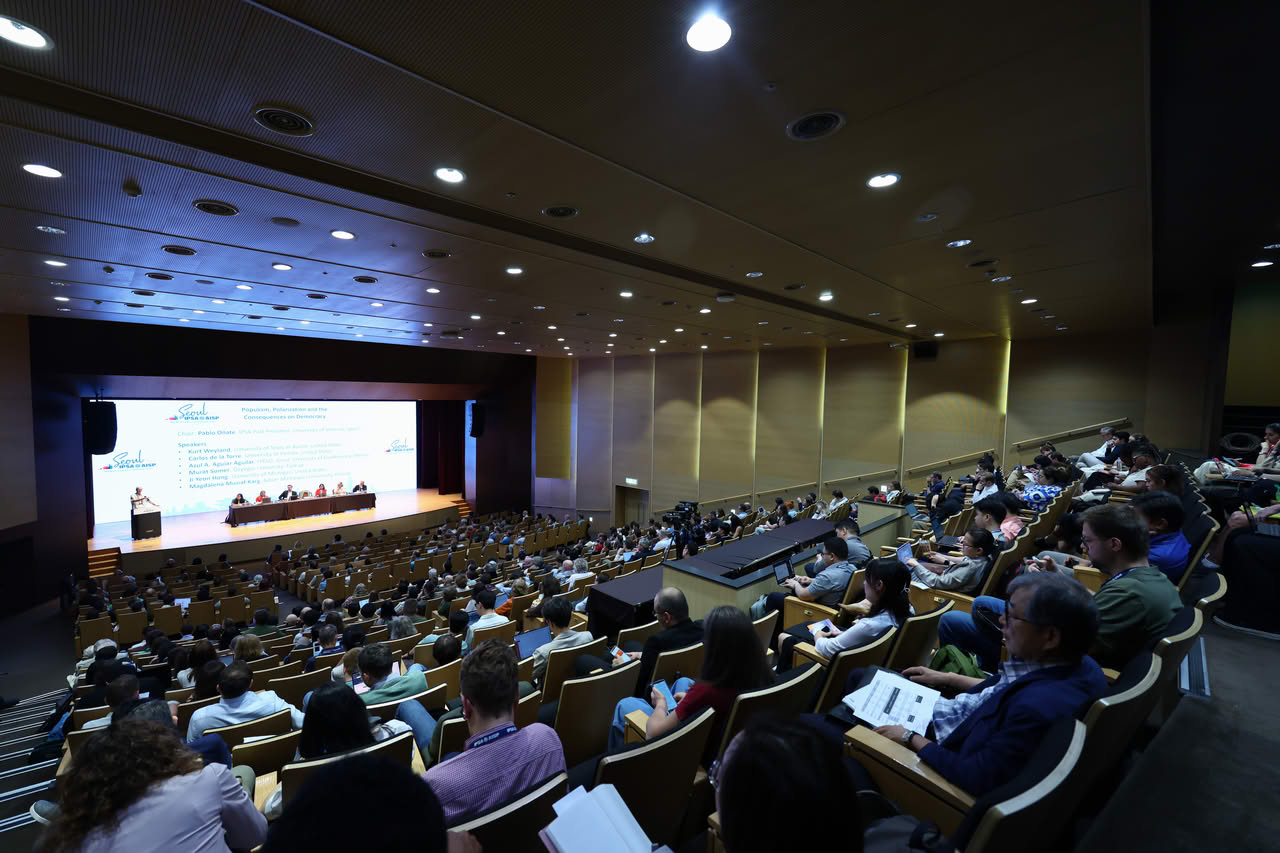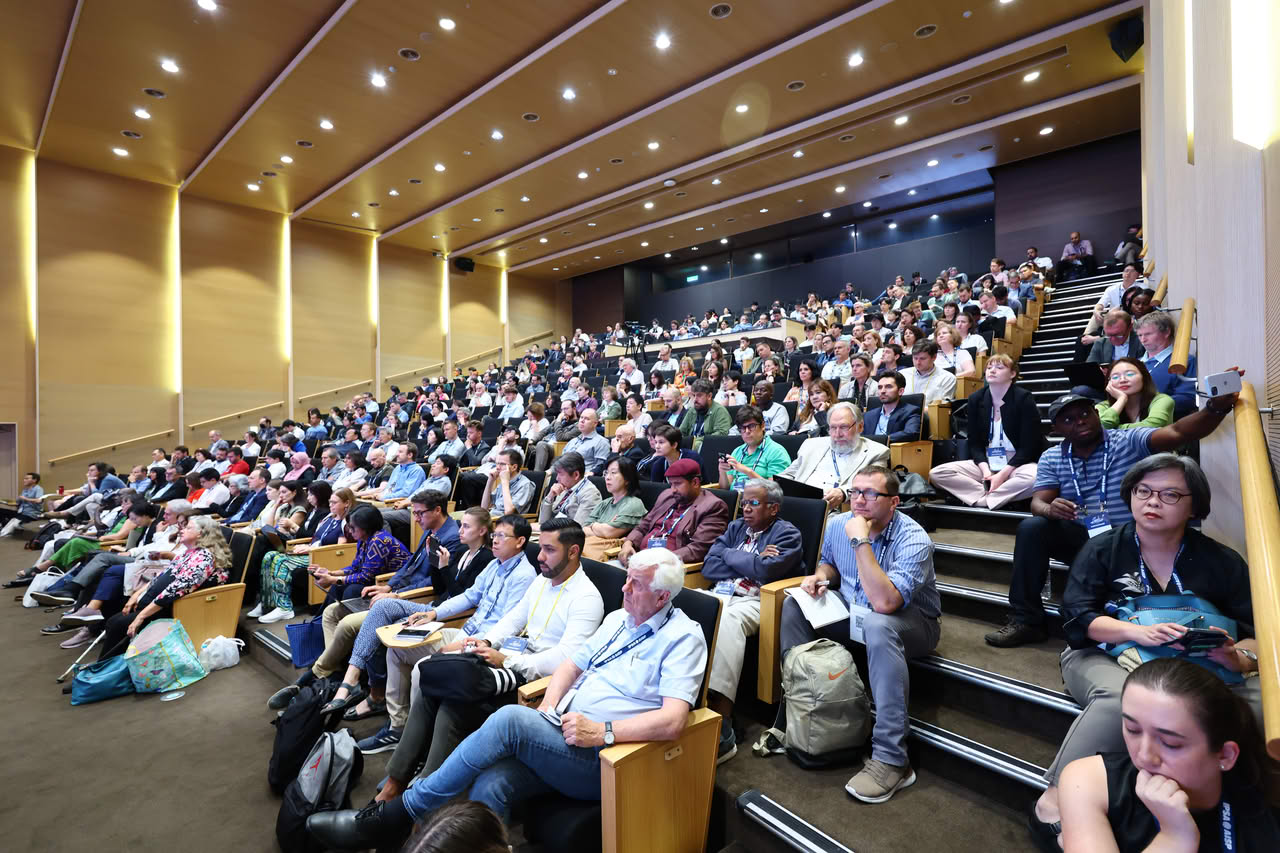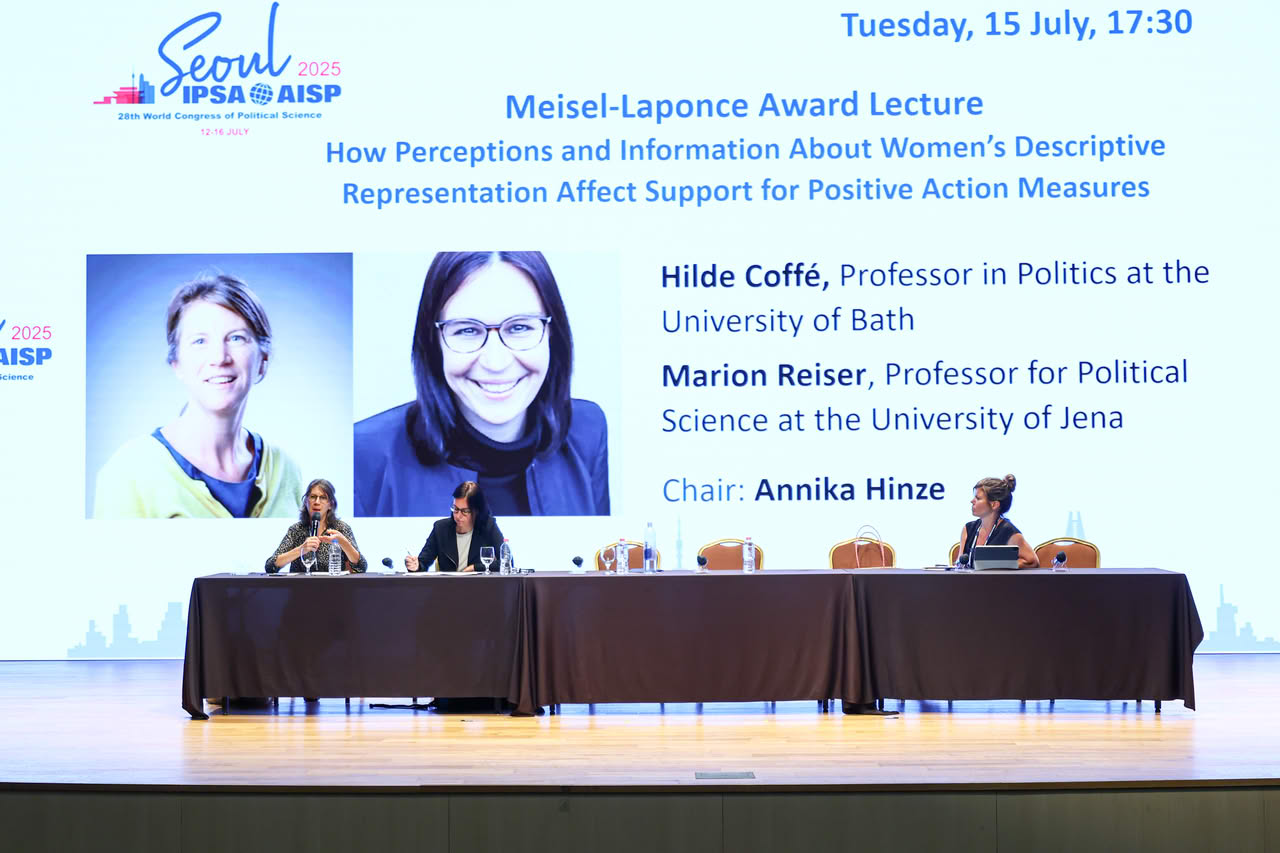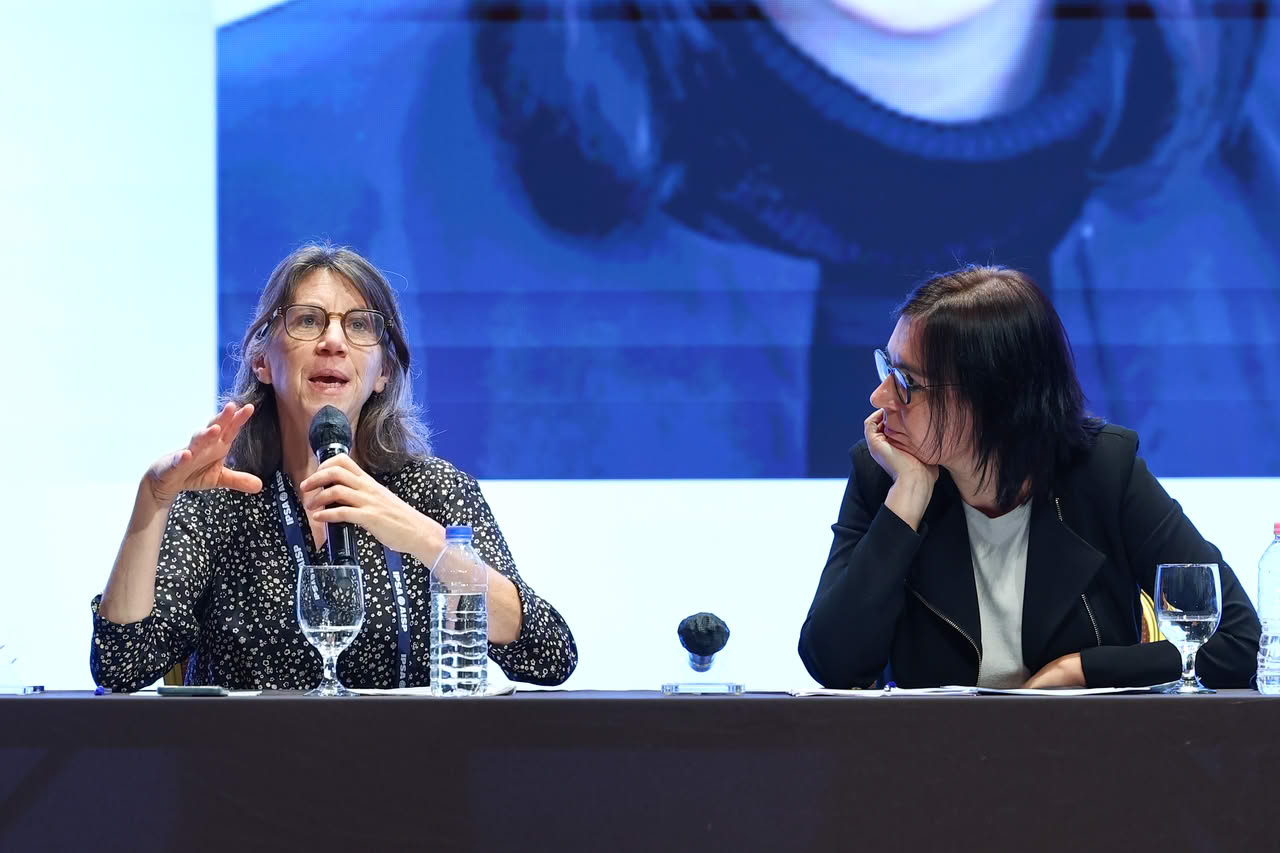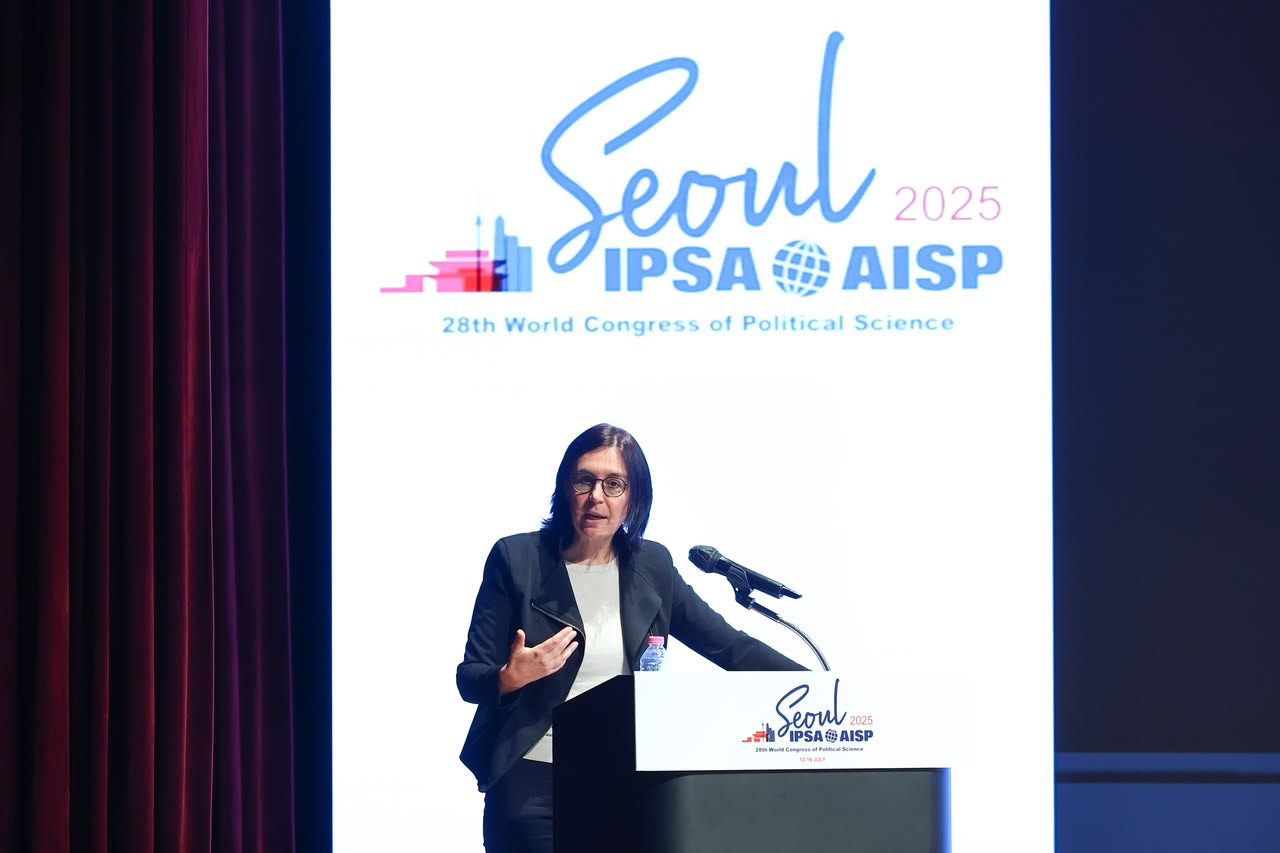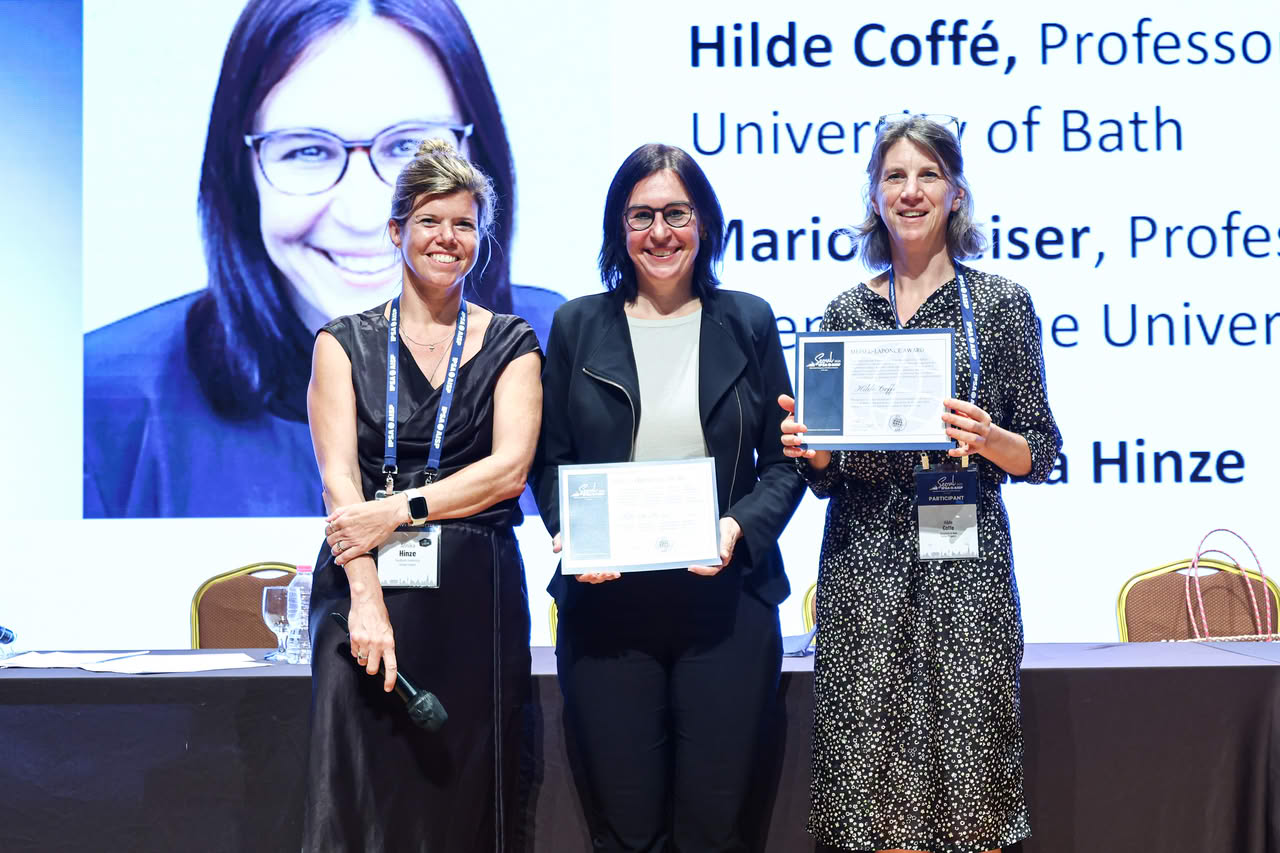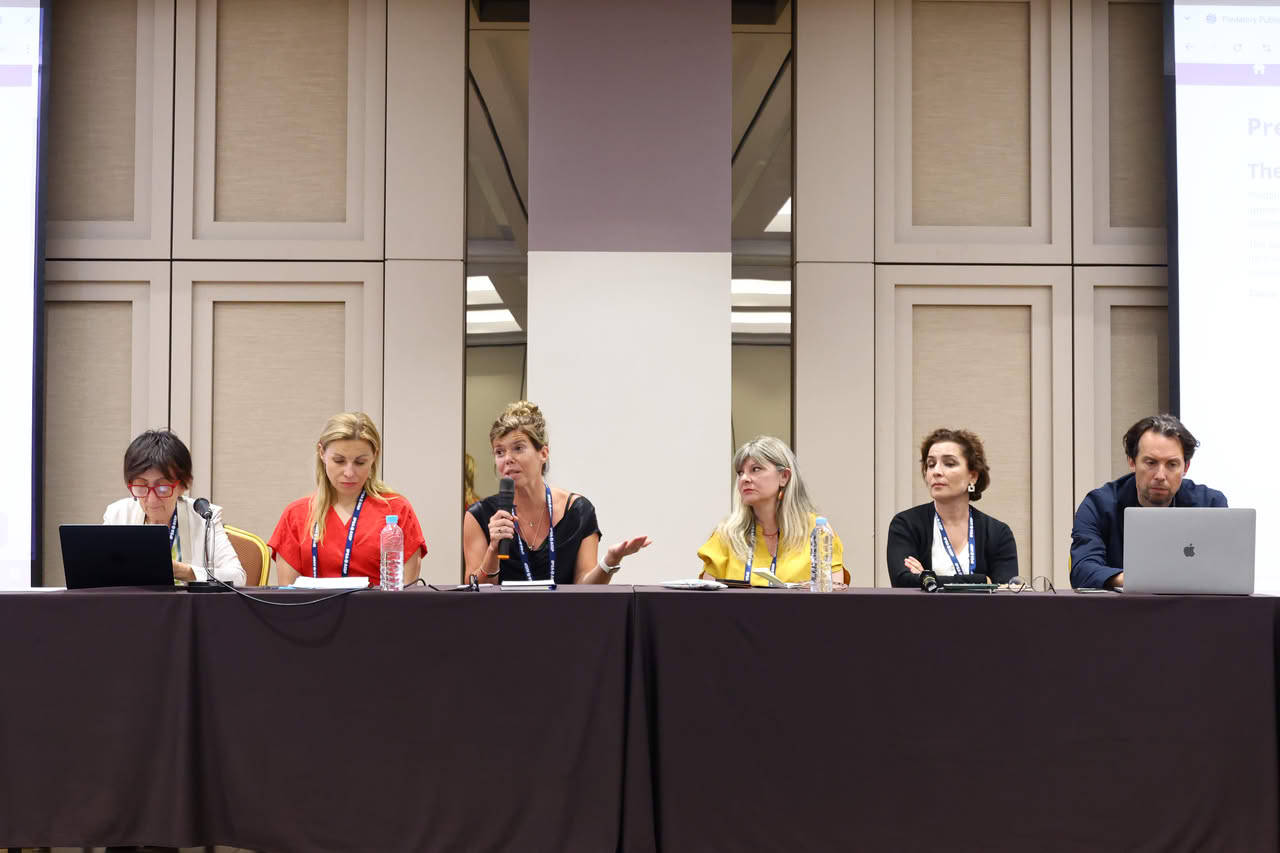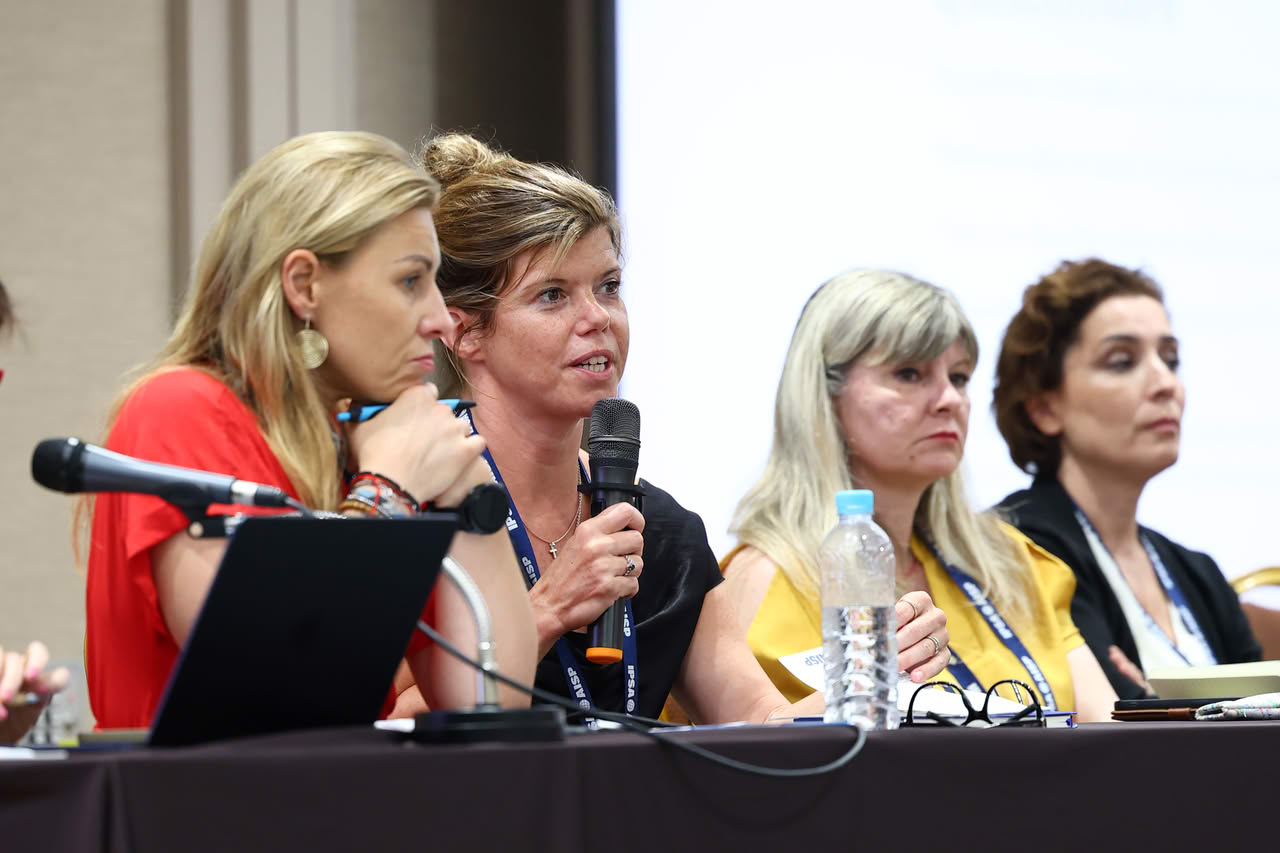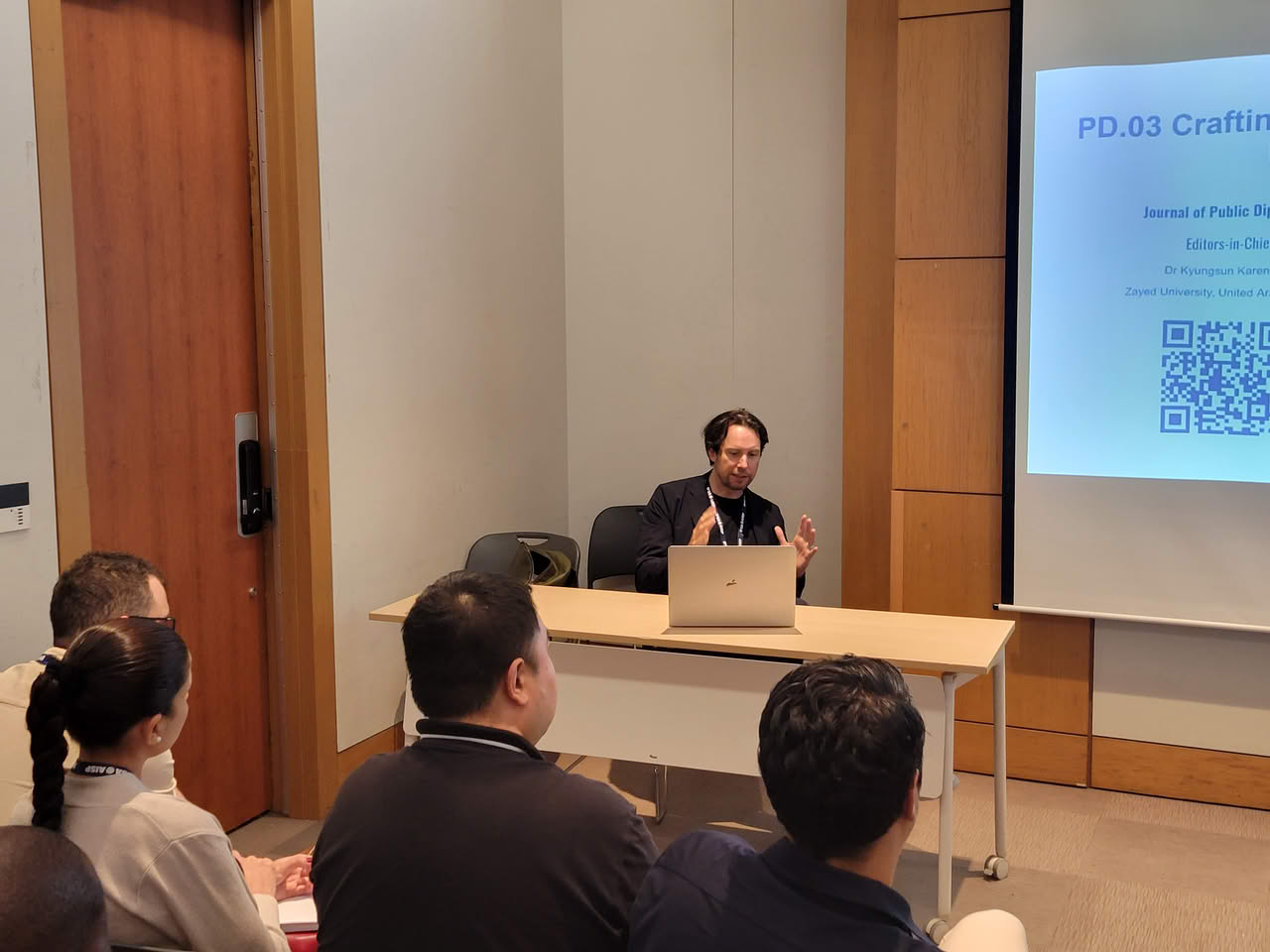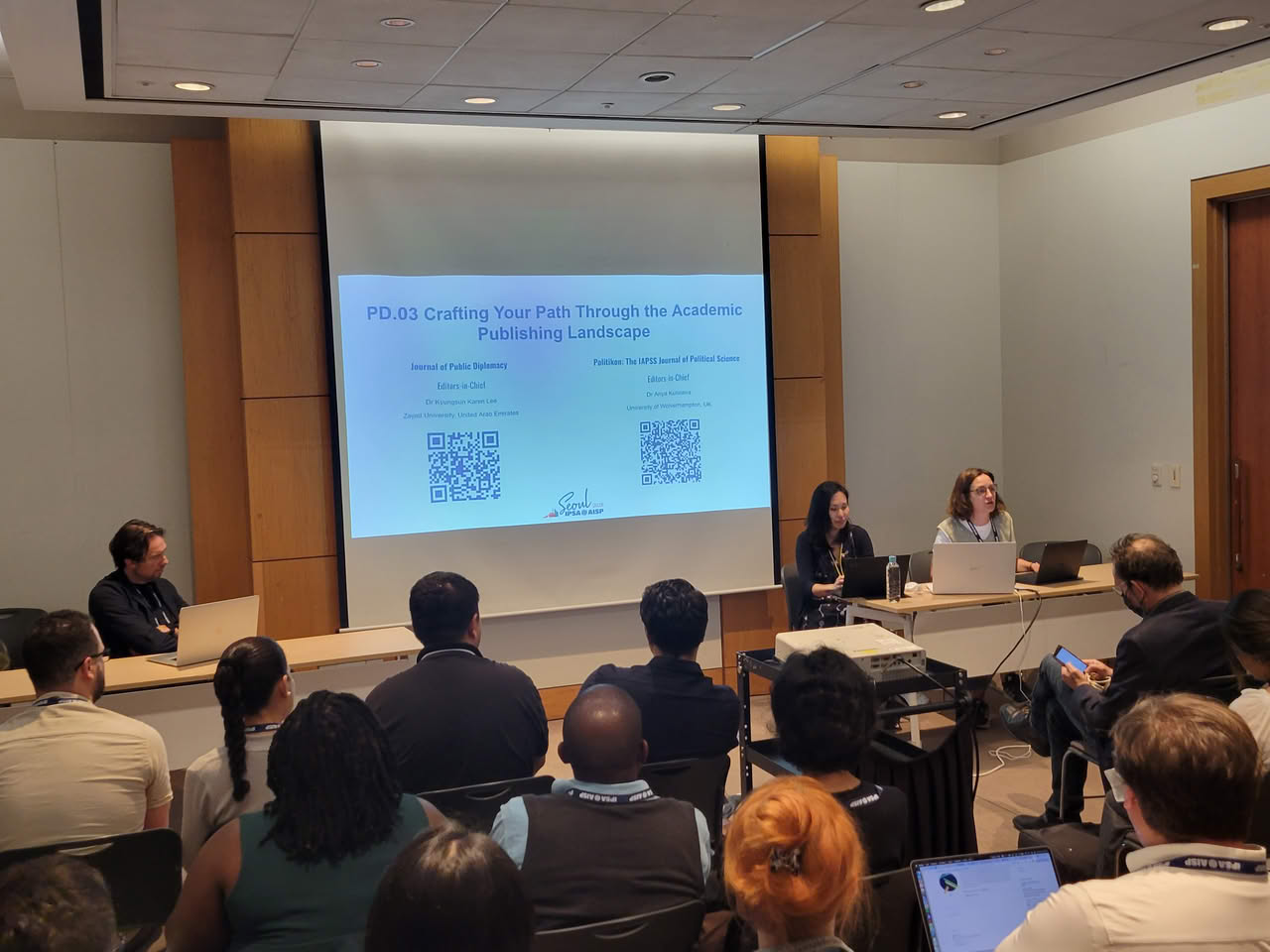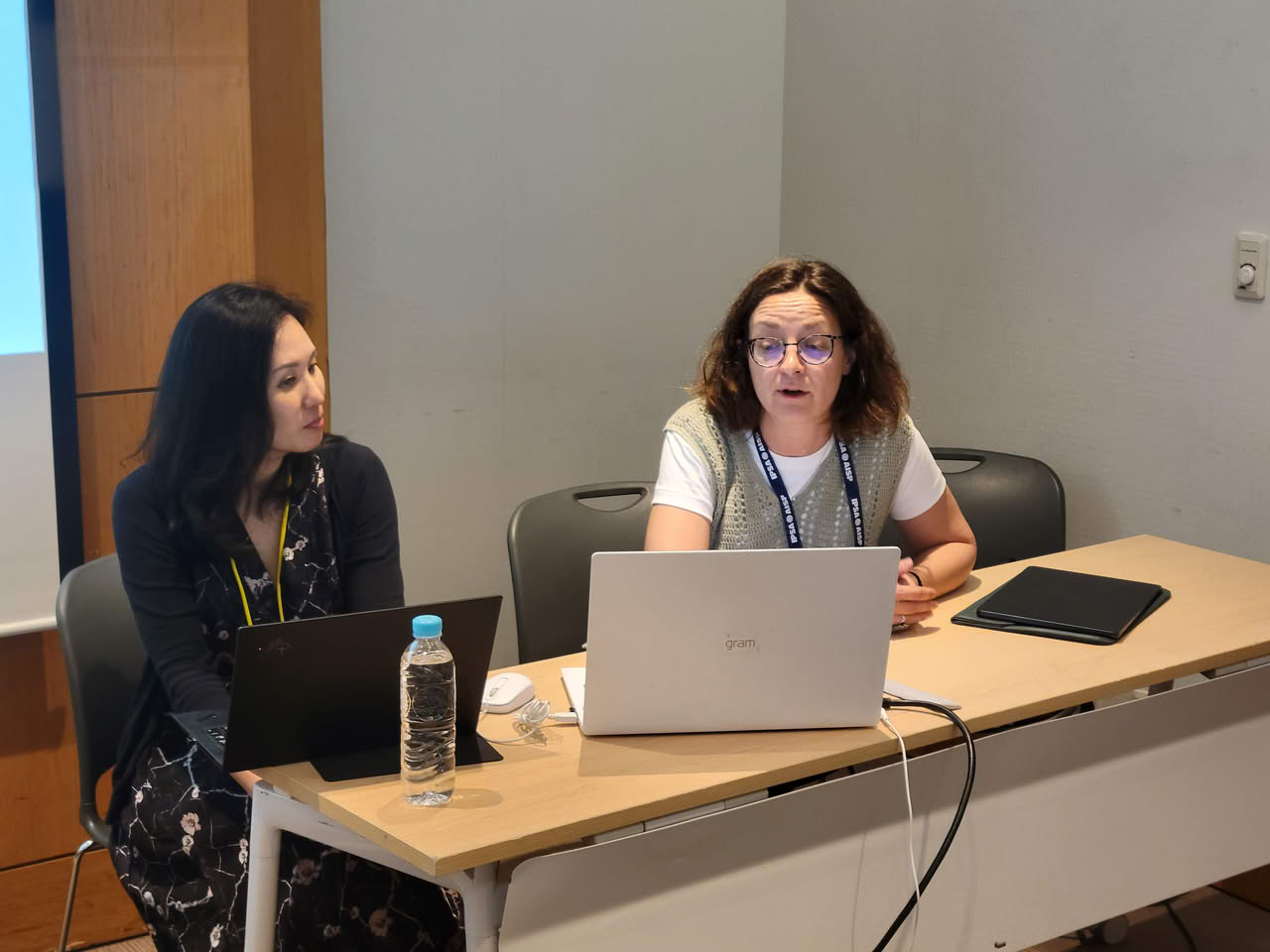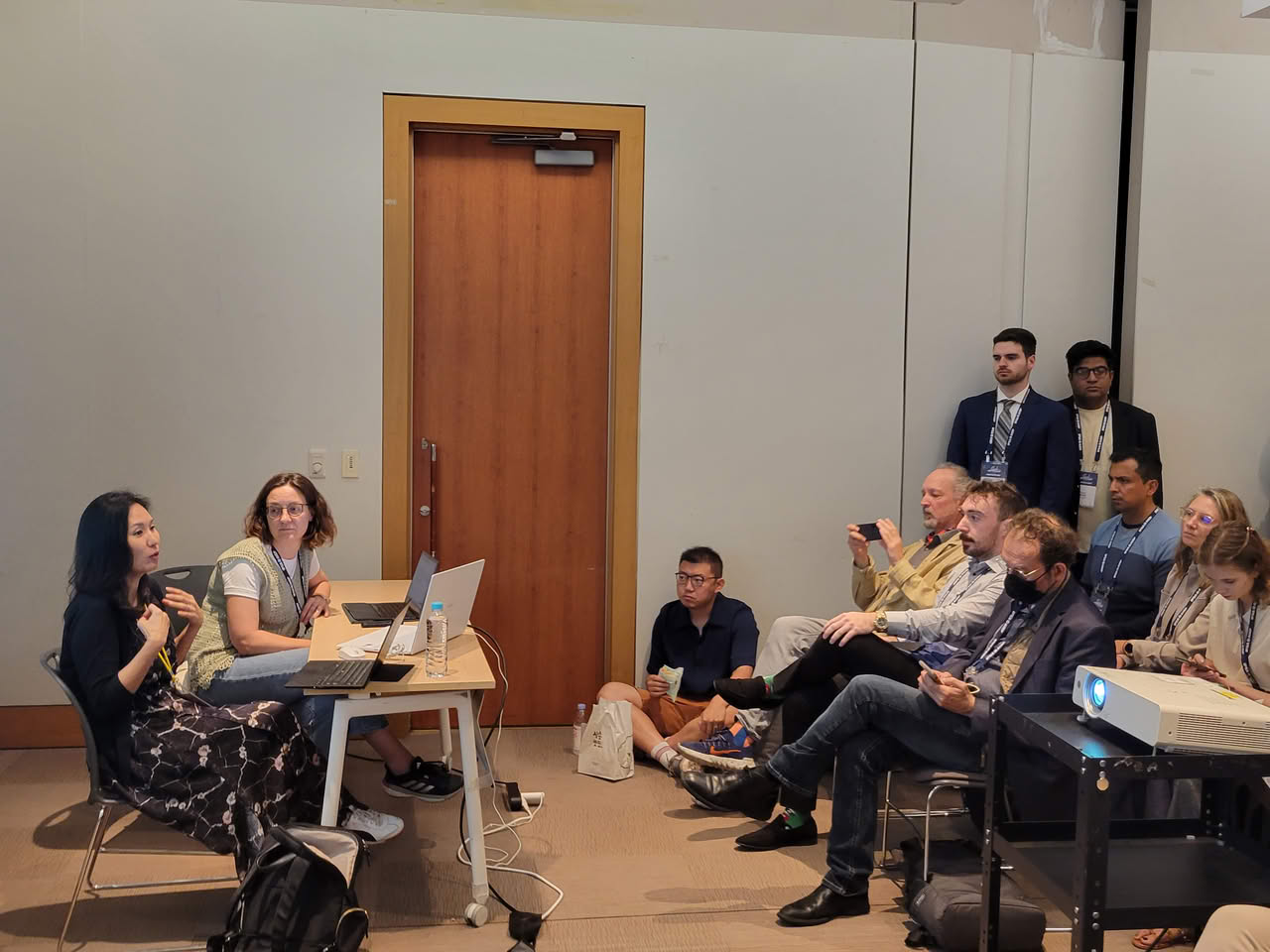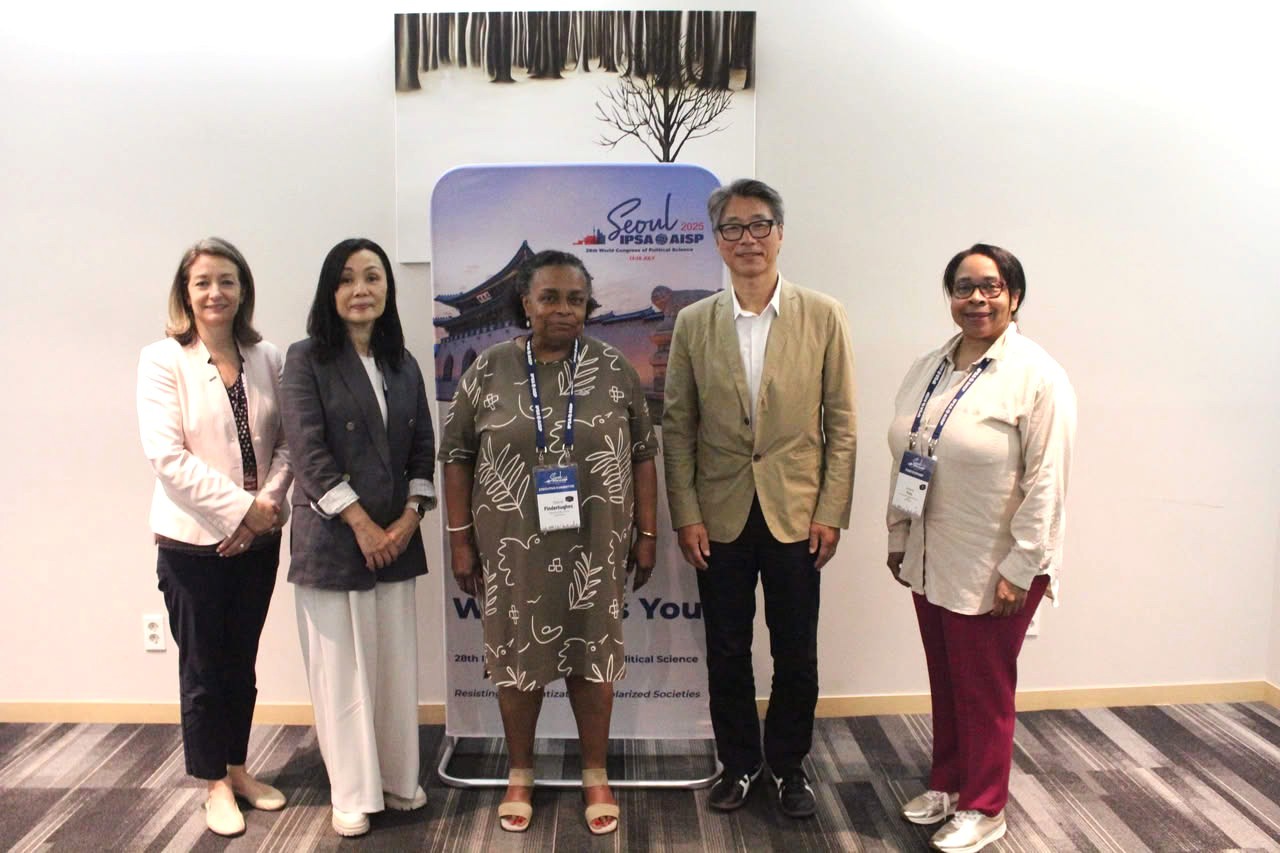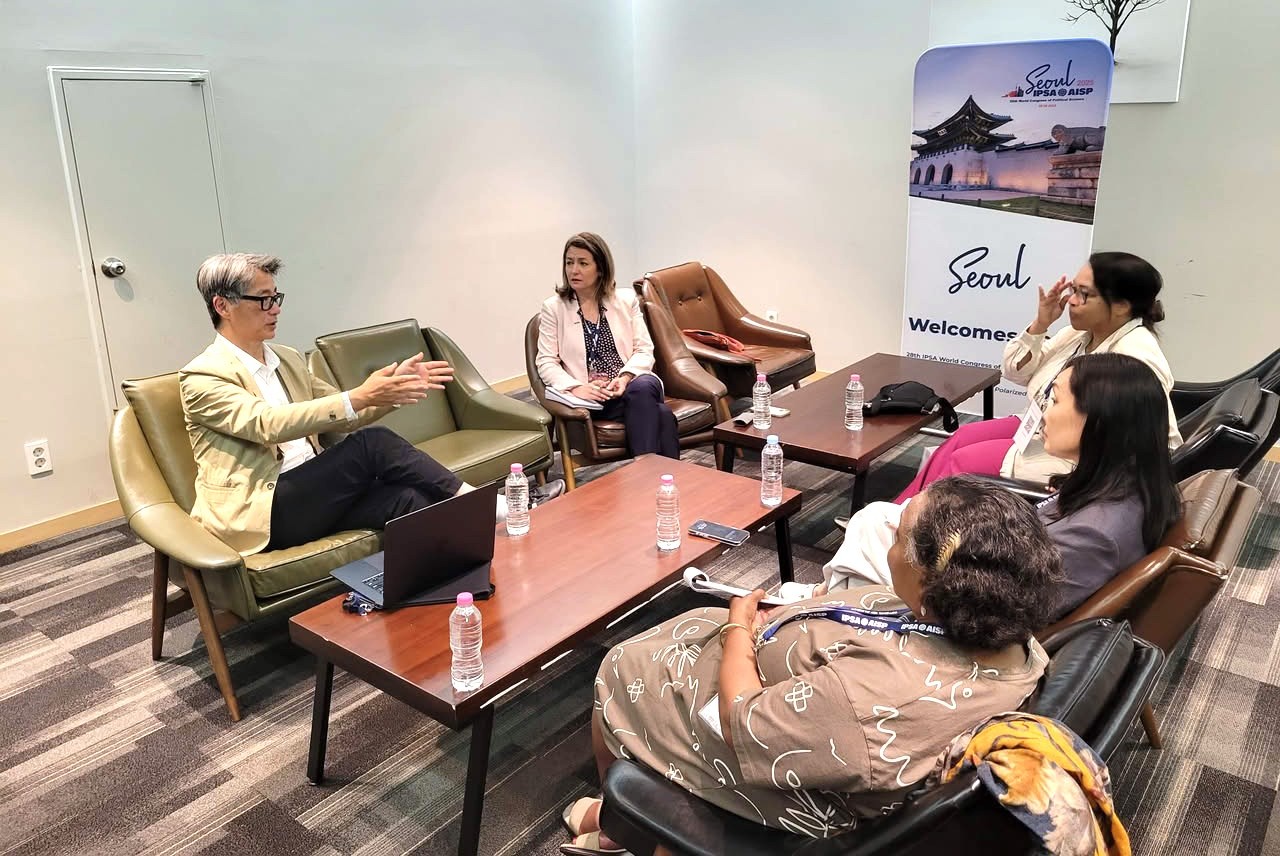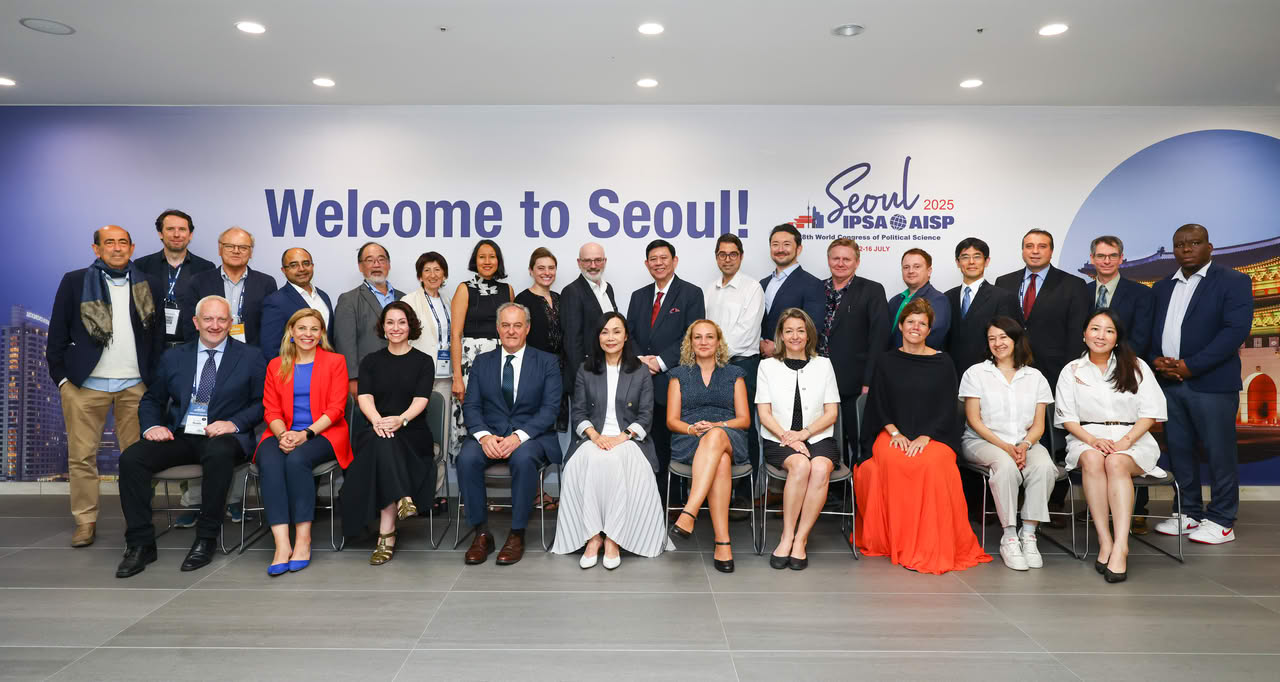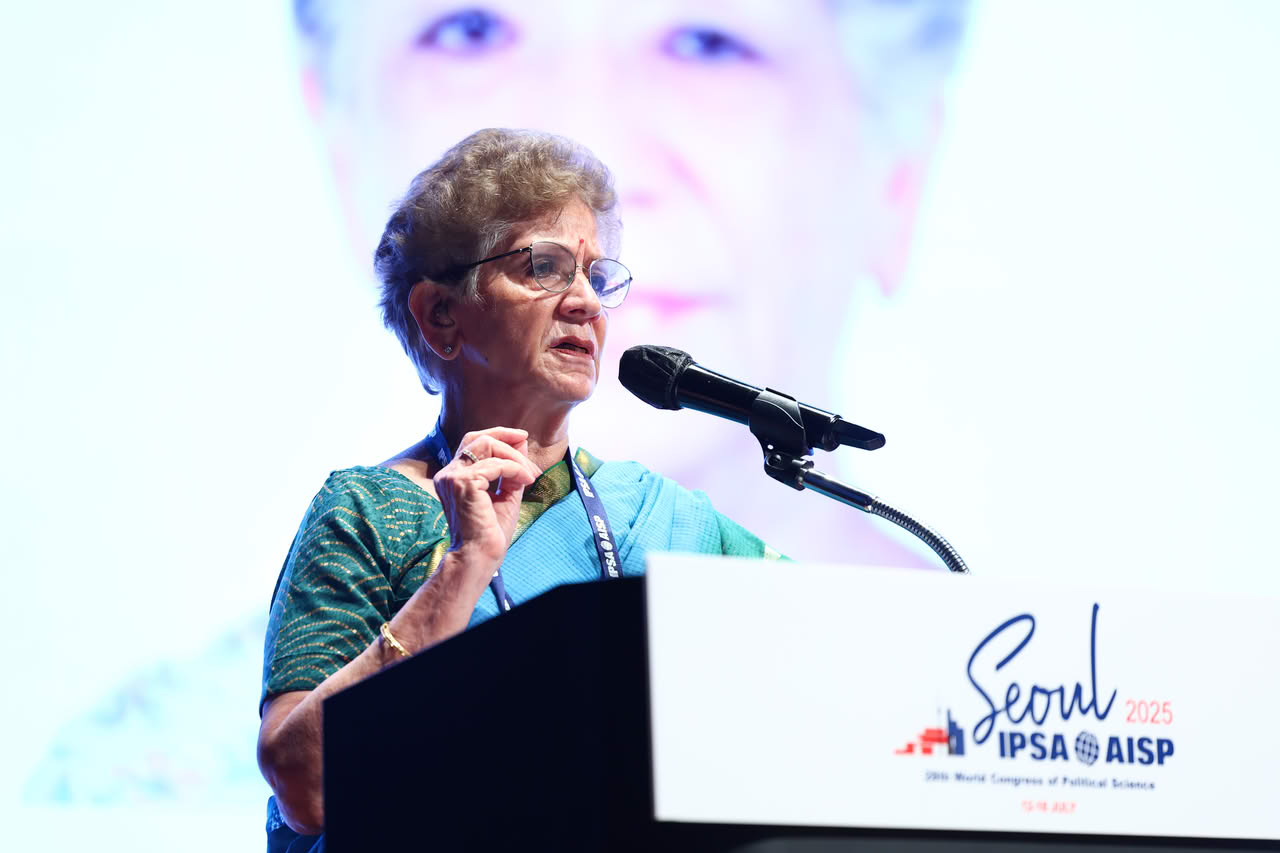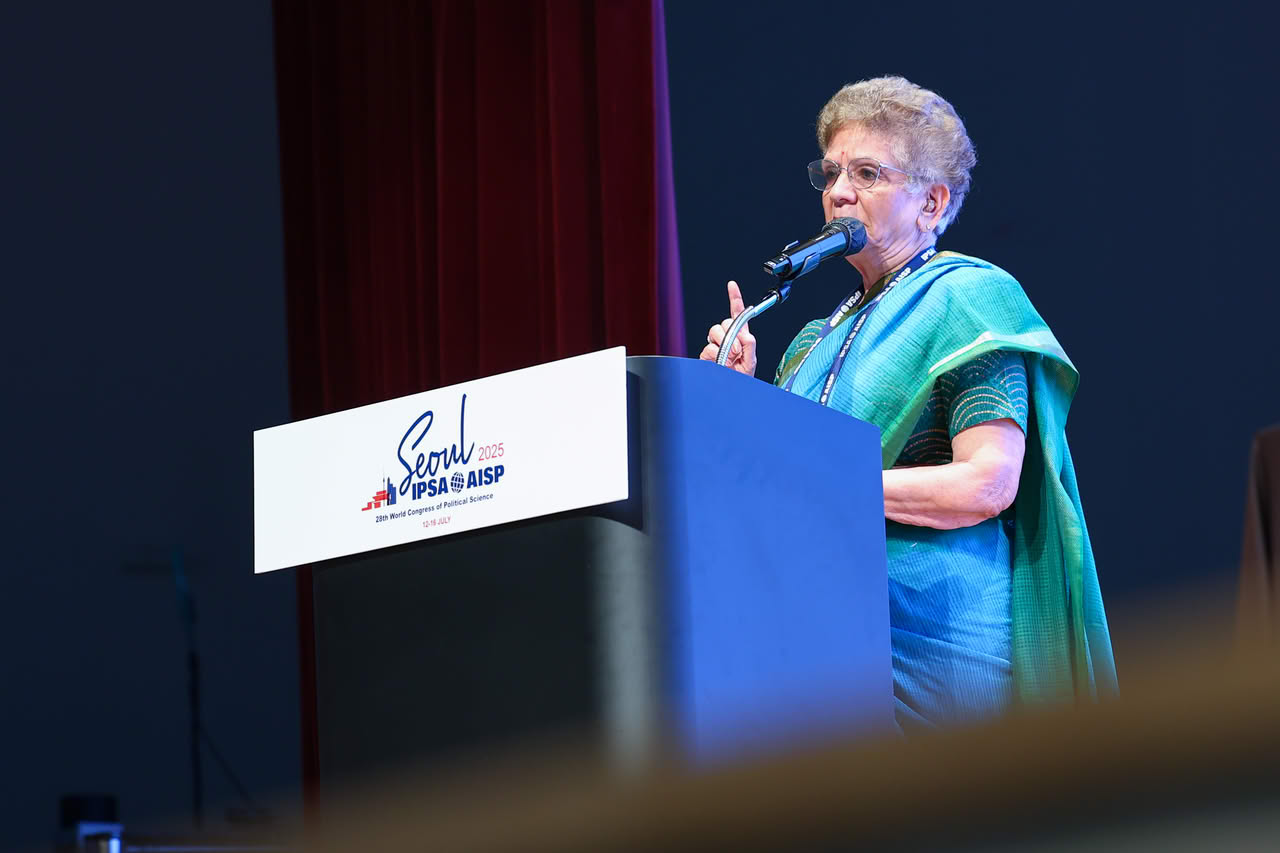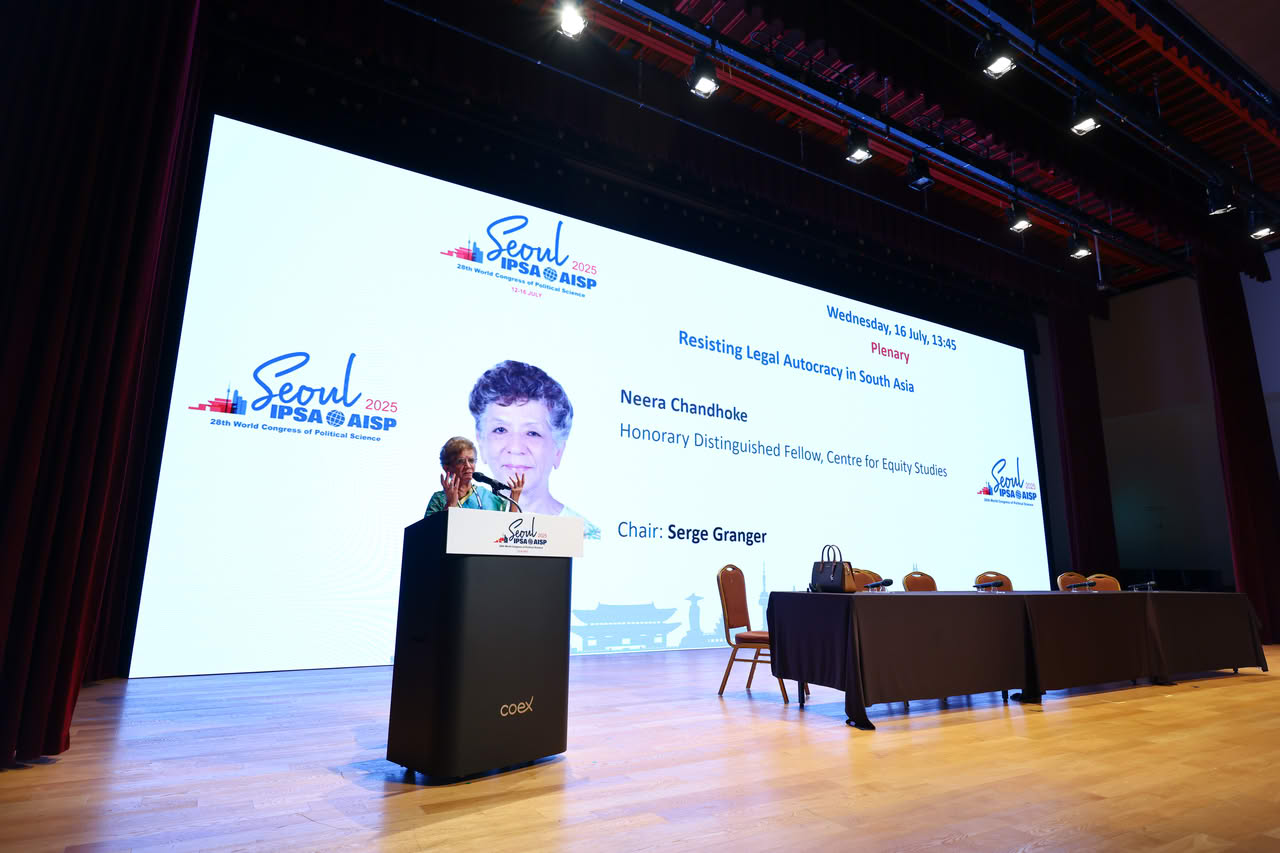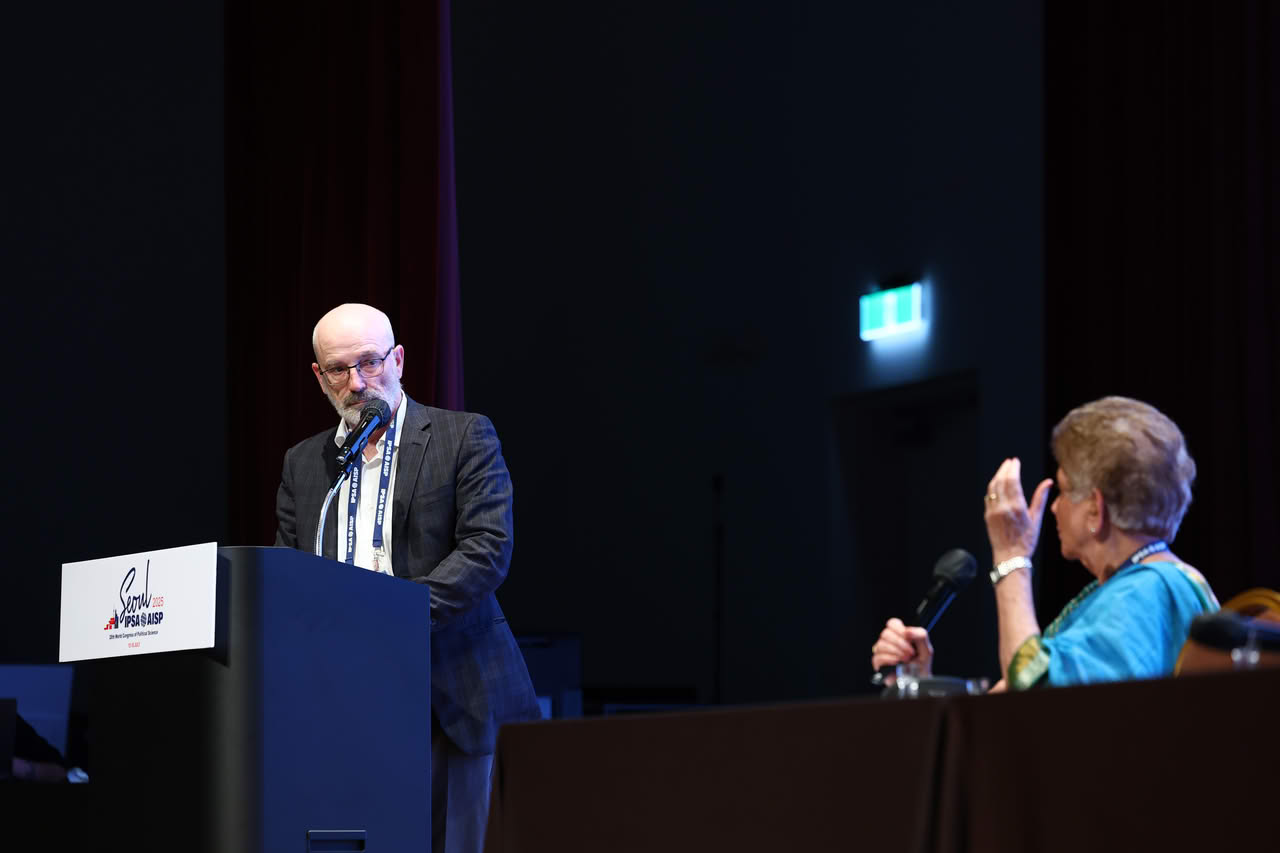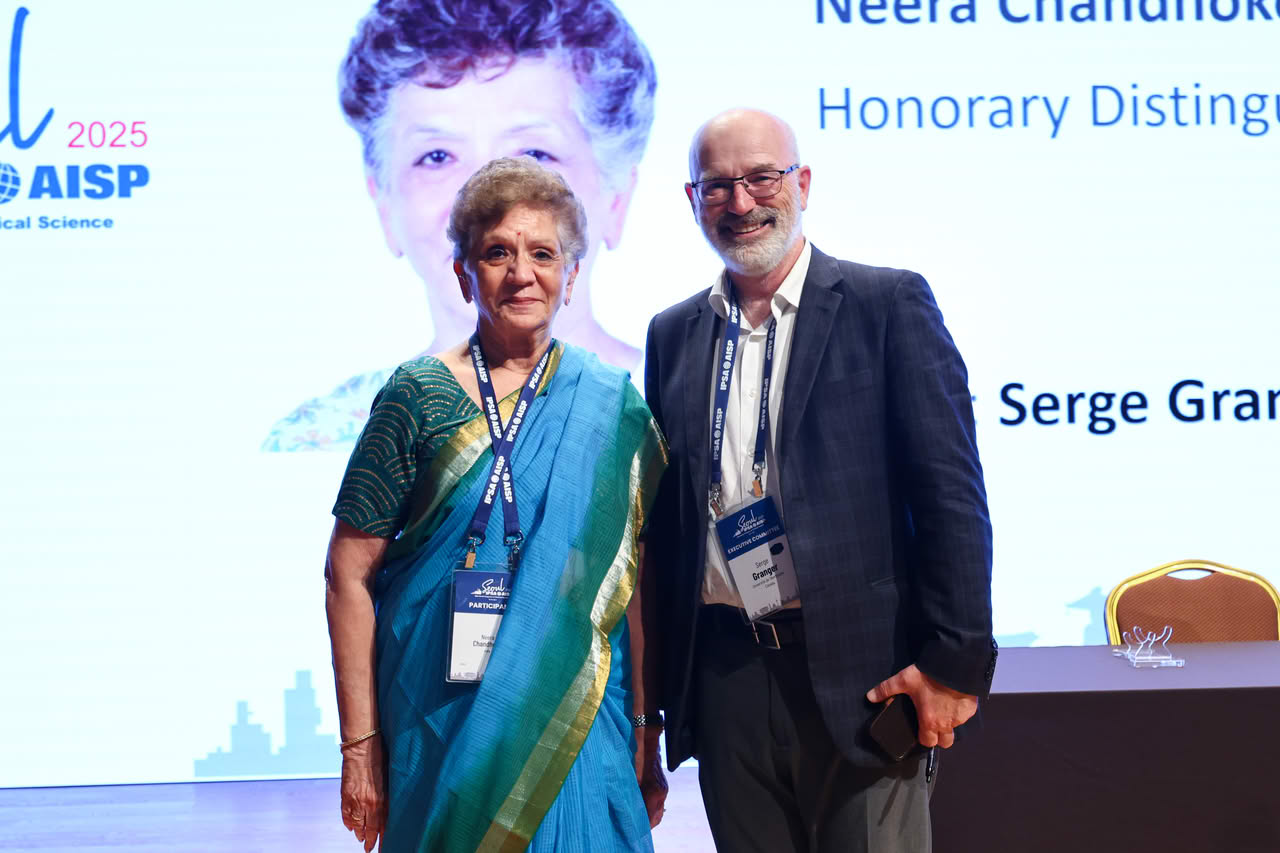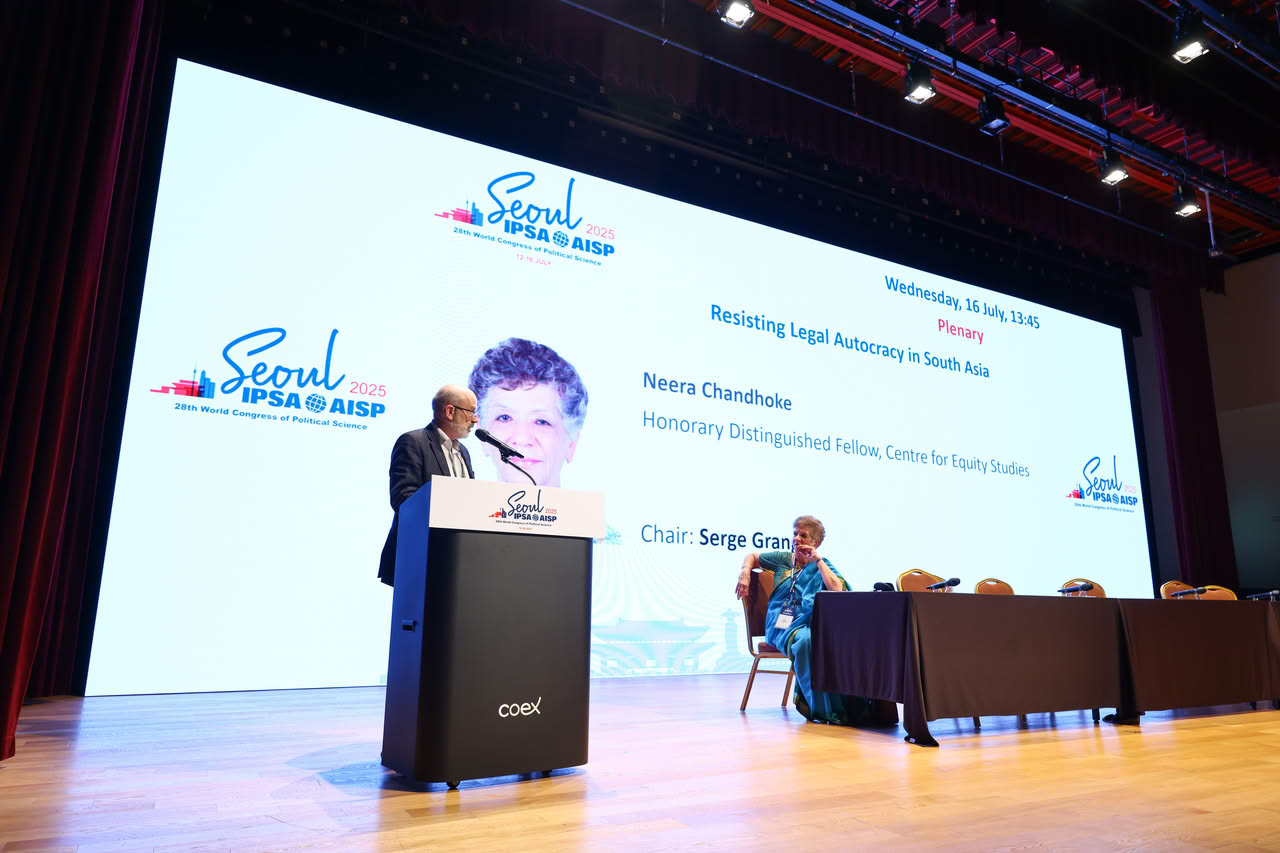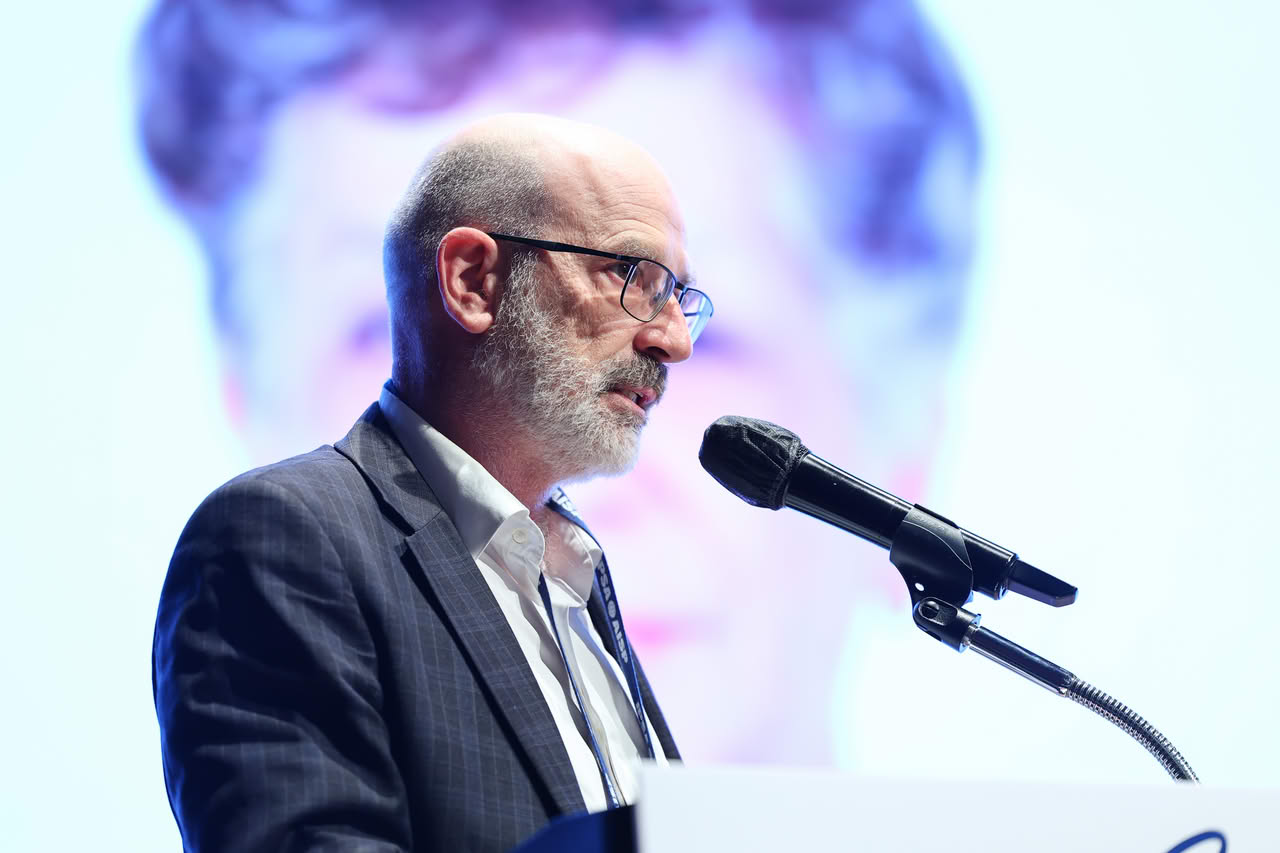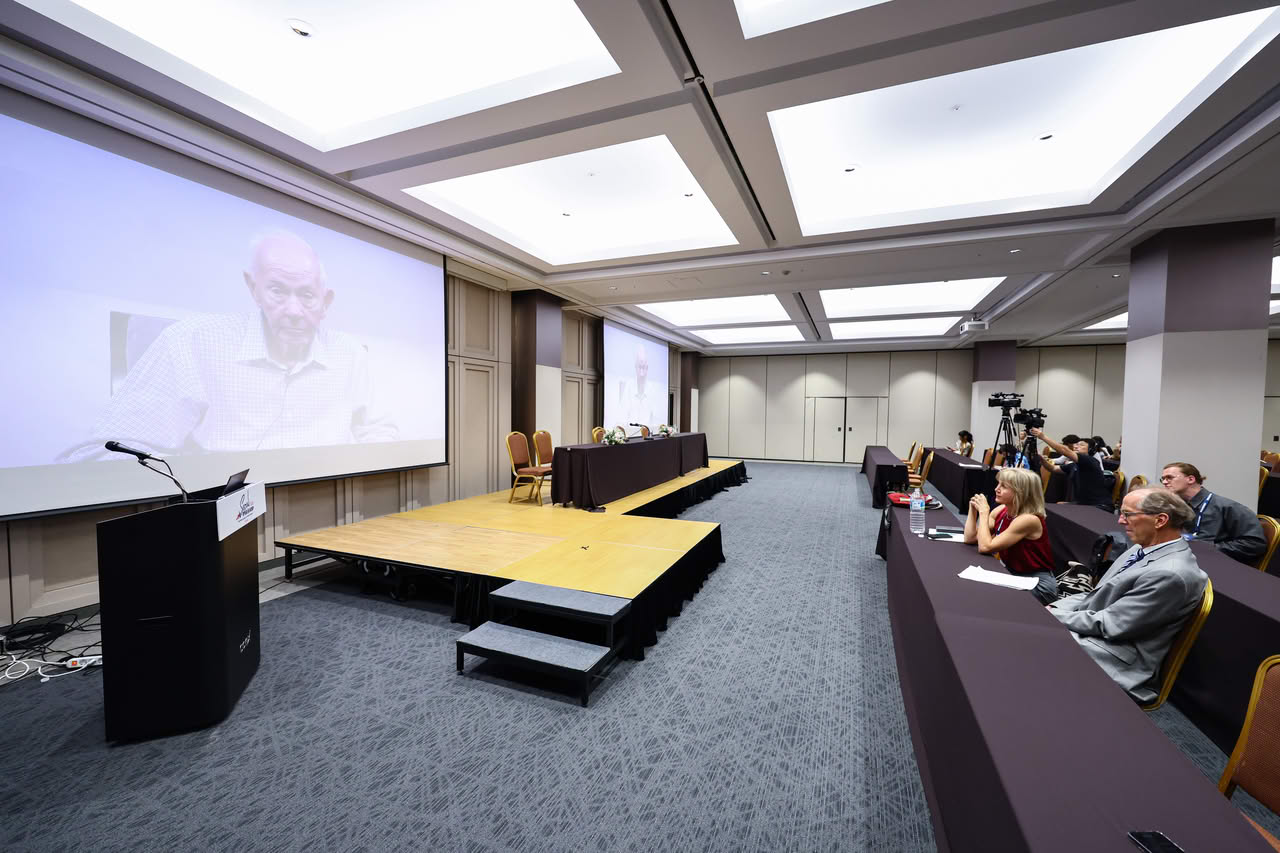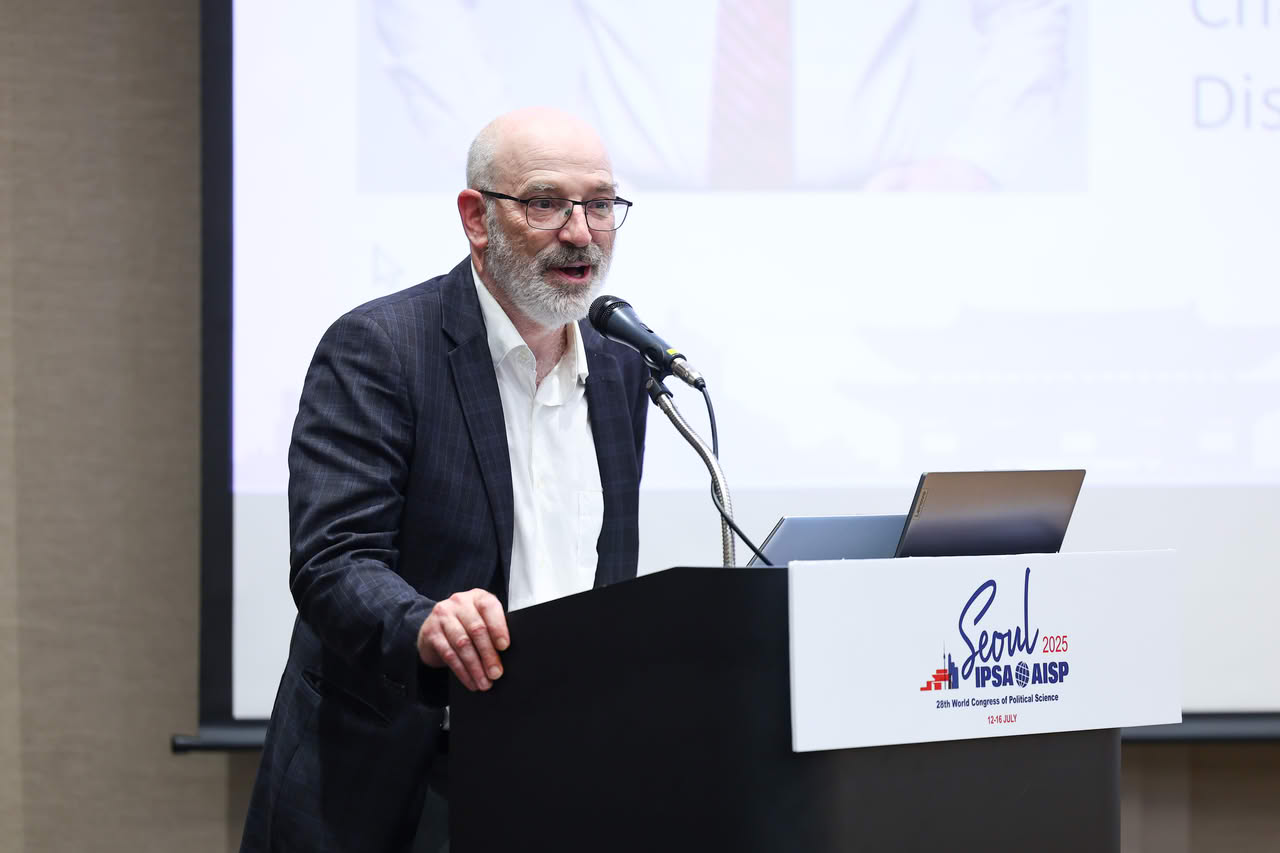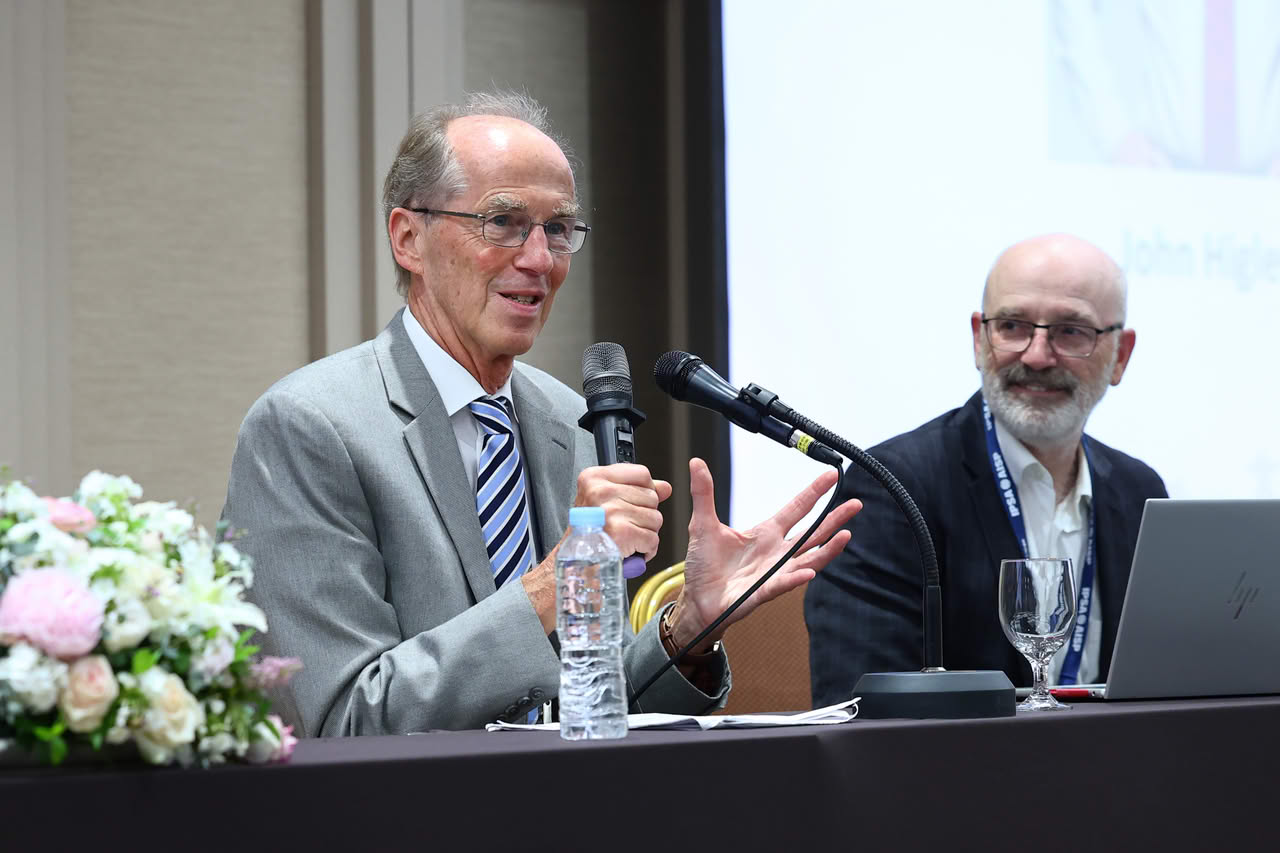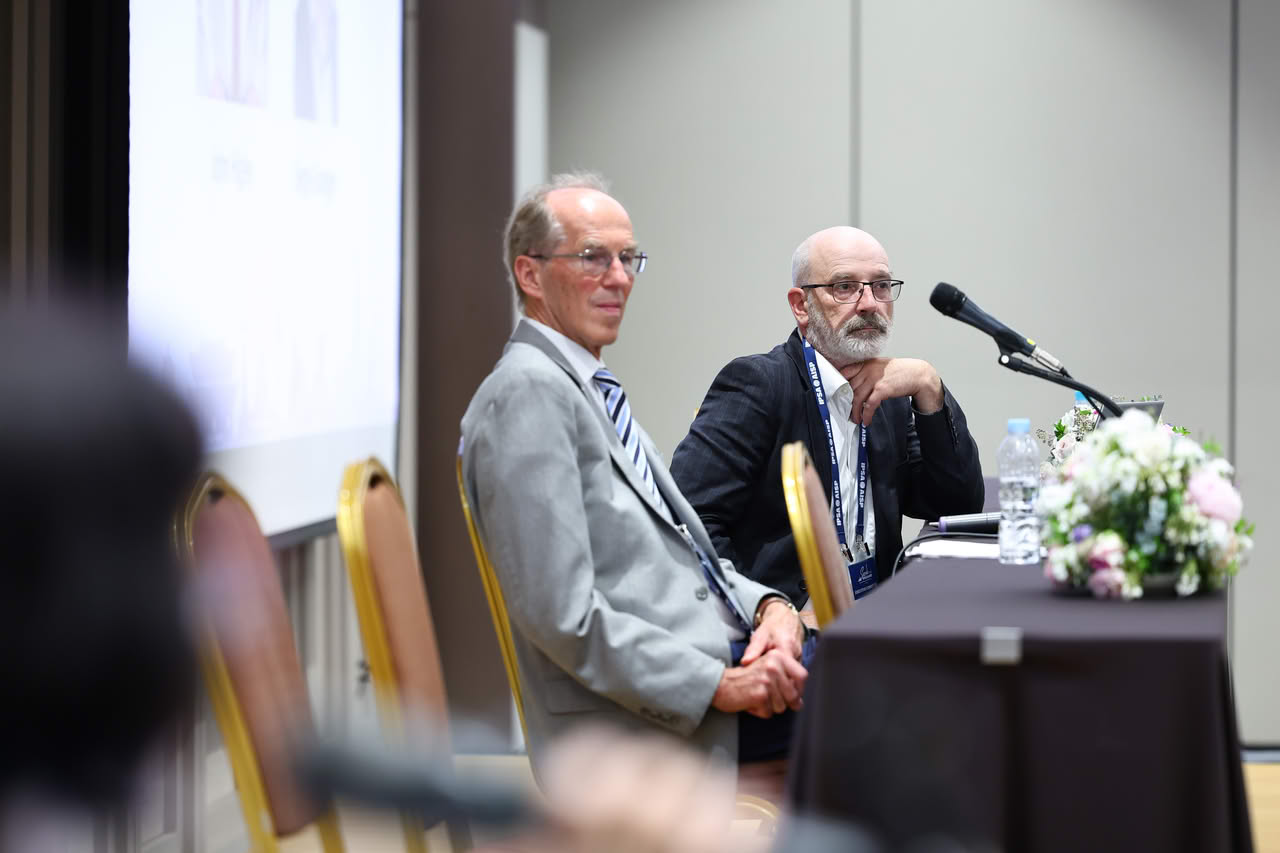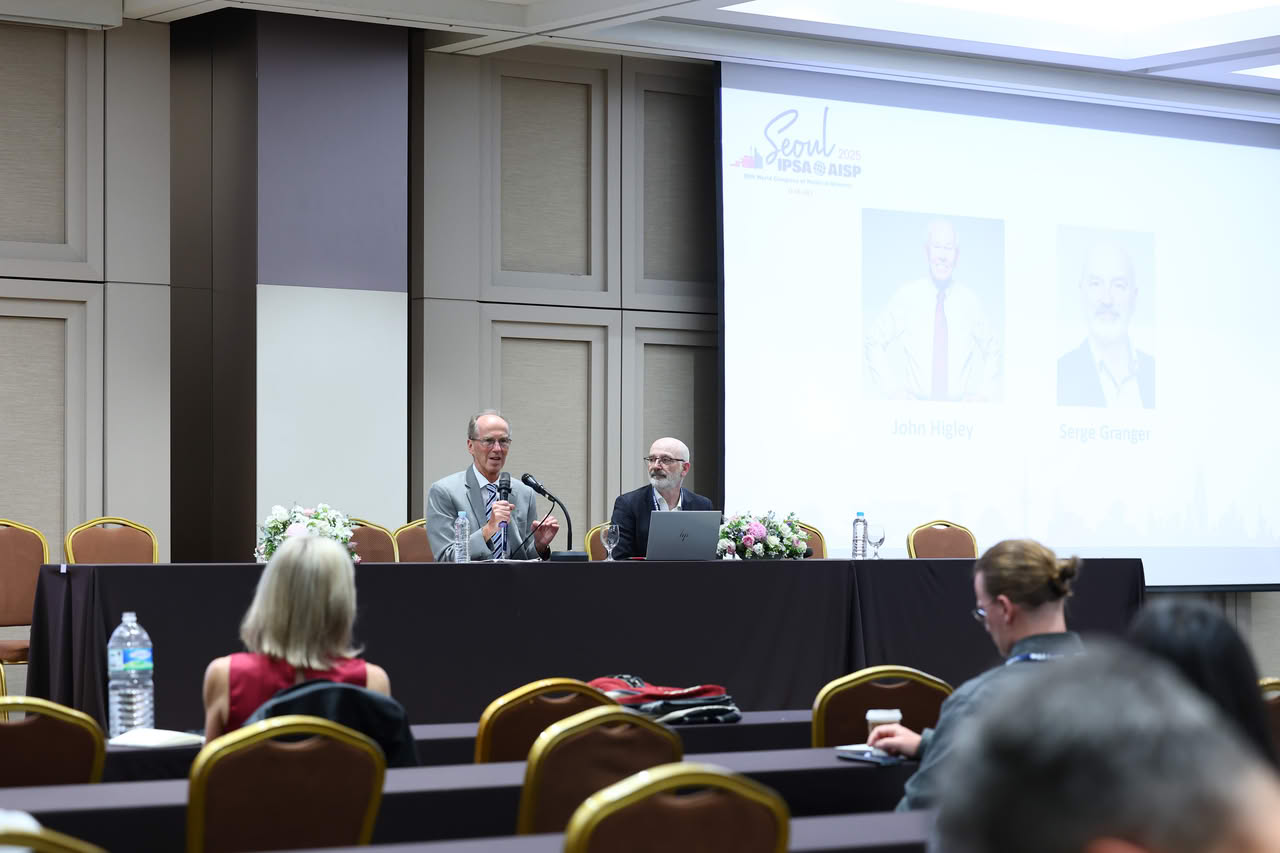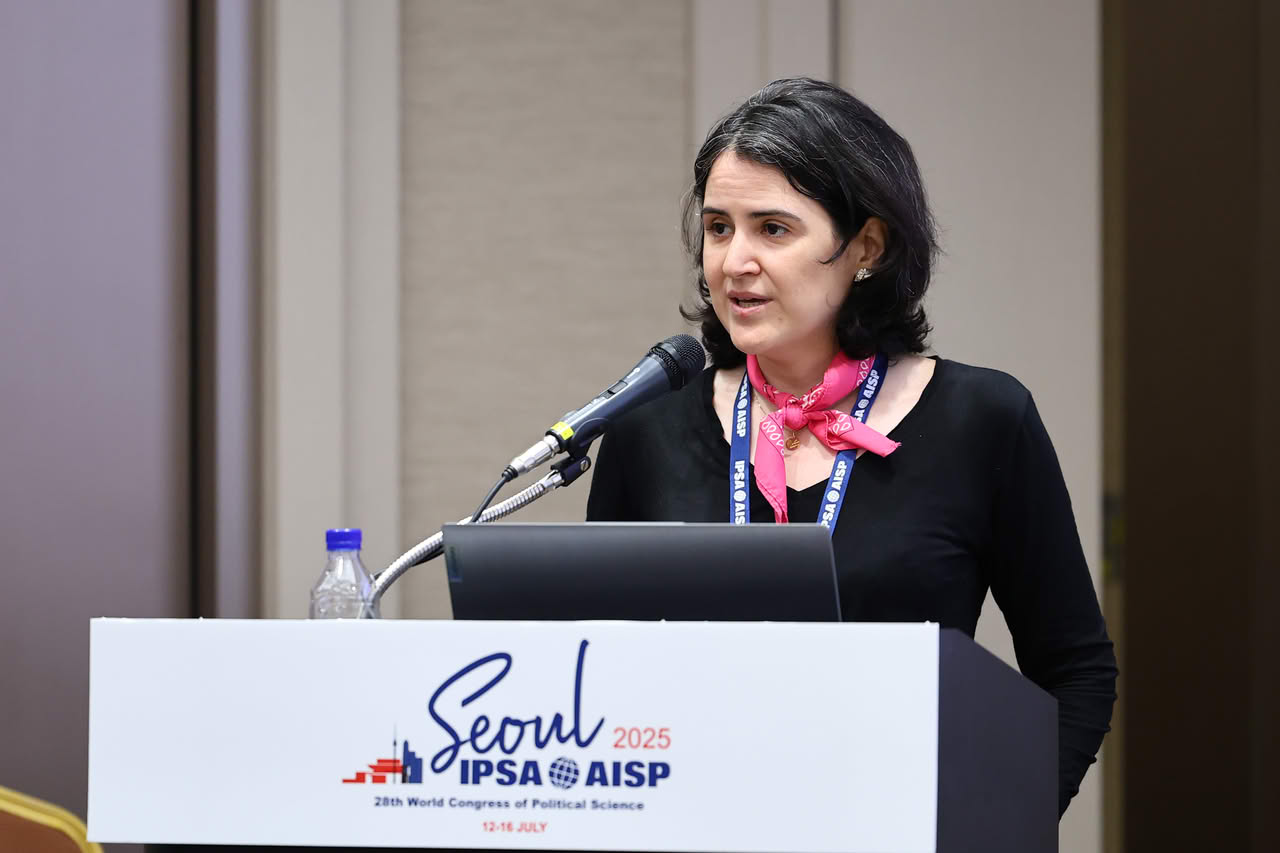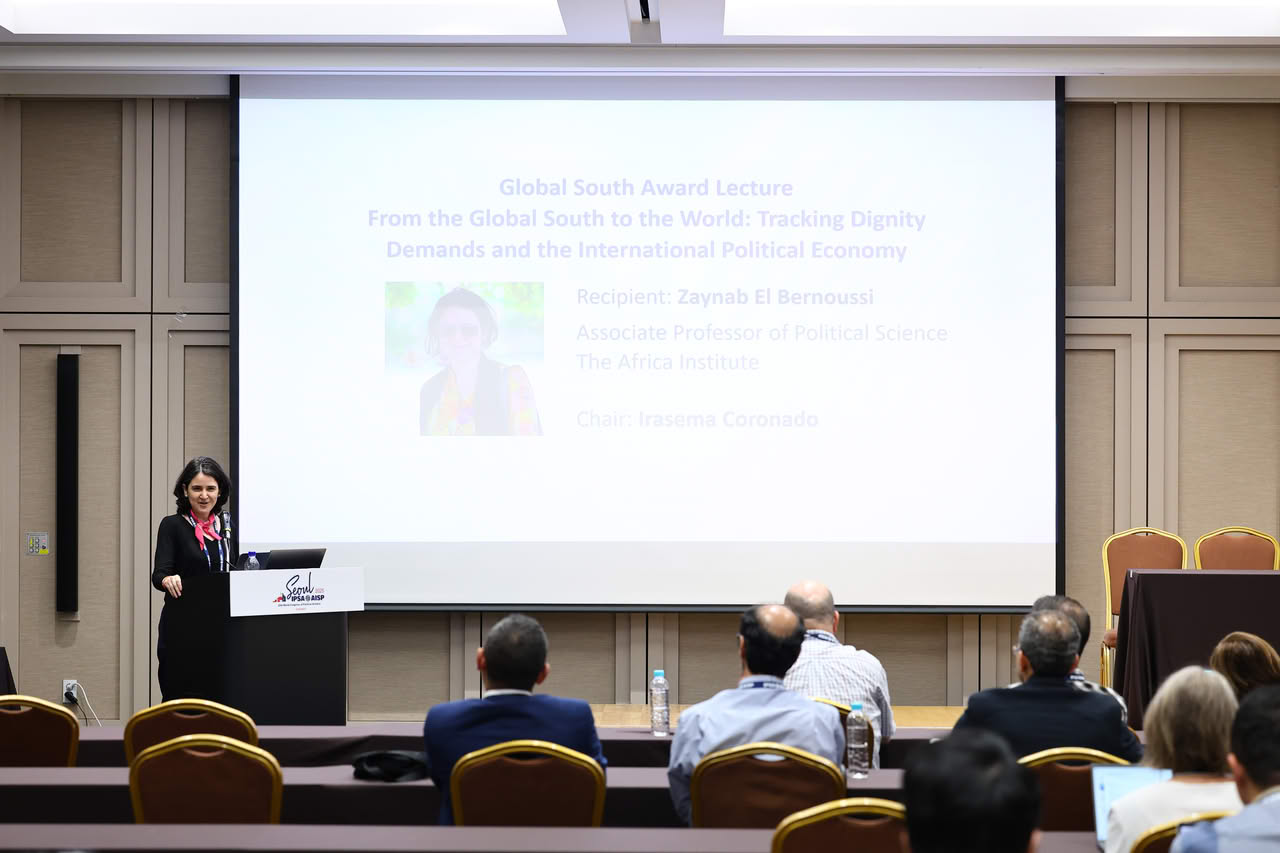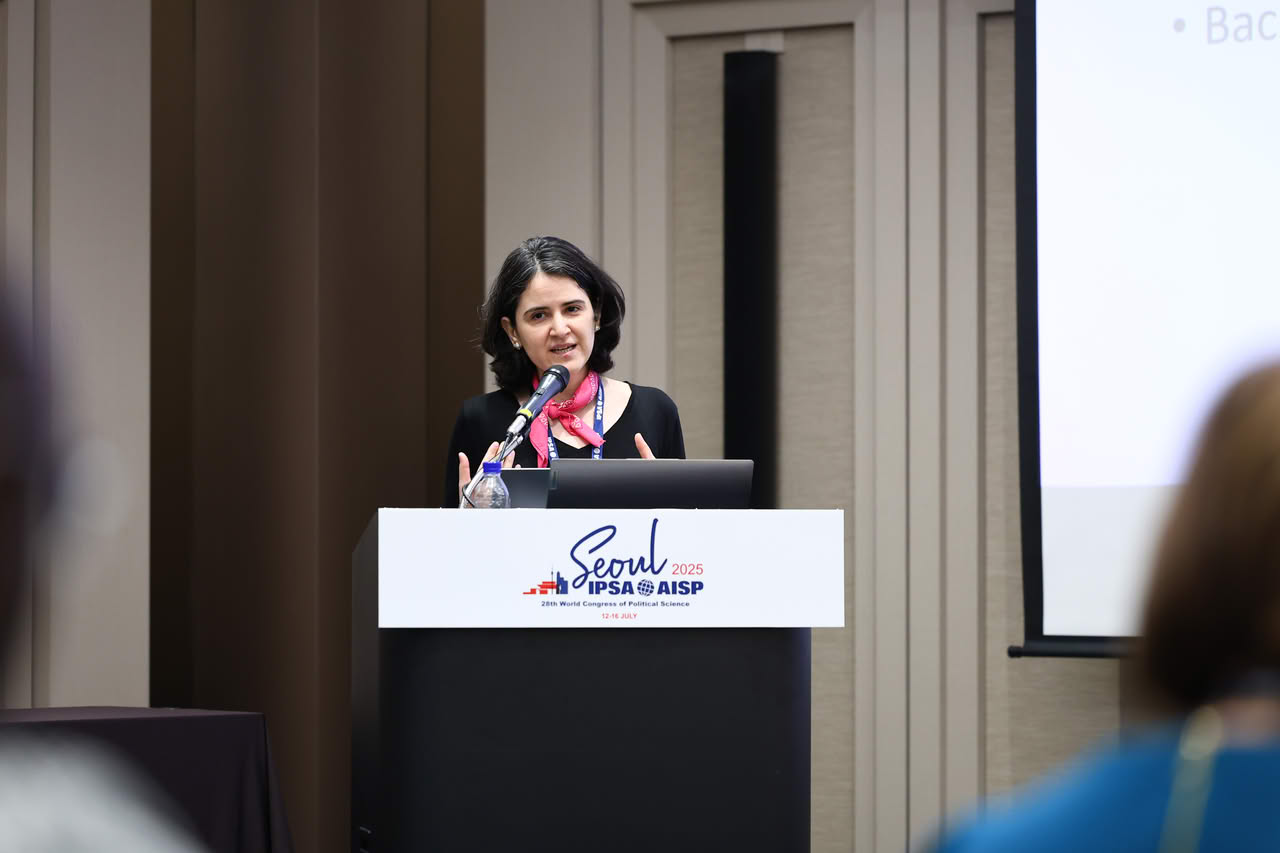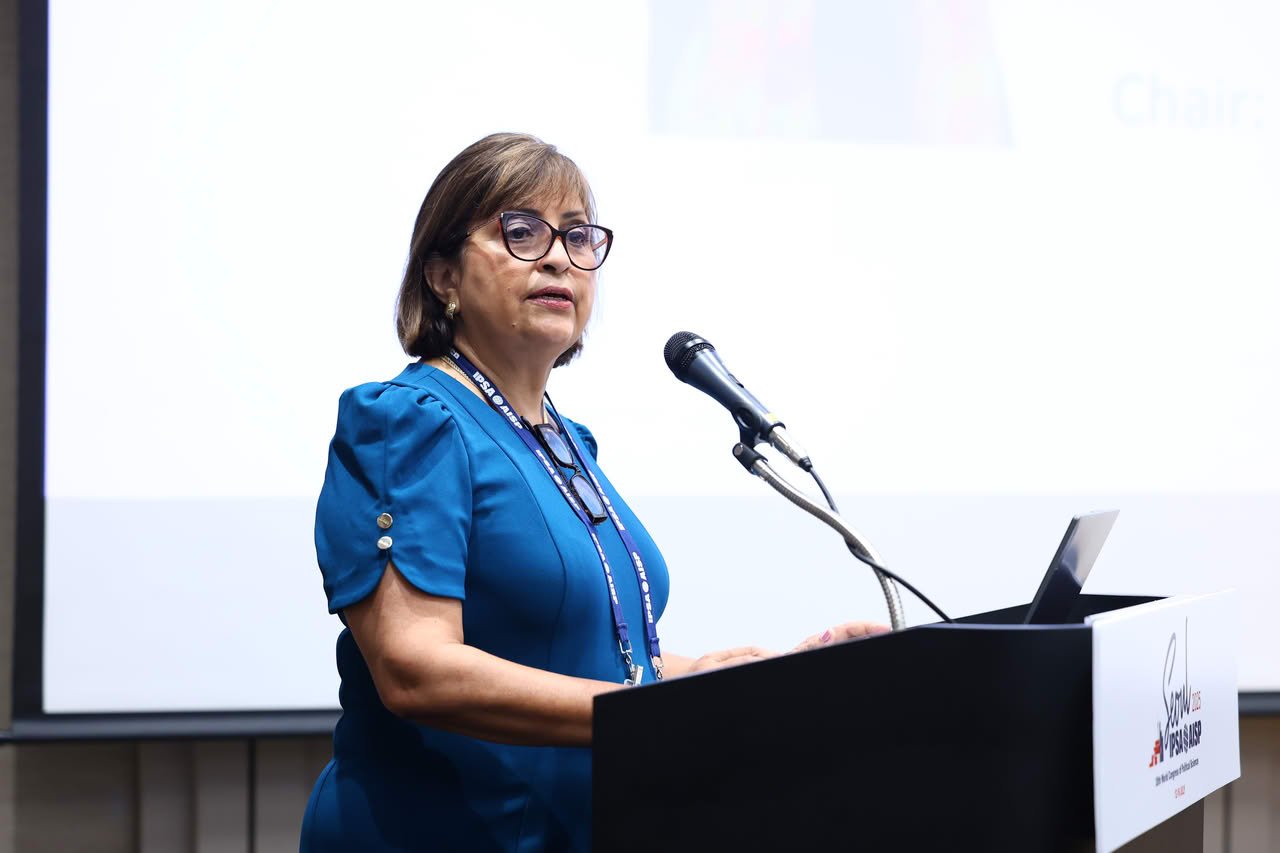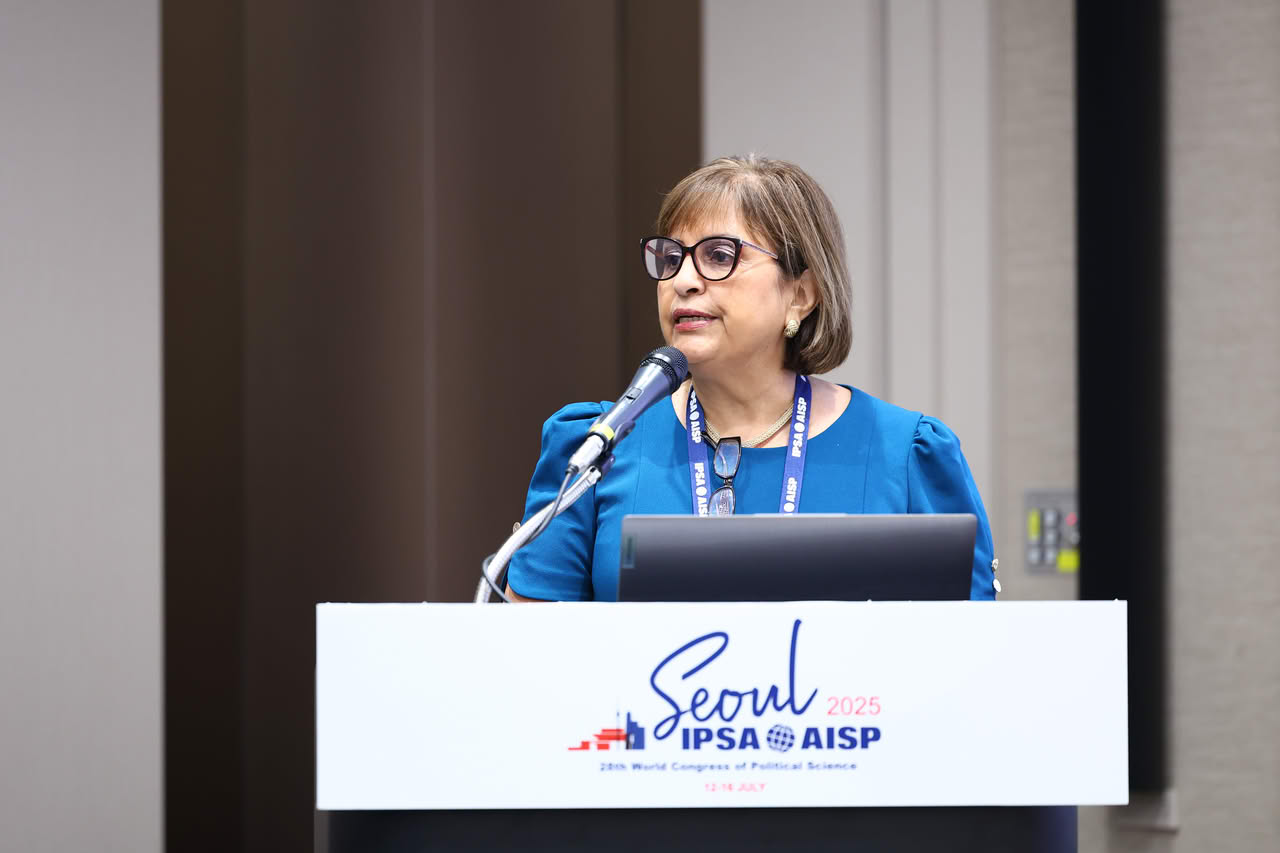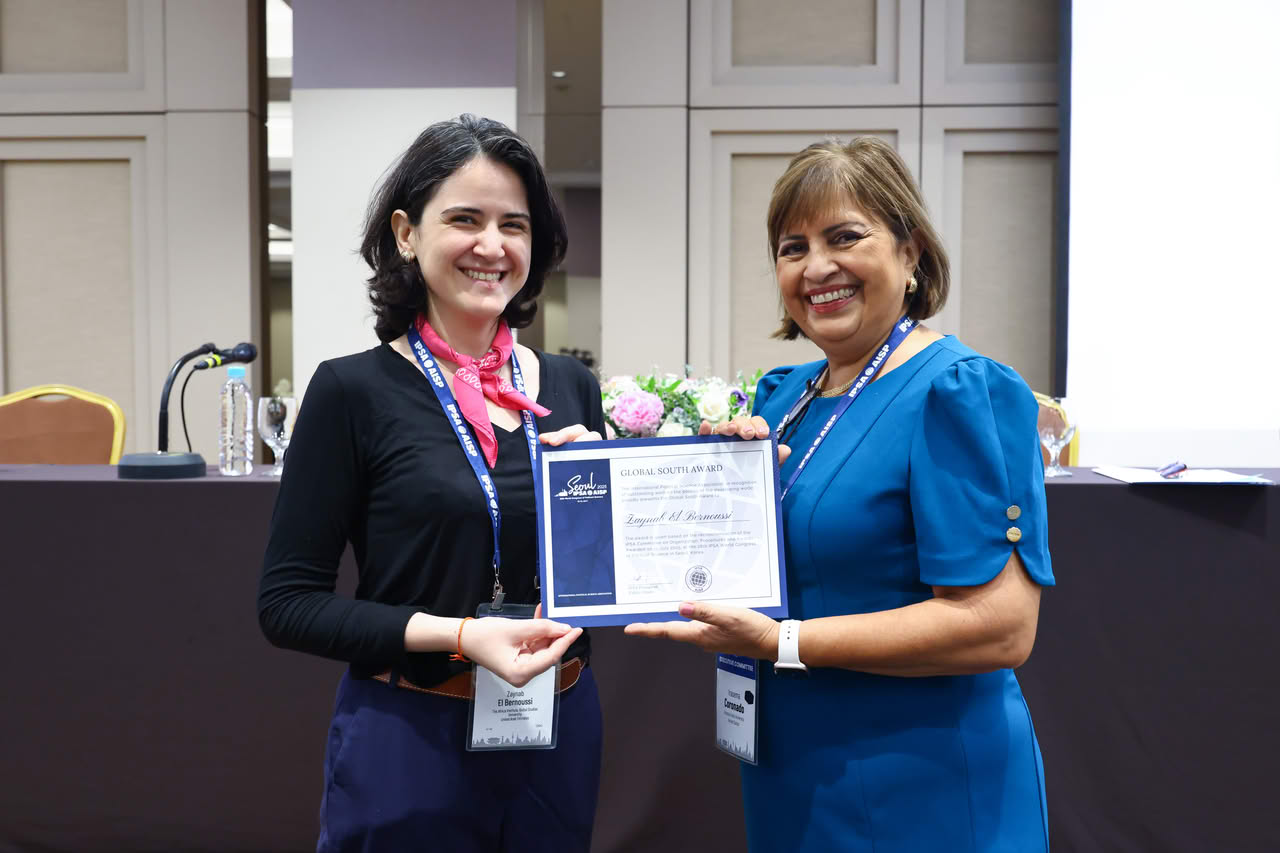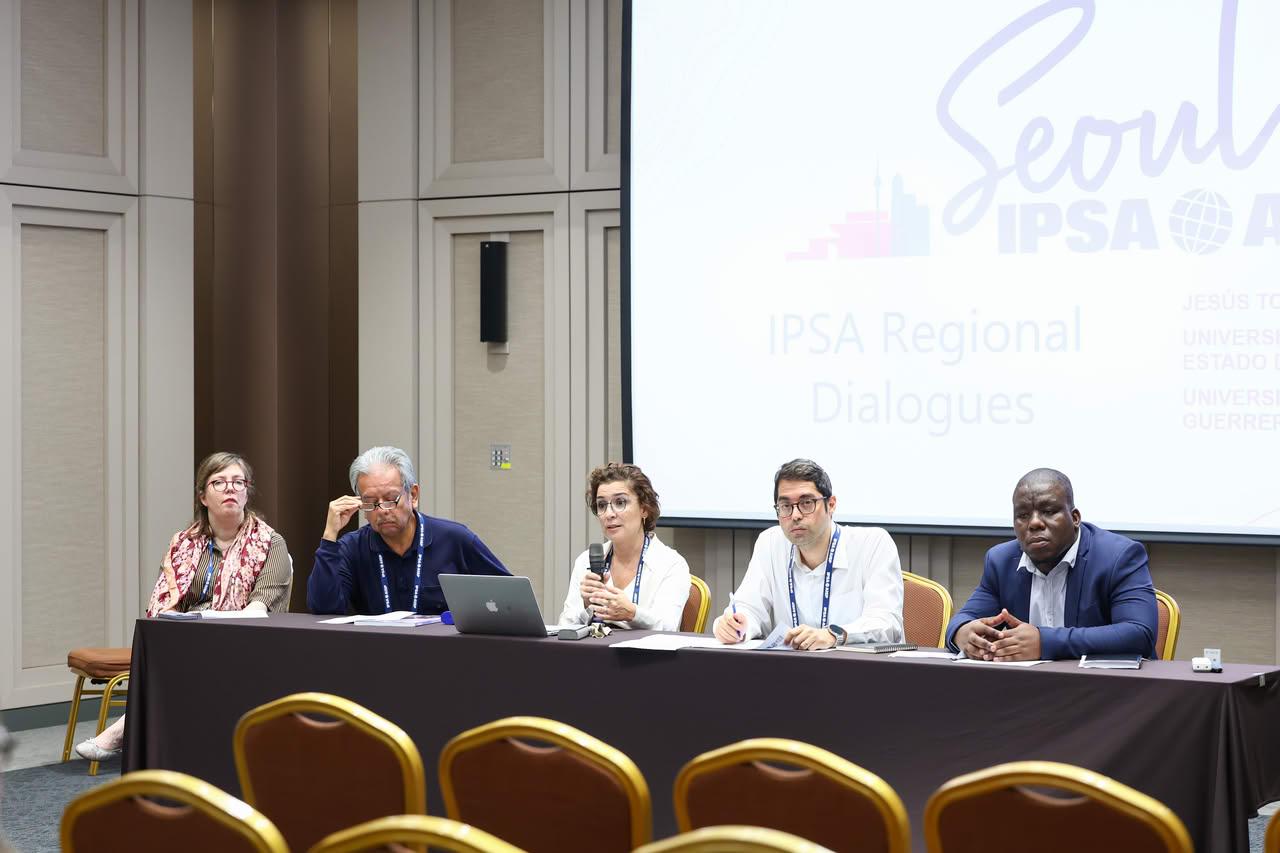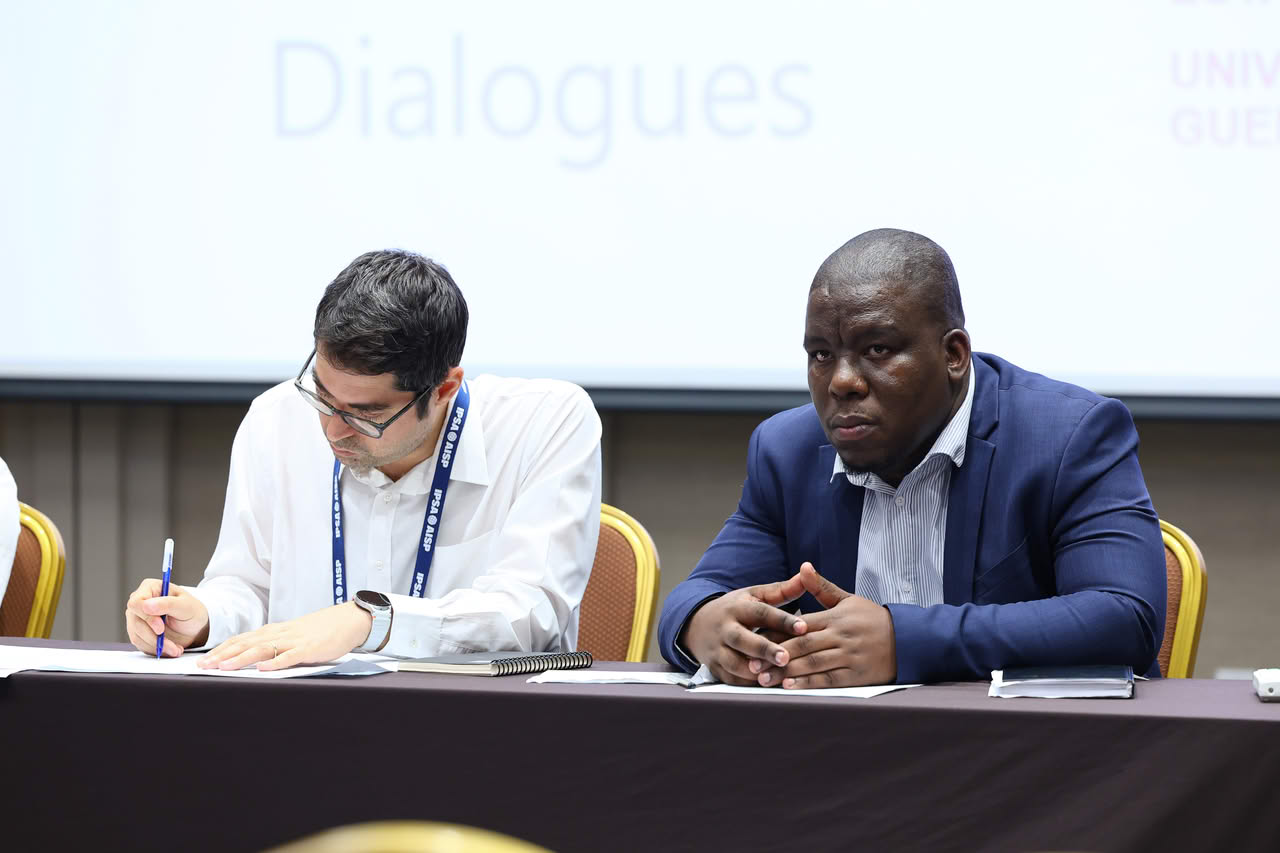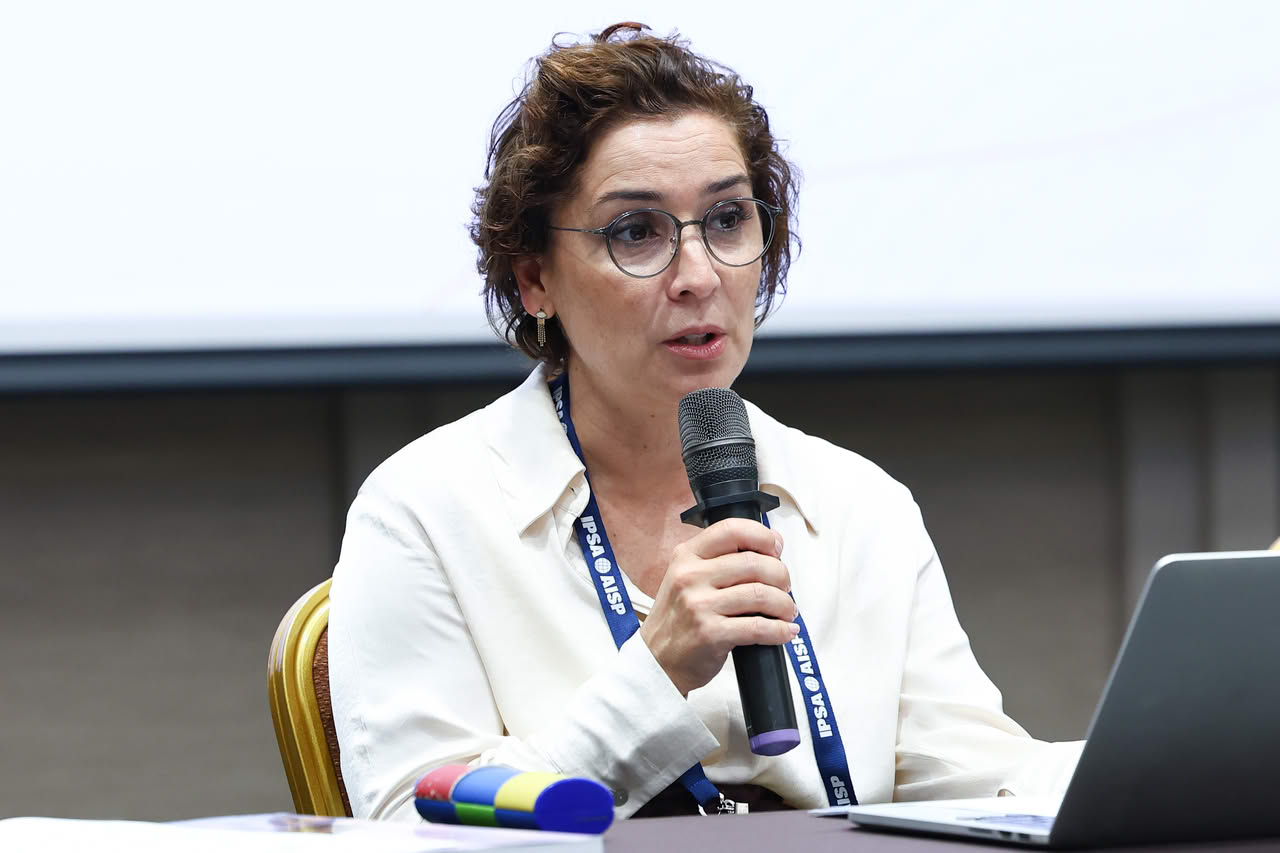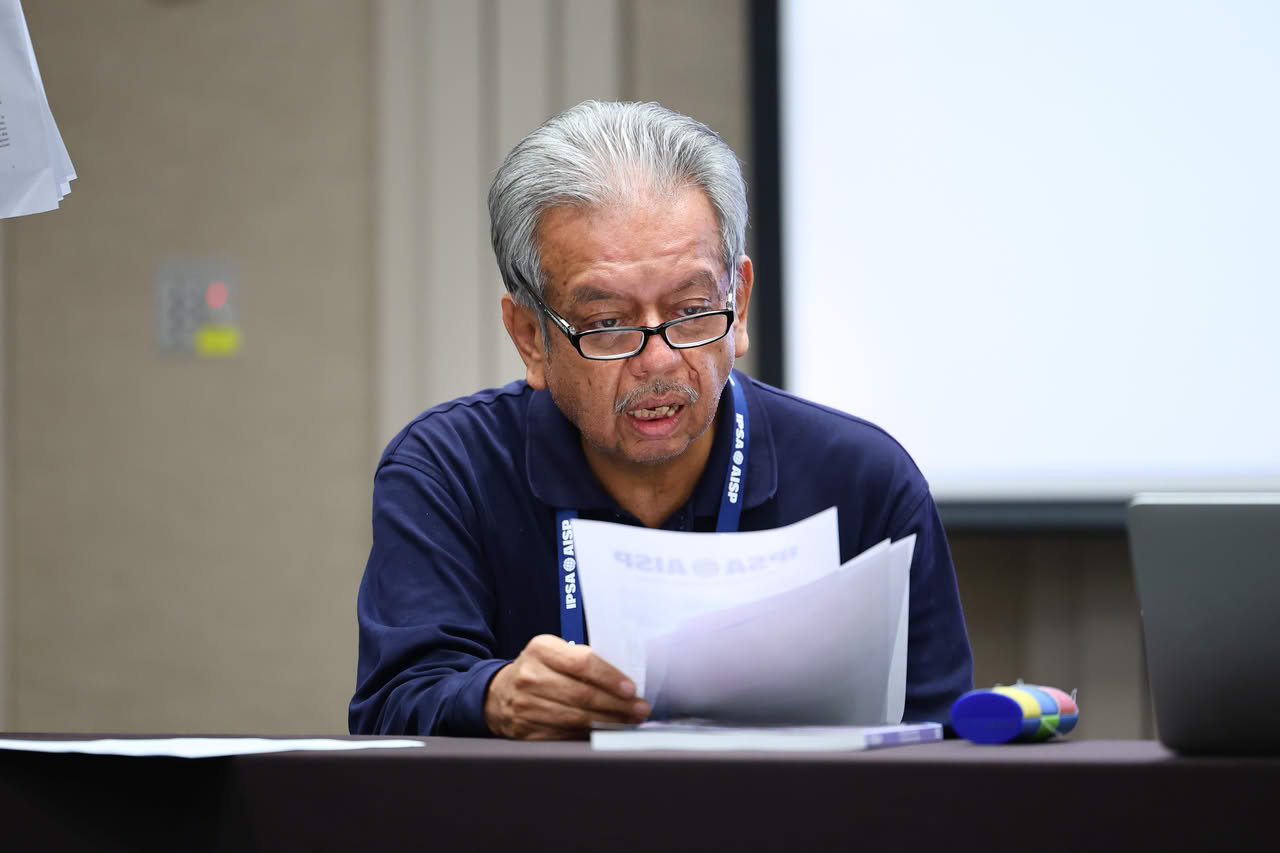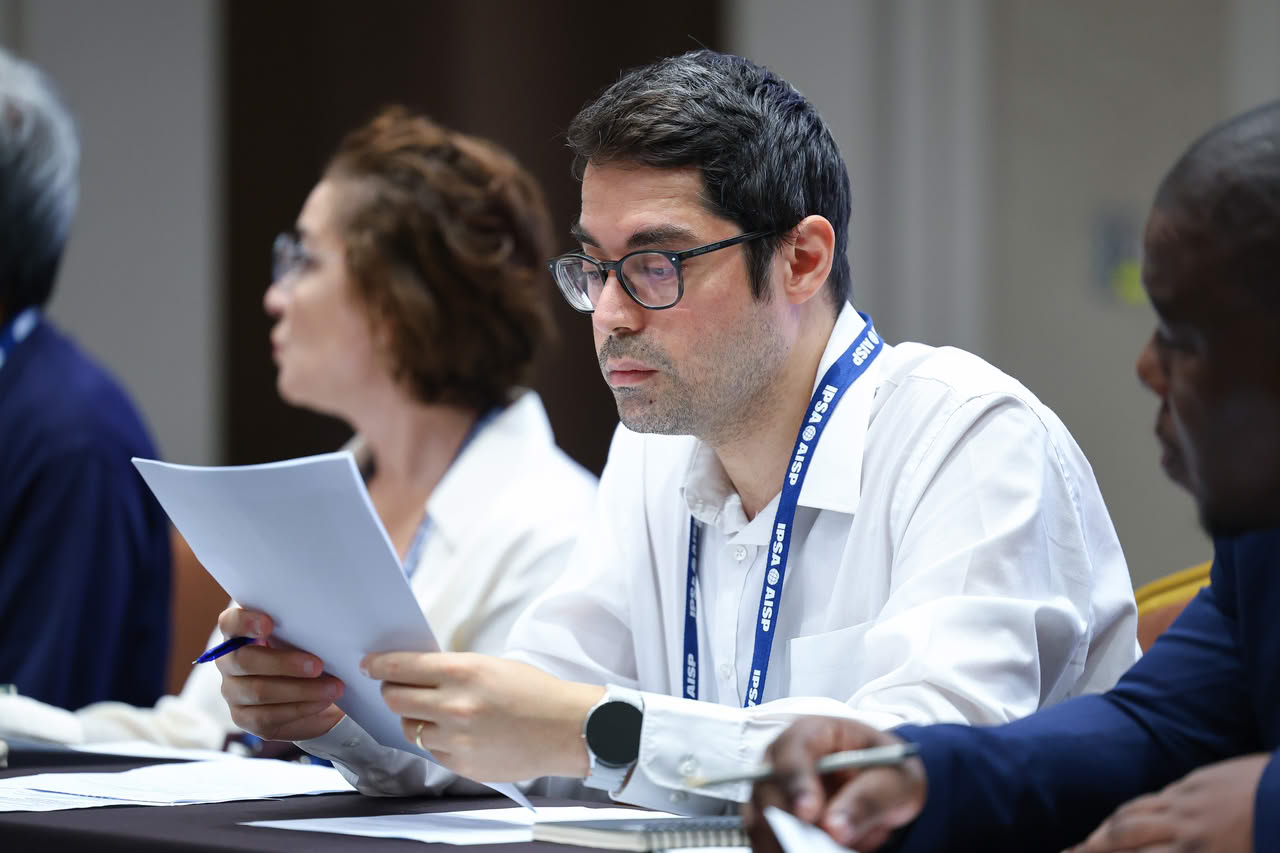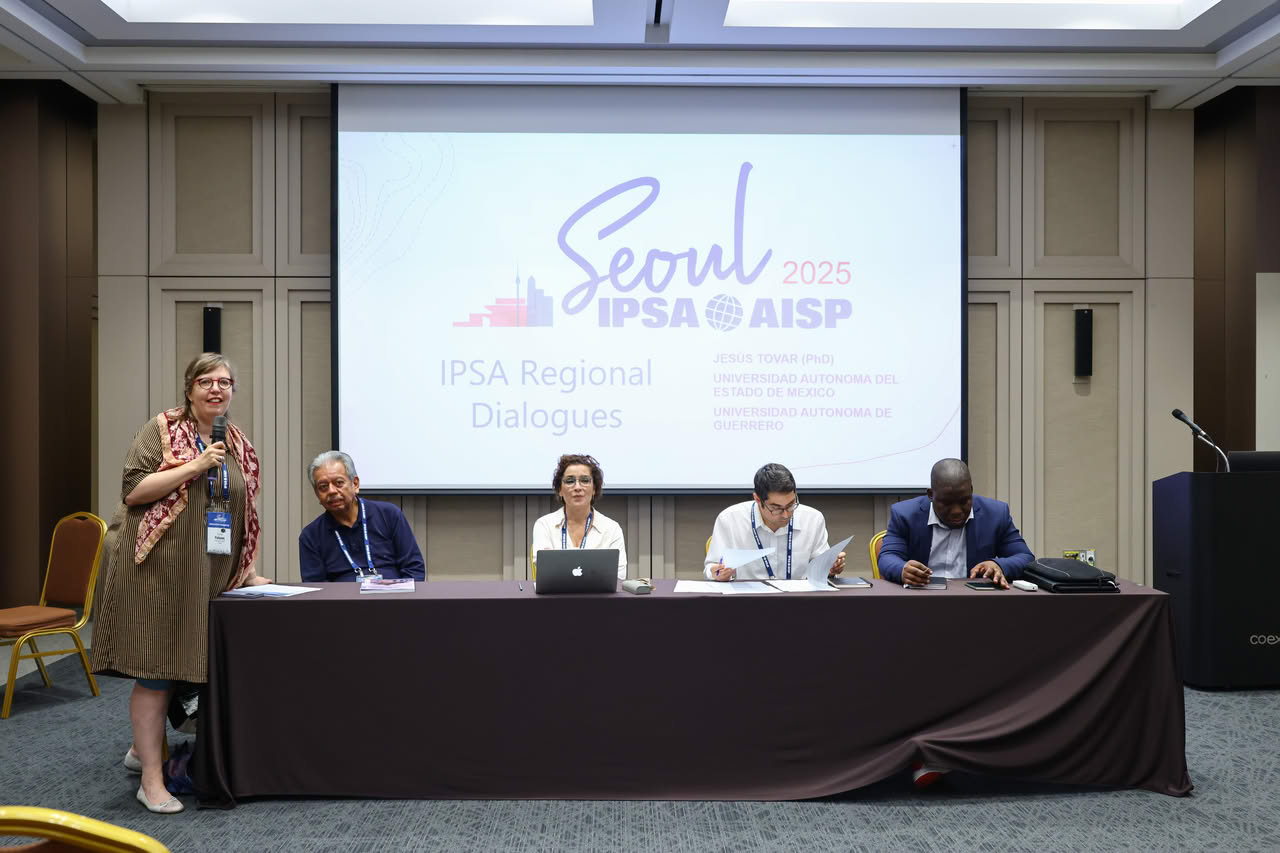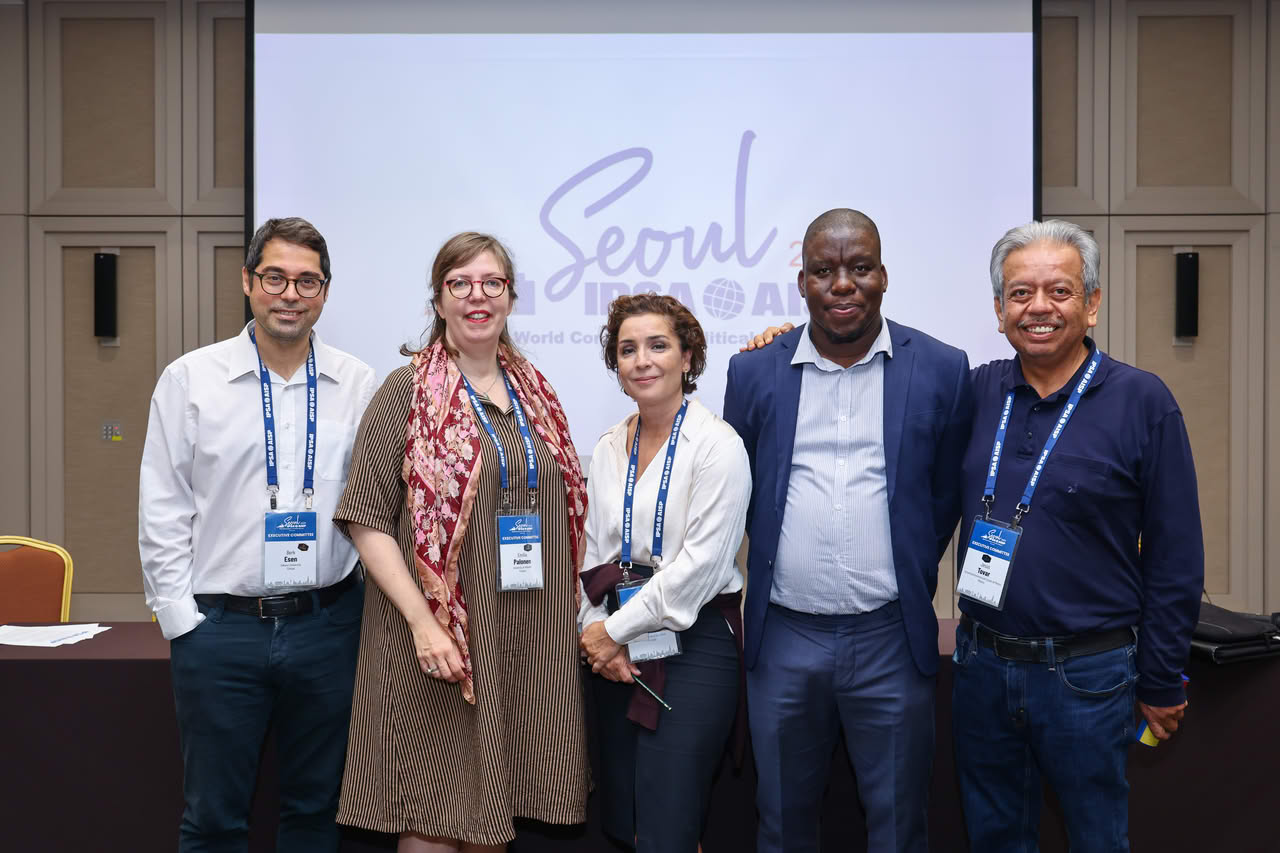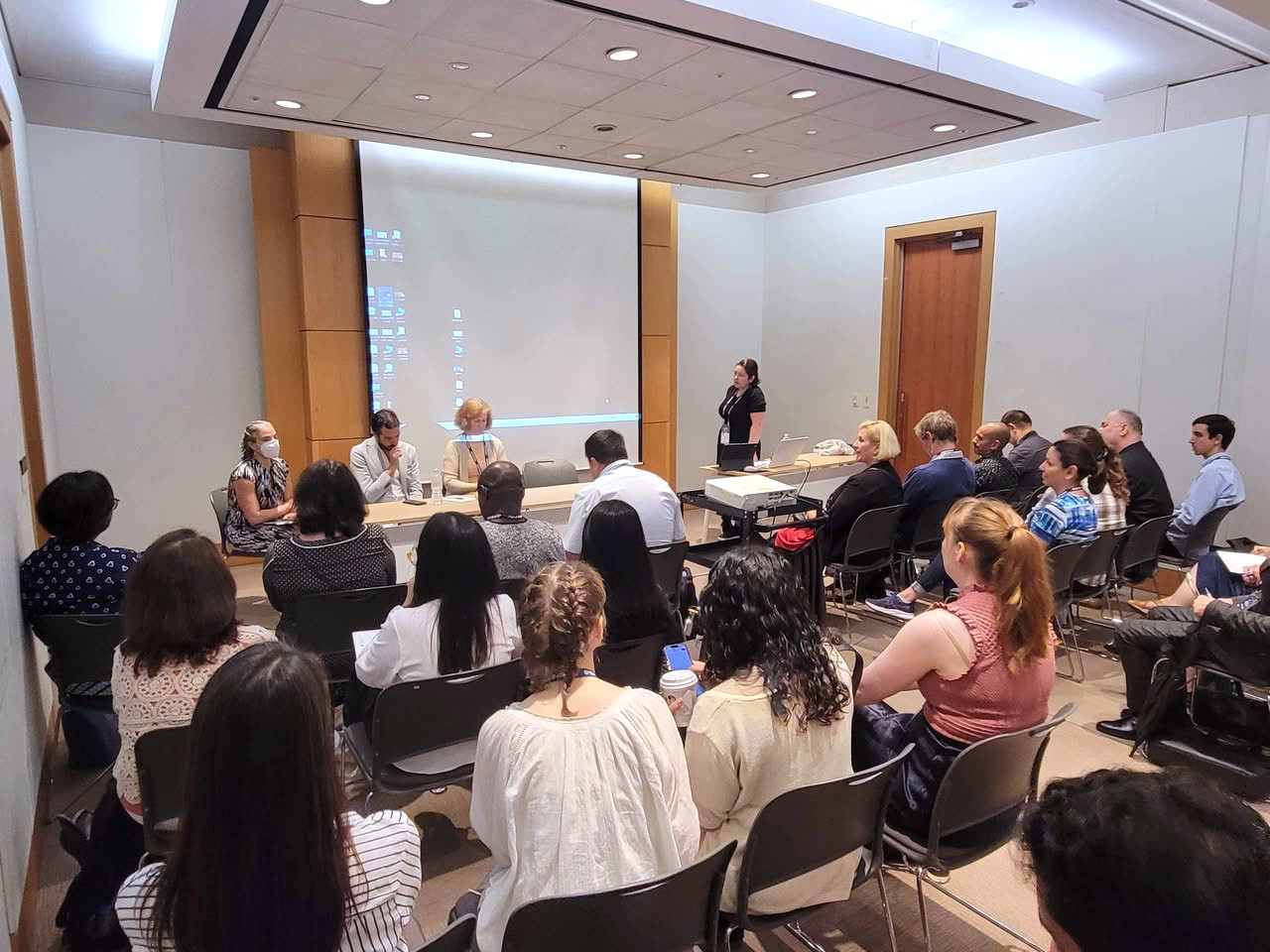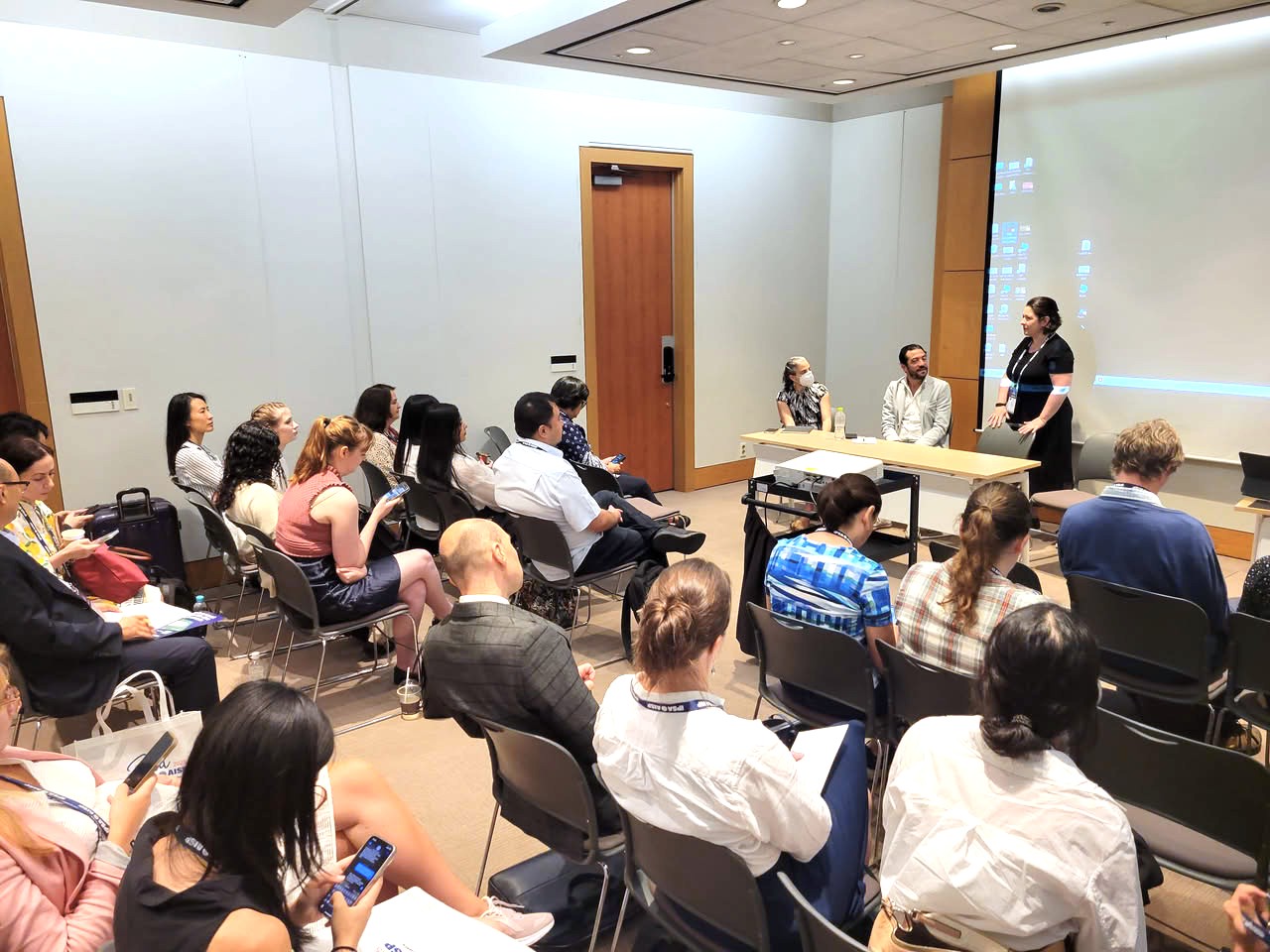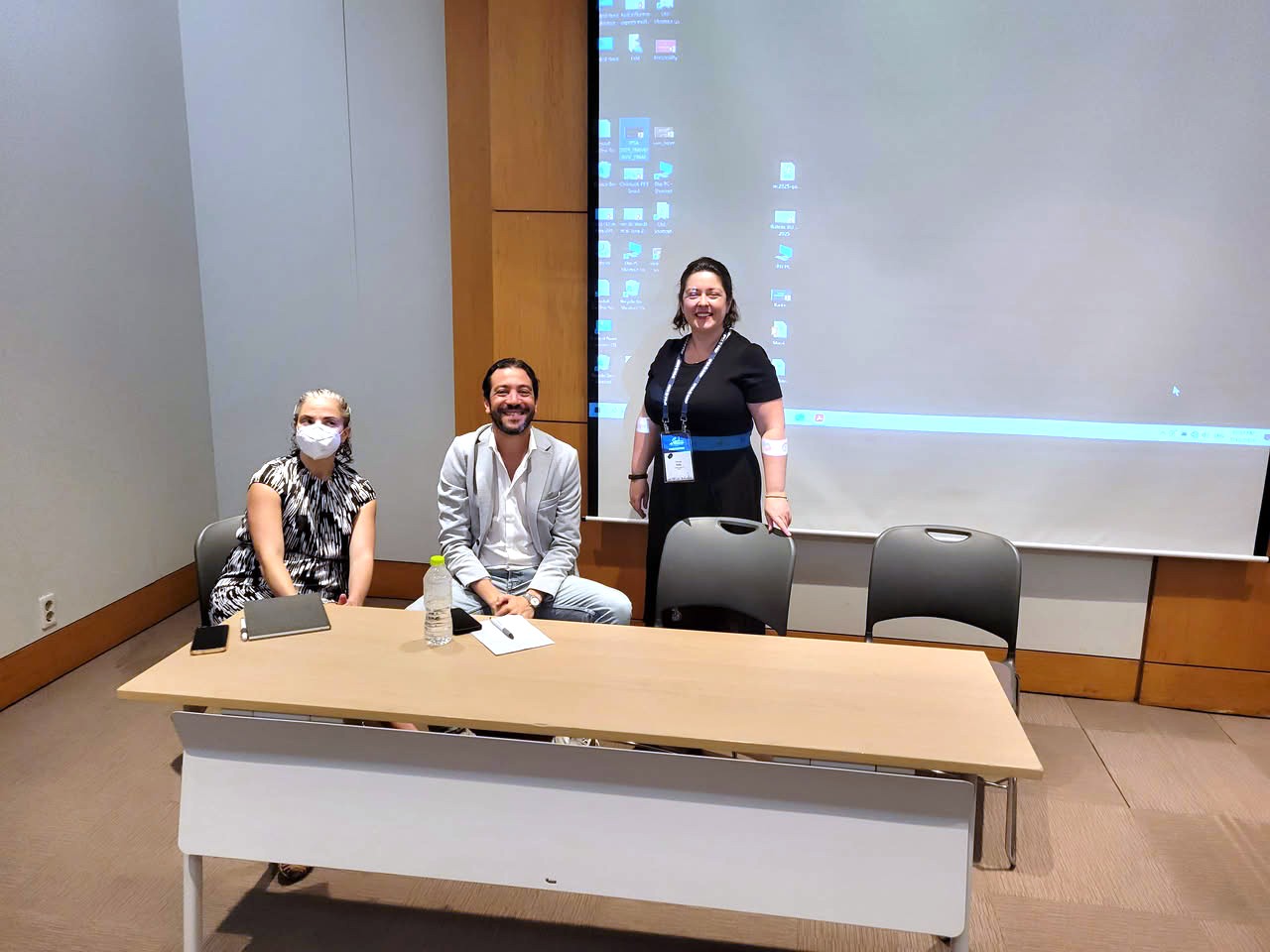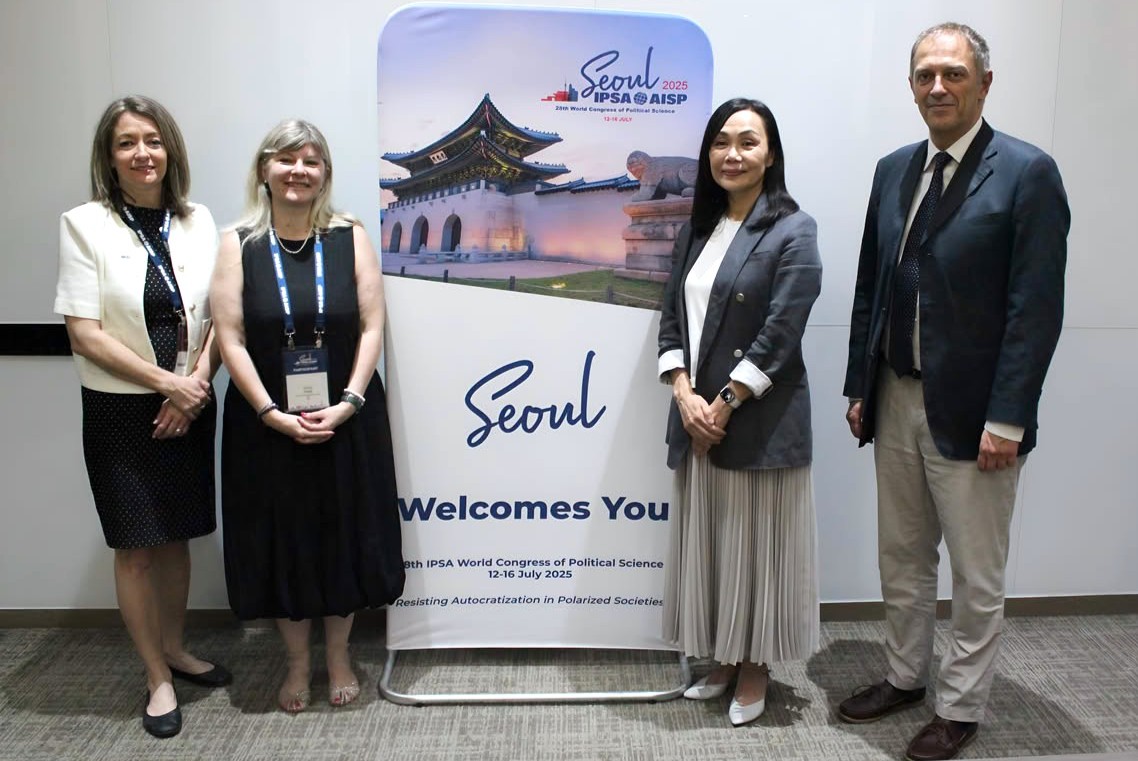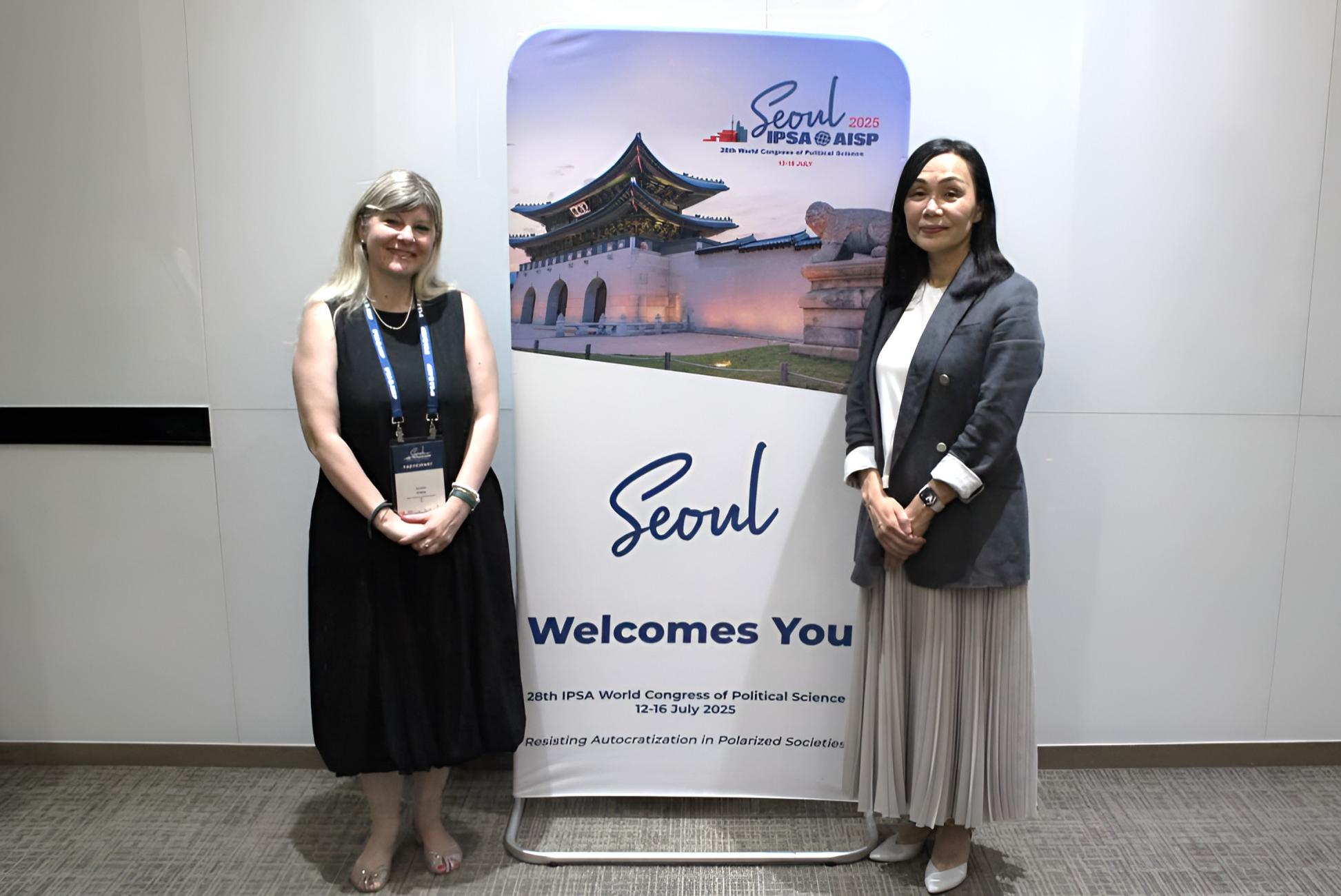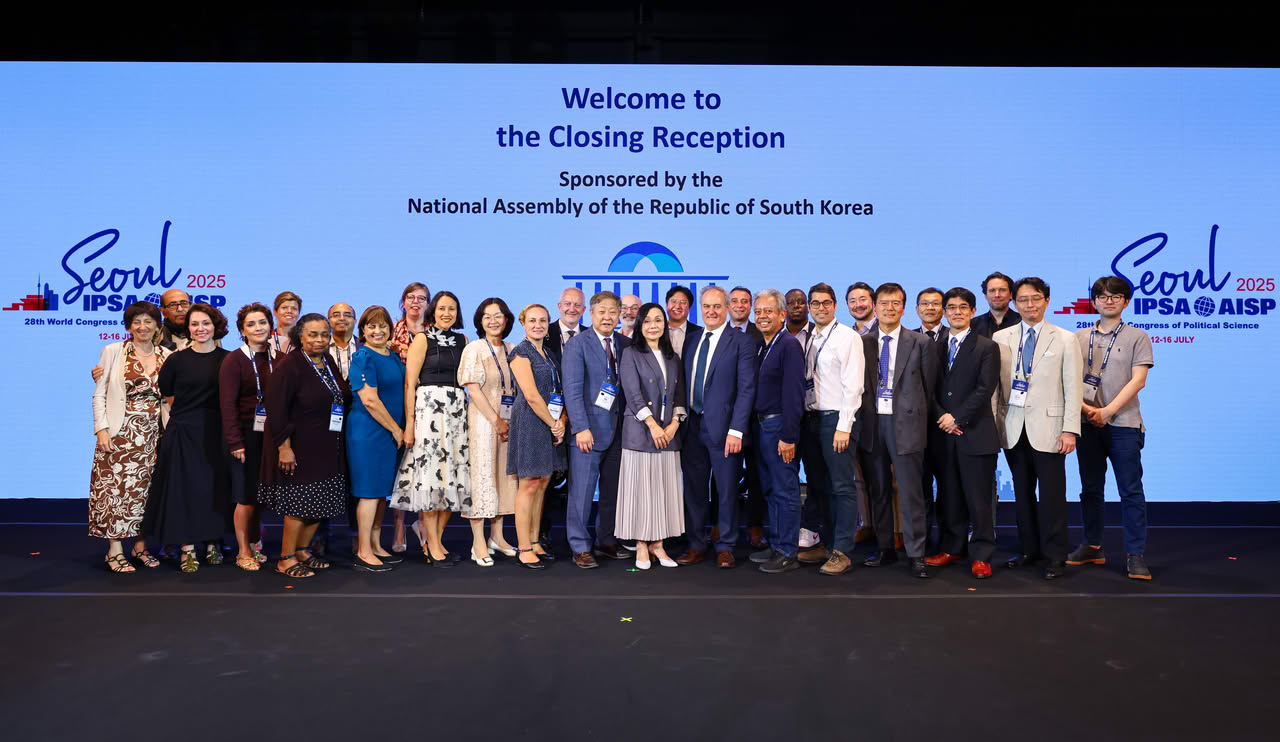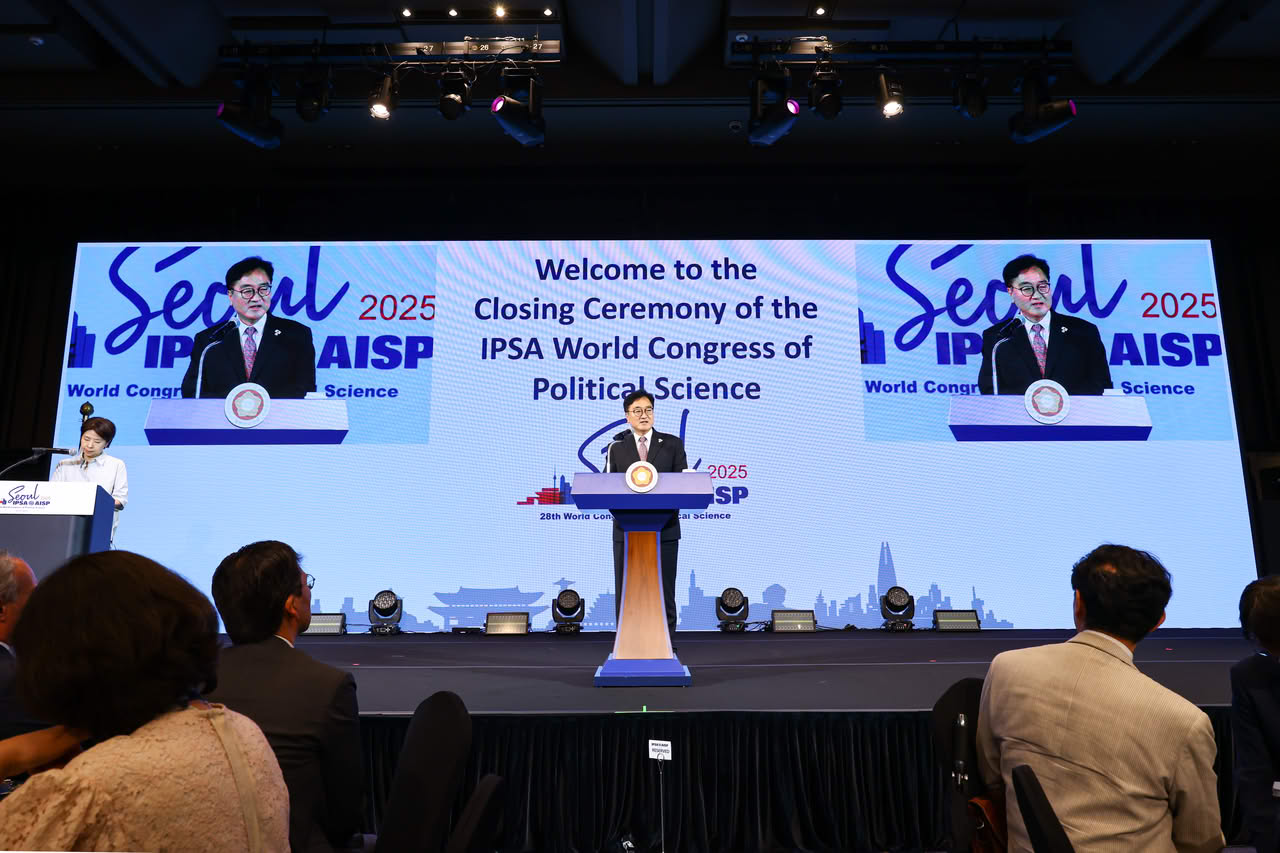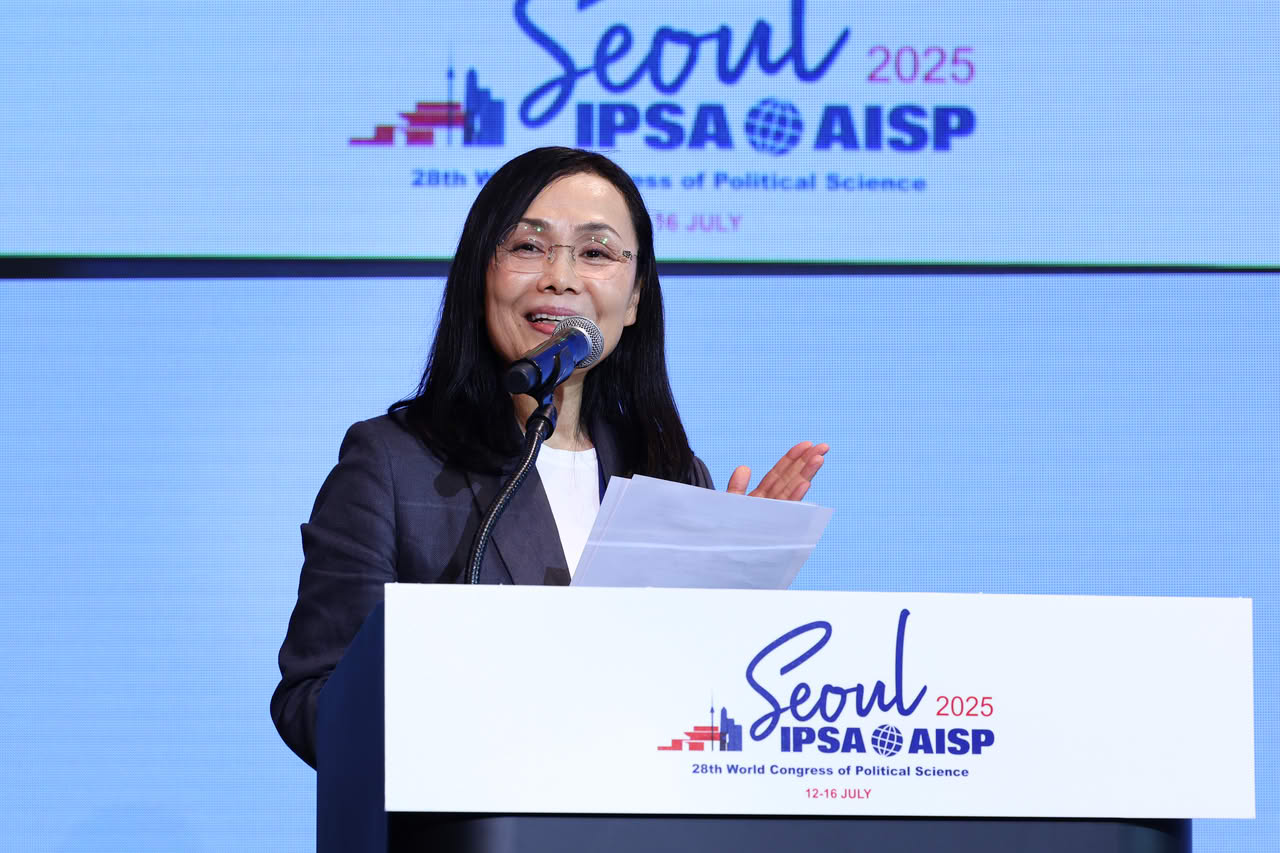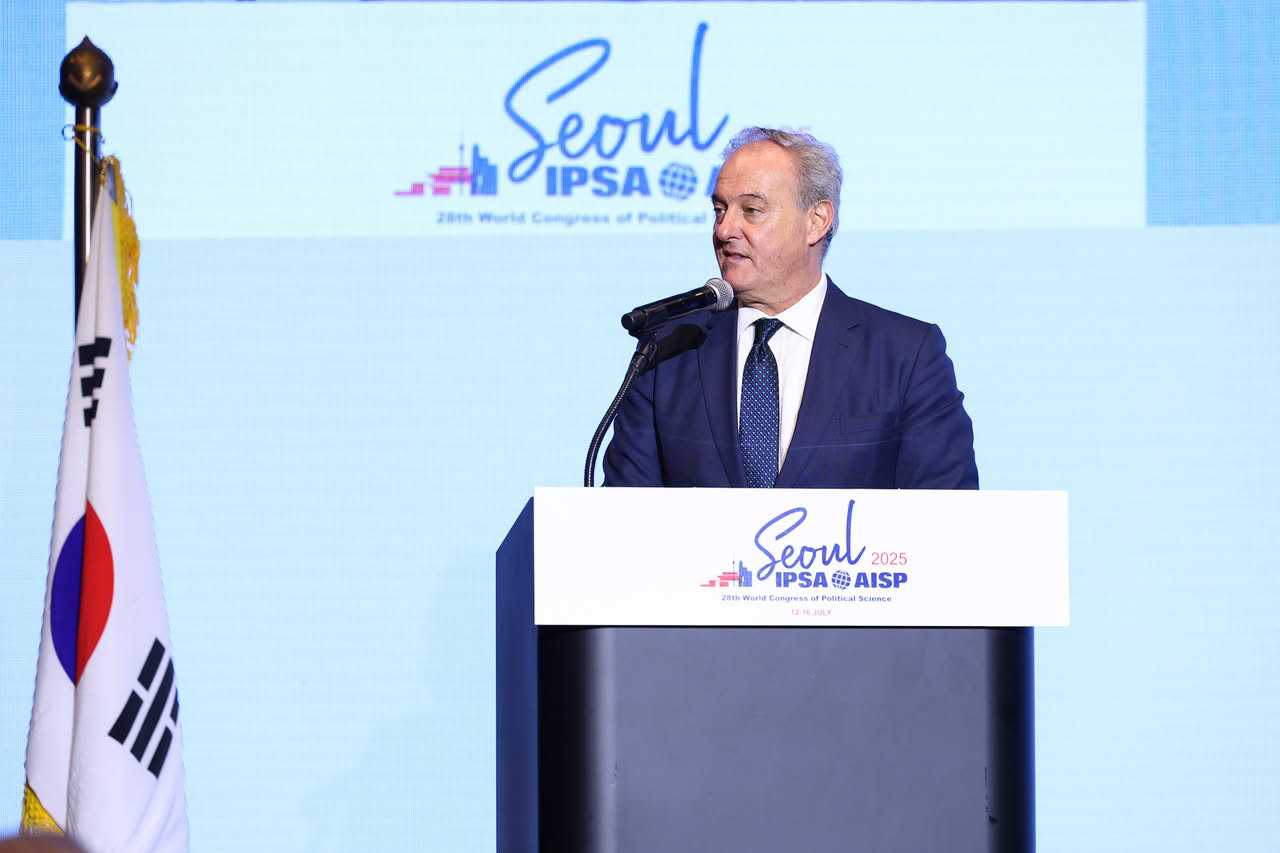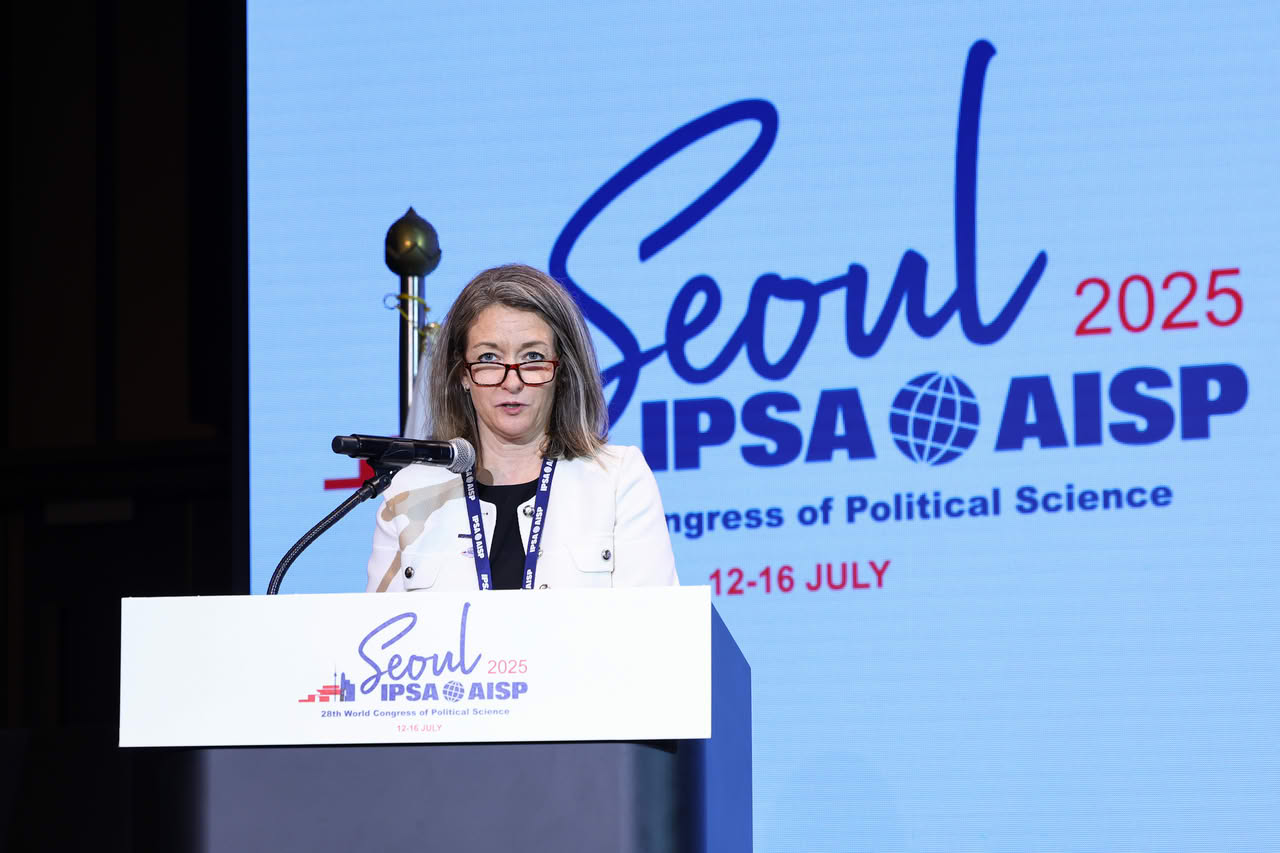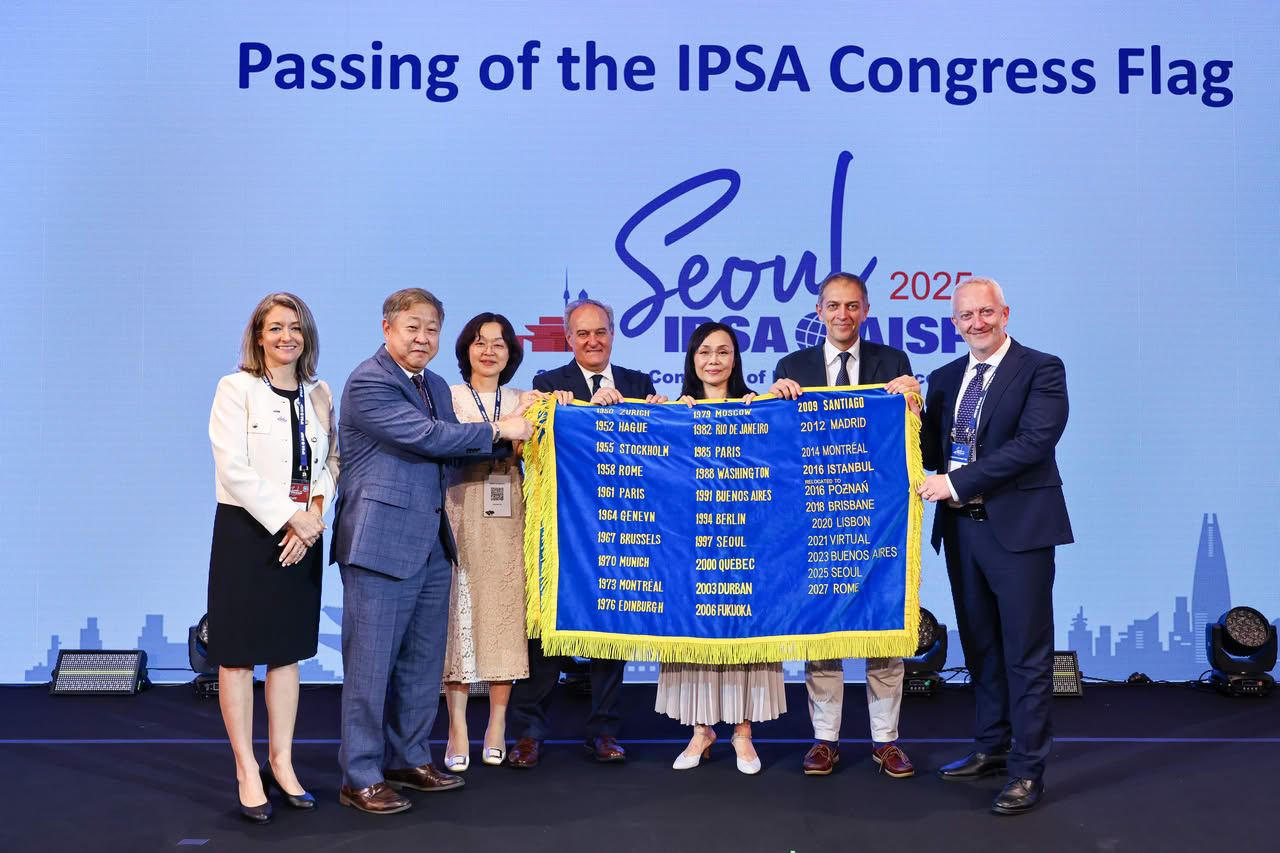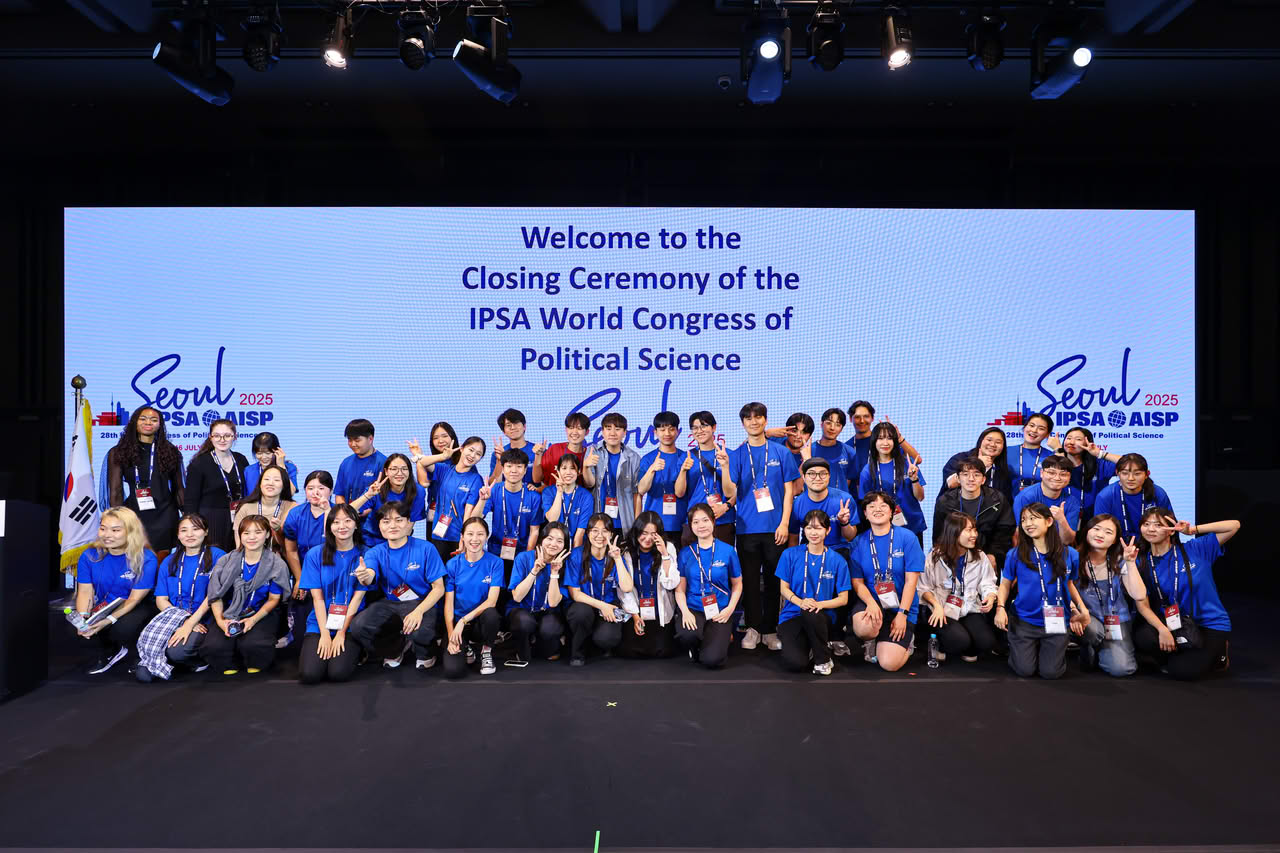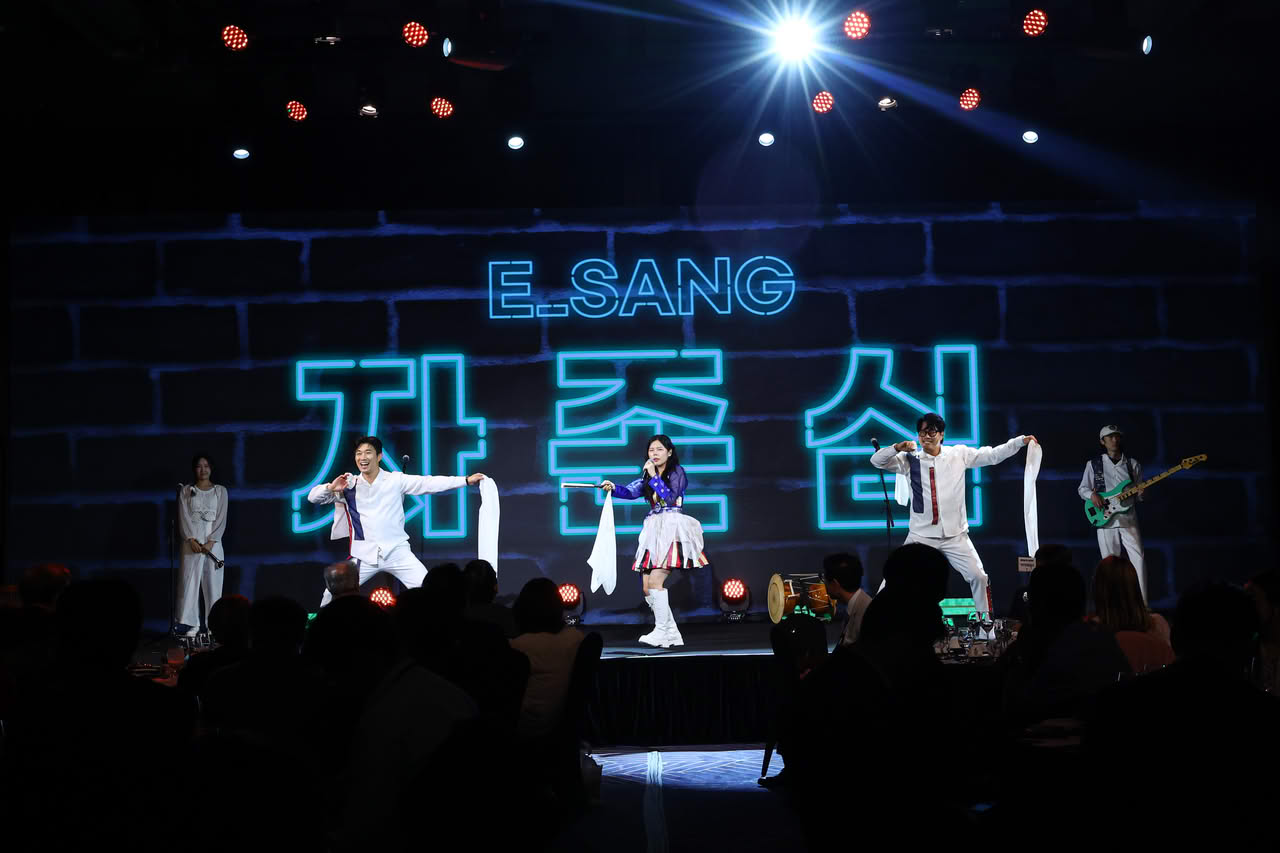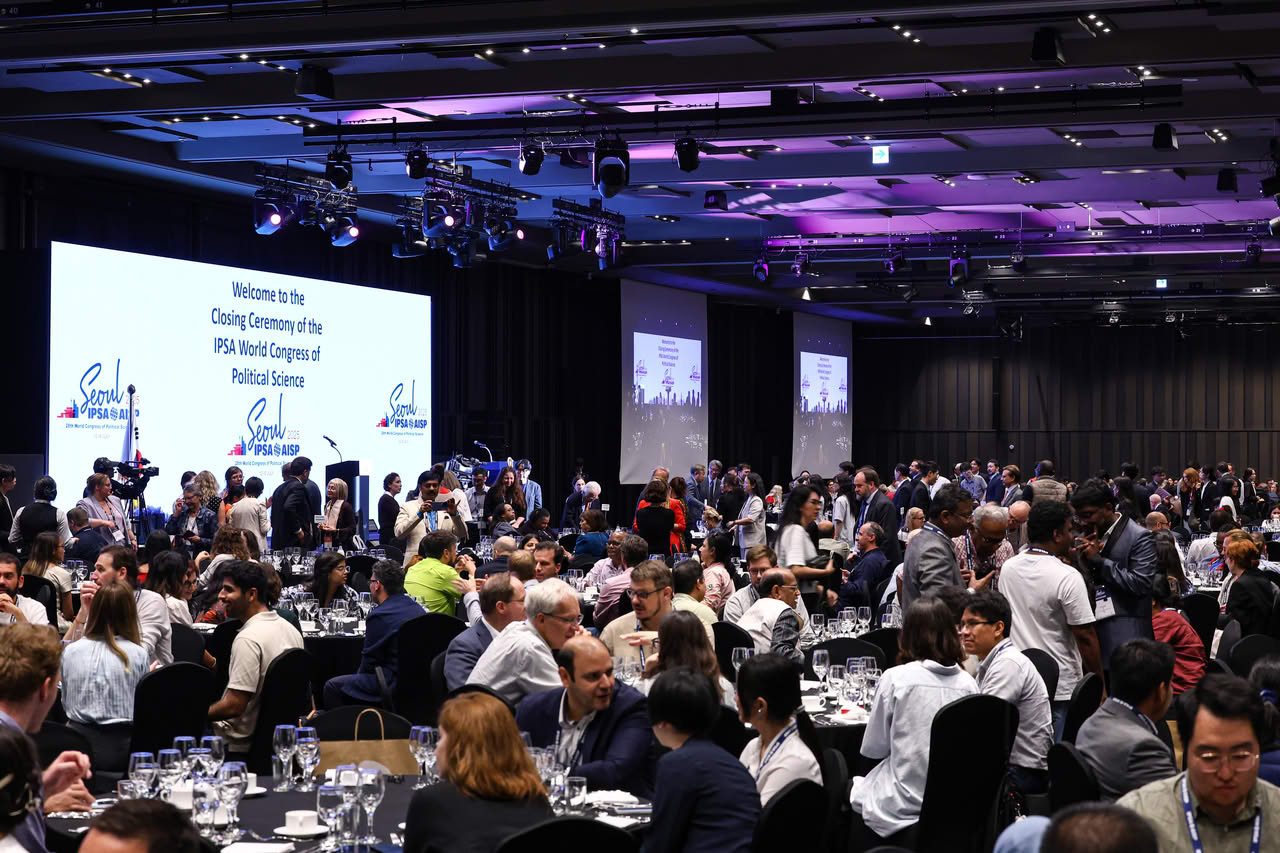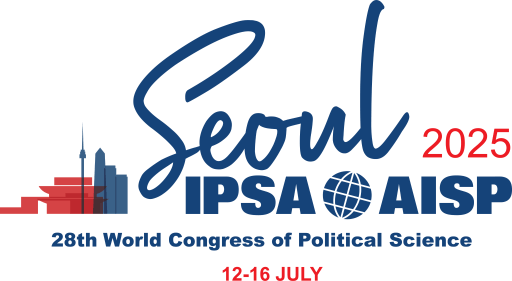
The 2025 IPSA World Congress of Political Science was held from 12 to 16 July 2025 at the Coex Convention Center in Seoul, South Korea.
Held under the theme Resisting Autocratization in Polarized Societies, the Congress was co-chaired by Irasema Coronado and Azul A. Aguiar Aguilar, the Seoul World Congress had the highest attendance in IPSA’s 76-year history, with 3,450 participants.
Organized in partnership with the Korean Political Science Association and the broader Asian social science community, the 2025 World Congress underscored IPSA’s mission to foster inclusive and global scholarly engagement. Delegates from 95 countries presented 3,059 papers in 776 panels. The Congress also featured four plenary sessions and six award sessions. In addition, women represented 44% of Congress participants.
The top ten countries by number of participants were South Korea (387), the United States (328), India (314), Japan (299), Poland (139), Germany (138), the United Kingdom (127), Taiwan (123), and both Canada and the Philippines with 119 participants each.
We extend our heartfelt thanks to all participants, track chairs, and dedicated onsite staff whose efforts made the 2025 Congress a resounding success. We also express our sincere gratitude to the Local Organizing Committee and its Co-Chairs—Euiyoung Kim, Sunghack Lim, Ajin Choi, and Bumsoo Kim—as well as to our partners, supporters, sponsors, and exhibitors for their invaluable support.
Congress Theme
Resisting Autocratization in Polarized Societies
Autocratic governments are on the rise. Democracies have been eroding from the right and left, from above —leaders— and below —citizens—, but also from outside with the support and guidance of new regional orders. Countries where democracy is well-established or where it is functioning with its minimal foundations, such as elections, are witnessing the expansion of autocratizing politics. Additionally, there is a growing polarization in the understanding of future political, social, and national goals. Societies are becoming increasingly politically and ideologically divided, with each side viewing the other as a problem. Radical polarization among elites but also between society has emerged as a distinctive feature in both Global South and North countries, and it is impacting democracies and international orders.
Some elected leaders are challenging the established rules, undermining the rights of minorities, political and civil rights, and reshaping the political arena to implement their desired policies. At the same time, citizens' preferences and support for democracy indicate that this regime may no longer be the only game in town. Disenchanted citizens believe that democracy has failed to deliver on its promises or meet their economic, political or social expectations. Autocrats and their policies are becoming increasingly popular among voters, amidst claims of voter suppression and misinformation. Citizens are disaffected and, in some countries, living in perpetual fear. Fake news, post truth politics, and manipulation of events such as war, migration, climate change for political gain are increasingly common and bolstered by digitalization.
We have also verified how new regional orders help leaders with autocratic tendencies to capitalize on citizens' dissatisfaction with democracy, exploit polarized sentiments, and undermine democracy and rights through policies and legislation justified by national and public security, austerity measures, participatory mechanisms, secure migration, and flexible regulations for fuel and agro-industrial companies.
Despite these facts, some countries have resisted autocratization and implemented timely measures to halt the slow but steady dismantling of democracies. Responsible opposition political parties, independent courts, and active civil society have struggled to uphold democratic rules and values. Furthermore, as their authoritarian counterparts, certain democracies are in a position to support other democratic regimes in resisting autocratization and promoting and protecting democracy through collaboration in regional organizations. To effectively counter the emergence of autocratizing politics and regimes, countries require the support from domestic democrats but also democratic nations and global and regional organizations. These entities can foster cooperation, promote strategies to safeguard democratic values, and contribute to reversing the damage caused by autocratic governments while helping to rebuild democracies.
For the IPSA 2025 World Congress, we aim to draw the attention of the global political science community to issues related to the resistance against autocratizing politics in the context of polarized societies. We actively encourage engaging proposals and discussions on the intricate connections between these phenomena and critical issues such as human rights, civil liberties, inequality, political institutions, public policies, social actors, migrants, digitalization, climate politics, international agreements, and organizations.
Azul A. Aguiar Aguilar (Jesuit University of Guadalajara) and Irasema Coronado (Arizona State University)
Daily Highlights
The #IPSA2025 World Congress of Political Science officially kicked off on 13 July at the Coex Convention Center in Seoul. The opening day featured welcoming remarks by South Korean President Lee Jae Myung, a keynote address by former UN Secretary-General Ban Ki-moon, the IPSA Guillermo O’Donnell Award lecture, a moving tribute to the late IPSA Past President Leonardo Morlino, and engaging academic discussions across 219 sessions and events.
Plenary: Liberal Democracy, Multilateralism and Global Citizenship
Former UN Secretary-General Ban Ki-moon addressed participants of the 2025 IPSA World Congress in a plenary on Liberal Democracy, Multilateralism, and Global Citizenship. In his presentation, he reflected on the founding vision of the United Nations—a world free of war, guided by peace and security, economic development, and human rights.
IPSA Guillermo O’Donnell Award for Latin American Scholars Lecture
Guillermo O’Donnell’s academic legacy was honored on the opening day of the 2025 IPSA World Congress. Carlos Pereira, the recipient of the inaugural IPSA Guillermo O’Donnell Award, delivered an award lecture titled Between Threat and Breakdown: Understanding Democratic Resistance in Latin America.
In Memoriam: Honoring Professor Leonardo Morlino
A special roundtable was held in memory of former IPSA President Leonardo Morlino, who passed away on 17 June 2025. Chaired by WC2025 Program Co-Chair Azul A. Aguiar Aguilar, the tribute brought together Prof. Morlino’s colleagues and former students to honor his scholarly legacy and reflect on the enduring relevance of his work on comparative politics, democratization, and political regimes.
Professional Development Café: Meet the Editors – Publishing in Leading Journals
Four interactive café-style events are dedicated to students and early-career scholars at the 2025 IPSA World Congress. The first event, Publishing in Leading Journals, provided insights into navigating the complexities of academic publishing and addressing structural barriers.
LOC Roundtable – Resisting Autocratization in Polarized Societies: The Role of Academia
The Local Organizing Committee (LOC) hosted a timely roundtable on Resisting Autocratization in Polarized Societies: The Role of Academia. Chaired by Euiyoung Kim, the discussion featured scholars from academia and global political science associations.
Research Method Courses
The Research Methods Courses are a long-standing tradition at the IPSA World Congress, providing state-of-the-art training on recent advances in research methods across various fields. At the 2025 edition, two courses were offered on 12 July. Emre Toros led the first course, Text as Data with R, while Manfred Max Bergman taught the second, Mixed Methods Research and Designs.
Opening Ceremony & Welcome Reception
The Opening Ceremony of the 2025 IPSA World Congress was a memorable occasion that marked the start of IPSA’s flagship event and a record-breaking edition in Seoul. The ceremony started with a live performance of Mugo by the National Dance Company, followed by a cocktail reception. The ceremony welcomed over 1,000 delegates and featured South Korean President Lee Jae Myung.
The second day of the #IPSA2025 World Congress on 14 July featured 210 sessions and events. Highlights included Donatella della Porta’s plenary on academic freedom, the Karl Deutsch Award Lecture by Hyeong-ki Kwon, and the inaugural Kim Dae-jung Award Roundtable with the participation of Kim Minseok, Prime Minister of the Republic of Korea.
Plenary - The Contentious Politics of Academic Freedom: Social Movements and Repression
The second plenary of the 2025 IPSA World Congress featured Donatella della Porta (Professor of Political Science, Dean of the Faculty of Political and Social Sciences, and Director of the PhD Program in Political Science and Sociology at the Scuola Normale Superiore in Florence). Prof. della Porta explored the growing threats to academic freedom, particularly the repression of scholars and social movements in authoritarian regimes and Western democracies.
2025 Kim Dae-jung Award Roundtable
T.V. Paul, the inaugural recipient of IPSA’s newly established Kim Dae-jung Award, participated in a special roundtable held at the IPSA World Congress in Seoul. Sponsored by the Kim Dae-jung Foundation, the roundtable brought together Prof. Paul and other distinguished speakers to discuss key themes such as global peace, democracy, and the protection of human rights. The roundtable also featured Korean Prime Minister Kim Minseok, who delivered a speech on the legacy of Kim Dae-jung.
2025 Karl Deutsch Award Lecture
Hyeong-ki Kwon, recipient of the 2025 Karl Deutsch Award, delivered a prize lecture titled Openness and Coordination: National Economies of the U.S., Japan, and Germany in a Globalized World. Prof. Kwon emphasized that while openness is essential for economic adaptability, it must be paired with effective coordination to maintain a nation’s industrial base.
Gender Inequalities in Political Science
The Gender Inequalities in Political Science roundtable examined findings from IPSA’s 2024–2025 global survey on gender equality in the discipline. Chaired by Vanessa Elias de Oliveira, speakers discussed key results and shared strategies to promote greater inclusion and equity in political science. The full report can be found on the IPSA website.
IPSA Supports Global South Participation with Travel Grants
47 scholars from 26 countries received their travel grants from IPSA Executive Director Kim Fontaine-Skronski. We congratulate all recipients and wish them a rewarding and inspiring experience at the 2025 IPSA World Congress in Seoul.
Interpretive Methods Café
Intended for students and early-career scholars, the Interpretive Methods Café provided an informal, interactive space for scholars to discuss interpretive research approaches. Participants engaged in various conversations such as interviewing techniques, positionality and reflexivity, field research in foreign countries, and publishing interpretive research.
Asian Night | Track Chairs Recognition Reception
The Asian Night | Track Chairs Recognition Reception was organized to celebrate the contributions of the 2025 IPSA Track Chairs to the success of the Congress. The reception was attended by IPSA Executive Committee members, WC2025 Research Committee track chairs, Local Organizing Committee members, and guests. The event was sponsored by the Korean Political Science Association and the Chinese Association of Political Science (Taipei) – CAPS.
The third day of the #IPSA2025 World Congress, held on 15 July, featured 236 sessions and marked an important milestone in IPSA’s leadership transition. Yuko Kasuya officially assumed the IPSA presidency, while Hasret Dikici Bilgin was elected President-Elect. Highlights included the President’s Plenary on populism and democratic backsliding, the Meisel-Laponce Award Lecture, and engaging panels on academic publishing and research ethics.
Yuko Kasuya Becomes IPSA’s 28th President
Yuko Kasuya, who was elected President-Elect by the IPSA Council in 2023, officially assumed the role of IPSA President on 15 July. Prof. Kasuya will serve a two-year term from 2025 to 2027. On behalf of IPSA and the global political science community, we congratulate Prof. Kasuya on becoming the 28th IPSA President.
The Council Elects Hasret Dikici Bilgin as IPSA’s President-Elect
The IPSA Council, the Association’s highest decision-making body, has elected Hasret Dikici Bilgin as the new President-Elect at the IPSA World Congress of Political Science on 15 July in Seoul. Prof. Bilgin will serve a two-year term as President-Elect and will assume the presidency at the 2027 IPSA World Congress in Rome, Italy. We warmly congratulate Prof. Dikici Bilgin on her new position.
IPSA President’s Plenary: Populism, Polarization and the Consequences on Democracy
At each World Congress, the outgoing IPSA President hosts a plenary bringing together distinguished scholars. Continuing this tradition, IPSA Past President Pablo Oñate chaired the plenary titled Populism, Polarization and the Consequences on Democracy, which examined the global impact of these trends on democratic institutions and explored how they can be resisted and reversed.
Meisel-Laponce Award Lecture and Sage Reception
Hilde Coffé and Marion Reiser, recipients of the 2025 Meisel-Laponce Award, delivered a lecture on their award-winning article titled How perceptions and information about women’s descriptive representation affect support for positive action measures. The lecture was followed by the IPSR/Sage Reception, offering delegates the opportunity to meet IPSR Co-Editor Annika Hinze.
Roundtable: Predatory Publishing and Ethics in Research: What’s Up?
Chaired by IPSA Vice-President Madalena Meyer Resende, the roundtable addressed the growing concern over predatory journals in academic publishing. IPSA’s new online tool, the Predation Index, designed to help political scientists identify potentially predatory journals, was launched. We invite all scholars to explore and make use of the Predation Index.
Professional Development Café: Crafting Your Path Through the Academic Publishing Landscape
This interactive café event provided valuable guidance for early-career scholars navigating the academic publishing process. Participants explored key strategies for framing research articles, selecting the right journals, and avoiding common pitfalls to boost their chances of publication success.
IPSA-APSA Leadership Meeting
IPSA and the American Political Science Association (APSA) leadership met at the IPSA World Congress of Political Science on 15 July in Seoul to discuss shared priorities and future collaborations. The meeting brought together IPSA President Yuko Kasuya, IPSA Past President Dianne Pinderhughes, APSA President Taeku Lee, IPSA Executive Director Kim Fontaine-Skronski, and APSA Executive Director Kimberly A. Mealy. Continuing a longstanding World Congress tradition, IPSA and APSA leaders exchanged views on upcoming events, including the 2024 APSA Annual Meeting in Vancouver (11-14 September) and the 2027 IPSA World Congress in Rome.
The final day of the #IPSA2025 World Congress of Political Science on 16 July featured 188 sessions and events. Highlights included the election of the 28th Executive Committee, a plenary on legal autocracy in South Asia by Neera Chandhoke, the Mattei Dogan Award Lecture, and the IPSA Regional Dialogues Roundtable. The 2025 edition concluded with the official Closing Ceremony, featuring remarks by Woo Won-shik, Speaker of the National Assembly, and the symbolic handover of the IPSA flag to the 2027 host city, Rome.
IPSA Council Elected the 28th Executive Committee
The IPSA Council, the highest decision-making body of the Association, has elected the 28th Executive Committee on 16 July 2025 at the IPSA World Congress in Seoul. We warmly congratulate the newly elected members who will govern IPSA for the next two years.
Plenary: Legal Autocracy in South Asia
The final plenary of the IPSA World Congress featured a keynote address by Neera Chandhoke, Distinguished Fellow at the Centre for Equity Studies in Delhi. Prof. Chandhoke examined how autocrats in the region undermine democratic institutions through legislation while maintaining the facade of democracy.
Prize of the Foundation Mattei Dogan Award Lecture
John Higley, the recipient of the 2025 Mattei Dogan Foundation Award, delivered a virtual award lecture titled The Democracy Ideal and Elites at the 2025 IPSA World Congress. John Higley has been one of the key figures in the revival of elite theory in social science. Prof. Higley’s presentation was followed by a discussion moderated by Serge Granger, with Kurt Weyland serving as discussant.
Global South Award Lecture
The Global South Award was officially renamed the IPSA Margaret A. Vogt Award for Global South Scholars to honor the legacy of the distinguished African scholar in international peace and security. At a special award lecture, the 2025 Award recipient, Zaynab El Bernoussi, delivered her presentation From the Global South to the World: Tracking Dignity Demands and the International Political Economy.
IPSA Regional Dialogues Roundtable
The outcomes of IPSA’s third edition of its Regional Dialogues with national and regional political science associations (collective members) were discussed at a roundtable held on the final day of the World Congress. Speakers explored how academic freedom, artificial intelligence, and unequal access to resources are shaping the future of political science.
Professional Development Café: Communicating Political Science to Politicians, Policy Makers and the Public
This engaging roundtable explored how political scientists can effectively reach audiences beyond academia. Speakers shared practical strategies for engaging with the media, leveraging social platforms, and translating research for public, political, and policy impact.
IPSA-ECPR Leadership Meeting
IPSA and the European Consortium for Political Research (ECPR) leadership met on 16 July to discuss shared priorities and explore future collaborations. The meeting was attended by IPSA President Yuko Kasuya, ECPR Chair Daniela Irrera, IPSA Executive Director Kim Fontaine-Skronski, and WC2027 Local Organizing Committee Co-Chair Raffaele Marchetti. The participants explored opportunities to expand IPSA-ECPR collaboration at upcoming events, including the 2025 ECPR General Conference in Thessaloniki (26–29 August) and the 2027 IPSA World Congress in Rome, where jointly organized partner sessions are being planned.
Closing Ceremony
The Closing Ceremony of the 2025 IPSA World Congress, sponsored by the Korean National Assembly, featured official remarks from the Speaker of the National Assembly Woo Won-shik, the Ambassador of Italy in Korea Emilia Gatto, IPSA representatives and members of the 2025 and 2027 Local Organizing Committees. The ceremony concluded with the symbolic passing of the IPSA flag from Seoul to the next host city, Rome, and a vibrant music performance by E_SANG, a group of young traditional Korean musicians.
Photos
Please visit our Flickr page to view or download photos of the 28th IPSA World Congress.
Photo credit: IPSA Archive (photography by JINSTUDIO).
Videos
Ceremonies
- 2025-07-13 CR.01 Opening Ceremony
- The English translation of the speech by President Lee Jae Myung can be read here.
- 2025-07-16 CR.07 Closing Ceremony
- The English translation of the speech by Woo Won-shik, Speaker of the National Assembly, can be read here.
Plenaries
- 2025-07-13 PL.01 Liberal Democracy, Multilateralism and Global Citizenship
- 2025-07-14 PL.02 The Contentious Politics of Academic Freedom - Social Movements and Repression
- 2025-07-15 PL.03 Populism, Polarization and the Consequences on Democracy
- 2025-07-16 PL.04 Resisting Legal Autocracy in South Asia
Awards
- 2025-07-13 AW.01 Guillermo O’Donnell Award Lecture
- 2025-07-14 AW.02 Karl Deutsch Award Lecture
- 2025-07-14 AW.03 Kim Dae-jung Award Roundtable
- 2025-07-15 AW.05 Meisel-Laponce Award Lecture
- 2025-07-16 AW.04 Global South Award Lecture
- 2025-07-16 AW.06 Prize of the Foundation Mattei Dogan Award Lecture

